

MAY 29, 2024 / EMMY PREVIEW
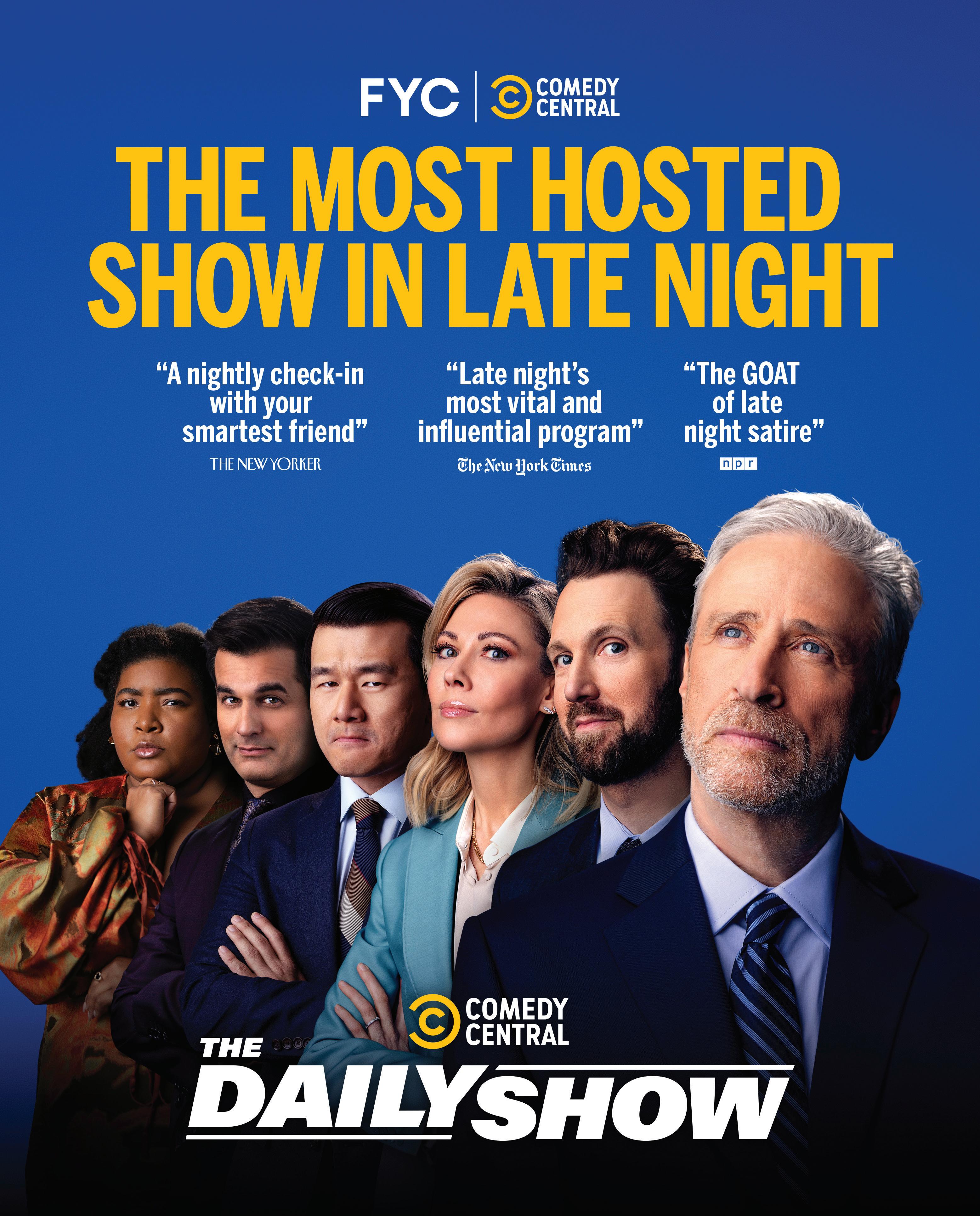
CO-EDITORS-IN-CHIEF
Nellie Andreeva (Television)
Mike Fleming Jr. (Film)
PRINT EDITORIAL
EXECUTIVE AWARDS EDITOR Joe Utichi
DESIGN DIRECTOR Fah Sakharet
SENIOR AWARDS EDITOR Antonia Blyth
FILM EDITOR Damon Wise
DOCUMENTARY EDITOR Matthew Carey
CRAFTS EDITOR Ryan Fleming
PRODUCTION EDITOR David Morgan
AWARDS WRITER Destiny Jackson
DEADLINE.COM EDITORIAL
AWARDS COLUMNIST & CHIEF FILM CRITIC Pete Hammond
COLUMNIST & INTERNATIONAL EDITOR-AT-LARGE Baz Bamigboye
EXECUTIVE MANAGING EDITOR Patrick Hipes
EDITORIAL DIRECTOR & BOX OFFICE EDITOR Anthony D’Alessandro
EXECUTIVE EDITOR, TELEVISION Peter White
EXECUTIVE EDITOR, LEGAL, LABOR & POLITICS Dominic Patten
EXECUTIVE EDITOR, INTERNATIONAL & STRATEGY Andreas Wiseman
SENIOR MANAGING EDITOR Denise Petski
MANAGING EDITOR Erik Pedersen
DEPUTY MANAGING EDITOR Tom Tapp
PHOTO EDITOR Robert Lang
EDITOR-AT-LARGE Peter Bart
SENIOR VICE PRESIDENT, CONTENT, INTERNATIONAL Stewart Clarke
INTERNATIONAL FEATURES EDITOR Diana Lodderhose
EXECUTIVE EDITOR Michael Cieply
BUSINESS EDITOR Dade Hayes
CO-BUSINESS EDITOR Jill Goldsmith
POLITICAL EDITOR Ted Johnson FILM EDITOR Justin Kroll
NEW YORK & BROADWAY EDITOR Greg Evans
ASSOCIATE EDITOR, TELEVISION Rosy Cordero
SENIOR TELEVISION WRITER Lynette Rice
TELEVISION REPORTER Katie Campione
SENIOR FILM REPORTER Matt Grobar
ASSOCIATE EDITOR & FILM WRITER Valerie Complex
INTERNATIONAL INVESTIGATIONS EDITOR Jake Kanter
INTERNATIONAL BOX OFFICE EDITOR & SENIOR CONTRIBUTOR Nancy Tartaglione
SENIOR INTERNATIONAL FILM CORRESPONDENT Melanie Goodfellow
INTERNATIONAL TELEVISION CO-EDITOR Max Goldbart
INTERNATIONAL TELEVISION CO-EDITOR Jesse Whittock
INTERNATIONAL REPORTER Zac Ntim
CONTRIBUTING EDITOR, ASIA Liz Shackleton
ASIA REPORTER Sara Merican
ASSOCIATE EDITOR Bruce Haring
NIGHT AND WEEKEND EDITOR Armando Tinoco
PRESIDENT Ellie Duque
BUSINESS LEADERSHIP
Carra Fenton SENIOR VICE PRESIDENT, ENTERTAINMENT SALES
Céline Rotterman SVP, GLOBAL BUSINESS DEVELOPMENT & STRATEGIC PARTNERSHIPS
Brianna Corrado PRESIDENT, ENTERTAINMENT SALES
Caren Gibbens VICE PRESIDENT, ENTERTAINMENT
Tracy Kain VICE PRESIDENT, SALES & EVENTS
Nadia Romdhani SALES DIRECTOR, INTERNATIONAL
Letitia Buchan SENIOR DIRECTOR SALES PLANNING & CAMPAIGN MANAGEMENT
Renee Amponin ACCOUNT MANAGER
Hugo Tepé DIGITAL SALES PLANNER
Luke Licata SENIOR DIGITAL SALES PLANNER
Daryl Jeffery SALES & MARKETING COORDINATOR
ART
Grant Dehner SENIOR DESIGNER
Paige Petersen DESIGNER
Terrence Ellsworth DESIGN PRODUCTION COORDINATOR
EVENTS AND MARKETING
Sophie Hertz DIRECTOR, EVENTS
Laureen O’Brien DIRECTOR, BRAND MARKETING
Ally Goldberg SENIOR EVENTS ASSOCIATE
PHOTOGRAPHY AND VIDEO
Larry Struber DIRECTOR OF PRODUCTION
Michael Buckner CHIEF PHOTOGRAPHER
David Ferino VIDEO DIRECTOR
Benjamin Bloom SENIOR VIDEO PRODUCER
Jade Collins VIDEO PRODUCER
Shane Whitaker VIDEO PRODUCER
SOCIAL MEDIA
Scott Shilstone DIRECTOR, SOCIAL MEDIA
Natalie Sitek SOCIAL MEDIA MANAGER
Nada Kheir SOCIAL MEDIA COORDINATOR
PRODUCTION
Natalie Longman PRODUCTION DIRECTOR
Michael Petre DISTRIBUTION DIRECTOR
Andrea Wynnyk PRODUCTION MANAGER
ISSUE CONTRIBUTOR
Olly Richards
CHAIRMAN & CEO Jay Penske VICE CHAIRMAN Gerry Byrne PRESIDENT George Grobar CHIEF FINANCIAL OFFICER Sarlina See / CHIEF DIGITAL OFFICER Craig Perreault / EXECUTIVE VICE PRESIDENT, BUSINESS AFFAIRS & CHIEF LEGAL OFFICER Todd Greene / EXECUTIVE VICE PRESIDENT, OPERATIONS & FINANCE Celine Perrot-Johnson / EXECUTIVE VICE PRESIDENT, OPERATIONS & FINANCE Paul Rainey / EXECUTIVE VICE PRESIDENT, OPERATIONS & FINANCE Tom Finn / EXECUTIVE VICE PRESIDENT, PRODUCT & ENGINEERING Jenny Connelly / EVP, FINANCE Ken DelAlcazar / MANAGING DIRECTOR, INTERNATIONAL MARKETS Debashish Ghosh / EVP, GM OF STRATEGIC INDUSTRY GROUP Dan Owen SENIOR VICE PRESIDENT, REVENUE OPERATIONS Brian Levine / SENIOR VICE PRESIDENT, PUBLIC AFFAIRS & STRATEGY Brooke Jaffe / SENIOR VICE PRESIDENT, SUBSCRIPTIONS David Roberson / SENIOR VICE PRESIDENT, PARTNERSHIPS PMC LIVE Doug Bandes / SENIOR VICE PRESIDENT, GLOBAL TAX Frank McCallick / SENIOR VICE PRESIDENT, TECHNOLOGY Gabriel Koen / SENIOR VICE PRESIDENT, PROGRAMMATIC SALES Jessica Kadden / SENIOR VICE PRESIDENT, DEPUTY GENERAL COUNSEL Judith R. Margolin / SENIOR VICE PRESIDENT, HUMAN RESOURCES Lauren Utecht / SENIOR VICE PRESIDENT, BUSINESS DEVELOPMENT Marissa O’Hare / SENIOR VICE PRESIDENT, CREATIVE Nelson Anderson / SENIOR VICE PRESIDENT, PRODUCT DELIVERY Nici Catton VICE PRESIDENT, ASSOCIATE GENERAL COUNSEL Adrian White / VICE PRESIDENT, DIGITAL MARKETING Andrew Root / VICE PRESIDENT, EXECUTIVE SEARCH & HEAD OF TALENT ACQUISITION Andy Limpus / VICE PRESIDENT, HUMAN RESOURCES Anne Doyle / VICE PRESIDENT, ASSOCIATE GENERAL COUNSEL Ashley Snyder / HEAD OF INDUSTRY, CPG AND HEALTH Brian Vrabel / VICE PRESIDENT, SEO Constance Ejuma / VICE PRESIDENT, HUMAN RESOURCES Courtney Goldstein / VICE PRESIDENT & ASSOCIATE GENERAL COUNSEL Dan Feinberg / VICE PRESIDENT, MARKETING, STRATEGIC SOLUTIONS GROUP Denise Tooman / VICE PRESIDENT, BUSINESS INTELLIGENCE Greta Shafrazian / VICE PRESIDENT, ADVERTISING OPERATIONS Eddie Ko / VICE PRESIDENT, E-COMMERCE Jamie Miles / HEAD OF INDUSTRY, AGENCY DEVELOPMENT James Kiernan / HEAD OF INDUSTRY, TRAVEL Jennifer Garber / VICE PRESIDENT, ACQUISITIONS & OPERATIONS Jerry Ruiz / VICE PRESIDENT, PRODUCTION OPERATIONS Joni Antonacci / VICE PRESIDENT, FINANCE Karen Reed / VICE PRESIDENT, BUSINESS DEVELOPMENT Katrina Barlow / VICE PRESIDENT, INFORMATION TECHNOLOGY Kay Swift / VICE PRESIDENT, HUMAN RESOURCES Keir McMullen / VICE PRESIDENT, STRATEGIC PLANNING & ACQUISITIONS Mike Ye / VICE PRESIDENT, INTERNATIONAL SALES Richard Han / HEAD OF INDUSTRY, PERFORMANCE MARKETING Scott Ginsberg / VICE PRESIDENT, ASSOCIATE GENERAL COUNSEL Sonal Jain / VICE PRESIDENT, PRODUCT LICENSING Thomas Ferguson / VICE PRESIDENT, CORPORATE CONTROLLER Tom McGinnis DEADLINE HOLLYWOOD IS OWNED AND PUBLISHED BY PENSKE MEDIA CORPORATION
CALL SHEET
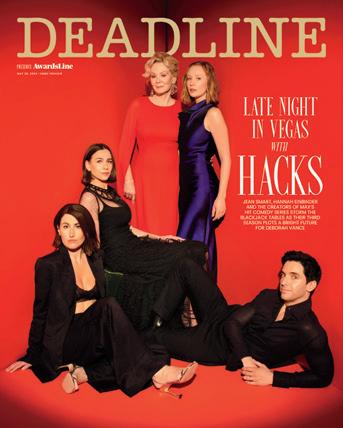
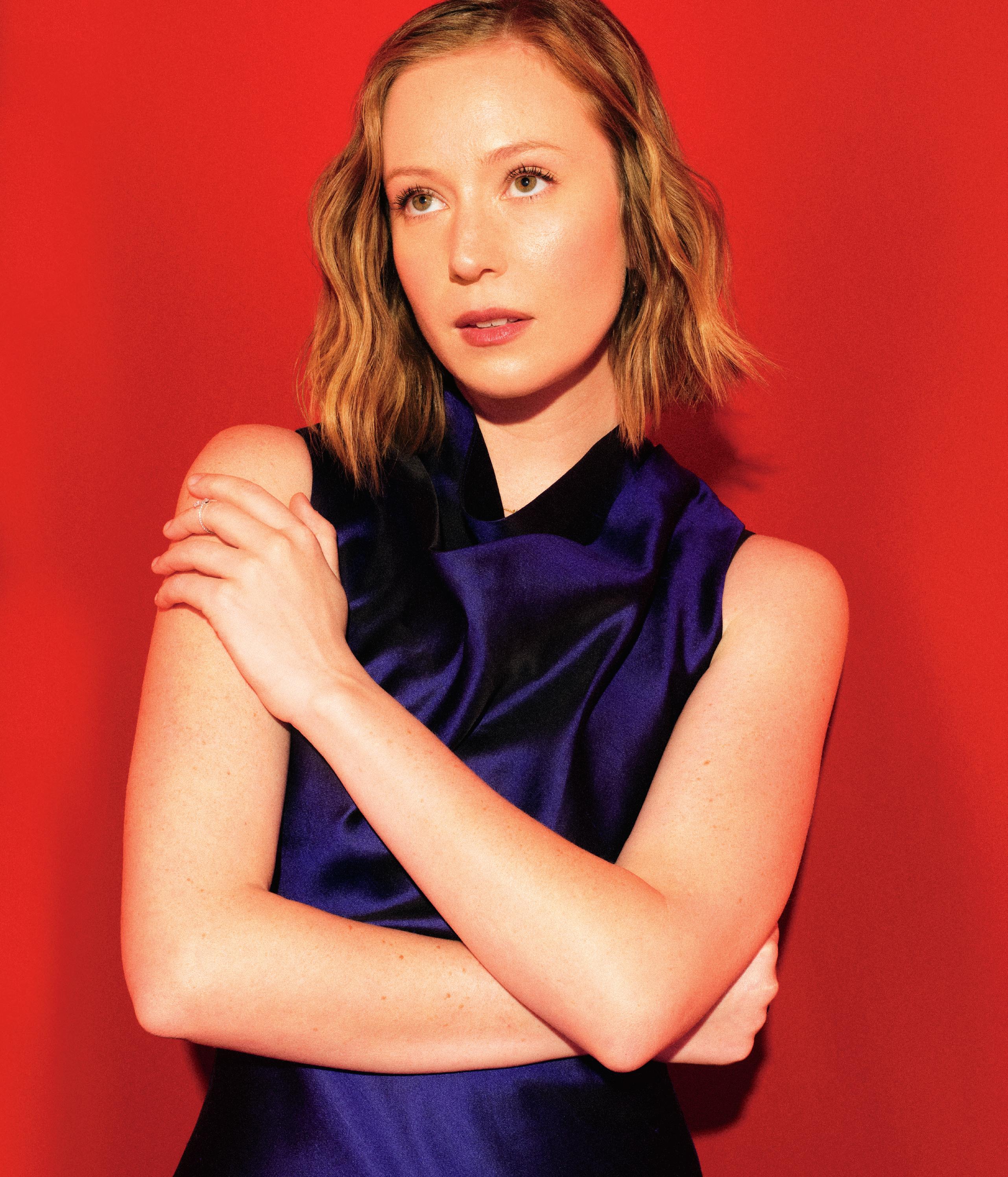
JESSICA CHOU MAY 29, 2024
ON THE COVER
20
From left: Jen Statsky, Lucia Aniello, Jean Smart, Hannah Einbinder and Paul W. Downs photographed exclusively for Deadline by Jessica Chou.
Jean Smart, Hannah Einbinder, and the creative team behind HACKS travel to Vegas to finish Season 3, and Deadline tags along for the ride.
By Joe Utichi
Shot on location in Los Angeles.

Premiere
6 DICK VAN DYKE
Good luck will rub off when he shakes hands with you!
10 CAROL BURNETT
Palm Royale star Carol Burnett on Robert Altman, Nat King Cole and the part that got away.
12 FRESH FACE
Just For Us creator Alex Edelman’s ride from sofa-surfing standup to Emmy nominee.
16 ALL MOST FAMOUS
How the doc world seduced some of the biggest superstars of the ’70s.
Cover Story
20 WHAT HAPPENS IN VEGAS?
Jean Smart takes the Hacks crew to Sin City.
Dialogue
32 RENÉE ELISE GOLDSBERRY
34
38
Craft Services
46 Dive into the production design in Fallout, Halo, and The Witcher
Contenders Gallery
52 The biggest stars in comedy visited Deadline's Contenders portrait studio.
Snapshot
66 DEADLINE STUDIO On the scene at the Amazon Prime Experience.
68 DISRUPTORS ON THE CROISETTE
Check out an exclusive gallery of photos from our Cannes shindig.

icon Carol
By Antonia Blyth
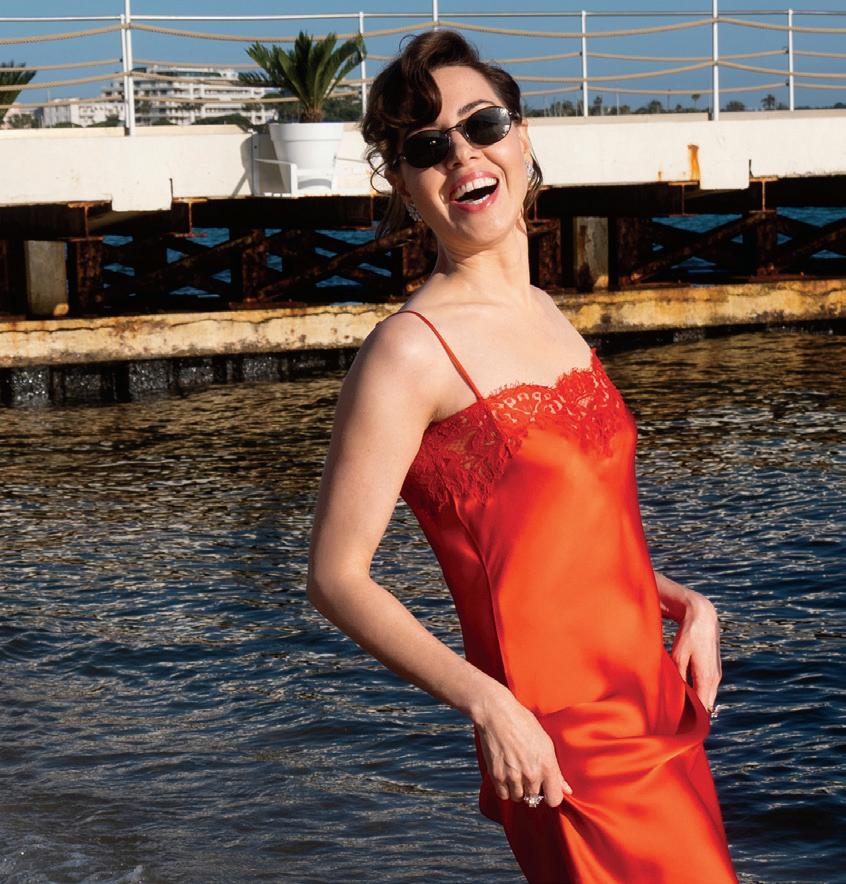

4 DEADLINE.COM/AWARDSLINE CALL SHEET APPLE TV+/JOE UTICHI/PRIME VIDEO
DISRUPTORS
the production
videogame adaptations.
68 46 10
Aubrey Plaza
makes a splash at DEADLINE
ON THE CROISETTE in Cannes; check out our gallery. Boot up your consoles for a look at
design behind
By Ryan Fleming
Comedy
Burnett shares her film and television favorites with us.
MAYA
RUDOLPH
LISA ANN WALTER
THEO JAMES
42

PREMIERE
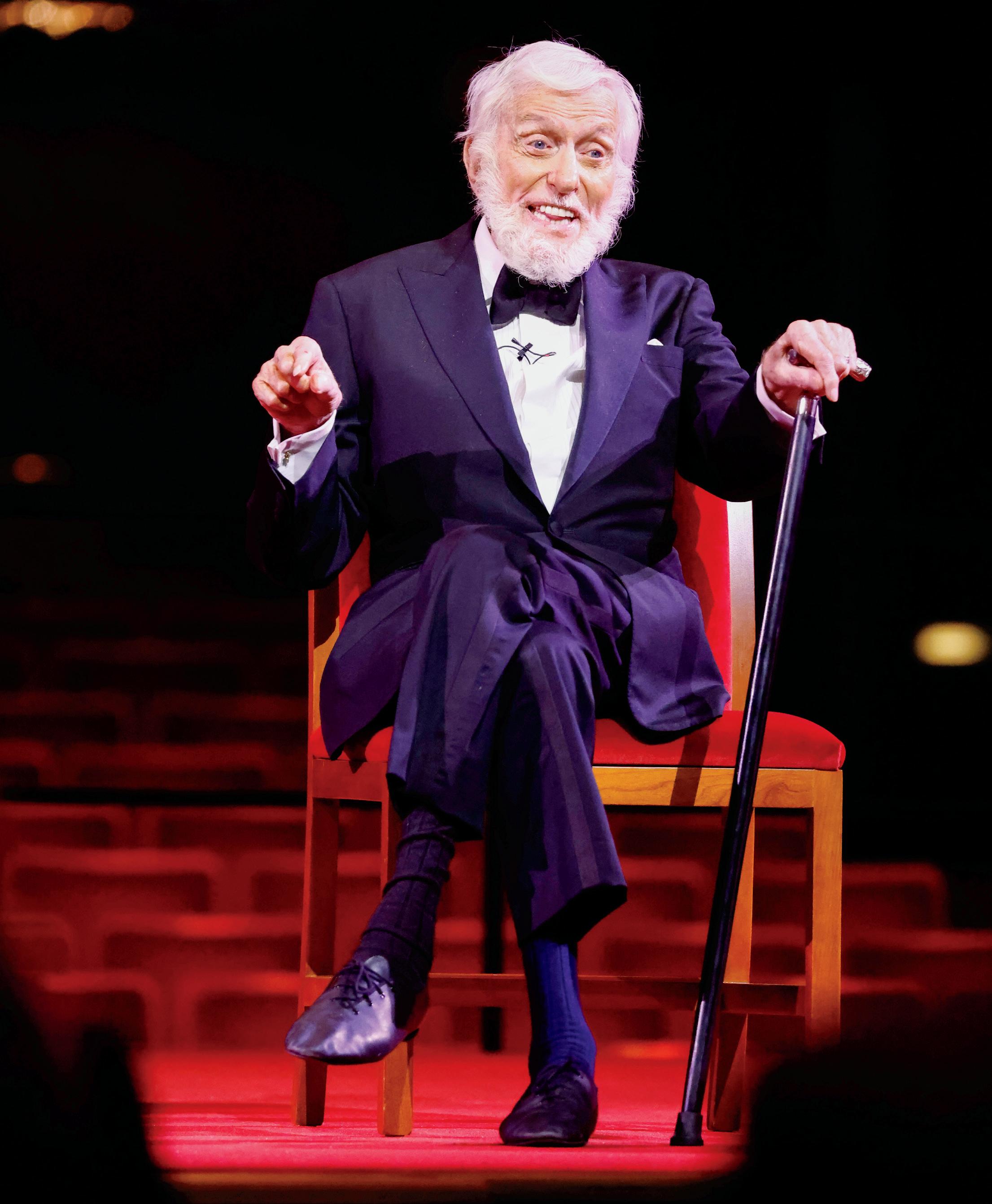
Fountain of Youth
At 98, Dick Van Dyke is still kicking up his heels and raring to take a one-man show on the road
BY OLLY RICHARDS
Legend. Icon. Hero. Dick Van Dyke is unsure how to feel about these terms. “It’s a little hard for me to get my brain around that,” he says, speaking over Zoom from his home in Malibu. “I don’t see myself that way and I can’t comprehend myself as that.”
The 98-year-old has had some time to grapple with the idea. As the star of cultural touchstones from The Dick Van Dyke Show to Mary Poppins to Chitty Chitty Bang Bang to Diagnosis Murder, Van Dyke has been on screen for as long as almost everybody can remember. His first lifetime achievement award was bestowed 30 years ago. The legend label is not new. Perhaps he struggles to accept it because it implies a finality, that your work is complete and you’re now a part of the past, not the present. Van Dyke does not consider himself done. “I’d still like to do a one manshow,” he says. “Cary Grant did it. And Gregory Peck. Went on the road and talked about their careers. I think it’d be fun.”
He certainly wouldn’t be short of material. Van Dyke has been working for more than 70 years now, across film, theater and TV. The biggest screen moments of his career were celebrated in the recent CBS special Dick Van Dyke 98 Years of Magic, a very sweet
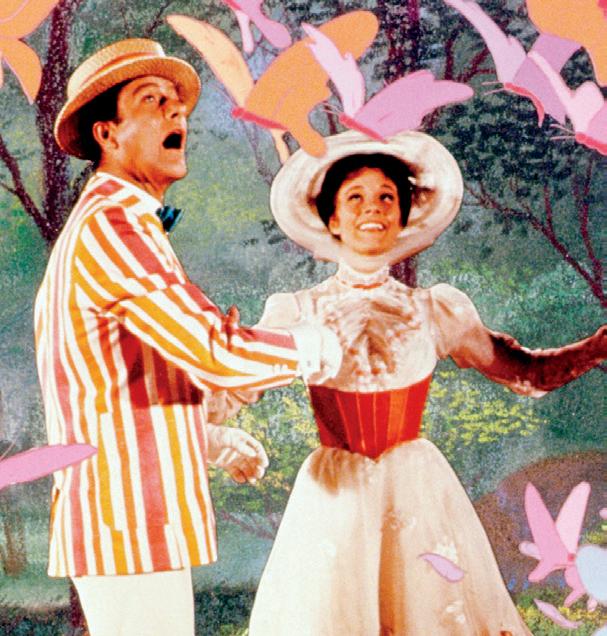
6 DEADLINE.COM/AWARDSLINE
PAUL MORIGI/GETTY IMAGES
WHAT’S HOT, WHAT’S NOT, AND EVERYTHING IN BETWEEN THIS EMMY SEASON.
From left: Dick Van Dyke at the Kennedy Center Honors; with Julie Andrews in Mary Poppins
variety show involving heartfelt tributes and a parade of performers giving their takes on Van Dyke’s most famous musical numbers. The eclectic line-up ranges from Jason Alexander marching through Chitty Chitty Bang Bang to Rita Ora doing a spirited “Supercalifragilisticexpialidocious”. Throughout, Van Dyke, perched in a Chitty Chitty Bang Bang replica alongside his wife Arlene Silver, looks on, grinning from ear to ear, frequently singing along with gusto. His love for his work is, evidently, undimmed.
Dick Van Dyke never really planned for any of this to happen. He couldn’t have plotted a television career because television barely existed when he started out in the early 1940s. “I began at 17 as a radio announcer,” he says. “I got that job because the war was on and everybody was drafted. I was running a radio station every night by myself at that age.” He loved the job, and when television grew in popularity after the war, he thought “Well, I’ll be a television announcer.” He didn’t do that. Instead, he formed a comedy team, The Merry Mutes, with his friend Phil Erickson, which took him around the country, doing local live shows and television spots, and eventually landed him an audition at CBS, where he was signed to a seven-year contract. “They tried me as a game show host, a newsman— everything was a flop!” he laughs. “I was let go after three years and it was the best thing that ever happened to me, because I had to go out and look for work. I went to try out for every theater production going, and eventually happened to get the lead in Bye Bye Birdie.” That was in 1961. He won a Tony for the role and everything snowballed from there. By the end of the year he had his own hit sitcom, The Dick Van Dyke Show, which ran for five
Mary Poppins box office, adjusted for inflation
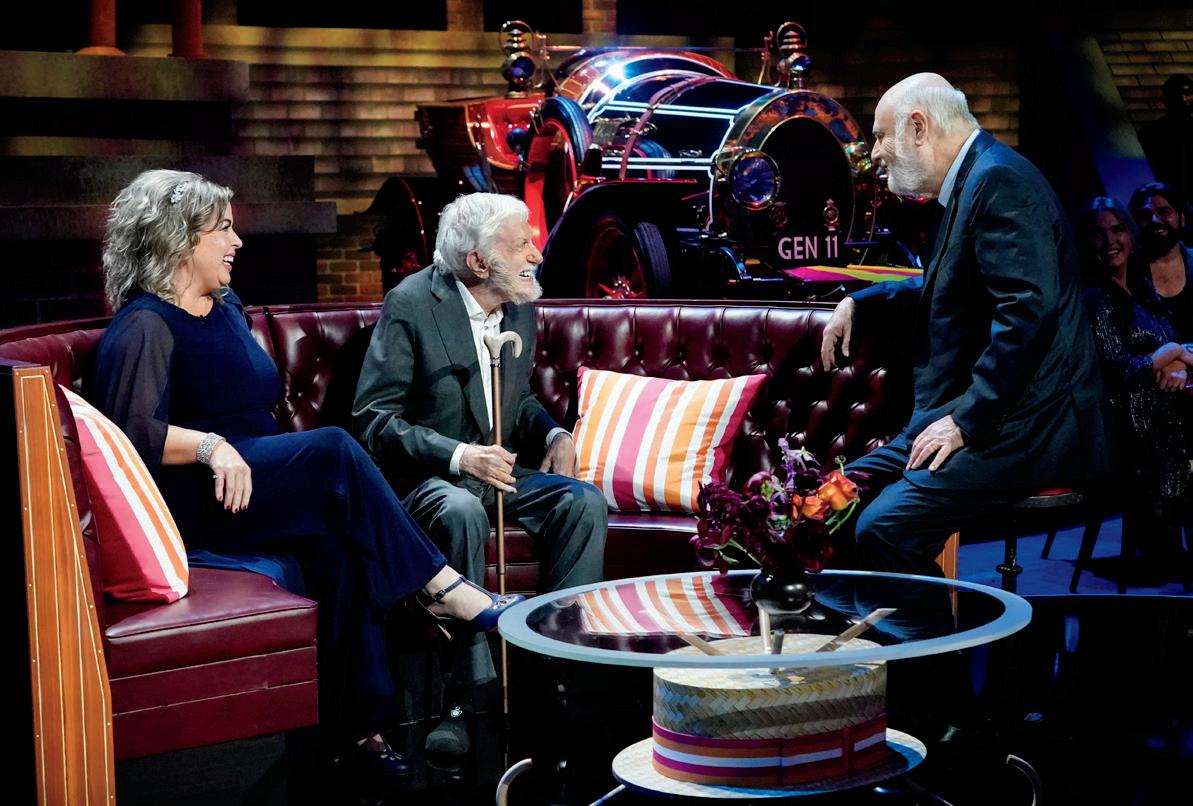
years and won him three Emmys. In 1965, along came Mary Poppins, then in 1968, Chitty Chitty Bang Bang. That trio alone would be enough to earn his place in the history books and in the hearts of generations of children.
He insists he’s never had any real drive and that his success has been pure kismet. But surely you don’t get the career he’s had without a strong sense of ambition? “Well, it was a matter of just enjoying myself,” he says. “I always loved what I was doing. If it had felt like work, I probably would have stopped it a long time ago,” he laughs, “but I just loved it.” When we discuss his work, he politely corrects the word. “I call it my play.”
It's striking just how much of his career Van Dyke can easily recall. He says, “I can’t remember what I had for breakfast… but my long-term memory is only getting better.” He’s 18 months shy of 100 and is of course slower than he was. He sometimes struggles to
recall names, and is occasionally prompted by his wife, who’s sitting alongside him, but the stories come easily. Ask about Chitty Chitty Bang Bang and he’ll launch into an anecdote about having to film the ‘English countryside’ scenes in France because the English summer was so wet. He’ll recall visiting Speakers’ Corner in London while filming Mary Poppins, to “hear all those soapbox orators”, and enquire whether they’re still there. It’s only on some of his more recent projects that his memory fails him. Asked what it was like to revisit the world of Mary Poppins for Mary Poppins Returns, in which he made a cameo riffing on his old man role from the original (the joke being that the senior citizen make-up was no longer required), he says, “I have to be honest, I can’t remember. I really can’t.” He sounds genuinely sorry not to be able to share a story.
Although he’s spent more than 50 years telling stories of his most popular movies, he never grows
“I've always loved what I was doing. If it had felt like work I probably would have stopped it a long time ago.”
A CHARMED LIFE

BYE
was 36 when he made his first film, Bye Bye Birdie. He reprised his 1960 Broadway role for the film and starred on screen opposite Janet Leigh.

CHITTY CHITTY BANG BANG
In 1968, after meeting the James Bond film producer Albert R. Broccoli on Chitty Chitty Bang Bang, Van Dyke was considered to replace Sean Connery as 007. He joked to Broccoli, “Have you heard my British accent?”
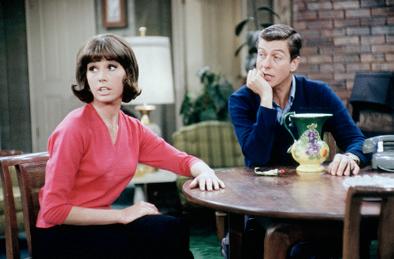
Before working with Mary Tyler Moore on The Dick Van Dyke Show, Van Dyke worried about Moore's comedy chops. In his memoir he wrote, “She didn't seem to have much of a funny bone.”
COMEDY CALL
When Van Dyke was first becoming known, he was shocked to find Stan Laurel's number actually listed in the Santa Monica phone book. He called him and confessed to borrowing from his comedy. “Oh I know,” Laurel said.
7 DEADLINE.COM/AWARDSLINE MONTY BRINTON/CBS VIA GETTY IMAGES/EVERETT COLLECTION
BYE BIRDIE Van Dyke
715M
THE DICK VAN DYKE SHOW
L to R: Arlene Silver, Van Dyke and Rob Reiner on Dick Van Dyke 98 Years of Magic
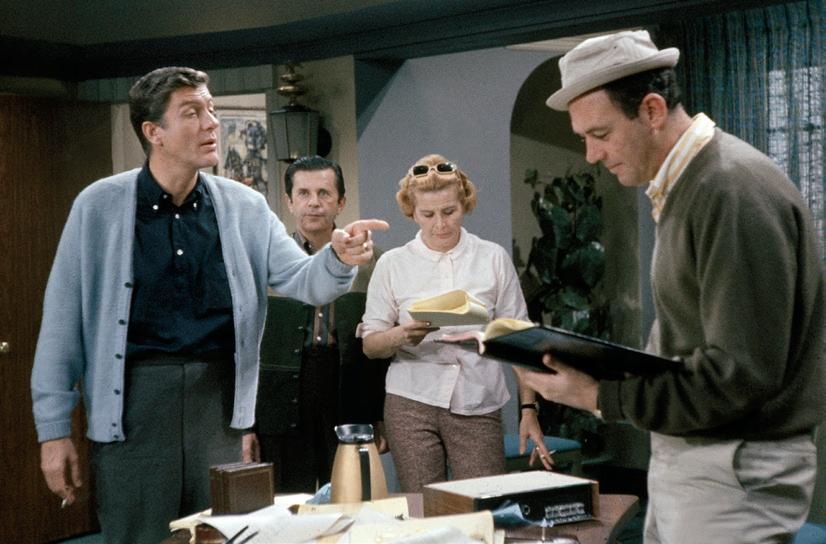
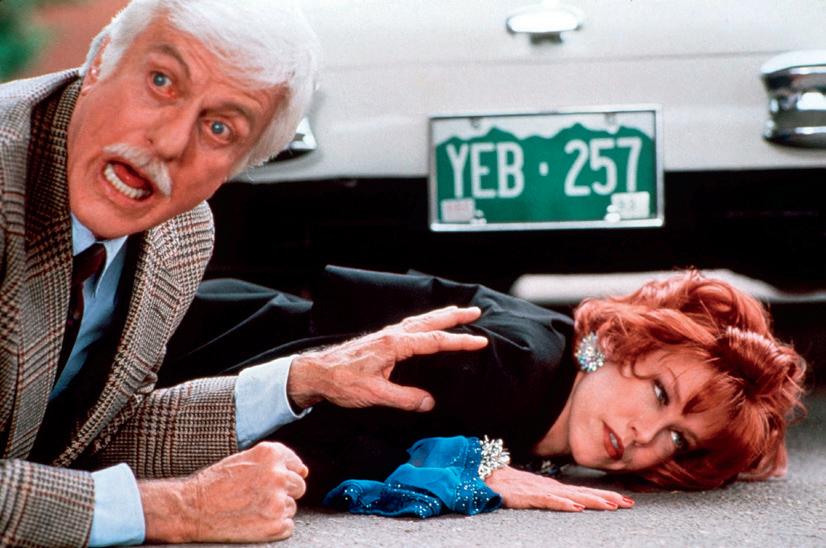
weary of it. “Nobody ever tires of talking about themselves,” he jokes. The only part he starts to find harder is that he’s one of the few left who can talk about his most beloved projects. Aside from Mary Poppins co-star Julie Andrews, almost all of his early collaborators have passed on.
“There is a kind of sadness in [watching 98 Years of Magic],” he says, “because all of the wonderful people that I loved and worked with over the years have gone. I realized I’ve outlived an entire generation… I miss Rose [Marie] and Morey [Amsterdam] and all the wonderful people I worked with over the years. They should have been there.” The loss of Carl Reiner, The Dick Van Dyke Show’s creator and Van Dyke’s dear friend, is the hardest for him to sit with.
“I think I learned more from Carl Reiner than anyone else,” he says. “He understood comedy. He understood drama. He had a sense of timing like nobody else. And he was just so sharp and bright and a philosopher on top of it. He was the finest human being I ever knew.”
Van Dyke has always said he’ll never retire. And he means it. “I’ve just done my first soap opera!” he says excitedly of his
guest spot in Days of Our Lives, for which he’s up for a Daytime Emmy. “Never done that before! I played an old guy, of course, in a wheelchair. My wife played my attendant.” And there are still those aforementioned ambitions to take a one-man show on the road. This unwavering excitement about what’s to come is a large part of Van Dyke’s enduring charm. He is endlessly positive. He refuses to dwell on anything gloomy. Every bad thing that’s happened in his life is framed as a path to something better. In the past, when he’s talked about his struggles with alcoholism (he’s been sober for many years), it was
generally a reason to talk about the strength of his family and his good fortune at coming out the other side. Asked if there’s anything that ever riles him, he pauses for quite some time. “Watching the news,” he offers. “Any time I turn on CNN.” He does allow the slightest hint of regret that his dramatic work is not as recognised as his comedy. He mentions talking to a producer after 98 Years of Magic and saying, “‘You know, I did some dramatic movies. Why didn’t you show those?’ And he said, ‘Nobody wants to see you be serious!’” He laughs, but there’s a truth in it. He took dramatic roles, and in some cases, like the show Diagnosis Murder, which ran for seven years, they were big successes. Yet it will always be the comedies and musicals that will leap to people’s minds immediately on hearing his name. He’s just fine with that.
“You know, yesterday I was
looking at Facebook,” he says, “and there was a video of a toddler in diapers trying to imitate me doing my dancing in Chitty Chitty Bang Bang. And he had the moves! I just almost cried. Sixty years later, a little baby trying to dance like me.” Moments like this are not rare for him. “I’m on my third generation now of kids who are writing to me. And I’m getting wonderful mail from their parents thanking me for providing good entertainment for their kids. They’re so kind about it. That I really appreciate. I’m so lucky.”
You can guarantee this won’t be the last generation to delight in his work. Even when Van Dyke is no longer around to receive the letters, and probably after most of us have gone too, there will still surely always be a toddler somewhere, impeded by their own diaper, trying to pull off their own version of a Dick Van Dyke dance. ★
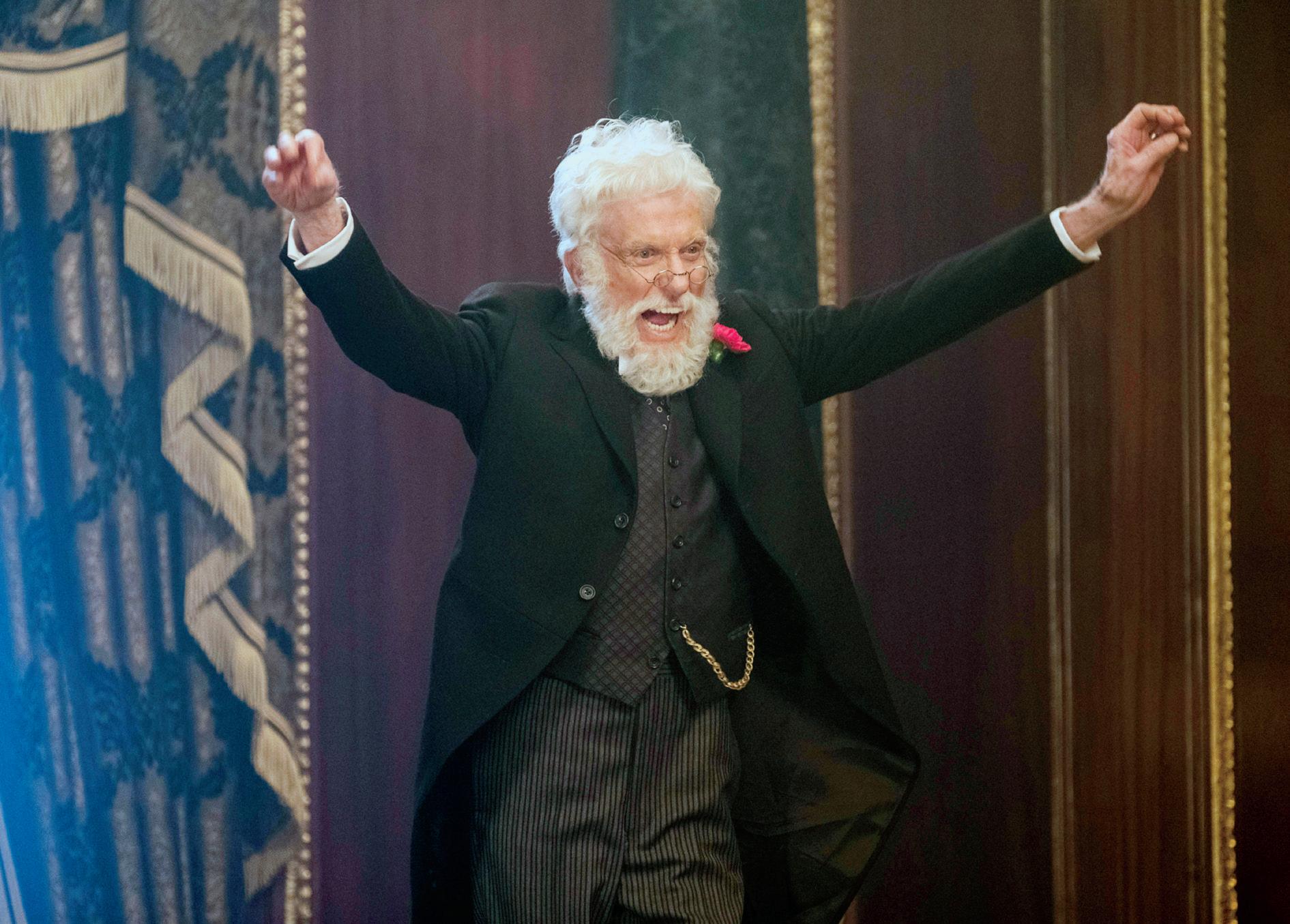
8 DEADLINE.COM/AWARDSLINE ZINN ARTHUR/TV GUIDE/CBS/EVERETT COLLECTION PREMIERE CLOSE-UP
Van Dyke in Mary Poppins Returns
From top: Van Dyke with Morey Amsterdam, Rose Marie and Jerry Paris on The Dick Van Dyke Show; with Haviland Morris in Diagnosis Murder




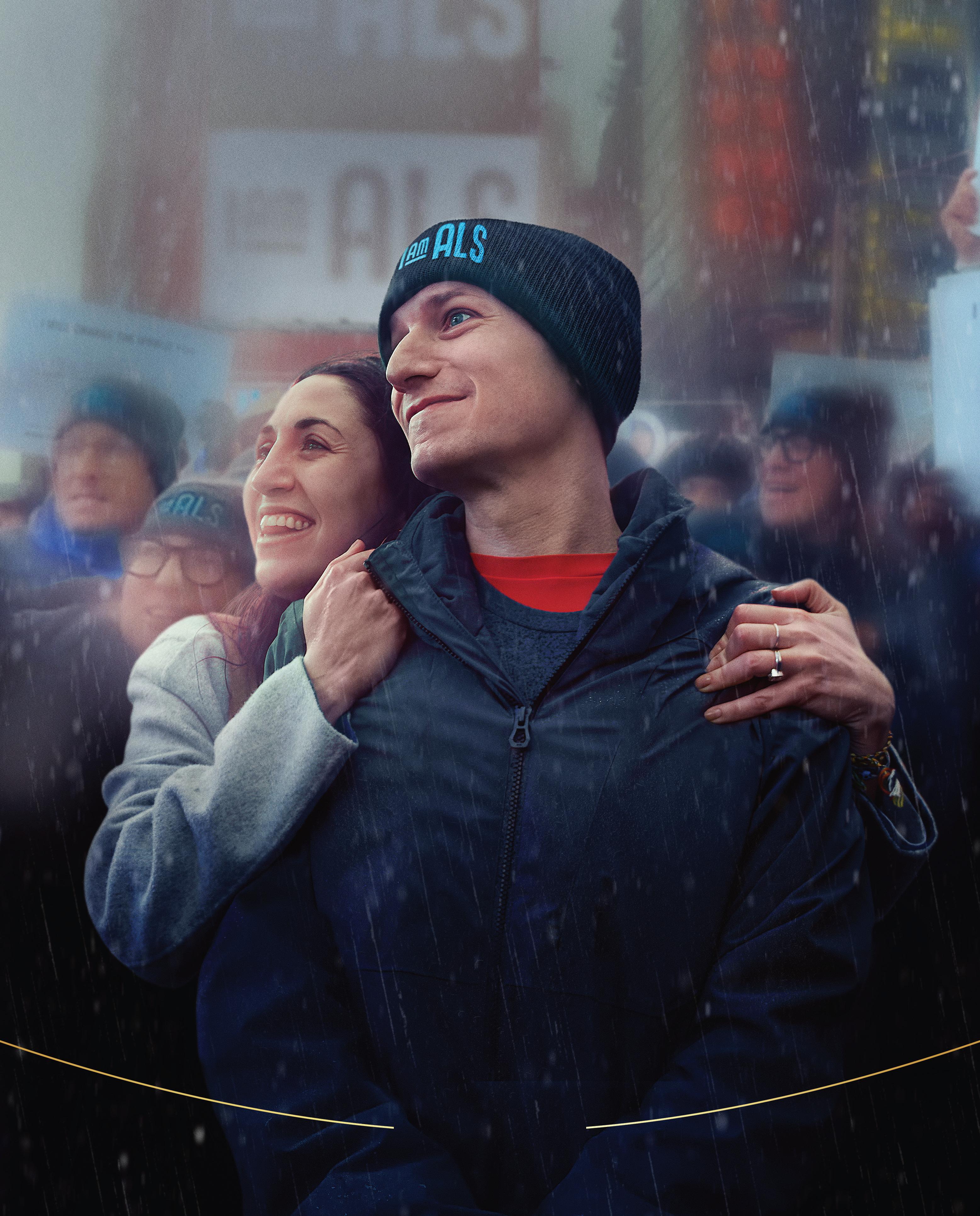




Carol Burnett
The comedy veteran talks Palm Royale, screen favorites, and why they just don’t make ‘em like they used to
BY ANTONIA BLYTH
In the first few episodes of Apple TV+ series Palm Royale, Carol Burnett is entirely horizontal. And rightly so, since her character Norma Dellacorte in a coma. Fortunately though, Norma recovers in time to rip through some seriously juicy scenes with Kristin Wiig, who names Burnett, who turned 91 in April, as her career inspiration. “When they told me who was going to be in it,” says Burnett, “Kristen Wiig and Allison Janney and Laura Dern and Ricky Martin and Julia Duffy, I said, ‘I don’t care what it is. I want to be a part of it.’” From Burnett’s early days hosting long-running comedy-variety series
The Carol Burnett Show, to films like A Wedding, Annie and Mad About You, to Better Call Saul, she has blazed a trail, garnering seven Emmys, a Tony and a Grammy along the way. Here, she recalls some favorite memories, picks her best karaoke song and reveals who should play her in her biopic.
My First Screen Lesson I was doing The Garry Moore
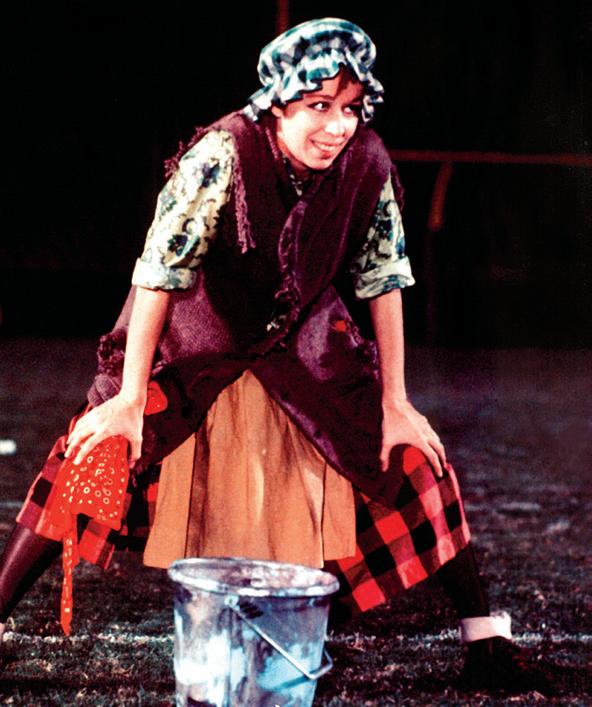
Show. I was in my 20s, and I was second banana on the show. There was also another second banana on the show, Durward Kirby. I remember sitting around reading the script for that week coming up, and Garry would say, if he had a joke or punchline or something, “You know what? Give this to Carol or give this to Durward. They can say it funnier than I can.” That’s how generous a star he was. He said, “I want my people, everybody to score, and it only makes the show better.” I took that lesson to my own show. Yes, it said The Carol Burnett Show, but there were times when I’d be supporting Harvey [Korman], or I’d be supporting Tim [Conway], or Vicki [Lawrence] would be supporting me. It was a true rep company.
The Best Advice I Have Ever Received
Some of the old adages like, “ This too shall pass.” If something isn’t going well, you know that it can turn on a dime and get better. That’s what I always try to think. If something’s not going well, that doesn’t mean it’s going to always be that way.
The Part I Always Wanted
Well, I can’t do it because of my age, but way back, I would’ve loved to have done Mame, the musical. I love that. I love the music. I love the part. And it just never came up that I would have the opportunity to do it. It’s very well written and it’s funny and she’s way over the top, and the music, the songs. There were

some wonderful, wonderful numbers. That’s something that, when I was younger, I wish I’d had the time to do, even if it was just in summer stock.
The Most Fun I’ve Had On Set
I think maybe the most fun was when I worked for Robert Altman, and it was called A Wedding. He created an atmosphere. It was almost like you were at recess at school. Before we started shooting, he was telling us the plot, and there were about 25 of us in the cast and he said, “If you ever have an idea about your character or a scene that you want, I want you to come to me with it because some of my best scenes were written by some of my actors.” You never hear that from a director. One of the best scenes, he said, in the movie is when Pat
McCormick and I—I’m the mother of the bride—are dancing at the reception and he starts to come on to me. Pat and I had an idea for it, and we went to Bob and he said, “OK, go write it.”
The Films That Make Me Cry
Oh, I’m a sucker. As much as I know it’s acting, and I’ve been on set, and I’ve been in movies and everything, I get very caught up in stories and I believe them, and I suspend all belief about, well, I know what they’re doing here in this scene. And always, I cry at It’s a Wonderful Life. That’s my favorite movie and Jimmy Stewart was my favorite actor. And I got to know him. We became friends, and he said that was his favorite movie that he did. And it was Frank Capra’s favorite movie that he directed. I watch it every
10 DEADLINE.COM/AWARDSLINE PREMIERE On My Screen EVERETT COLLECTION/APPLE TV+
The Carol Burnett Show



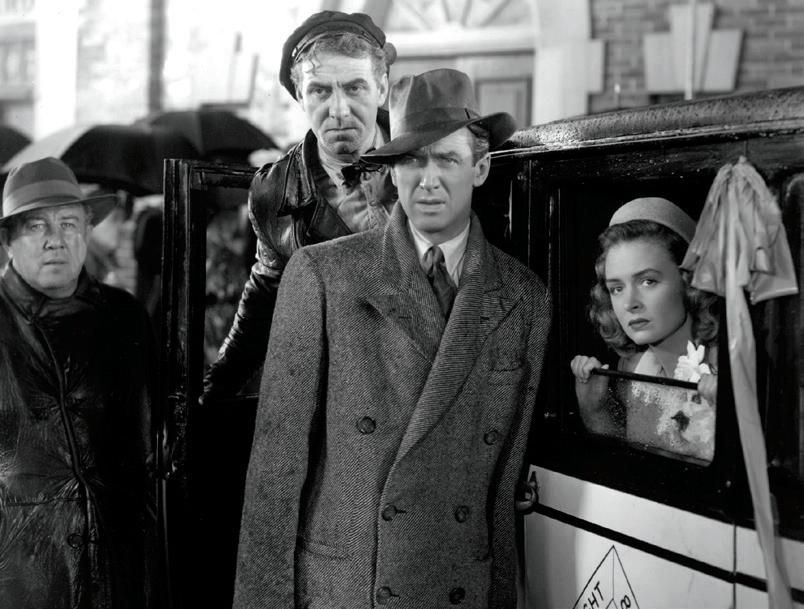
Christmas and I cry every time, even though I know what’s coming.
My Most Quoted Role
A lot of times people come up to me if we’re out to dinner or something and they want to come by the table, they’ll say, “I’m so glad we had this time together.” Which is my closing song [from The Carol Burnett Show], so maybe they’re quoting me. And they’ll wave and tug their earlobe. [My grandmother] wanted me to, the first time I was on television, to say hello to her, and I said, “They’re not going to let me say hello, but I’ll pull my ear and that means hello and I love you.”
My Toughest Challenge
I would say Friendly Fire. That was a very well received, dramatic, true-life story that was based on the book. I was very surprised when they asked me to do it because it was a very serious role and it was playing a woman who’d existed, who lost her son in friendly fire. It was a challenge for me, not to do it so much, but to
hope that people would accept me as something other than a comedian. And luckily, I had a good director, David Greene, and the writing was sensational. Both Ned Beatty and I, we were nominated for Emmys. That was kind of a turning point for me, where people would start to accept me as an all-around entertainer and not just a comedian.
My Guilty Pleasure
Turner Classic Movies. Every day I go to that station to see if there’s something I want to TiVo. And it’s usually some old movie that I loved or knew when I was a kid and I want to revisit it. I love the old movies. I love everything in black and white. There are certain classic movie stars that existed then, the likes of which I haven’t seen since. When you think of a Jimmy Stewart or a Cary Grant or Barbara Stanwyck or Joan Crawford, Bette Davis, I could reel off all of those and there’s nobody today that is like that. There’s some wonderful actors and actresses, and very talented, but there’s something about the ’40s, when I was growing up. Maybe it’s because I’m this old, but there’s a difference.
Who’d Play Me In My Biopic
I have been asked this before, and I always say, Angelina Jolie. And Kristen [Wiig] would be wonderful because she could do it all.
My Karaoke
Playlist
“Here’s That Rainy Day”. I love that song. I remember the first time I ever heard it, Nat King Cole was singing it and it was just so beautiful. And when I had my show, I remember I asked Mel Tormé to sing it on my show, and I asked Steve Lawrence to sing it on my show. It was so beautiful. And I understand it was Johnny Carson’s favorite song. The last show he did, Bette Midler came on and she sang “Here’s That Rainy Day” to him, it was so sweet. ★
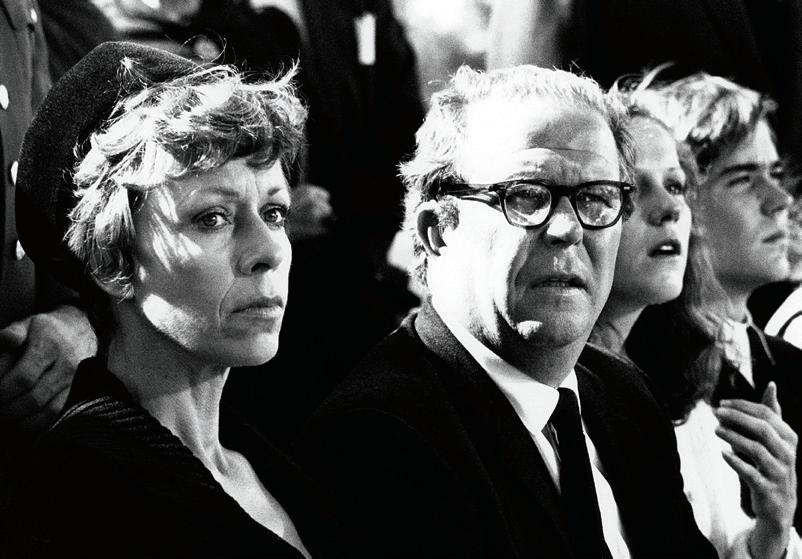
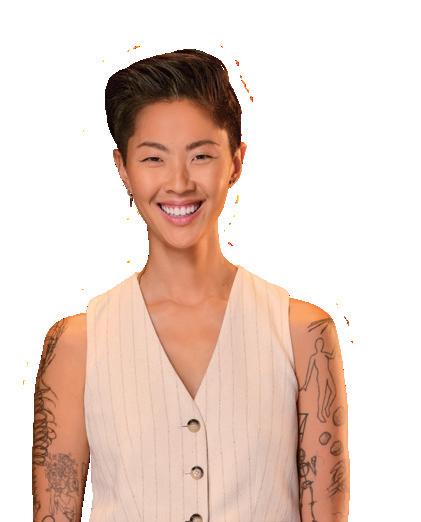

New Heat
Top Chef host Kristen Kish on stepping into a new role with familiar responsibilities
She may be new to hosting Top Chef, but this experience isn’t that new for Kristen Kish. As the winner of Season 10, Kristen Kish was chosen to host when Padma Lakshmi announced her departure from the series after almost two decades. Though the task seemed daunting at first, Kish quickly realized that presenting a hit reality TV show it wasn’t all that different from being a chef. “Within the first few days, I was realizing that it was so much more similar than different,” she says. “You address chefs in your restaurant all the time, and you talk about food all the time. You give facts, you hold people accountable, you answer questions, you have conversations with people in the industry… I’ve done all this stuff before.”
One of the biggest highlights for Kish is getting to see each chef’s journey as they grow through the competition. “I never had that vantage point before of being part of the whole season from start to finish, from the first one eliminated to the last one standing. To be able to watch that and learn about the chefs through their food through the entire course of the season was really fun.”
As a former contestant, Kish has learned to spot when a chef has had something go wrong. “Everyone handles the stress and the mistakes differently, and some people like to call them out immediately. My advice is do not call yourself out until you get called out, and then you can talk about it. Let’s not talk about errors before they’re even noticed, because sometimes I can’t tell it’s a mistake because it’s still a great dish.” —RYAN FLEMING
EVERETT COLLECTION/DAVID MOIR/BRAVO 11 DEADLINE.COM/AWARDSLINE
Left: Kristen Kish. Below: Cooking in the Top Chef kitchen.
Clockwise from far left: Carol Burnett in Palm Royale; with Garry Moore on The Garry Moore Show; with director Robert Altman on the set of A Wedding; It's A Wonderful Life Friendly Fire
Quick Shot
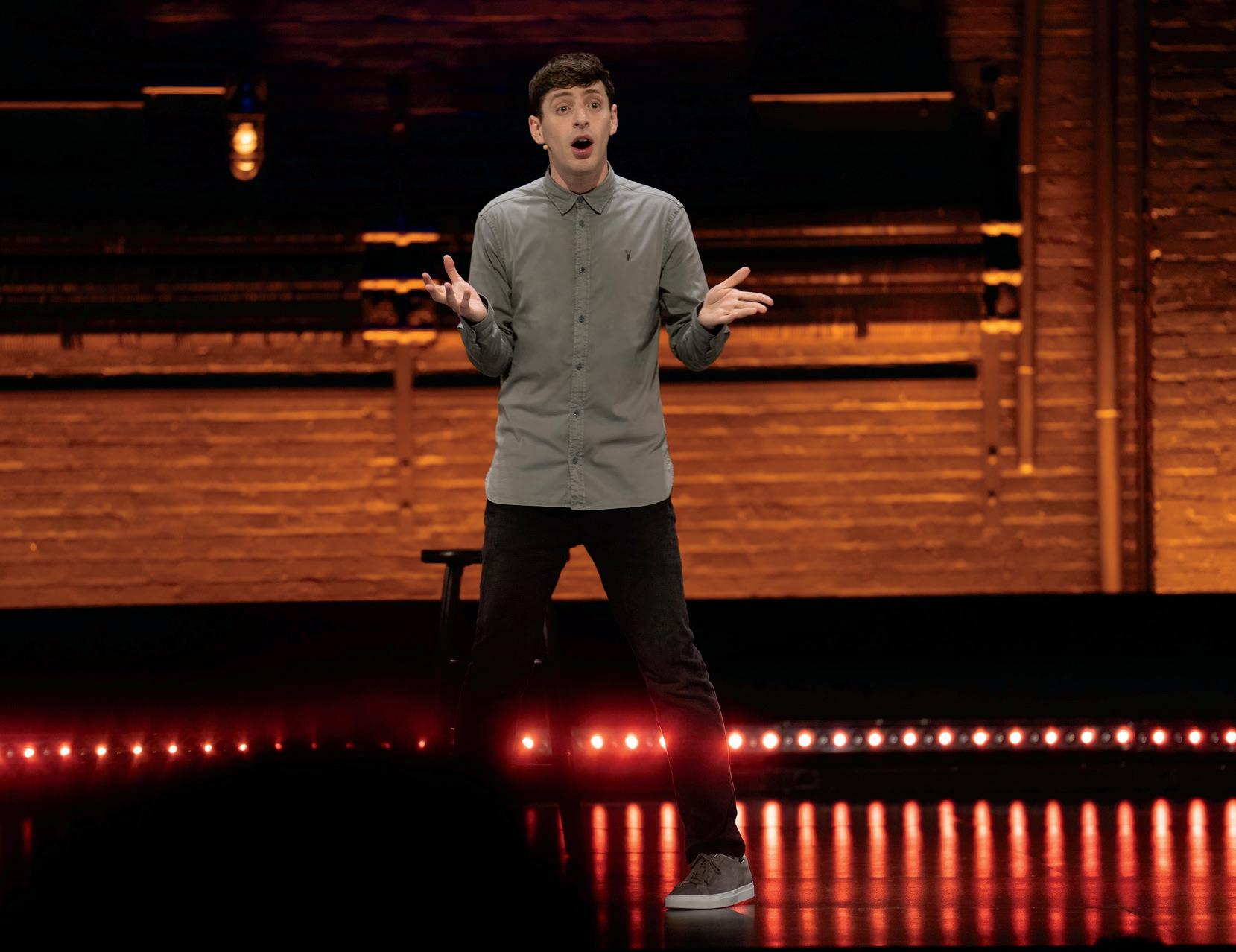
Alex Edelman
The Just For Us creator tells how he took the lessons from doing comedy shows at the Edinburgh fringe festival and turned them into an HBO hit
BY PETER WHITE
Alex Edelman, the comedian behind HBO’s Just for Us special, was studying in London when he walked into a pub in Soho.
“About a month in, I was at the bar and this lady was standing next to me when a fella on the other side of me grabbed my ass,” Edelman says. “I look at the lady and I said ‘Can you help me? This guy’s got a rather firm grip on me.’”
The lady? Phoebe Waller-Bridge.
“We’ve been friends since then. I stayed on Phoebe’s mother’s couch. She’s a big part of my
artistic incubation; I went to the first previews of Fleabag, I saw it more than a dozen times in small rooms with less than 30 people. Then I saw it in Edinburgh where it was a phenomenon.”
Edelman similarly created something that played at the Edinburgh Fringe Festival that has recently become a phenomenon.
Just For Us launched on HBO in April but it was incubated in London and Scotland. In the 90-minute special, Edelman goes from telling jokes about Koko the Gorilla’s love for Robin Williams,
to tales of his Winter Olympian brother and his unconventional childhood Christmas, as well as a centerpiece about attending a meeting of White Nationalists.
“Edinburgh gives comedians and artists unfettered control and when you do that you get really good work. I’ve had really great collaborators and lots of creative freedom through places like the Soho Theater. It’s a community of people that goes to see each other’s work, help each other and fosters things for reasons that have nothing to do with ego or money. It’s very close to
as wholesome an artistic experience as you can possibly find. The point is to get drunk and have a good time.”
Edelman has collaborated with the likes of Adam Brace, the British director who died in 2023, and Mike Birbiglia, to get Just For Us to a place where it won a Tony Award and is now up for Emmys in categories including Variety Special (Pre-Recorded), where it will compete against the likes of Dave Chappelle, Ricky Gervais, The Greatest Roast Of All Time: Tom Brady and Birbiglia himself with his The Old Man & the Pool special.
“In this long-form world, I found a new métier for myself. The show has thankfully been described in very lofty terms, but, truthfully, it’s just a very well worked Edinburgh show,” he says.
The show has changed over the course of six years; he reckons that around 40% of the material is the same, and that some jokes changed over the years, but the most important thing is that the show never had a script. “I wanted the show to be able to be a breathing thing. When it came time to lay it down for HBO, I had a real think on my feet about what I thought would be the best version of it in terms of timelessness and timeliness,” he says. “The show evolved a lot.”
The centerpiece is about how, after being subjected to antisemitic comments on social media, Edelman decided to attend a meeting of white nationalists in Queens, New York. The meeting was as awkward as you might imagine, but the story itself highlighted the themes of empathy, identity, belonging and community.
One of the other key stories from the special revolves around one Christmas at the Edelman home. When a friend of his mother is alone for the holidays, Edelman’s mother Kate offers her the chance
12 DEADLINE.COM/AWARDSLINE PREMIERE Fresh Face HBO
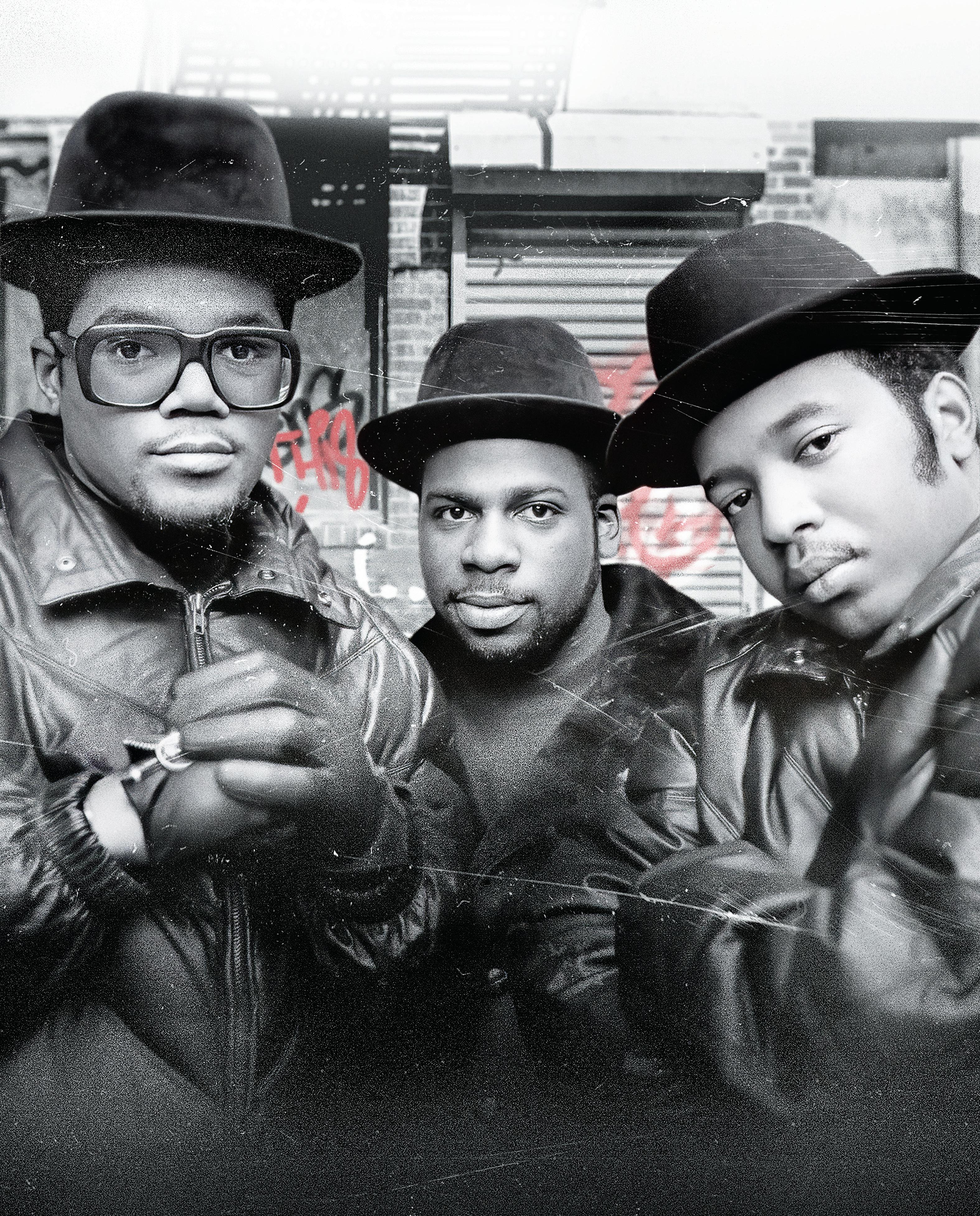
“AN EMOTIONALLY UNFILTERED HIP-HOP REUNION.”
COLLIDER


FOR YOUR CONSIDERATION OUTSTANDING DOCUMENTARY OR NONFICTION SERIES
to have Christmas at their house, despite the fact that they are Orthodox Jews. Edelman’s father then has to explain why Alex and his brother got to meet Santa Claus.
Edelman is now turning that story into a movie, which is in the works with A24, with Wicked and Dear Evan Hansen producer Marc Platt and Adam Siegel producing.
“I'm almost done with the draft, which I'm excited about it. It's really weird,” says Edelman. “What's so strange about that story is that it’s so true. I sometimes worry that I haven't done my job.”
Edelman is also considering directing the film and could possibly star in it, although he hasn’t completely decided.
The story took a twist during a recent performance at the Kennedy Center in DC. His mother’s friend Kate came to the show and Edelman got to speak with her.
“That was my first time seeing her since I was that age,” he said.
“I said, ‘I’m sorry if anything was incorrect.’ But whether she was just being nice, she said, ‘That’s how I remember it.’ Then she asked me, ‘Do you remember that you always wore double denim?’ I didn’t remember that, but then I thought about it and I realized I did wear a lot of denim. It felt like armor.”
Just For Us isn’t Edelman’s first special; he previously performed Millennial around 2015 and Everything Handed to You in 2016, and also appeared on a number of British shows such as The John Bishop Show
“I’ve done three solo shows. They've all been, to a degree, well received, but this thing found red. I’ve never had anything resonate with people the way that this has resonated with people. You’ve got to take that when you can,” he says.
Edelman also worked on a number of television shows that influenced him greatly, shows that you might not have expected him
Quick Shot
Altar Egos
How costume designer Christina Flannery brought a psychedelic flair to The Righteous Gemstones
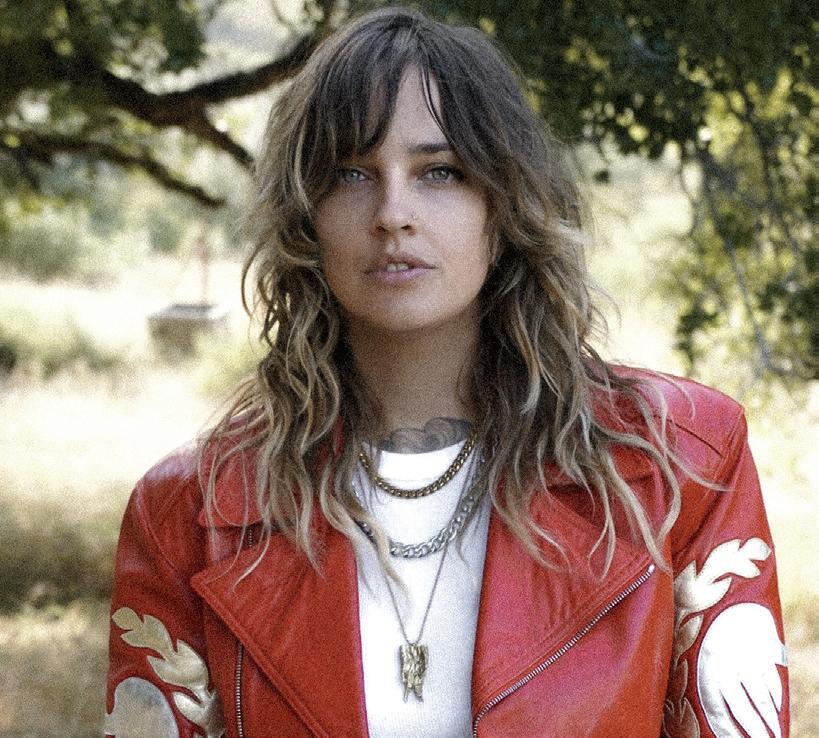
Coming into a series that has been on for two seasons doesn’t always leave a lot of room for new ideas, but costume designer Christina Flannery says she was thrilled with the opportunity to embellish and elevate the established characters for the third season of The Righteous Gemstones “Time had passed, so we were able to show that the three siblings
to work on—CBS sitcom The Great Indoors and Netflix teen comedy drama Teenage Bounty Hunters
“I love being in writers’ rooms,” he says. “I learned a lot about what I wanted and didn’t want from being in writers’ rooms with other writers. I would not have been able to write this show without learning from writers like Chris Harris and Liz Feldman on The Great Indoors.”
Harris went on to become showrunner of the Frasier reboot and Feldman created Netflix’s Dead to Me, while creator Mike Gibbons recently wrote on The Roast of Tom Brady
“Then there was Jenji [Kohan]. I learned nearly as much from her when I was redoing [Just for Us] after the pandemic because she taught me much more about character. I learn so much from being in a writers’ room and on a set,” he says. “It’s imperative for me to get outside of myself and
take opportunities that I’ll learn something from and that will equip me better.”
Together with Edelman, Kohan, who created Weeds and Orange Is the New Black, has written a script based on Chaim Potok’s book My Name Is Asher Lev, about a loner Jewish boy in New York who has artistic inclinations and ambitions that cause conflict with members of his family and community.
“It's my favorite thing I've ever written from a scripted perspective, and if there's a world where I can make that, nothing would make me more pleased. I don’t want to say I’d die happy but I really love it,” he says.
Edelman remains a stand-up comedian and has been in the comedy clubs a lot over the last few months. He’s previously said that his next show will probably be about Israel and Palestine. “I’m at the club seven nights almost, it’s where I feel most sane and viscerally connected.” ★
were taking over the church and I was able to push my own look into it for sure,” she says. “The costumes of season one and two are great, but I definitely think that my injection of these psychedelic neons and rhinestones took the baseline and allowed us to fold out the characters more.”
The main task was to dress Gemstone siblings—Jesse (Danny McBride), Judy (Edi Patterson) and Kelvin (Adam DeVine)—as they take over their father’s megachurch.
“For Jesse’s character, I spent more time leaning into the Tony Soprano kind of mobster, with higher-end designer pieces like
Versace and Dolce & Gabbana.” Kelvin, the youth pastor, had an appearance change after Flannery did some research on popular TikTok preachers.
“Before, he was kind of a Christian, rock bandtype guy, but I decided to completely change him to be more like a
sneakerhead. Then with Judy, she was already doing a lot of fun stuff so I was able to expand on it. I wanted to tie her in with the way I took Aimee-Leigh [Jennifer Nettles] in my season, so you could see Judy wearing a lot of her mother’s clothing.”
—RYAN FLEMING
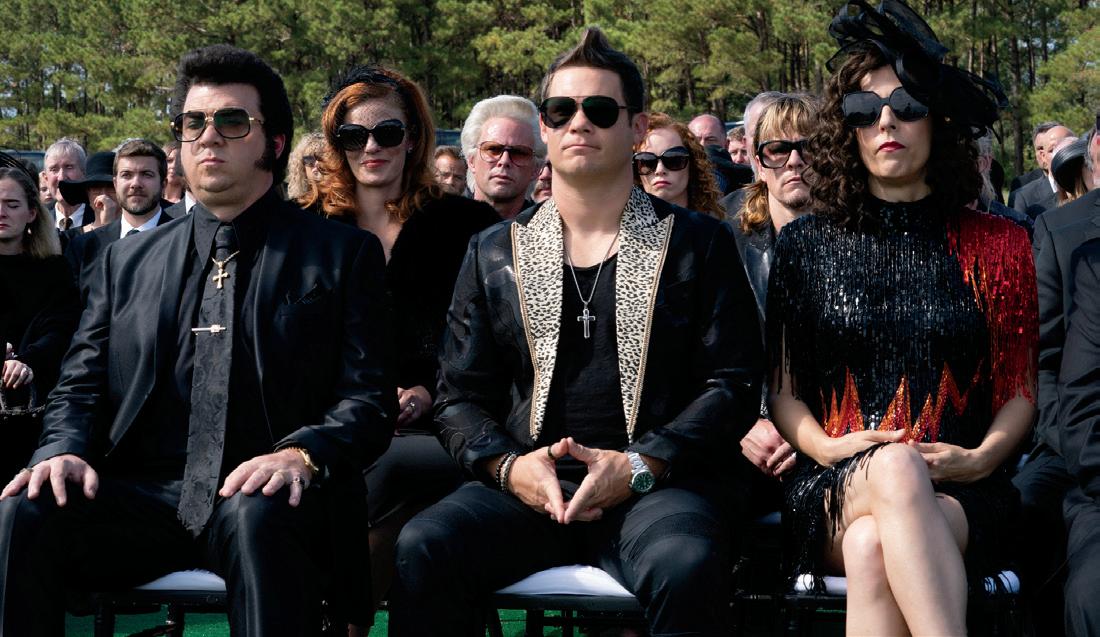
PREMIERE Fresh Face 14 DEADLINE.COM/AWARDSLINE
JAKE GILES
NETTER/HBO
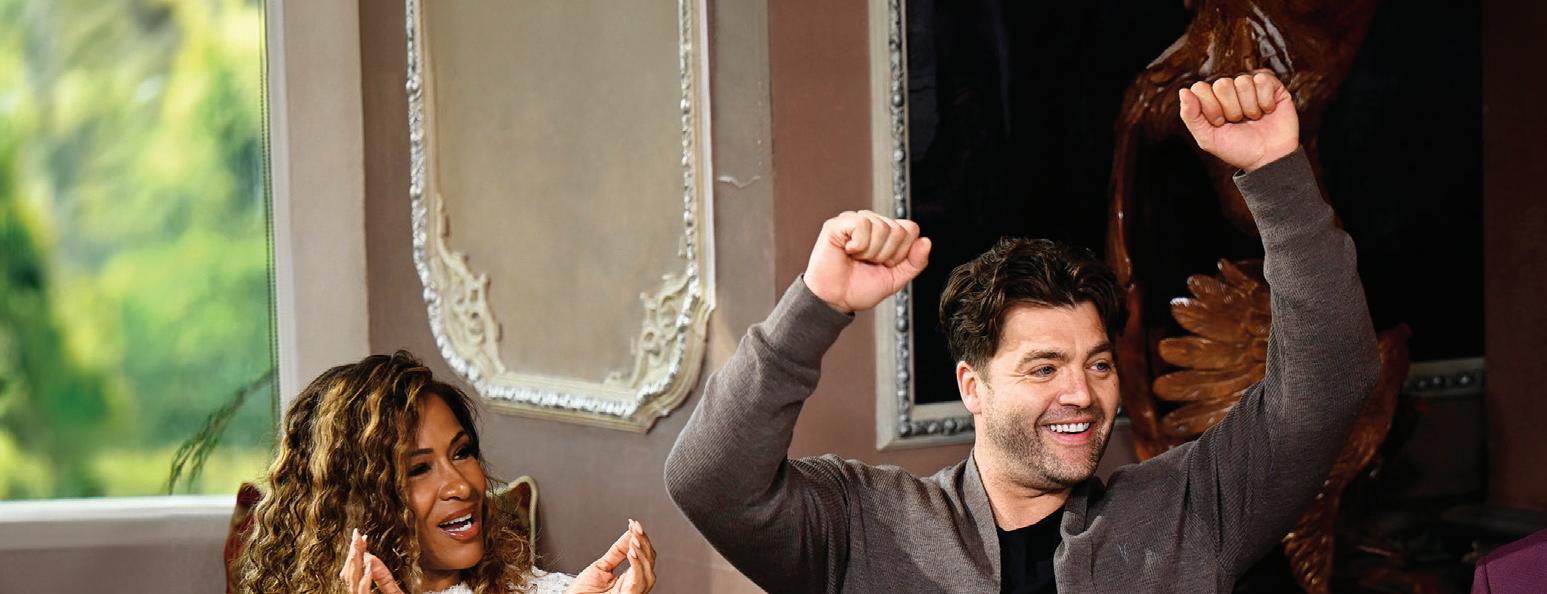


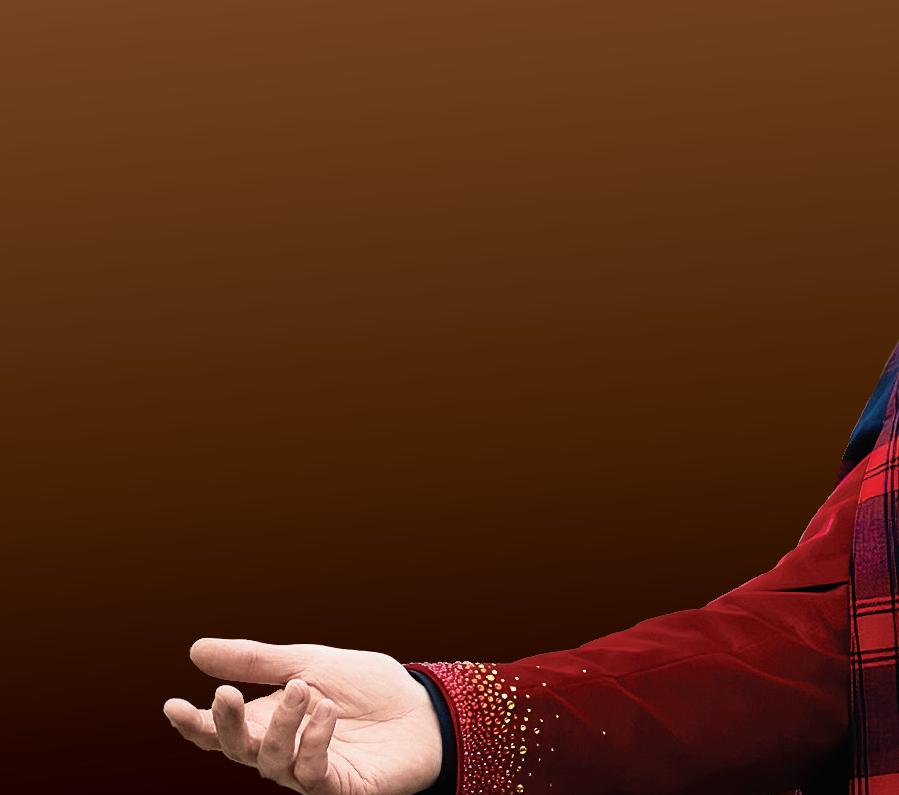


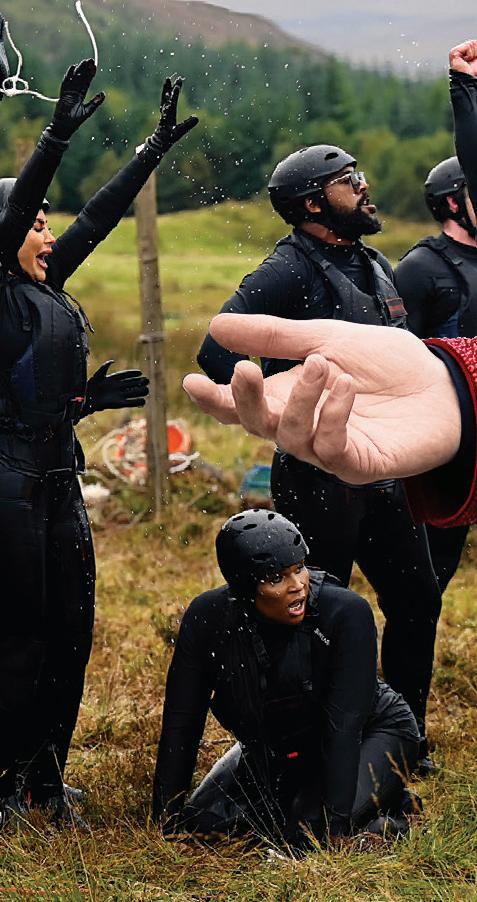





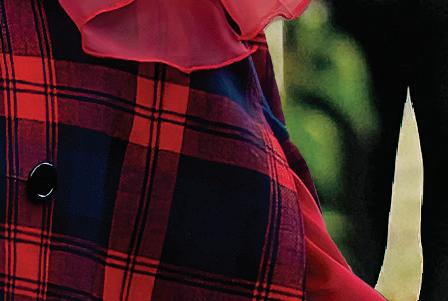
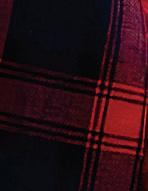
FOR YOUR CONSIDERATION
OUTSTANDING REALITY




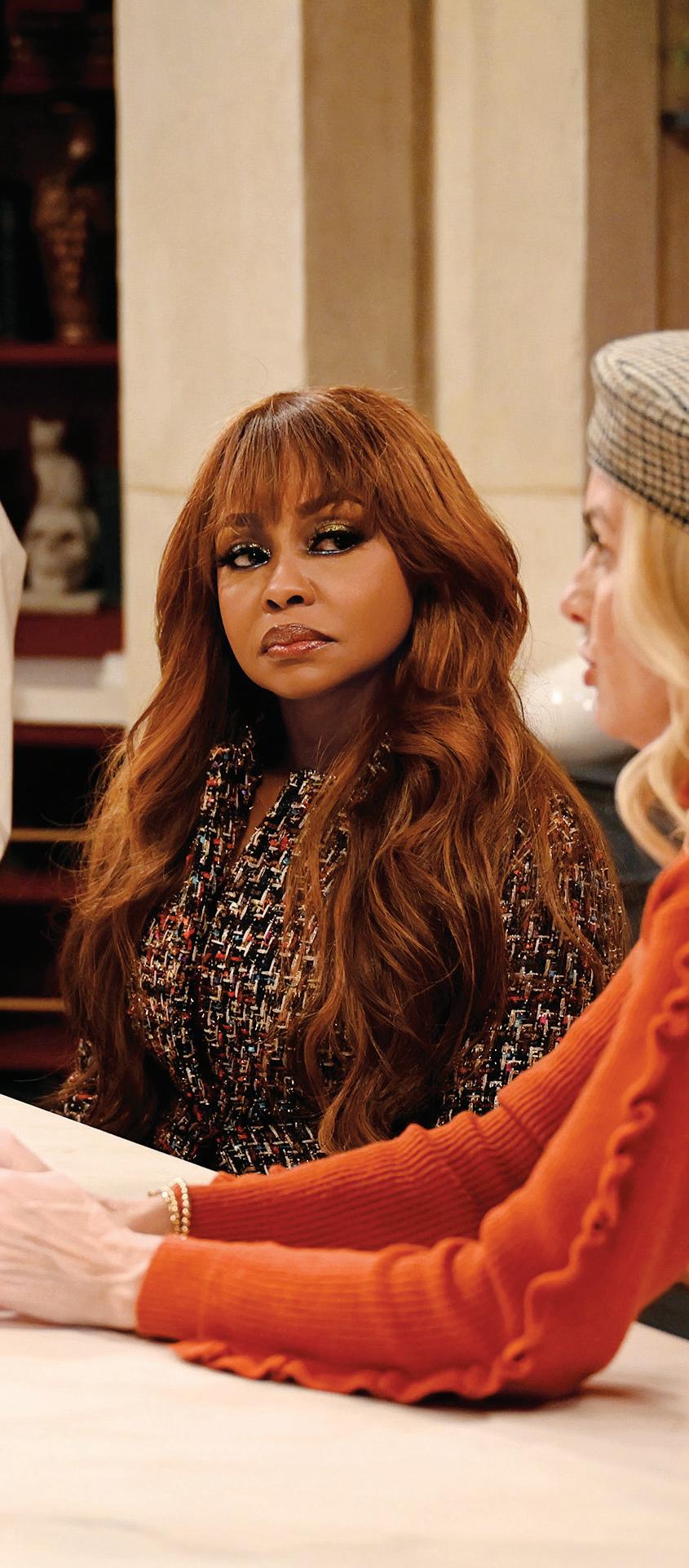
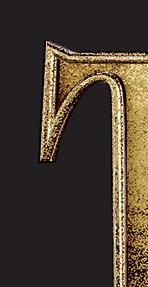
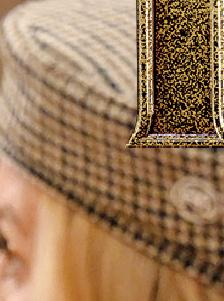


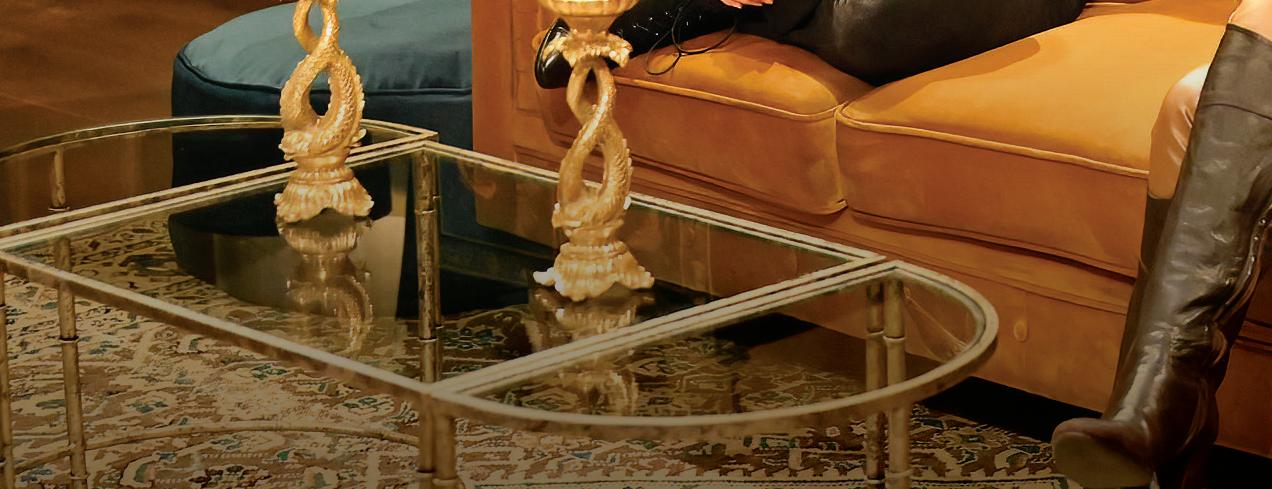

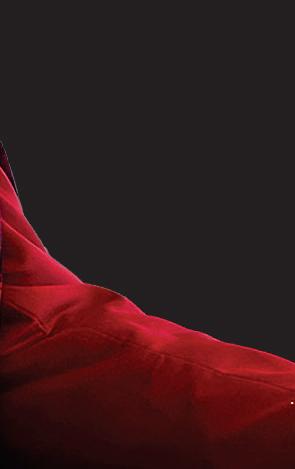
COMPETITION PROGRAM
OUTSTANDING HOST ALAN CUMMING
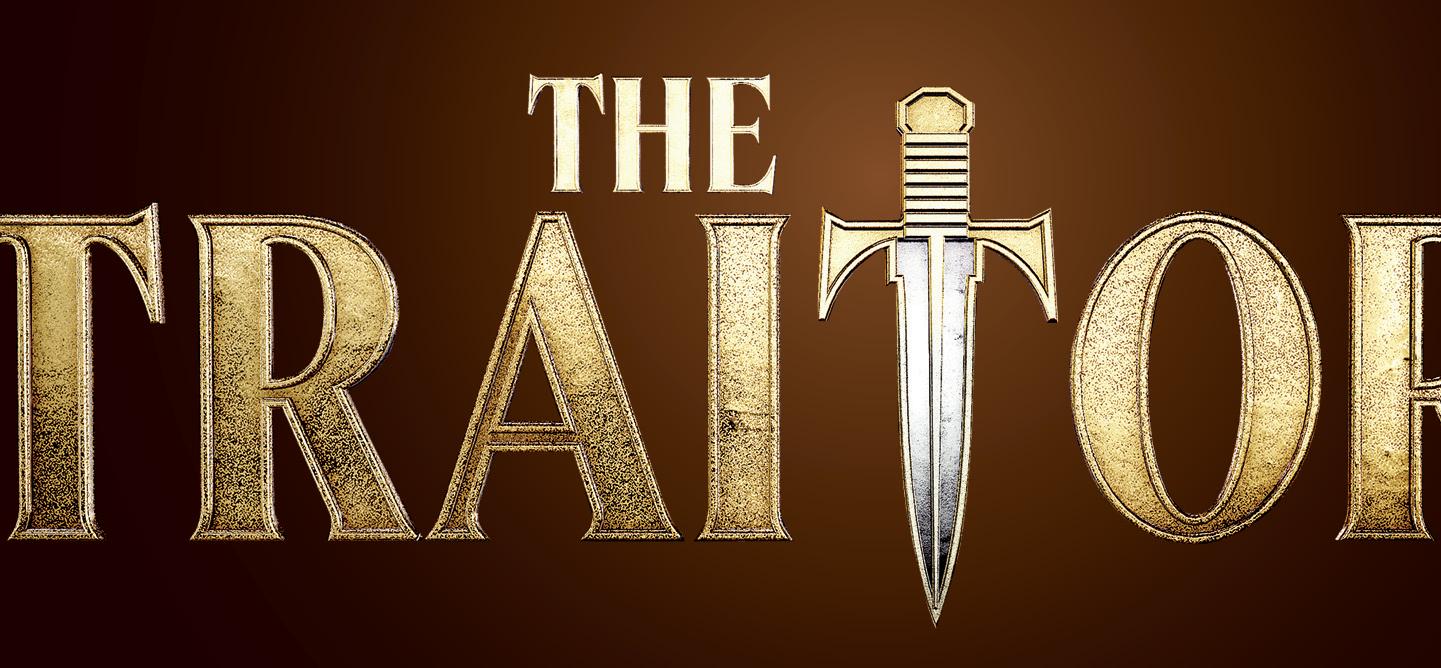
“IF YOU ARE A REALITY SHOW JUNKIE, THEN THIS IS PROBABLY THE GREATEST SHOW ON TELEVISION (PERHAPS EVER).”
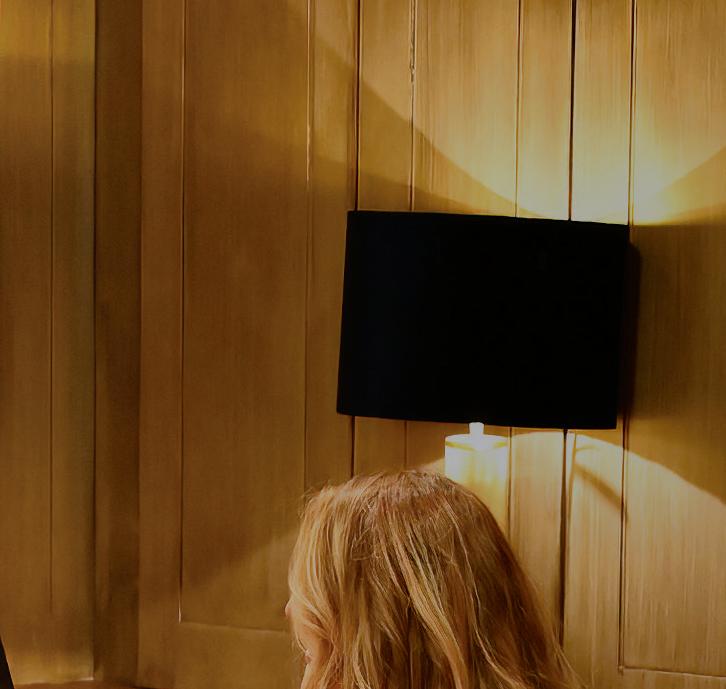


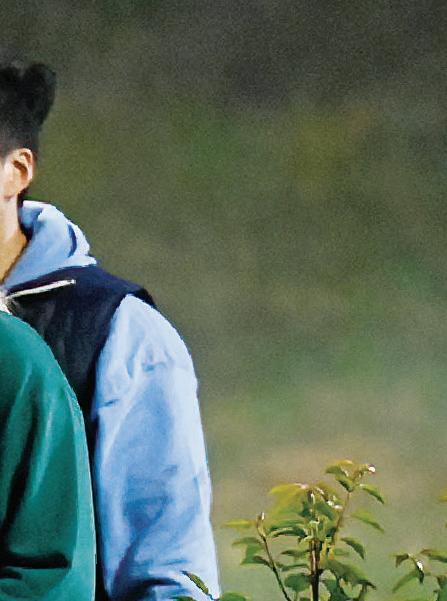

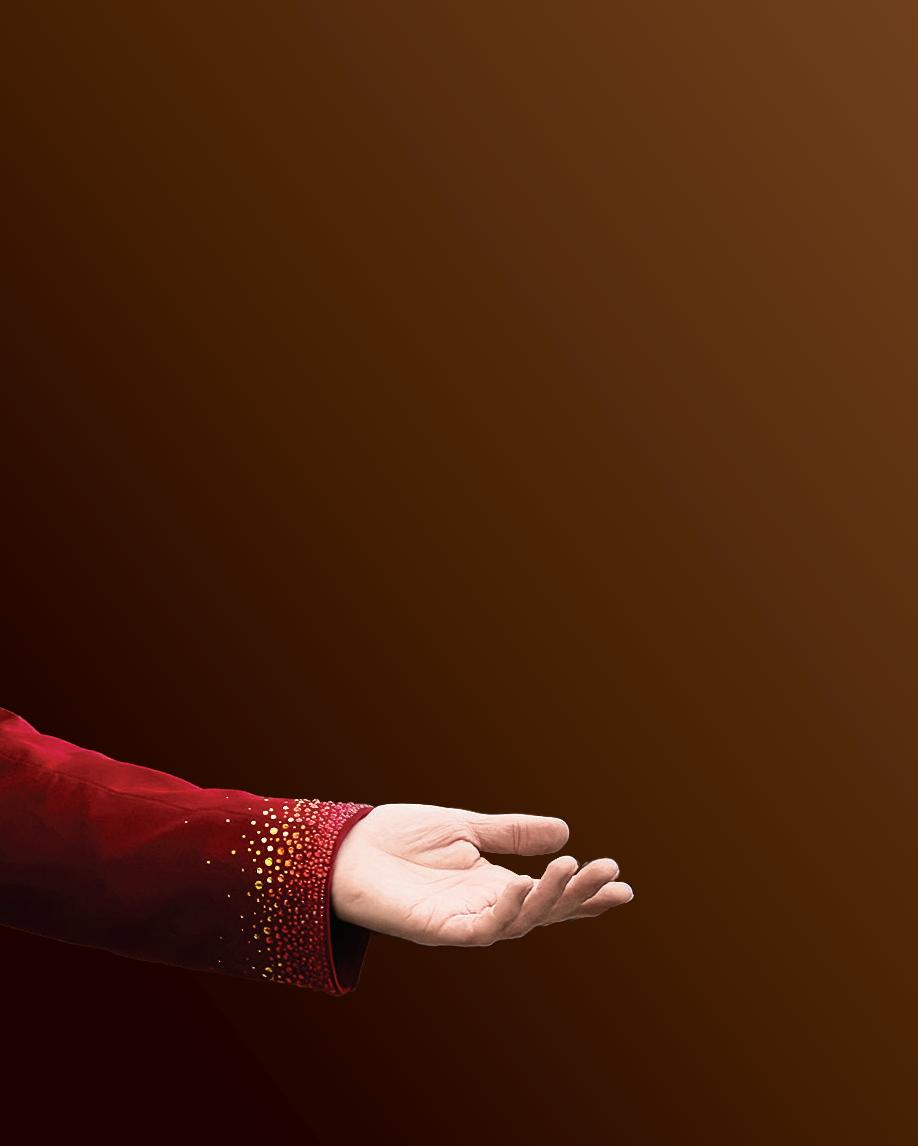
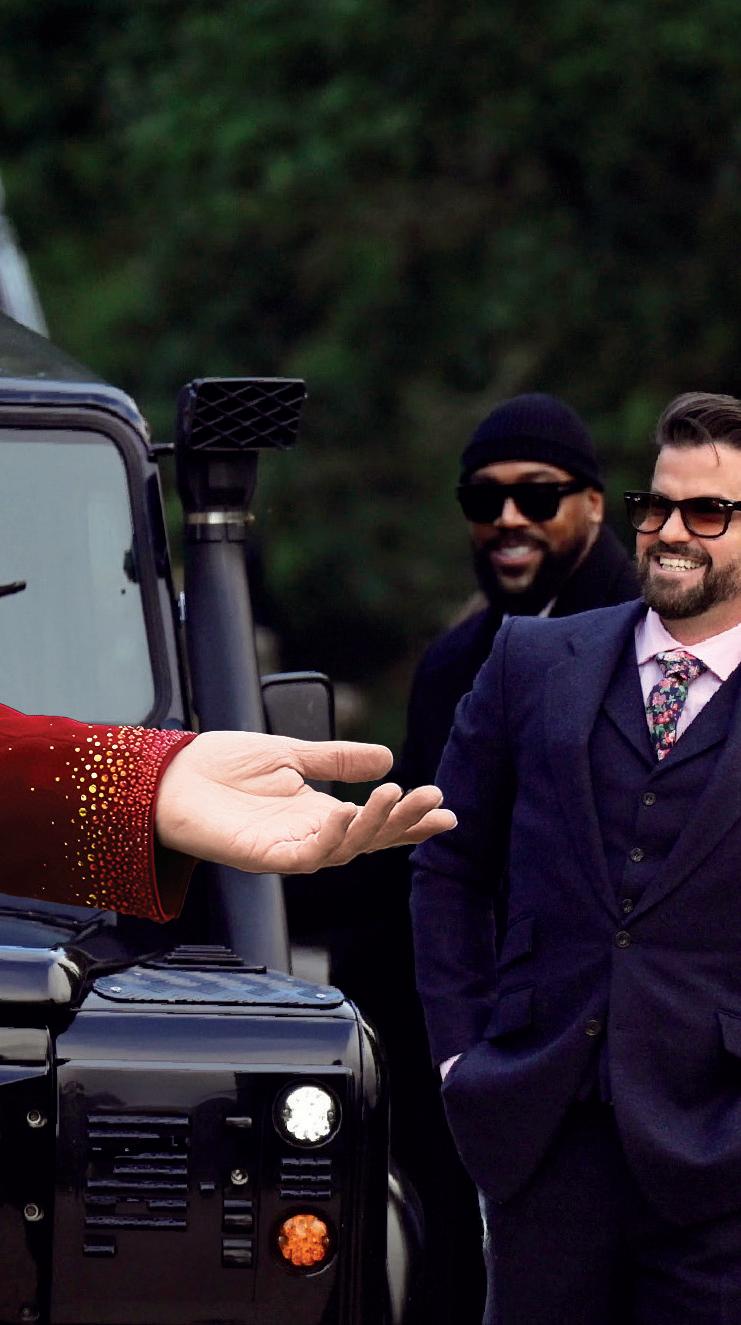

THEWRAP


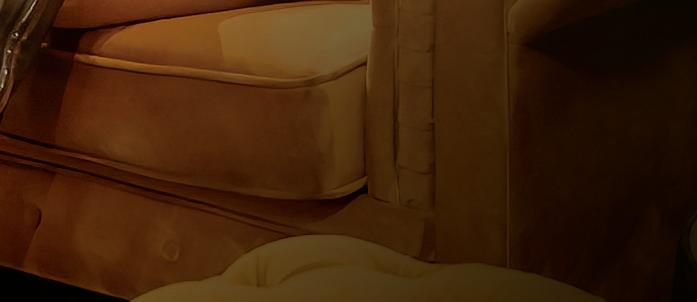
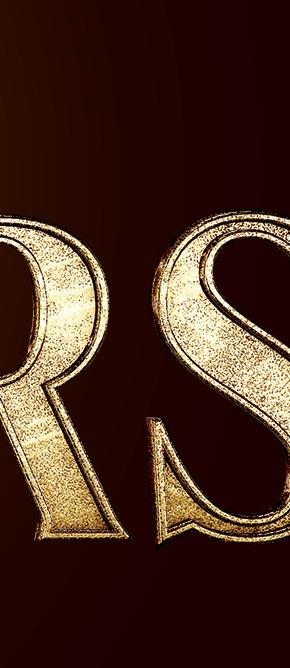


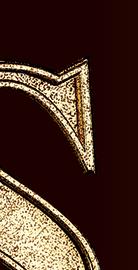
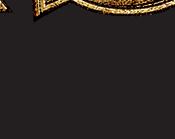

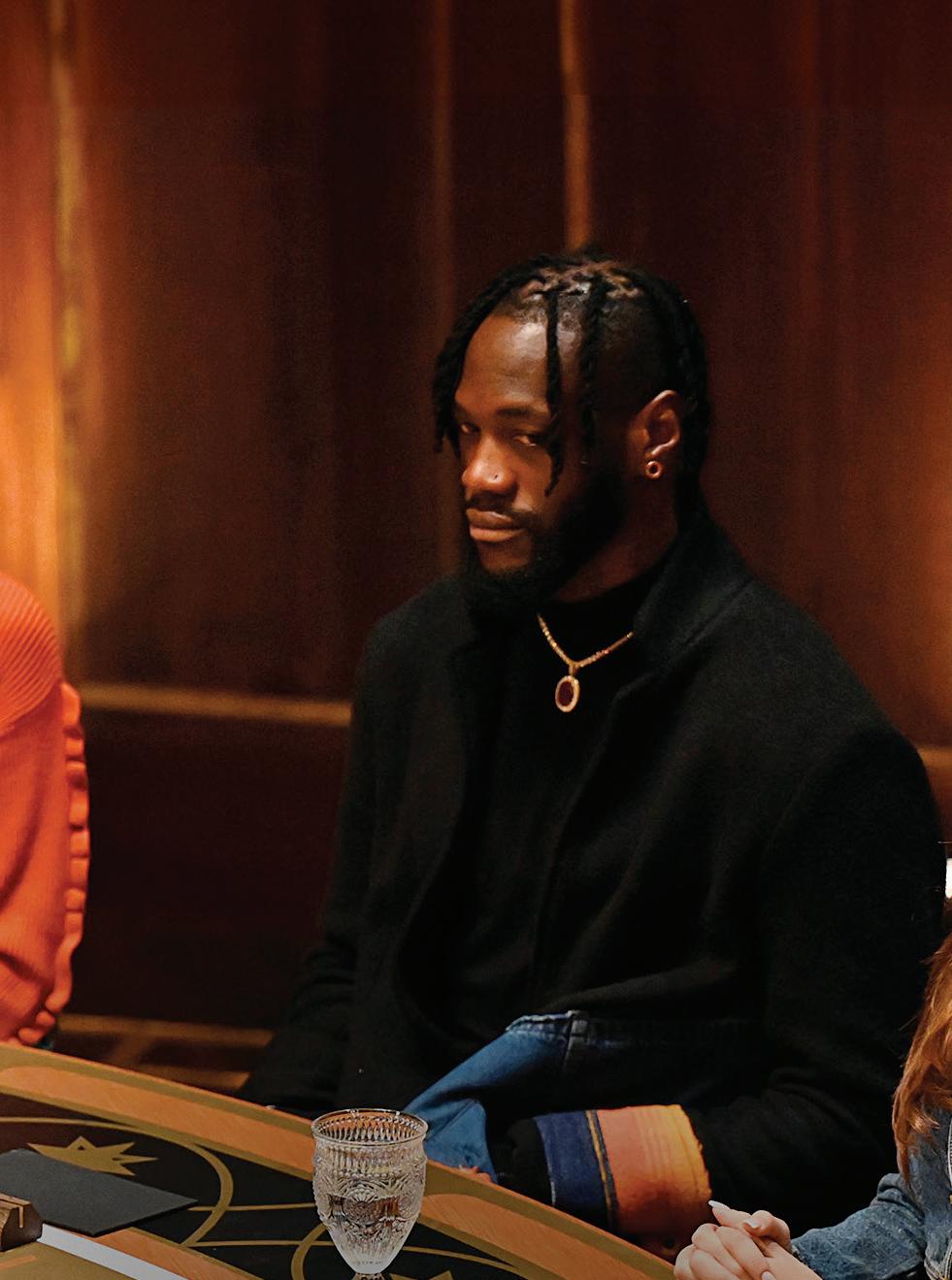
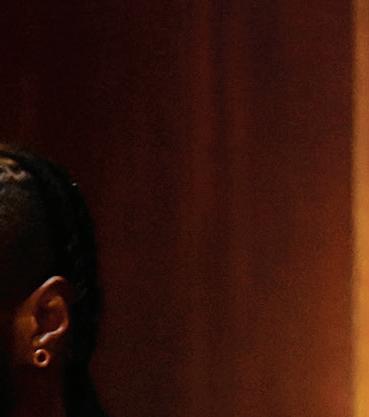

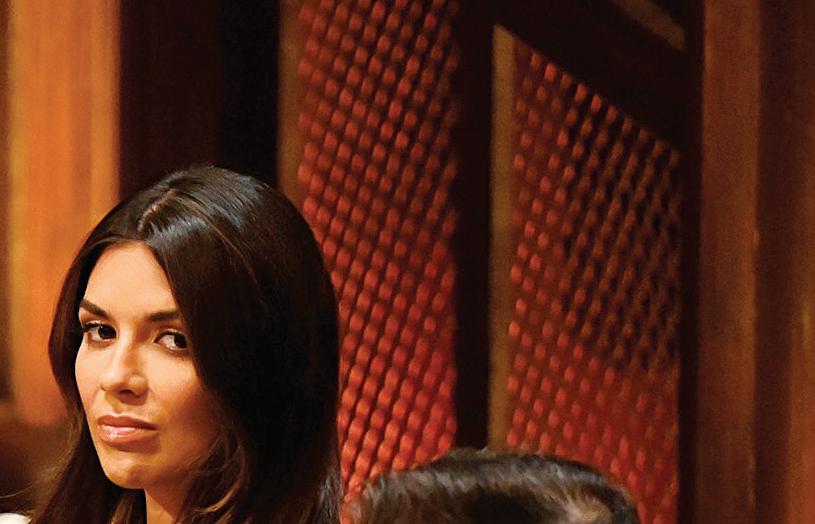

Stars In Their Eyes
Bright Lights, Big Stars: Emmy Voters Choose From A Raft Of Celebrity Documentaries
BY MATT CAREY
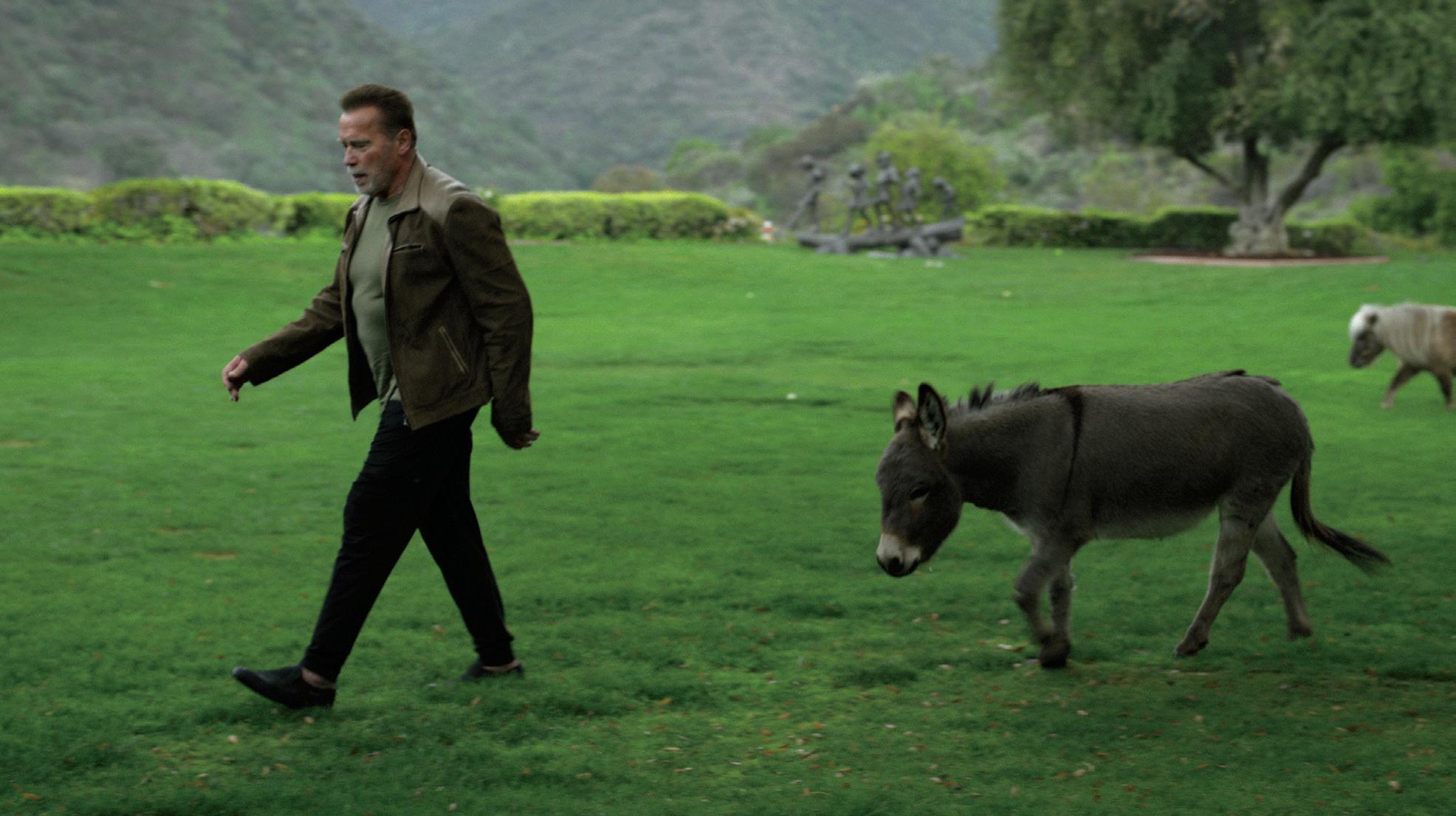
One was born with partial facial paralysis. The other grew up speaking Austrian-accented German, eventually transitioning to German-accented English.
If you were trying to concoct the archetypal Hollywood star in a lab, it wouldn’t be Sylvester Stallone or Arnold Schwarzenegger. Yet for more than 20 years they dominated the box office, their wattage rivaled only by the klieg lights of a movie premiere.
The improbable origins and unlikely rise of these two action icons are told in a couple of documentaries in Emmy contention: the feature Sly, directed by Thom Zimny, and the docuseries Arnold, directed by Lesley Chilcott.
“[EP] Allen Hughes brought the Arnold project to me,” Chilcott explains. “At first I said, ‘What don’t we already know?’ And he said, ‘I said the same thing myself.’ But then I started thinking about how weird and unusual it is that Arnold’s been successful in so many completely different areas.” That would be bodybuilding, acting, and governating—as the chief executive
of California (or Cal-LEE-fornia, as he famously pronounces it) from 2003-2011.
For his portrait of Stallone, Zimny says, “I didn’t want to just go down a traditional road where we cover every beat of his life and every film and every chapter. I wanted to really find the details that make up the man, the family man, the artist, and give you a sense of Sly that goes beyond just the iconic portrayal, beyond being a movie star, and get to the core of his childhood, his expression as a young artist in New York and his journey.”

Sly and Arnold, both Netflix titles, are part of a slew of celebrity-oriented docs with Emmy ambitions. The lengthy list extends to Steve! (Martin): A Documentary in 2 Pieces and The Super Models (both from Apple TV+); In Restless Dreams: The Music of Paul Simon from MGM+; Kings from Queens: The Run DMC Story from Peacock, and Maxine’s Baby: The Tyler Perry Story from Amazon MGM Studios. Oh, and you can kick in Beckham too, the four-part Netflix series about the English footballer.
The plethora of star-driven content in the Emmy hunt reflects a reality in the documentary field: it’s what the streaming platforms want. Oscar-winning filmmaker Morgan Neville says, only half-joking, “People who buy documentaries like celebrity subjects because they feel like they can get an audience for it without having to work too hard.”
Neville directed the Steve Martin documentary, dividing it into two separate films—part 1 an archival-focused examination of the comedian’s upbringing and standup career, and part 2 a verité-style look at Martin’s life and career now. For Neville and filmmakers of his elite level, the challenge of working in the celebrity doc sphere is to unlock an original approach. To create something of substance.
“Even if I make a film about a famous person, the film is not about celebrity,” Neville says. “It’s about a person who’s dealing with whatever their life has presented for them. And in fact, I think the three least interesting things about making [movies] about celebrities are sex, drugs and fame, because those stories are all the same. Then the point becomes, well, what makes this person unique? That’s what I’m interested in.”
For his narrative about Stallone, Zimny fastened onto a recurring theme in his protagonist’s life—rejection. The film delves into Stallone’s difficult relationship with a father who undermined him and the icy reception he got from Hollywood when he was trying to make it in the 1970s. Stallone only broke through by writing the script for Rocky, a role he insisted on playing himself against the wishes of the movie industry.
“He wrote from his own pen a character called Rocky who could live out the dreams that he himself wasn’t experiencing [in real life], could live out the connection with family and success, a sense of hope,” Zimny says. “And that became
16 DEADLINE.COM/AWARDSLINE NETFLIX/APPLE TV+ PREMIERE All-Star Docs
Below: Arnold Schwarzenegger with his pet donkey Lulu in Arnold; Steve Martin in Steve! (Martin) A Documentary in Two Pieces
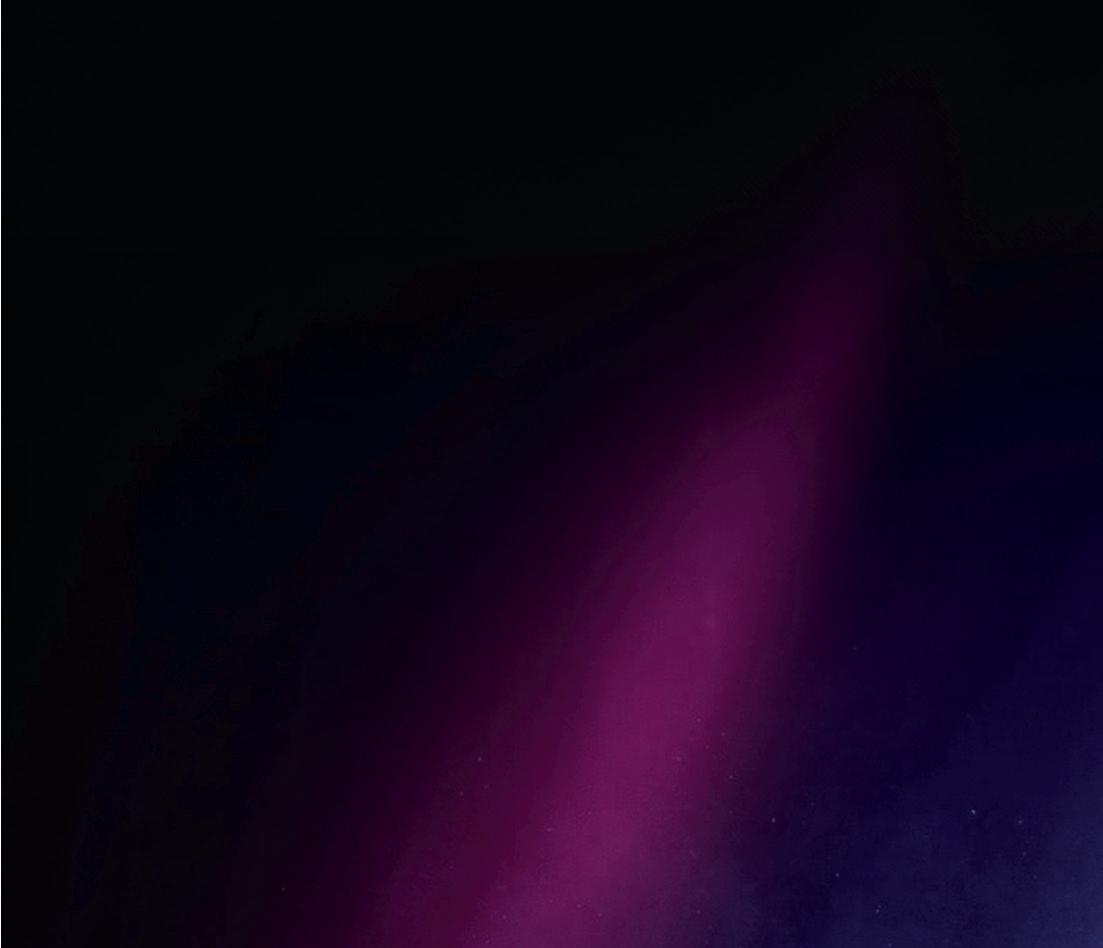

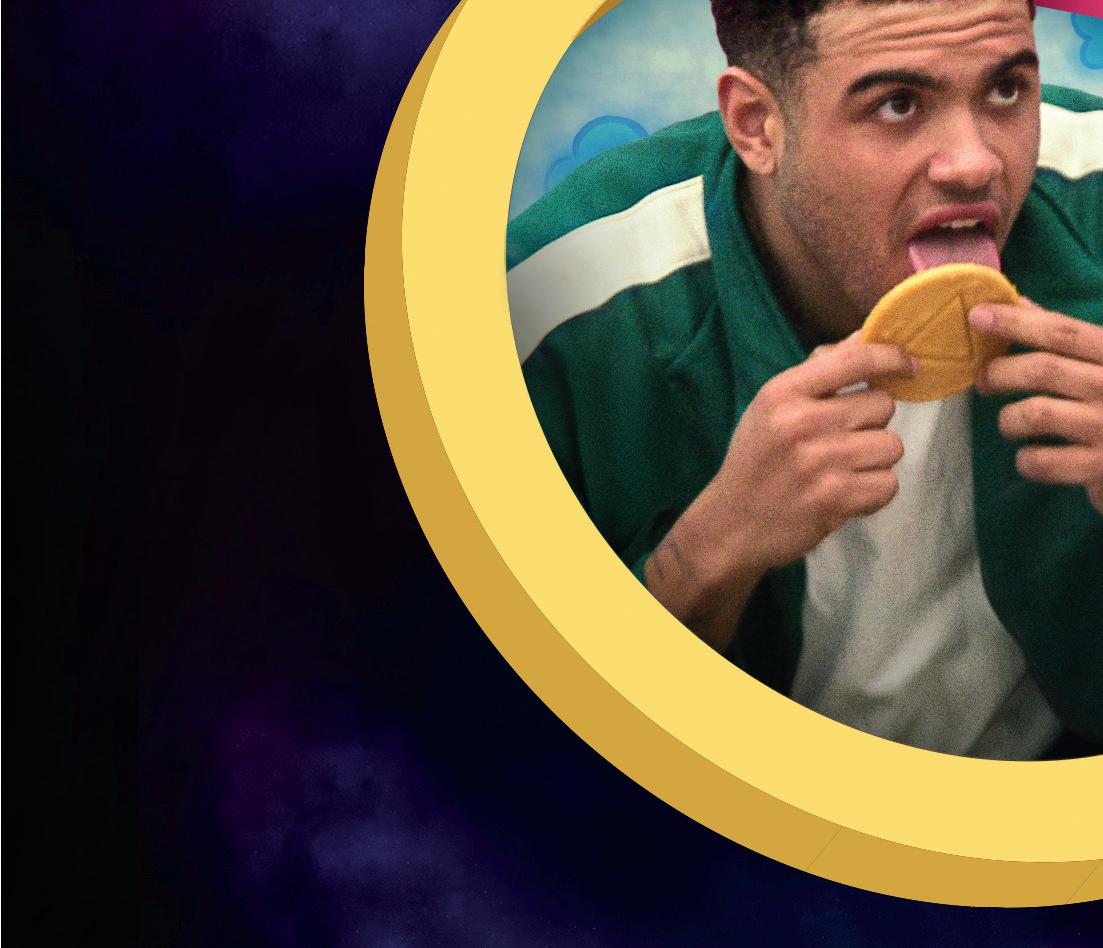
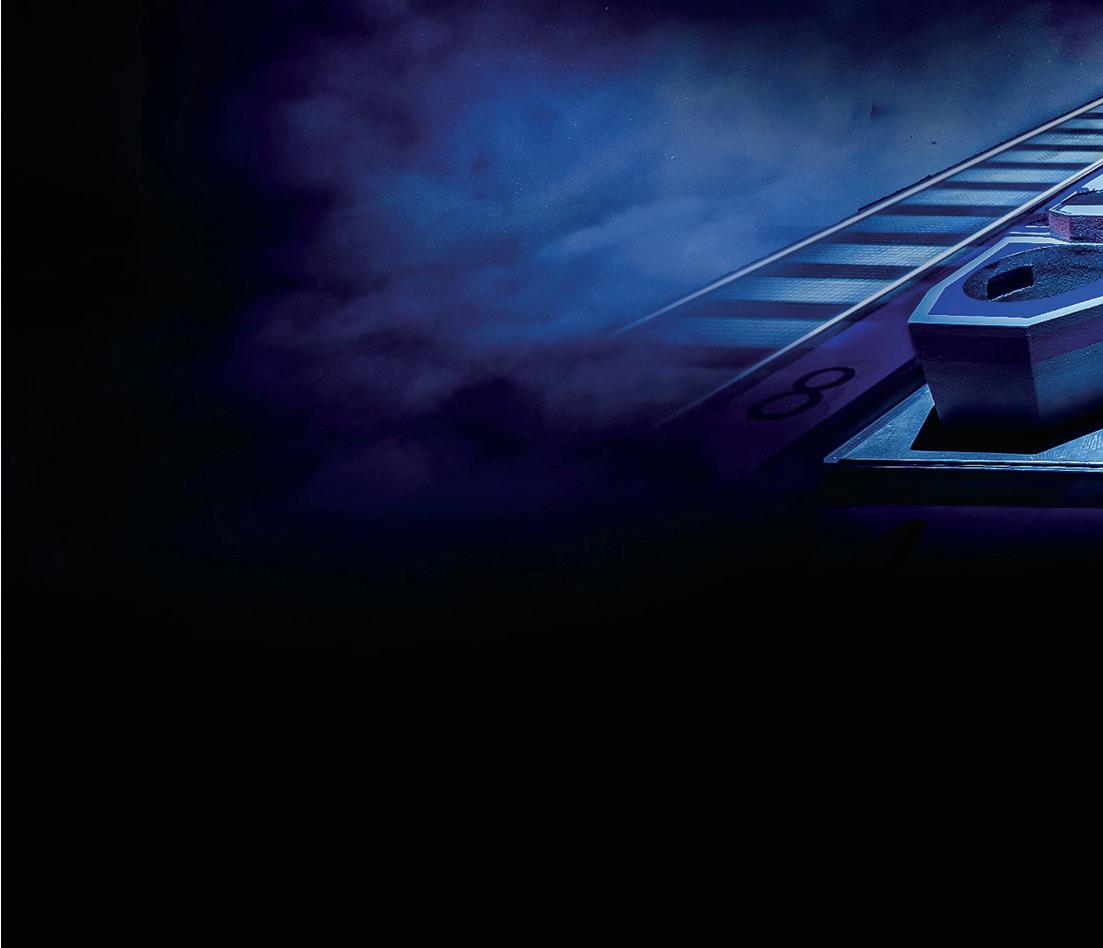
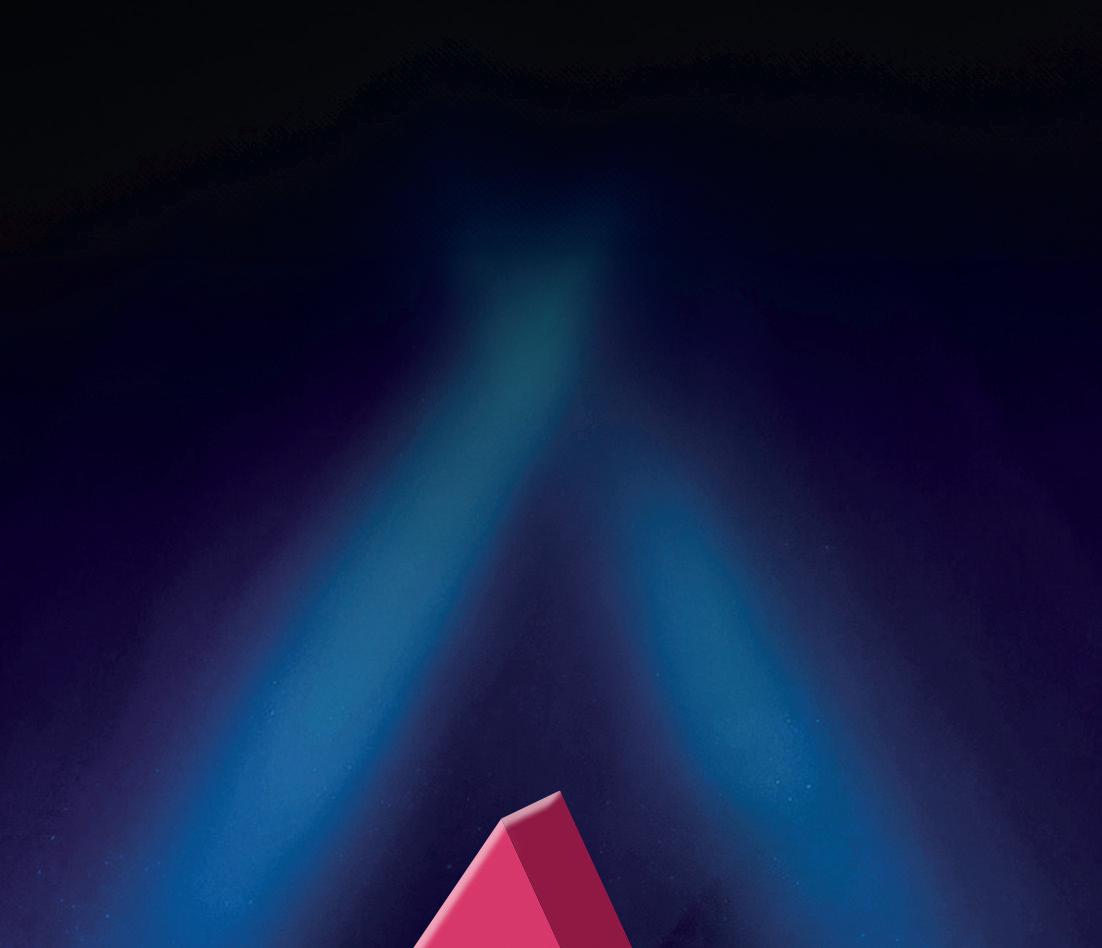

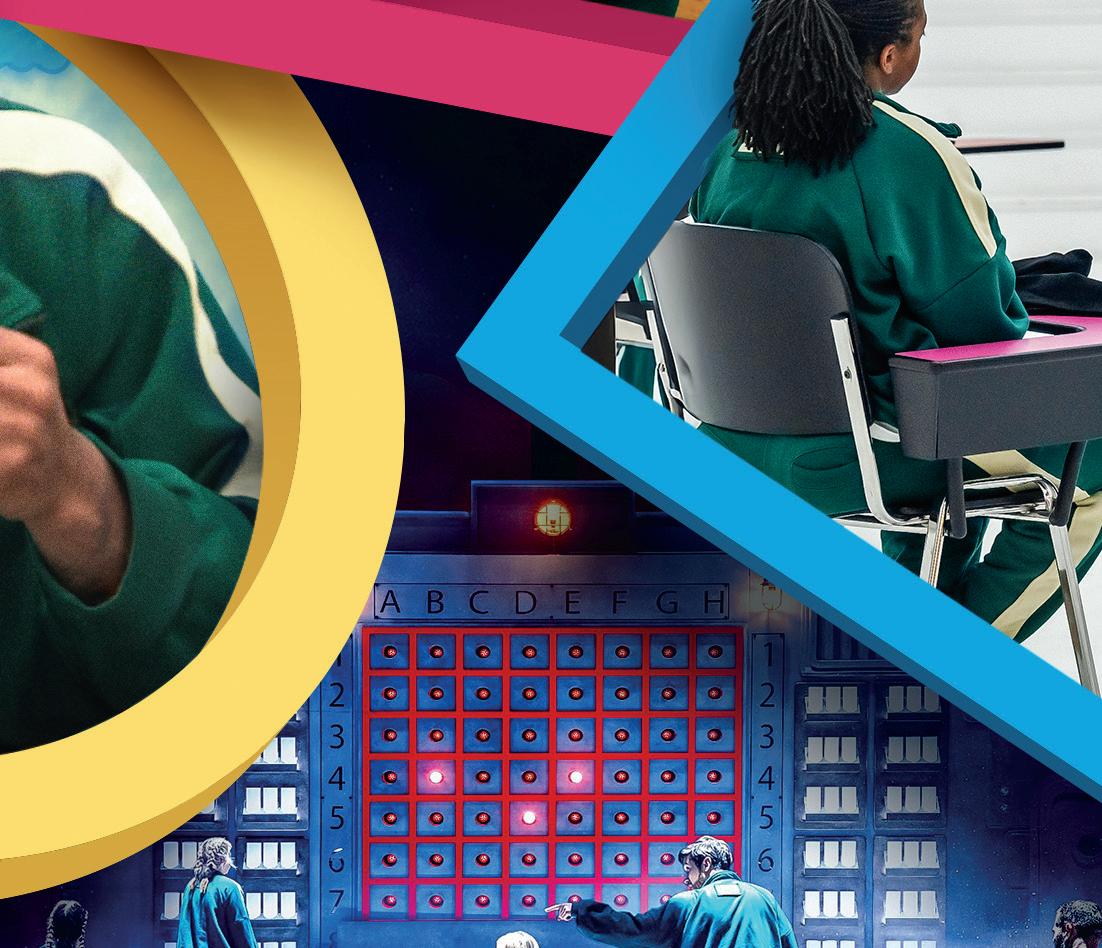
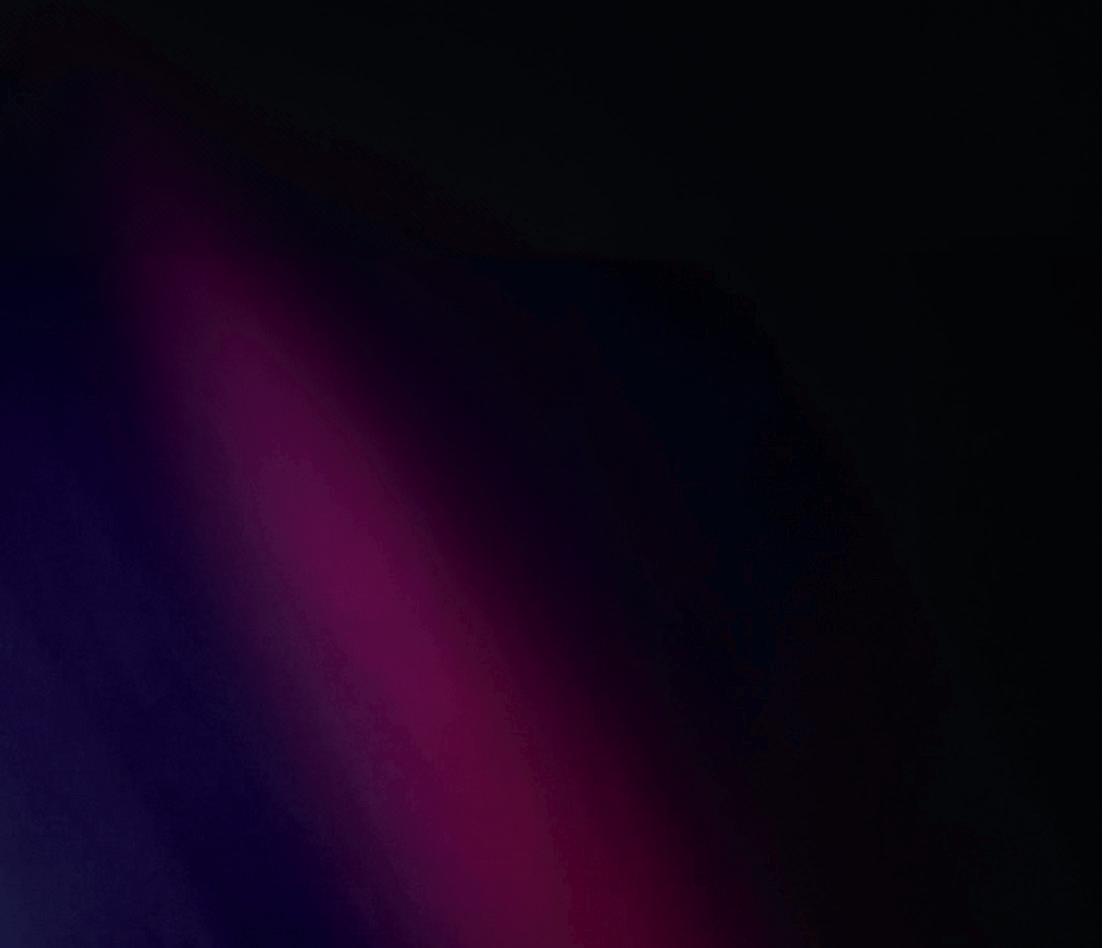

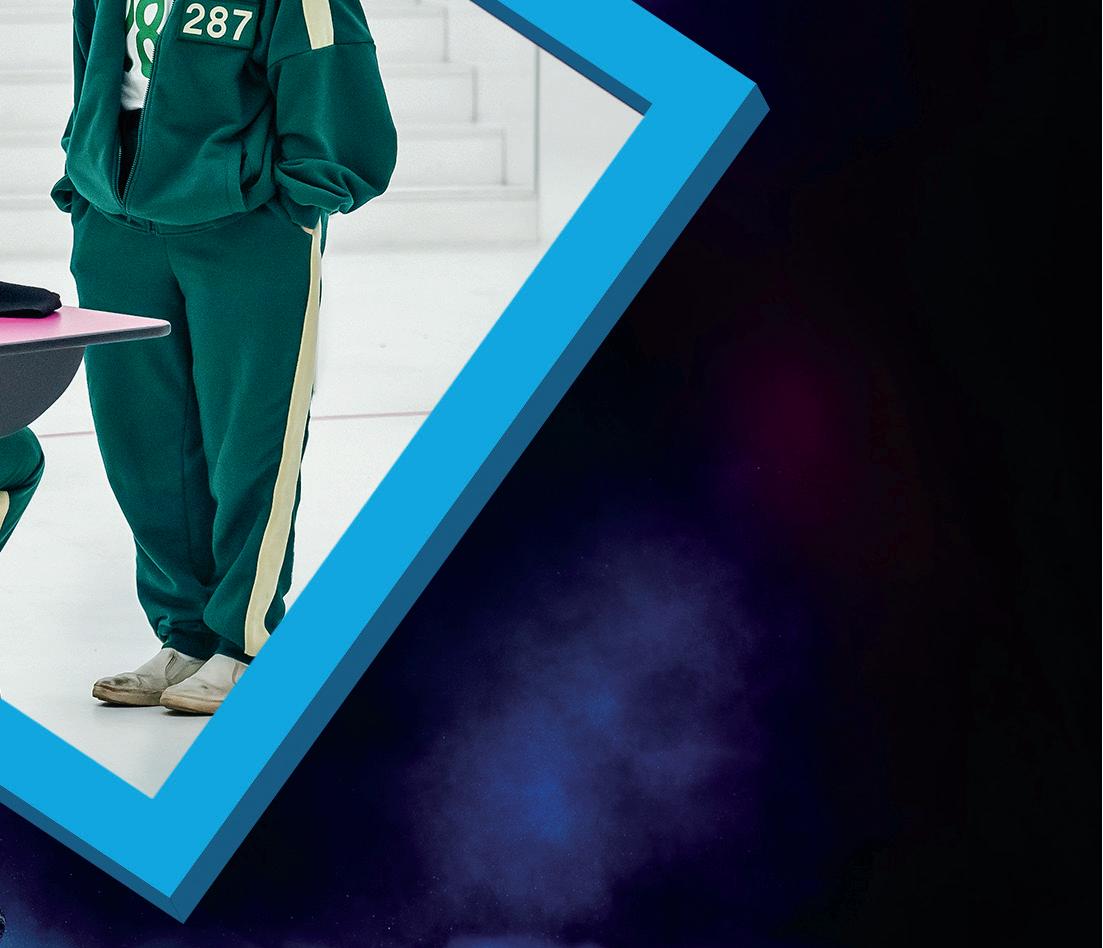

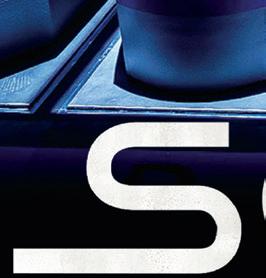

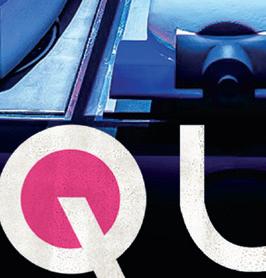
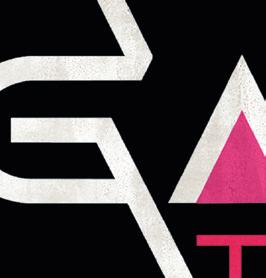

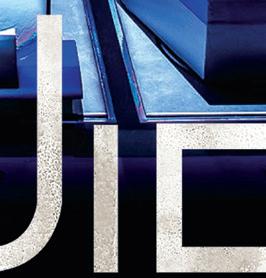

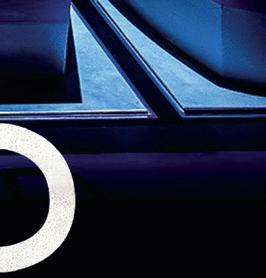



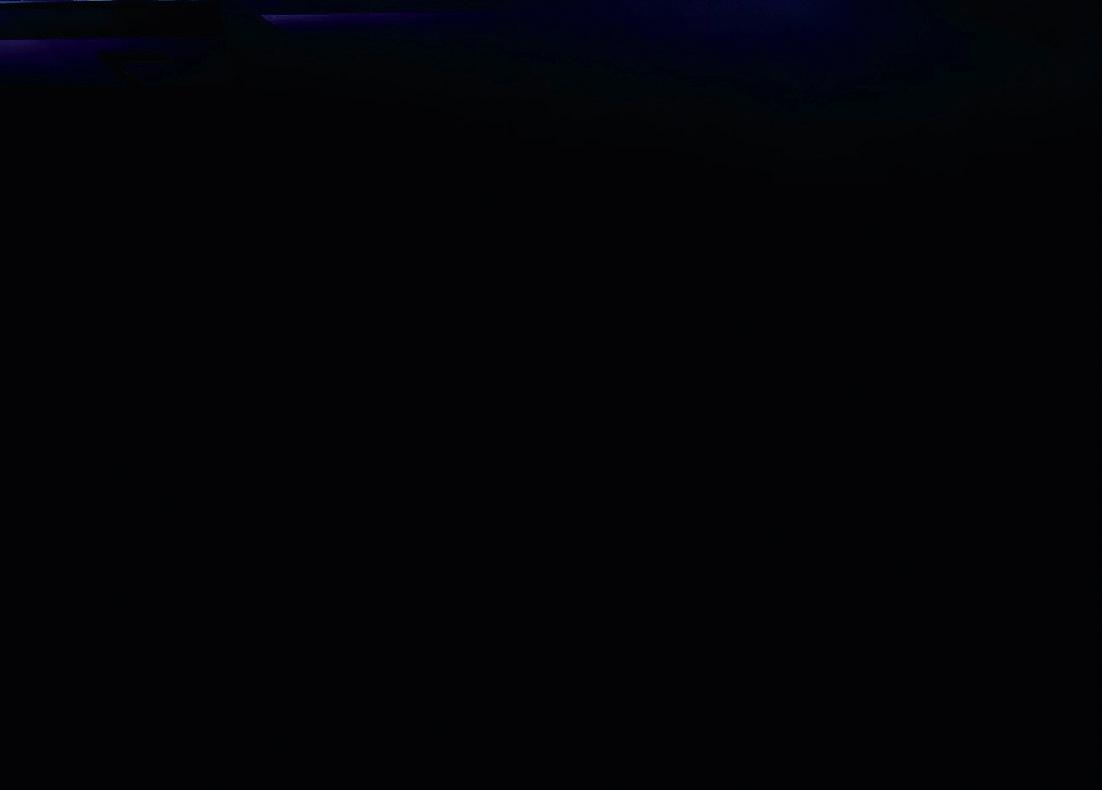
FYC.NETFLIX.COM “A MASTERFUL REALITY SERIES.” “AN IRRESISTIBLE MEGAHIT.” CONSIDER SQUID GAME. FOR REAL. WINNER REALITY SERIES BAFTA TV AWARD OUTSTANDING REALITY COMPETITION PROGRAM
the theme and the structure of the documentary, to show how Sly took his life experiences, put it into the arc, and had that translate to these cinematic and iconic characters in films like Rocky and Rambo and The Expendables, where you could tap into their journey and their triumphs and their desire to be more than what the world is willing to give them and go beyond the rejection.”
In Arnold, Chilcott shows how Schwarzenegger overcame a childhood of abuse. His father dismissed his ambitions (Arnold’s older brother Meinhard was the apple of his parents’ eye), but Schwarzenegger ignored the naysaying and doggedly pursued an outsized vision of success.
“He had this dream… He wanted to go from this little town in Austria to America. [The series] came at a time when I think we all needed a new ‘the American dream is still possible’ type of story,” Chilcott observes. “Other people would say he’s an unrealistic idealist to think that he could be a world champion bodybuilder or to think he could be one of the highest paid actors with that accent. That inspirational layer… is very interesting to me as a filmmaker.”
The Super Models, directed by Larissa Bills and Oscar-winning filmmaker Roger Ross Williams, not only documents the ascent of Naomi Campbell, Christy Turlington, Cindy Crawford and Linda Evangelista, but a slice of cultural history in the ’80s and ’90s. “It was a time when music and art and fashion were all coming together,” Williams says. “They were the first influencers, way before there were cell phones or anything.”
Any documentary, especially one about a celebrity, hinges on access. How much time can you get with the person, and how deep can you go? Oscar winner Alex Gibney, director of In
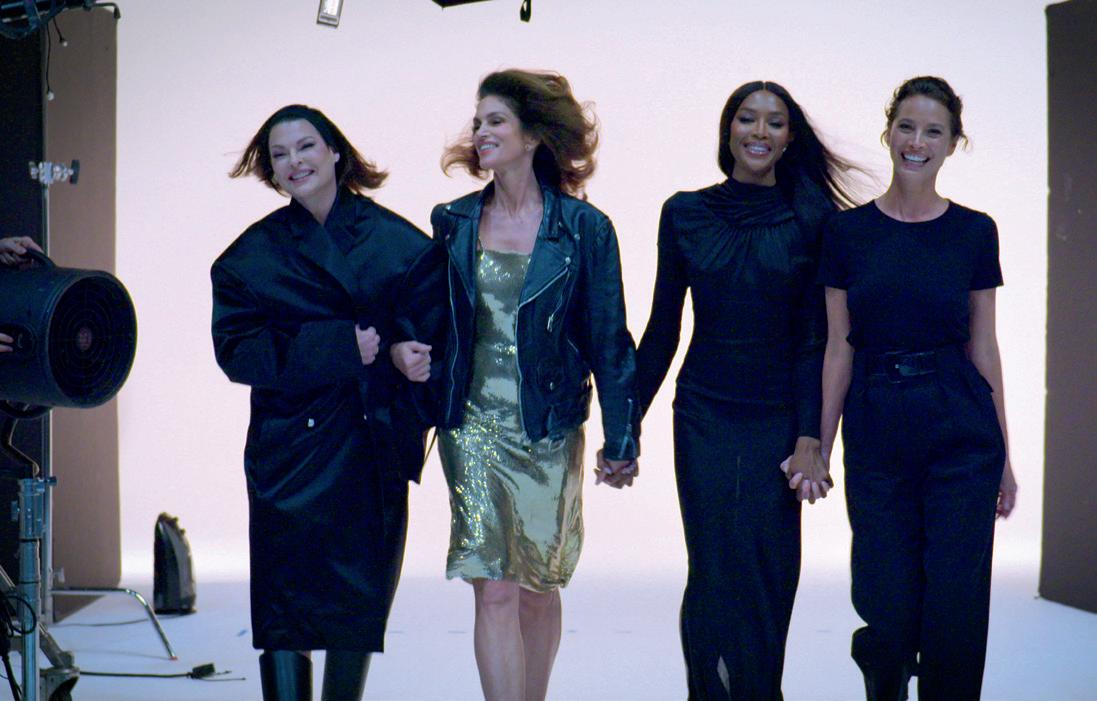
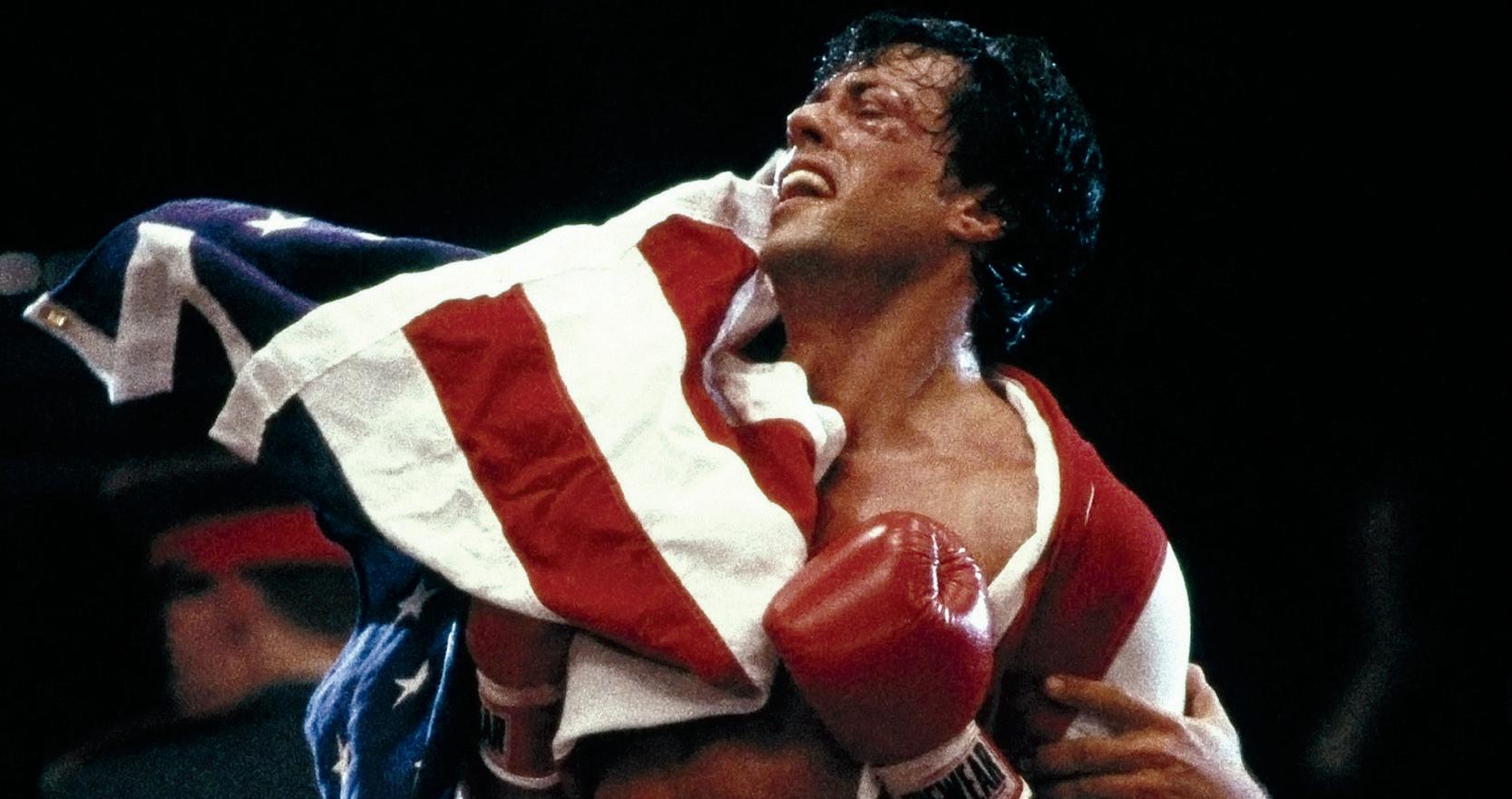
Dreams: The Music of Paul Simon, got an invitation from Simon himself.
“He reached out to me; he had seen the Sinatra film I made and wondered if I might be interested in doing a film about his overall career. And of course, I was interested in that,” Gibney recalls. “But the gift was when he called me up and said, ‘I’m making this new album. Would you like to come watch me make it?’ That was a gift because it was him in the present, working on something. And also—because the album is a meditation on belief and life and death—it seemed appropriate to move back and forth in time to earlier moments in his career.”
Maxine’s Baby: The Tyler Perry Story began less as a formal documentary project than as videos shot by co-director Gelila Bekele, who was Perry’s romantic partner for many years. “I had the privilege of having a front row seat,” Bekele says. “I saw this man becoming busier than ever… and I wanted to just document it for archive. I realized there’s a huge chunk of missing history, particularly in the African American community, and the contribution to American history that Tyler is making.”
Perry is not a producer of the documentary about him. Nor is Schwarzenegger for Arnold, nor Steve Martin for the Morgan Neville doc. The artistic success of a celebrity-themed film often depends on the star’s willingness to forego creative control.
“Steve and I were in alignment,” Neville says. “He said, ‘You’re a filmmaker. I chose you for a reason to collaborate on this. You do what you do, and I’ll be me.’”
Chilcott notes, “It was important for me with the type of films that I do that [Schwarzenegger] didn’t have approval rights and he wasn’t a producer. That said, for documentary filmmakers, whatever the path they choose for whatever reason, there is some sort of trade off for access—‘You get to come to my house, I get to tell you these stories.’ So, you have to do whatever boundaries are comfortable for you.”
“The dirty little secret is that even if you have control of your film, you still want and maybe even need the subject to be happy with it,”
Neville adds. “I can think of one or two cases where people have made films with creative control and the subject wasn’t happy and the film imploded. For instance, if you’re making a music film, you can have all the creative control you want, but at the end of the day, they hold the control over the music.”
Sylvester Stallone is an executive producer of Sly, but Zimny says there were no boundaries on what he could explore in their interviews. “Sly gave me the greatest gift as a filmmaker, he gave me trust,” he says. “In the space of the room, I had no restrictions.”
Members of the Oscar documentary branch displayed some reluctance to fully embrace celebrity-themed documentaries this past year. They shortlisted Davis Guggenheim’s Still: A Michael J. Fox Movie and Matthew Heineman’s American Symphony, about Grammy-winning musician Jon Batiste, but when the Oscar nominations were announced, neither of those films made the cut.
Emmy voters, however, haven’t spurned the genre. Frank Marshall’s The Bee Gees: How Can You Mend a Broken Heart earned six Emmy nominations in 2021, claiming one. Last year, Emmy nominations went to Pamela, A Love Story , about Baywatch beauty Pamela Anderson; Being Mary Tyler Moore ; Judy Blume Forever , about the famed author, and Pretty Baby: Brooke Shields Still: A Michael J. Fox Movie won four Emmys at the strike-postponed ceremony, among them Outstanding Documentary or Nonfiction Special and Outstanding Directing for Guggenheim’s work.
That could spell good news for directors of this year’s crop of starry-eyed documentaries. If Emmy recognition comes their way, it would be acknowledgement that they threaded a creative needle—finding something fresh to say about a very well-known person.
“It’s always the story behind the story,” Chilcott says. “And then there has to be a willingness to honestly talk about the controversies without making them salacious or without blowing them out of proportion, because nobody has a perfect situation.” ★
18 DEADLINE.COM/AWARDSLINE PREMIERE All-Star Docs NETFLIX/APPLE TV+
Restless
Right: Sylvester Stallone in Rocky; below, from left: The Super Models in action with Linda Evangelista, Cindy Crawford, Naomi Campbell and Christy Turlington.



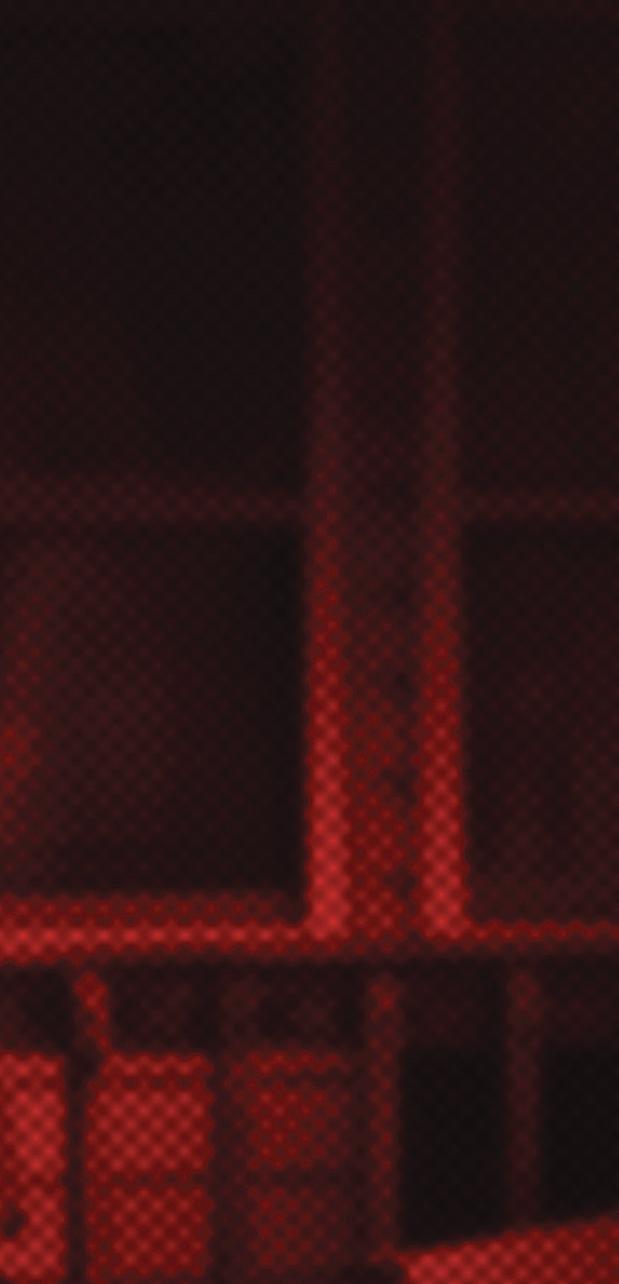
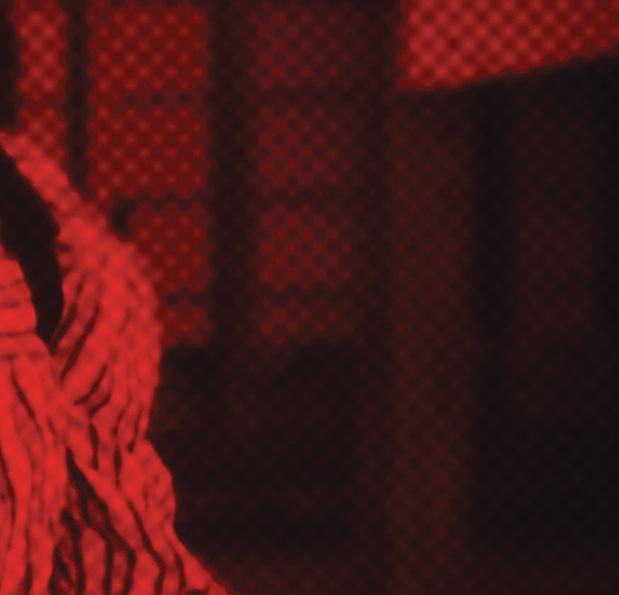
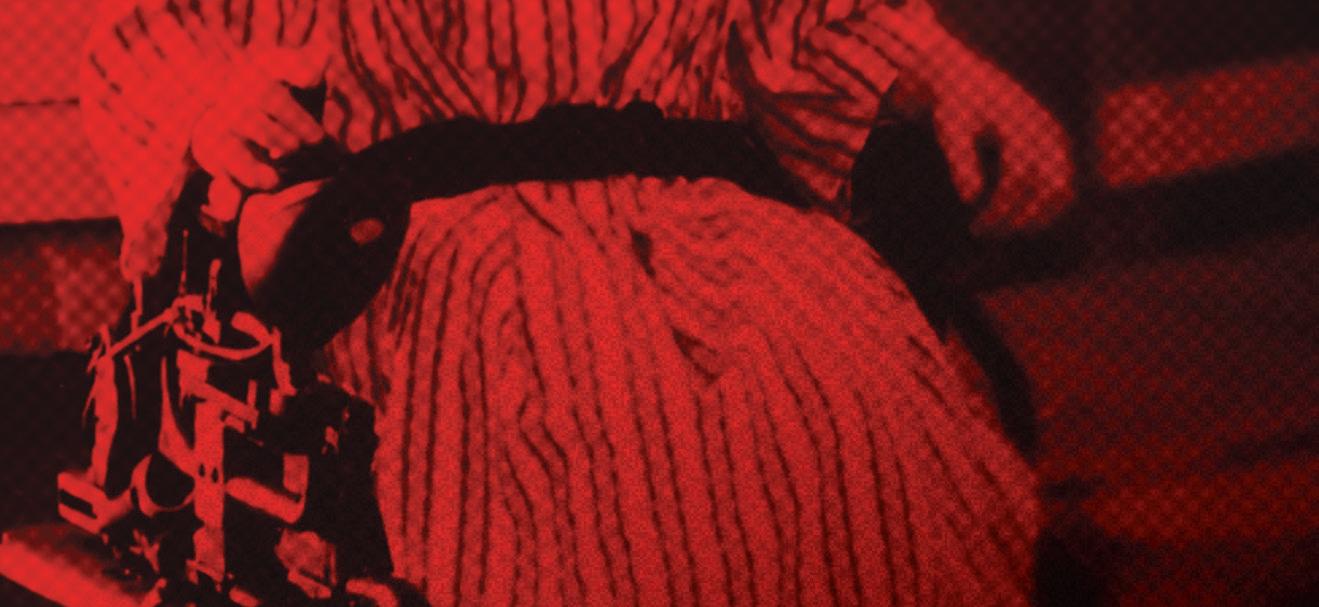
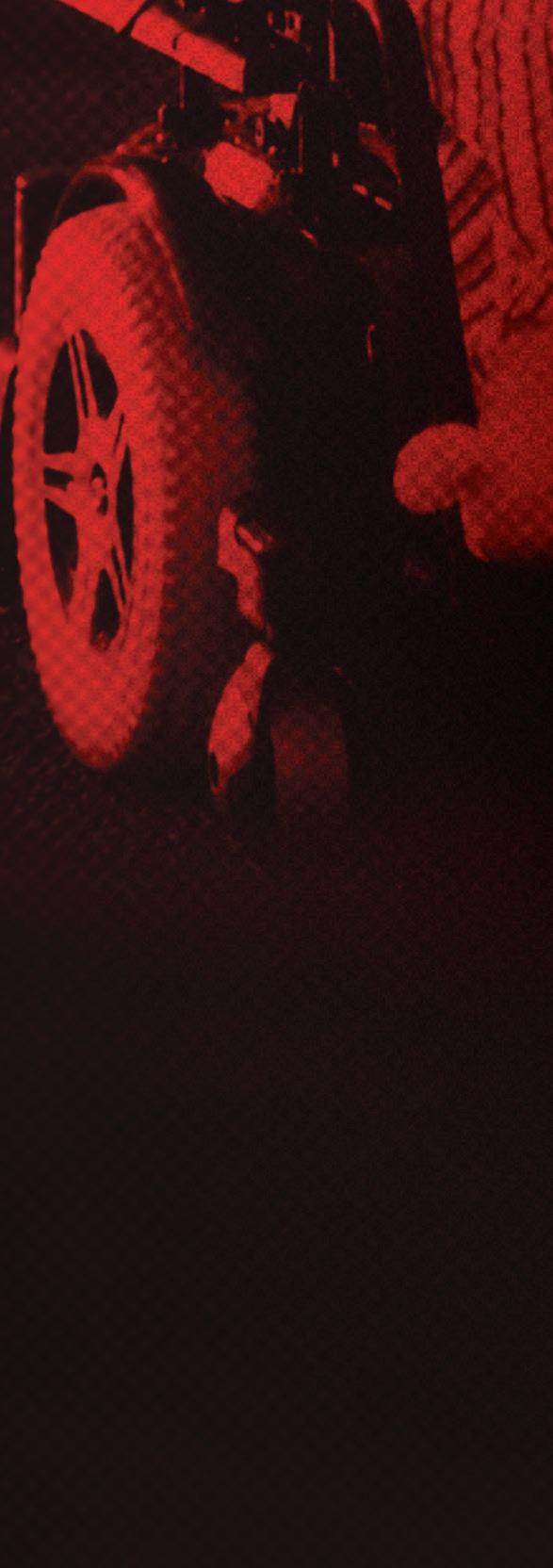

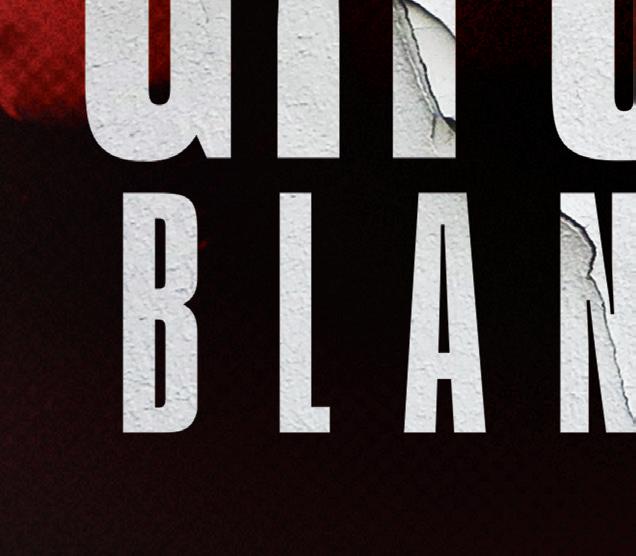
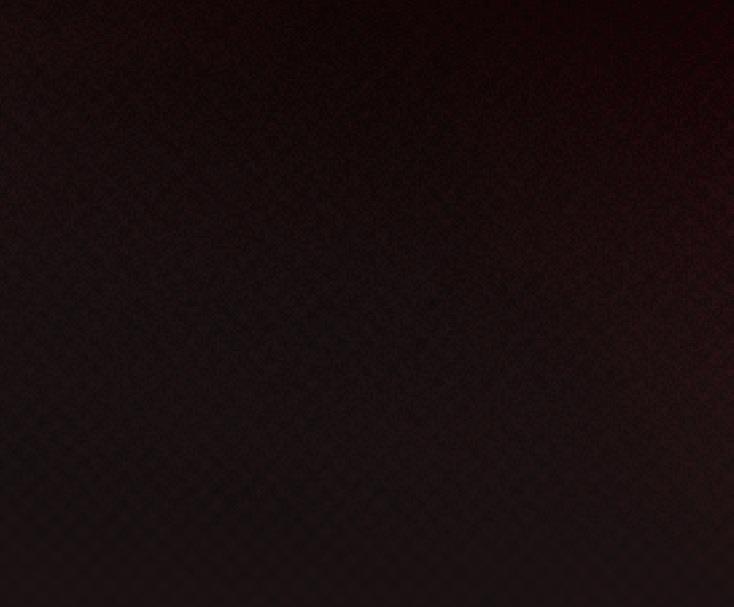
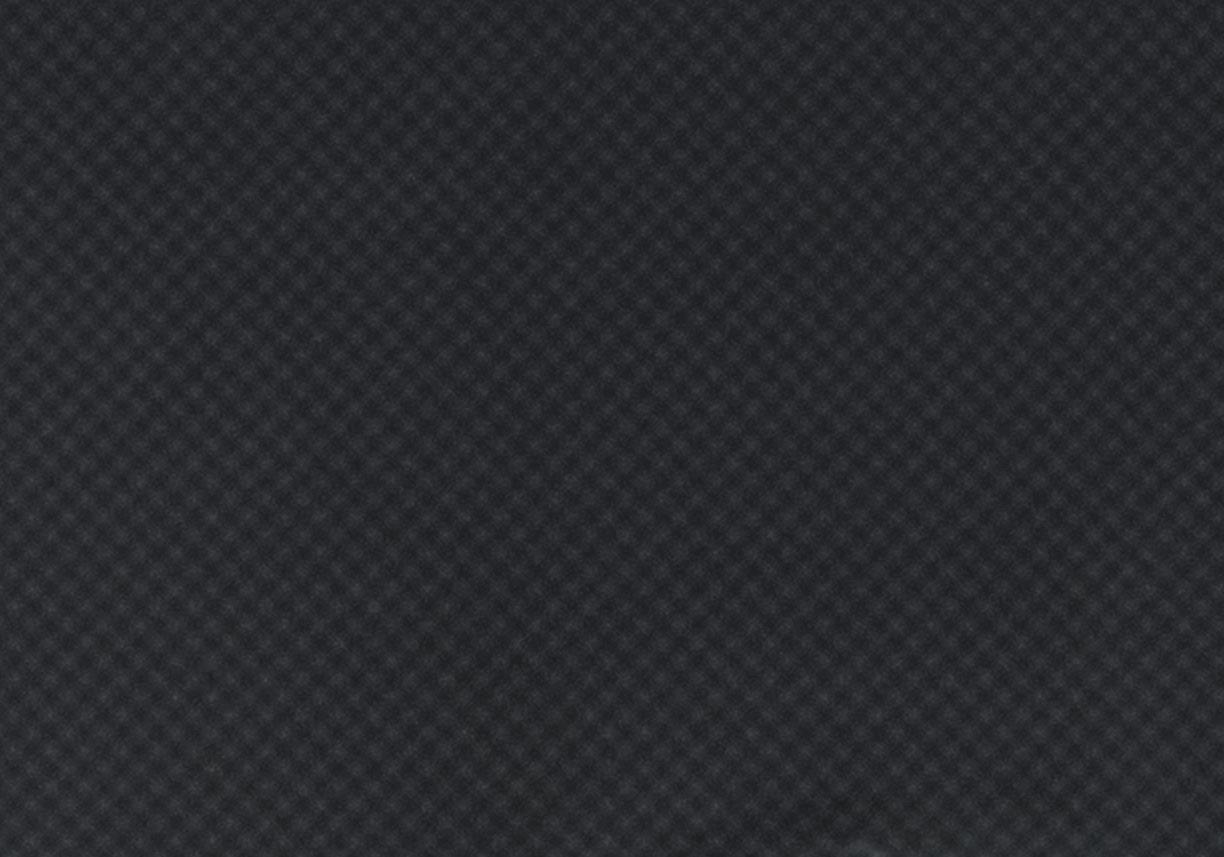
OUTSTANDING DOCUMENTARY OR NONFICTION SERIES



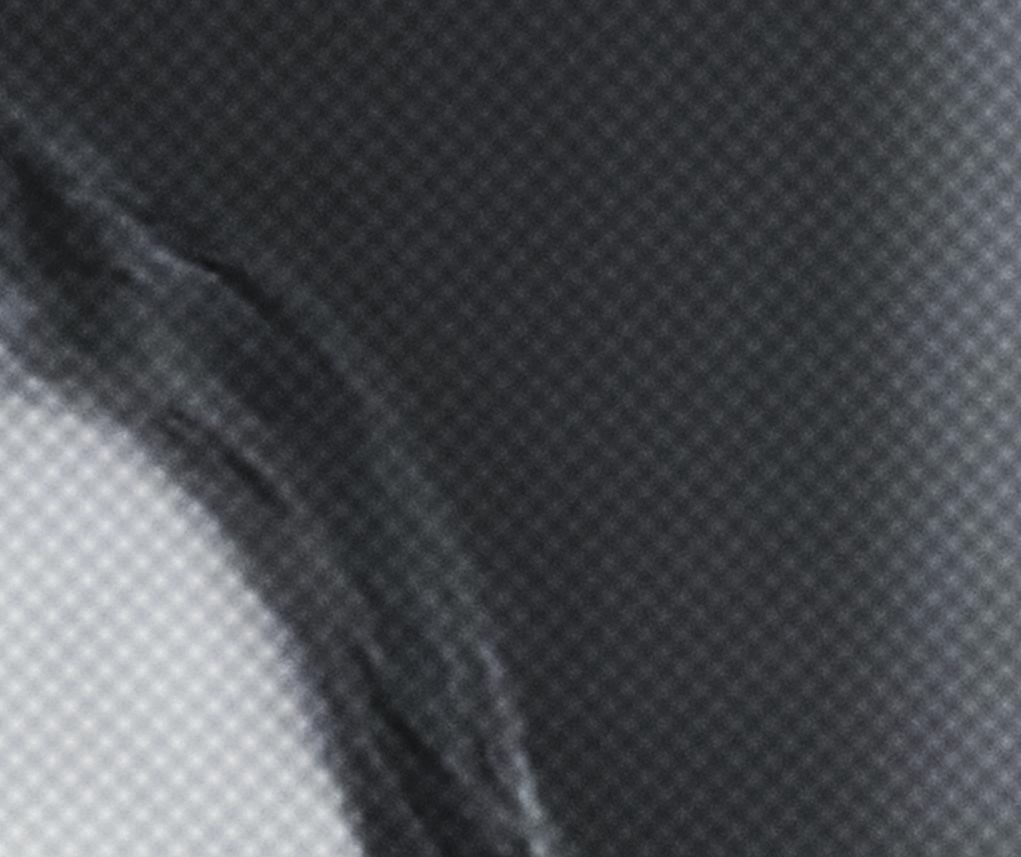
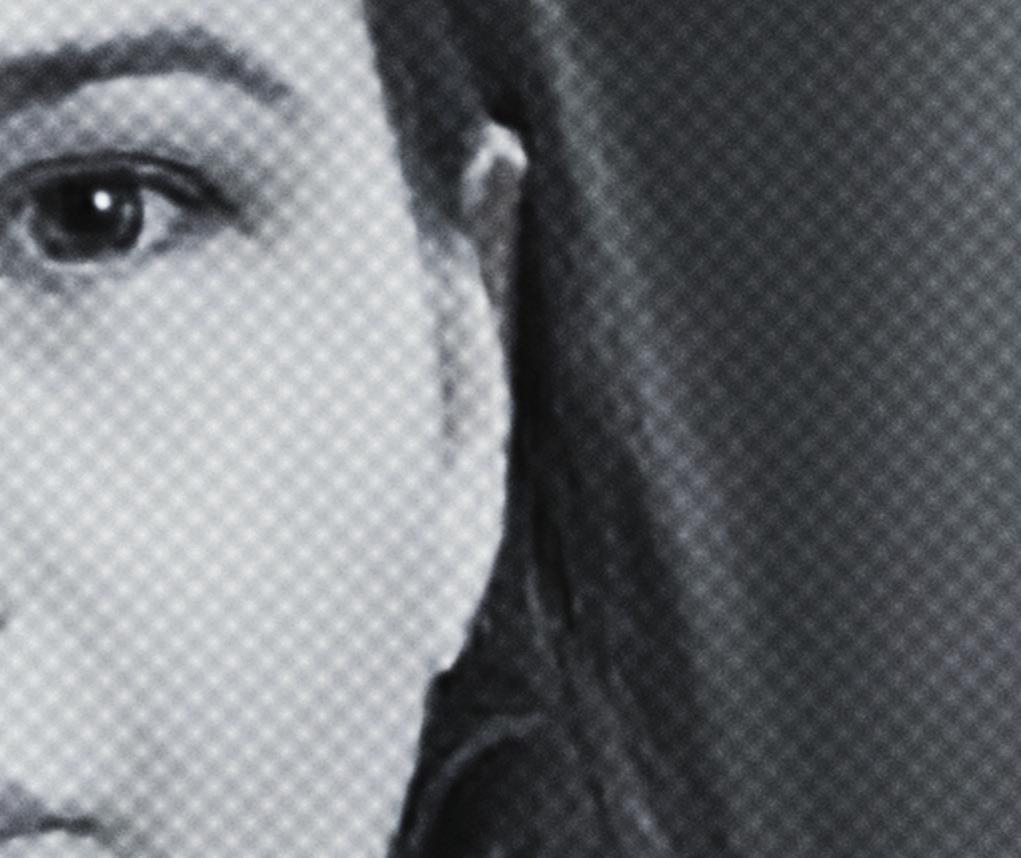
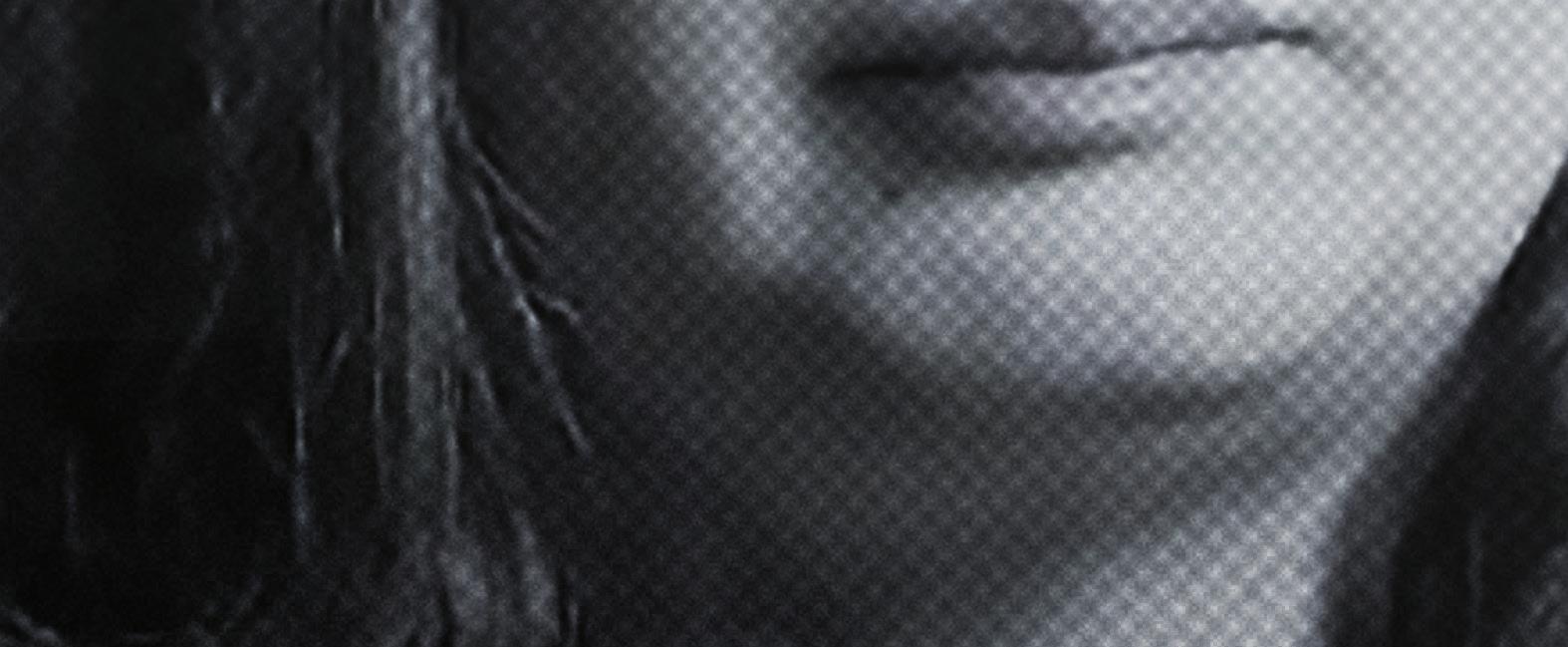
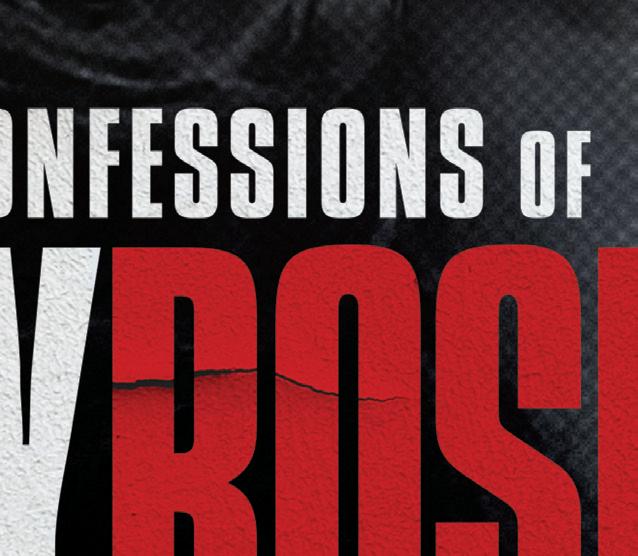
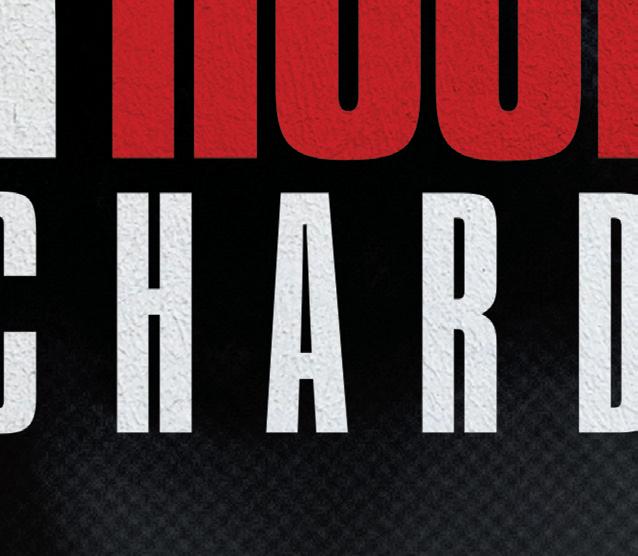


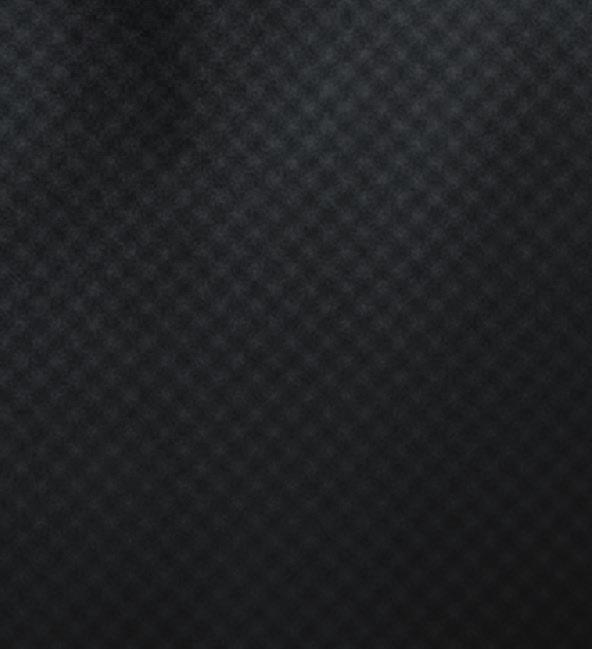

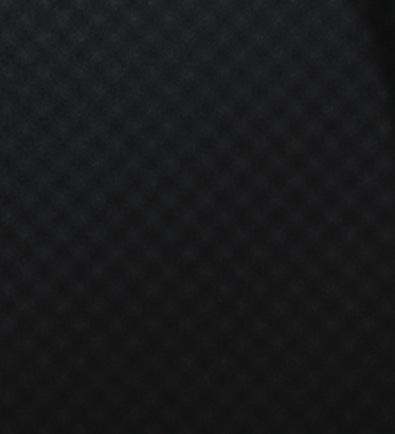

CONSIDERATION A LIFETIME ® DOCUMENTARY EVENT
FOR YOUR EMMY ®
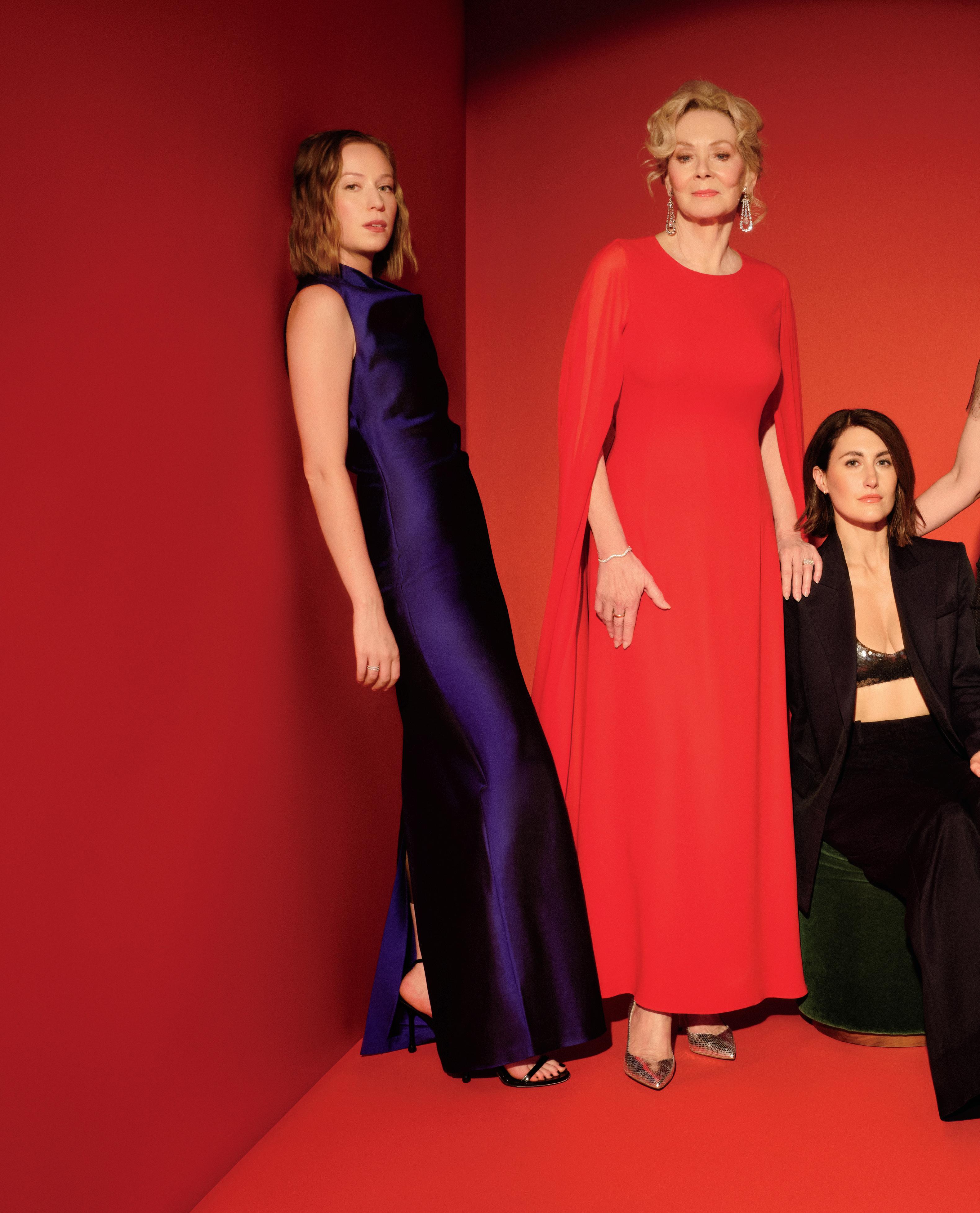 From left: Hannah Einbinder, Jean Smart, Jen Statsky, Lucia Aniello, and Paul W. Downs photographed in Los Angeles.
From left: Hannah Einbinder, Jean Smart, Jen Statsky, Lucia Aniello, and Paul W. Downs photographed in Los Angeles.
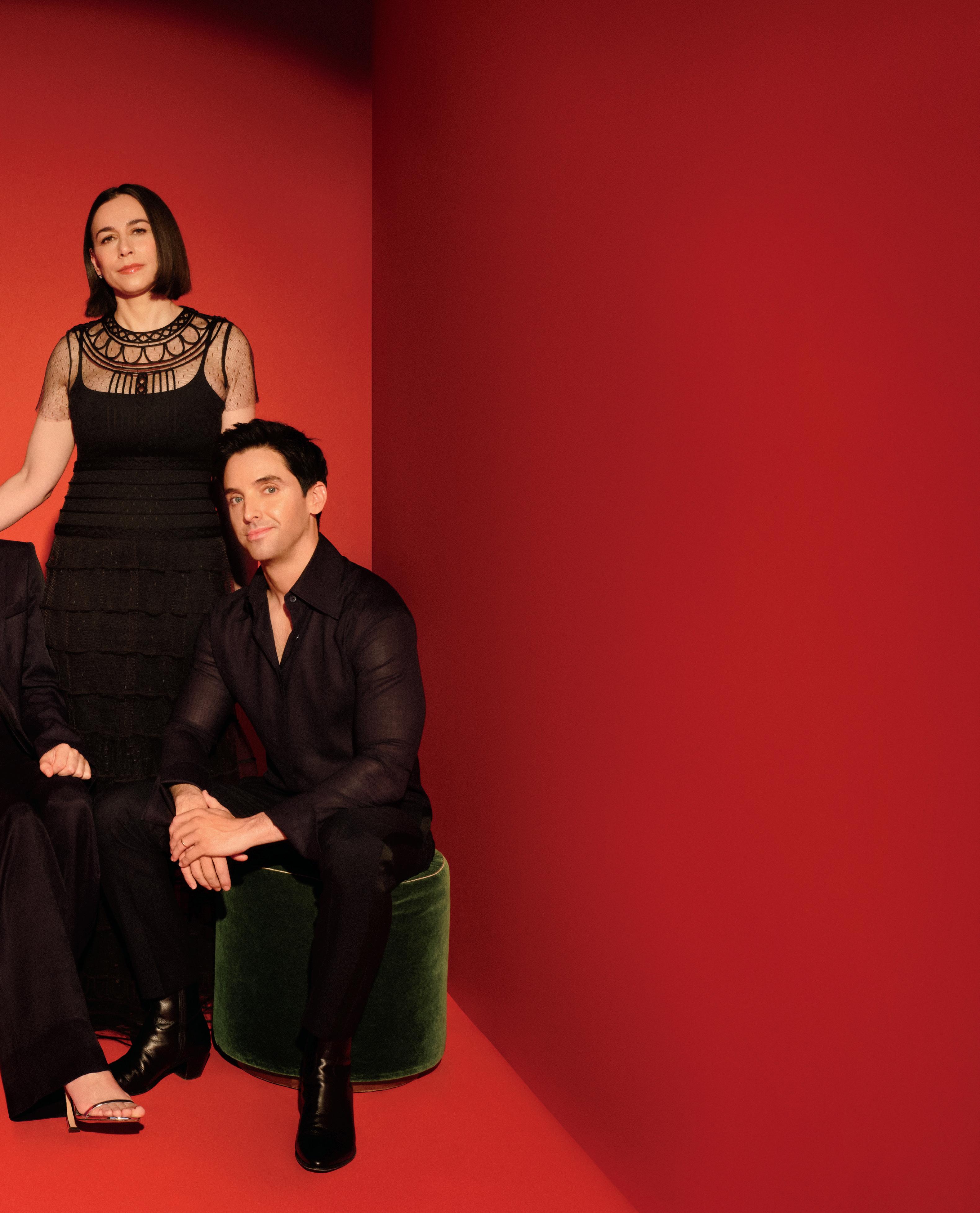
After a protracted shoot for the third season of Max hit Hacks , beset by health outages and a pair of industry strikes, the cast and crew have assembled in Las Vegas for the show’s final days of production. Invited to sit at the blackjack table with Jean Smart , Hannah Einbinder , and the show’s creative team of Lucia Aniello , Paul W. Downs , and Jen Statsky , Joe Utichi loses a fortune, but gains an insight into the making of comedy’s most piquant self-satire.
by
JESSICA CHOU
Photographed
♦
It is three o’clock in the morning at a blackjack table inside Las Vegas’s sprawling Caesar’s Palace casino. A woman in town on business has just turned a $150 bankroll into $800, and she moves to retire to the nearby bar to buy her work family, whose fortunes at the same table have varied, a drink. “I swear I barely know how to play,” she tells them. “But I do know the most important thing is to leave the table before your luck runs out.”
Jean Smart already has five gilded Emmy awards causing her shelves to groan under pressure. She deserves another for her “barely know how to play” nonsense. She has spent the evening feeding me advice on basic blackjack strategy—it’s my first time at the tables—yet I have only two chips left, totaling all of six dollars.
I follow Smart to the bar—the least I can do is claim a cocktail or two to drown my sorrows—and start to wonder if her advice was on the level. She was, after all, sat in the upstream position, very aware of the cards she needed to see from the dealer after I’d busted out.
Still, spirits are high on this first big night out in Vegas for the team behind Hacks, which includes showrunners and creators Lucia Aniello, Jen Statsky, and Paul W. Downs, and actors Hannah Einbinder and Mark Indelicato. And such is the warmth shown to the show’s mother hen, Smart, that I reluctantly decide that getting hustled by an acting icon is probably worth it, if only for the experience of it.
Probably worth it.
♦ ♦ ♦
For three seasons now, Hacks has followed the travails of stand-up
built by magicians and charlatans, so it should come as no surprise that the principal cast and crew have spent very little time here. Hacks primarily shoots further west, in Los Angeles. In fact, this is Smart’s first trip for the show, and these three days mark the longest stretch the Hacks team has spent on location in this grown-up Disneyland.
I’m with them for most of this trip, and watch as Aniello, Statsky, and Downs maximize their limited time. The call sheets for these days stamp a giant ‘Vegas’ across the show’s title, and scenes being shot will be scattered throughout the nine-episode season. Later, I’ll watch Smart whack golf balls at a driving range in sight of the Las Vegas Sphere. But my first encounter with Deborah Vance is preceded by the glint of a hundred thousand pink sequins.
the added complication of starring in the scene too, in his role as Deborah’s long-suffering manager Jimmy. Megan Stalter, as Jimmy’s assistant-cum-special project Kayla, readies a parasol for Vance. Aniello, directing, pauses briefly to decide whether to wait for the crowd noise from the Strip, or the airplanes taking off from the nearby LAS airport, or the many party buses driving past blaring obnoxious 2000s dance ‘classics’. She rolls her eyes and determines to press ahead regardless. Then, Statsky has an idea for the scene. The trio huddle.
It is at that point that a mess of sequins sparkle against the sidewalk, preceding a woman with a tall beehive hairdo, who steps in front of the fountain clutching multiple bags of high-end designer goods. Deborah has arrived.
comic Deborah Vance, who we met as she attempted to spice up her material for her long-standing Vegas residency. The show debuted on HBO Max—now just Max—in 2021 and has spent much of its runtime on the Strip, or Strip-adjacent.
But Hollywood is an industry
The Hacks team is gathered outside a gaudy recreation of Rome’s Trevi fountain, right on the edge of the Strip. In Rome, the fountain spills out of the gorgeous 16th Century Palazzo Poli. Here in Vegas, it leads from an ever-gaudier shopping mall, which is what Deborah is here to sell. The layers of artifice run deep—afront the fake fountain, a fake film crew preps to shoot an ad for the Las Vegas Chamber of Commerce. A real film crew is set up to shoot them, but even they’re getting confused about which piece of lighting kit belongs to them and which is a prop for the scene.
At the center of all this chaos, Aniello, Statsky, and Downs seem remarkably relaxed. Downs has

It has taken a long time for the cast and crew to reach this moment. “And part of that was my fault,” Smart tells me self-deprecatingly, referring to the season’s first significant pause in production, on February 14 2023, when Smart went in for what she later described as a successful heart procedure. She announced the news on Instagram, a little under two years after her beloved husband, actor Richard Gilliland, had passed away suddenly following heart complications. “Please listen to your body and talk to your doctor,” Smart wrote. “I’m very glad I did.”
It was a major surgery, Smart says, and her path to recovery took many weeks, but her colleagues on the show didn’t hesitate to give her the time she needed. Indeed, says Downs, “Most crew people, because it’s gig work, would move on to other jobs, but everybody waited because they love Jean and wanted to come back with her to this show.”
It has been this way for the Hacks cast and crew throughout its run to date, and on set, it’s clear to see the bonds that have been formed through years of collaboration. Downs, along with his fellow showrunners Aniello (who also directs) and Statsky, have fostered that environment from the start. Season 3 alone will have taken
22 DEADLINE.COM/AWARDSLINE MAX
♦ ♦ ♦
From left: Hannah Einbinder and Jean Smart in Hacks
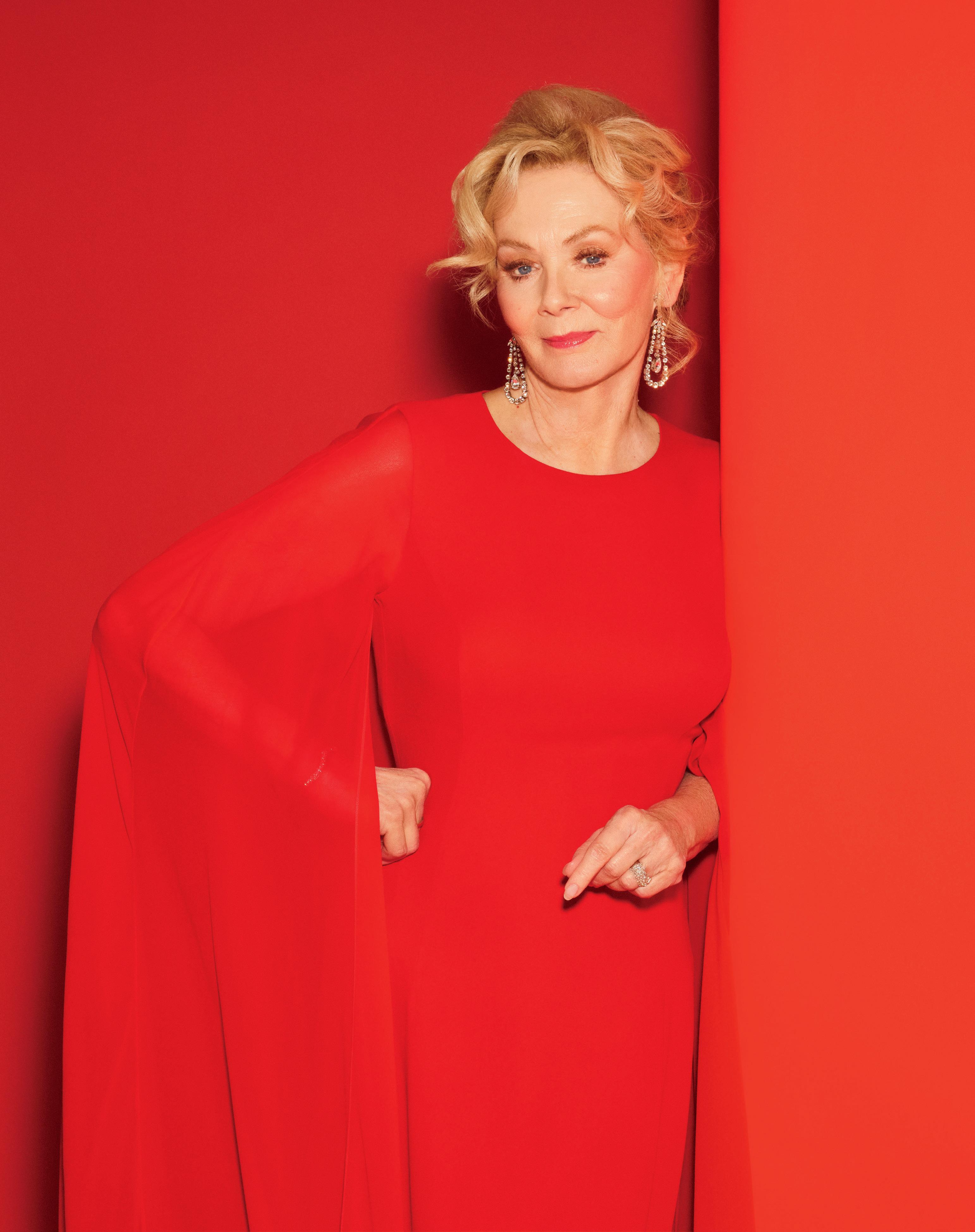 Styling by Micah Schifman; hair by Sheridan Ward and makeup by Keith Sayer.
Styling by Micah Schifman; hair by Sheridan Ward and makeup by Keith Sayer.
“Everyone always talks about building chemistry.
‘How did you build the chemistry between you?’ But we didn’t build anything. It was there from day one.”
HANNAH EINBINDER
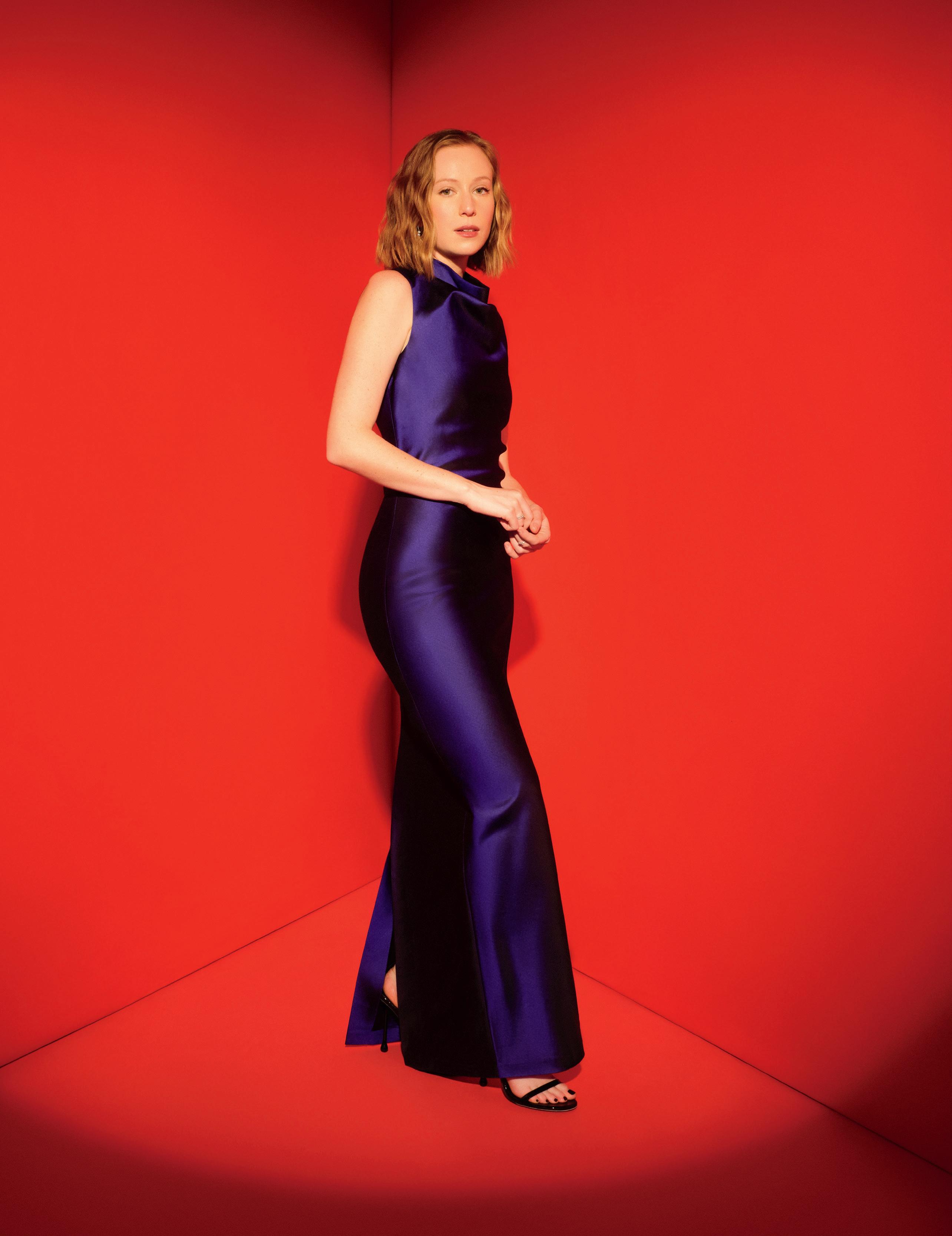
GUTTER CREDIT HERE
Styling by Jamie Mizrahi; hair by Jerrod Roberts and makeup by Molly Greenwald.
♠
them nearly two years from start to finish, with the first words hitting the page in the spring of 2022, and post-production set to continue until right up to the show’s premiere date. At this point, “I feel like we’ve been 16-months pregnant,” laughs Aniello. “The baby’s baked and ready to go.”
“It’s an overwhelming sense of wanting the world to see it now,” says Statsky, with the finish line in sight.
Further complicating matters for Hacks Season 3 were the two industry strikes of last year. The show would reschedule production for May 1, nine weeks after stopping for Smart’s procedure and recovery, and then shoot for a day before the Writers Guild of America announced its intention to strike beginning May 2. Hacks was one of the first shows in production to announce a complete halt, citing the need for the writing team to be on set as scenes come together.
“We [made the decision] on day one,” says Statsky. “We write as we go, and we couldn’t do our jobs as showrunners unless we were writing. We couldn’t write, so we had to stop.”
“We wouldn’t want to make the show that way,” says Aniello. “You wouldn’t want to find some kind of loophole that allows you to keep making something, especially if you’re making a worse version of it.”
Downs says bosses were supportive of their decision. “When we told HBO that we didn’t think we could make the show the way we want to make it, they really understood. I don’t think every show had that luxury. Some people faced a lot of pressure.”
The message was heard, though, by the wider industry, and the Hacks team were grateful that the impact of their decision, and HBO’s amenability, helped other creative teams struggling to make their own cases to down tools. “It was a line in the sand,” says Statsky.
Though the writers’ strike came to an end in late September, the ongoing SAG-AFTRA strike delayed production further, with the cast and crew gathering again, finally, in December.
“What’s good about the show is that when we’re not making it, we’re usually talking about the fact
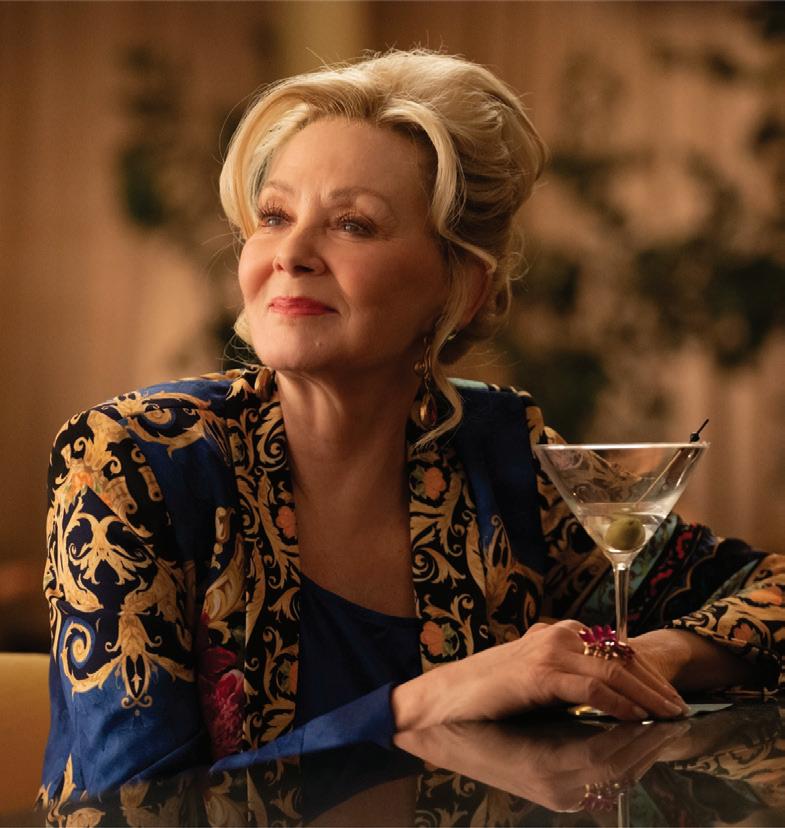
that we made it, so we tend to get to be together and live in the reality of doing the show,” says Hannah Einbinder, who plays Deborah’s co-writer Ava, the Gen Z foil to Vance’s dated wit. “It sucks not to see the crew who make it every day when we’re not in production, but the show never feels far away. It does make me sad, because I wish this was my job forever, a little bit. I do prefer to be doing it than not doing it.”
It’s about 10 p.m. in Vegas before production retires for the night, and Smart, Einbinder, and the creative trio hit The Palm restaurant in the gaudy mall for dinner. Call time was 9:30 a.m., and everyone is exhausted—not least this reporter, who is blaming jetlag for his lack of stamina. But when Smart sweeps in, it’s like an injection of fresh energy. She’s already gearing up for our session at the blackjack table later, discussing the strategy she claims she’s heard about but never practiced (whatever you say, Jean). Later, Downs will tell me that Smart brings this same energy to the set every day. “She works nonstop. She works so hard. She never phones it in.” Smart means it when she describes this cast and crew as her family. “After her surgery, she wanted to come back two weeks later, and her doctors
“It was so perfect that we were wrapping up that long, long season in Vegas. It was a chance for our entire cast and crew to party together, and overindulge slightly, and it was a real shot in the arm at the end of the season.”
♥ JEAN SMART
were like, ‘Absolutely not’,” says Downs. “When she was deciding to go in for the surgery, she said, ‘But I don’t want to shut down the show.’ I happened to be with her in the hospital in that moment, and I said, ‘Jean, worry about your health only in this moment.’”
“It’s just the most wonderful work environment to be a part of,” Smart says, placing the credit for her fervor firmly at the feet of her collaborators. “I was talking to a young man who just worked on the show for a day. He might have been one of the caddies when we play golf this season. But we were sitting around, and he said this was the most welcoming set he’d ever been on, and it’s true. If they hadn’t created that environment, I just couldn’t imagine being able to do it. I would shrivel up.”
Smart remembers the Frasier set having a similar energy. It was her guest role on that show that brought her the first two of those five Emmys (the most recent two are for Hacks). But she’s also the only one who won’t credit herself for fostering it. When Einbinder was auditioning to play Ava, the team had narrowed the field to three actresses who would screen test with Smart. She remembers receiving a call from Smart the night before, reassuring her that she would be supportive, and that Einbinder needn’t be nervous.
“Everyone always talks about building chemistry,” says
Einbinder now. “‘How did you build the chemistry between you?’ But we didn’t build anything. It was there from day one.”
“They narrowed so many actresses down to the three I read with,” says Smart. “By the end, there was no doubt in my mind that it had to be Hannah. She was just such a natural. I hate to use an acting term, but she is in the moment at all times. There’s nothing before, nothing after; she’s just prepared.”
“I feel like Jean and I started to spend time with one another every day when there was a lot of life happening for both of us,” adds Einbinder. “We leaned on each other pretty early on. Of course, we laugh together, which is a great bonding force, but so much life has happened since we got to know each other. She’s been through so much, and I’ve been through so much. She has allowed me to be there for her, and that has felt like an honor.”
Einbinder, who is currently in post-production on her stand-up comedy special for Max, is never shy to count the blessings Hacks has brought her. “This show has made every other opportunity in my life possible,” she says. “I was a feature act for other comedians when I got cast, and it instantly made it possible for me to headline and sell tickets.”
“I told her I want 5%,” cackles Smart with a devilish glint.
GUTTER CREDIT HERE 25 DEADLINE.COM/AWARDSLINE
♦ ♦ ♦
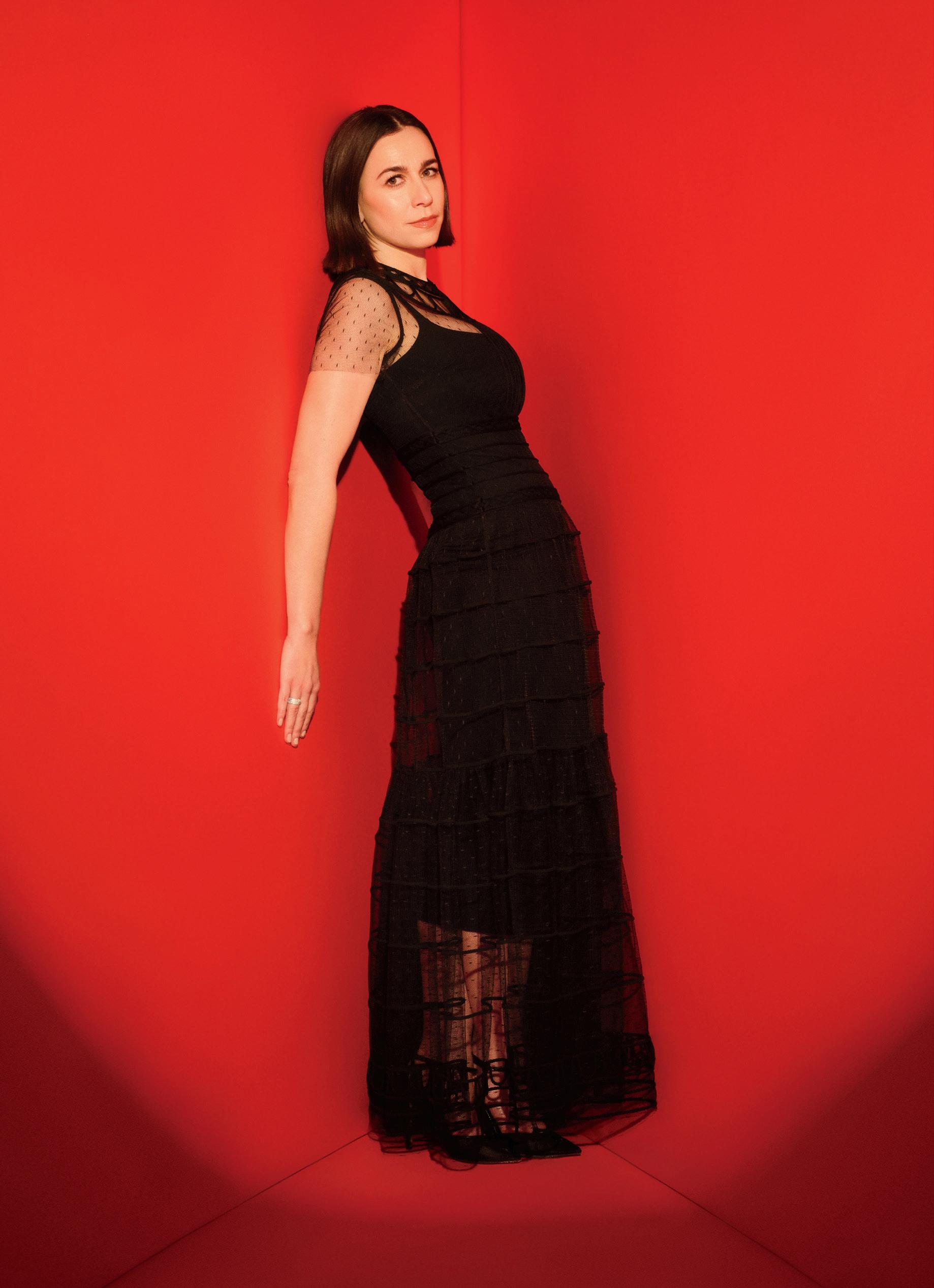
interesting thing,” says Downs, “because all of the networks knew the end of the show, and Suzanna cut us off before we got there and said, ‘I get the show, it’s bought, we don’t need to keep doing this.’”
“She’s the only one who doesn’t know how it ends,” laughs Statsky.
But neither do Smart and Einbinder, who both say they don’t want to know just yet. “They said they had five seasons of this in their heads, but that was it,” says Smart of her first meeting with the team. “Well, then it was five… it might be different now.”
“That’s still our plan,” says Aniello. “We started pitching the show in 2019, but we’ve been thinking about it since 2015, so we’ve had a great time to plot out and talk about where we wanted the show to go.”
“Yeah,” says Statsky, laughing, “But I’m in some debt, so…”
“Our fortunes at the blackjack table tonight might dictate the future of the show,” jokes Smart.
The show’s third season picks up the action about a year after we last saw Deborah and Ava. And the cast list alone was a relief for Einbinder, who remembers the moment she read the finale of Hacks’ second season, in which Deborah cuts Ava loose and instructs her to pursue her own dreams as a writer. “I had no idea what was going to happen at the end of the season,” Einbinder laughs, recalling the memory. “So, I read this last script and I just started crying. I called Jen, Paul, and Lucia, and I said, ‘Am I fired?! Are you writing me off the show?’”
Of course, they quickly reassured her that wasn’t the case.
“They didn’t know just how low my self-esteem was,” chuckles Einbinder, as Smart gives her a hug. She says she has since learned more about the show’s trajectory.
“I feel like we’ve been 16-months pregnant. The baby’s baked and ready to go.”
LUCIA ANIELLO
When they first pitched Hacks to networks around town, the creative trio imagined a five-season arc, and even described the very final scene of the series in every pitch meeting they took—all except one, with Max’s comedy chief Suzanna Makkos, who would wind up buying the show. “It’s a really
Part of that five-season plan was always going to factor in a return to the topic raised in the show’s pilot. Sometime in the past, Deborah had shot a pilot for a late-night television show, a job she had coveted from the start of her career. But it was never picked up, and Deborah had done her best to forget it had happened until Ava unearthed the tape in her voluminous archive.
In Season 3, late-night comes back. “It has been a lynchpin of
26 DEADLINE.COM/AWARDSLINE ♦ ♦ ♦
Styling by Brit + Kara; hair and makeup by Rachel Burney.
♣
the whole series in a way,” says Downs. “As we were writing the season, Chelsea Handler went on a campaign to take over from Trevor Noah, and it was still being talked about while we were making the show.”
Late last year, Taylor Tomlinson was tapped to take over the latenight slot from James Corden with her show After Midnight. “But it’s not a traditional late-night show, so still no woman has ever been given that opportunity,” notes Statsky. “I don’t know that late-night is doing well for [the networks]. It might go away as a concept before a woman ever gets to host a true, network late-night show.”
Hacks has obsessed itself with poking at these industry hypocrisies, particularly when it comes to the roles women are forced to play. Deborah is one of the rare survivors; a woman whose career has ebbed and flowed, but who has lasted for decades in one guise or another. And yet, we first met her at the financial zenith and creative nadir of any performer’s career: a Vegas residency. Sure, Deborah’s mansion could comfortably house a small country, but the person we come to know is far from the entertainment industry overachiever we’re frequently convinced someone of her stature must be. Deborah’s victories have been hard-fought. She has been treading water her entire career, and she can’t admit to herself that she is exhausted from the effort, because to do so would be to lose everything she has built.
For Ava, too, this pressure is ever-present. Cancelled for tweeting an off-color joke, the promising career she felt she had ahead was snatched away from her before it had even begun. Writing jokes for a hack comedian—and one who has made her stock-in-trade a mean-spirited version of her comedic faux-pas, no less—is Ava’s own creative nadir. Watching the ruthlessness with which Deborah fights for her place on the stage revolts Ava. But though she couches her own fight in self-righteousness, the two are not so dissimilar. Both are forced, constantly, to become ever more wicked versions of themselves to keep afloat. Deborah is just years further down the road of making
“Late-night has been a lynchpin of the whole series in a way. As we were writing the season, Chelsea Handler went on a campaign to take over from Trevor Noah, and it was still being talked about while we were making the show.”
PAUL W. DOWNS
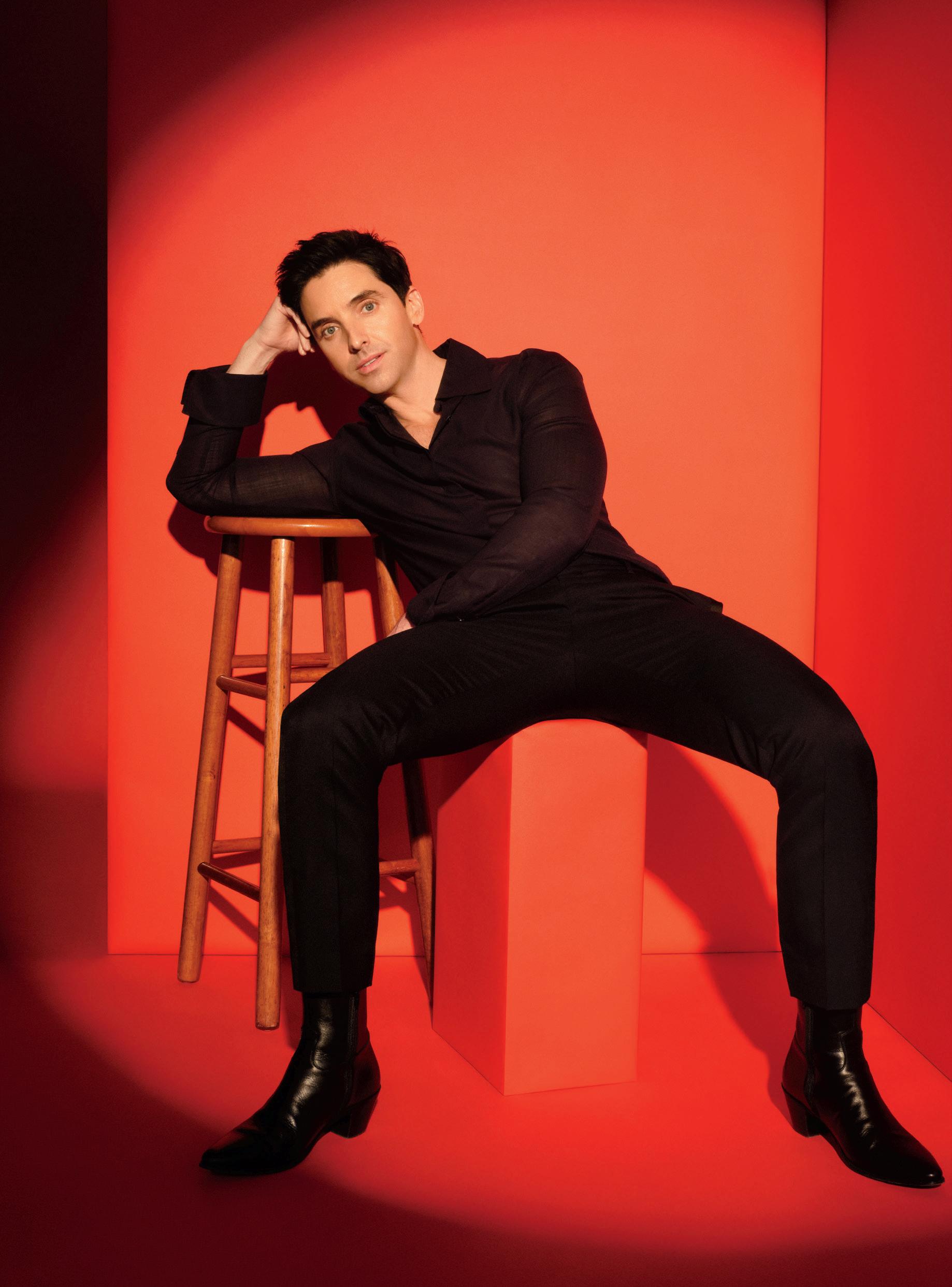
27 DEADLINE.COM/AWARDSLINE
Styling by Brit + Kara; grooming by Jamie Taylor.
♠
her peace with that.
“We’ve always said this show is a redemption story for them both,” says Aniello. “And that redemption takes a while, because of where we find them in the beginning; both outcasts of the entertainment industry.”
Season 3, then, will end on a higher note than the two that preceded it. “Finally,” adds Aniello, “we’ve given Deborah her white whale.” But though it might end well, things are never quite all well; Deborah has harpooned the beast, but she will have to hold onto it as it thrashes. “And that’s not something we feel like we’re ready to resolve in a single season,” hence another two seasons ahead.
“It’s giving her what she wanted for so long, but at what cost?” asks Statsky. The sting in the tail of Season 3 is that Deborah cuts Ava loose again the second she fears that fighting for her might jeopardize that prize. That’s a line too far for Ava, who has spent three years now struggling for her place at Deborah’s side.
“What we’re setting up is that Deborah is now on the biggest stage of her career,” says Statsky. “She’s got this huge gig that she now has to make work, because it’s what she’s wanted more than anything. But now she’s at odds with her closest collaborator—and closest friend, to be honest—because she has betrayed her.”
In perhaps the most electric of the season’s many charged scenes, Ava will punch back. When Deborah decides to maintain the status quo by not replacing the show’s head writer with Ava, Ava will take a leaf out of Deborah’s playbook. “Much to Deborah’s dismay,” notes Smart, “Ava has learned the lessons she taught her a little too well.”
If I’m dancing around the moment
“We write as we go, and we couldn’t do our jobs as showrunners unless we were writing. We couldn’t write, so we had to stop.”
♥
JEN STATSKY
in question, it’s because it hasn’t aired as this story goes to print; the finale arrives on May 30. “It’s so Eve Harrington,” teases Smart, referencing Anne Baxter’s title role in the 1950 Bette Davis classic All About Eve. “It’s a mixture of rage with some admiration; almost pride. And then, at the very last moment, it’s like, ‘Oh, this will be fun.’”
It’s a mark of a show that has firmly ensconced itself into the creative consciousness that big name guest stars start lining up for their chance to join in. Hacks has always had an impressive roster, but Season 3 ups the ante by several notches. Among the names on the call sheet this season: Helen Hunt (“who outDeborahs Deborah,” notes Smart), Christopher Lloyd, and J. Smith Cameron, to name just three. Even that Las Vegas mainstay Carrot Top graces the set with his presence.
“When I’m coming to work and I’m opposite Jean, I’m always coming to play,” says Einbinder. “But I definitely feel like I gotta have nerves when the big dogs come to play. All these people come in who are so iconic, and suddenly, they’re just sitting there, knitting at their chair between scenes. Everybody slots right into the environment that Paul, Jen, and Lucia built.”
J. Smith Cameron plays Deborah’s estranged sister, Kathy, and must
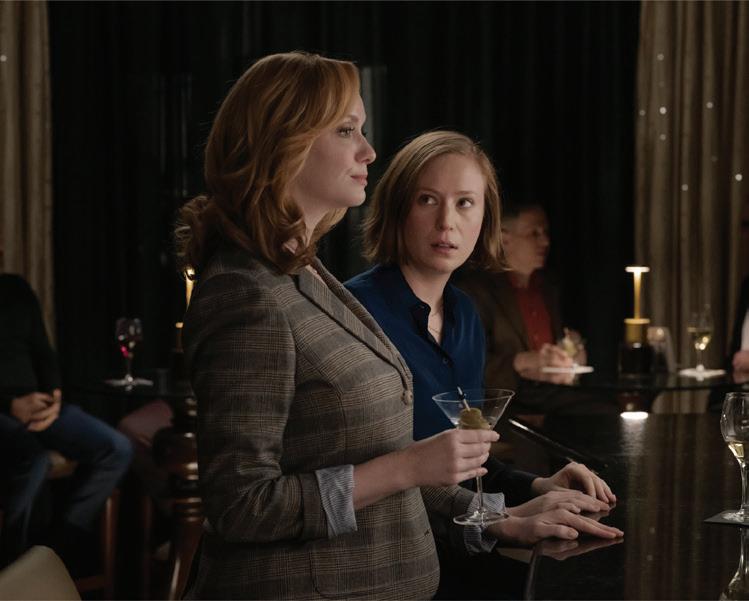
surely be on every voters’ Guest Star ballots by now. “I’ve admired her for so long,” says Smart. “For her to come onto the show after Deborah has been talking about her horrible sister for two seasons, and then to play that person who turns out to be very sweet… She was wonderful. We have a similar approach to our work, and we had a great time together. We’re already conspiring to do a play together.”
The scenes between Deborah and Kathy hit with the kind of familial truths that have percolated the show since its premiere. Hacks is, at its most fundamental level, an uproarious comedy. That has always been the first intent of this creative team. But as a study of human nature, especially within the confines of this business of show, its third season has been particularly adept at getting to the root of what drives us. Many of this show’s characters feel like archetypes in the broadest terms, but especially this season, those archetypes have been dismantled.
In the main cast, as well as Ava and Deborah, there is Marcus (Carl Clemons-Hopkins), the fan-turned-business manager who has been forced this season to clear some more of the fanatical shine he has lathered on Deborah for so many years. There is Kayla, the nepo baby assistant who is so unaware of her blind spots that she can’t even detect when she’s being
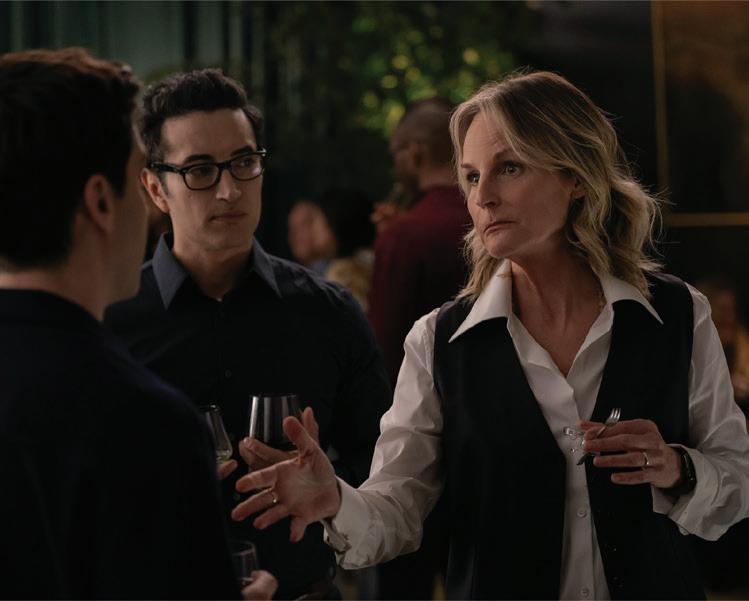
competent. And Jimmy, her boss, who has been forced to take her along for the ride because, deep down, he’s aware of his own easy walk into his career.
Jimmy and Kayla have a particularly touching moment in the season’s finale, details of which I again must skirt. “You get to understand more about where Kayla is coming from and how she became the person she is,” hints Downs. “I think we’ve really tried, with every member of our ensemble, to deepen our understanding of what their journeys are, and what they really want.”
The moment of catharsis for Jimmy and Kayla is somehow both hilarious and touching in equal measure. “It’s such strong comedy from Paul and Meg,” says Statsky. “But it’s also so sweet. It’s a testament to them as actors, that they’re able to do both in a single scene. The hardest thing to do in comedy is to elicit true empathy while being so funny. It’s a high-wire act that they both perform beautifully.”
Though I don’t witness this particular moment on set, it becomes clear very quickly that the script is a jumping off point. Take after take, this creative team finds new veins to mine. Ideas don’t just float between Aniello, Statsky and Downs; they come from everybody, and if they’re funnier than what’s on paper, they get shot.
“There’s an egolessness to them,”
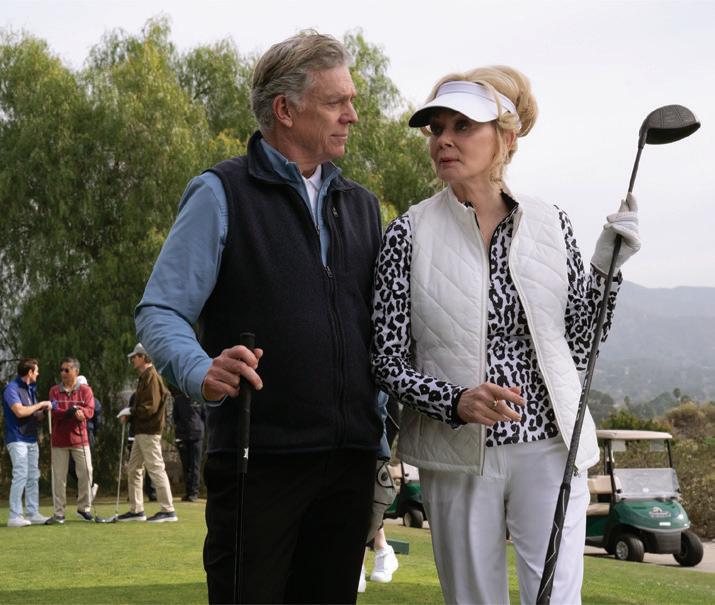
MAX
♦ ♦ ♦
From left: Christina Hendricks and Hannah Einbinder; Aristotle Athari and Helen Hunt; Christopher McDonald on the fairway with Smart.
28 DEADLINE.COM/AWARDSLINE
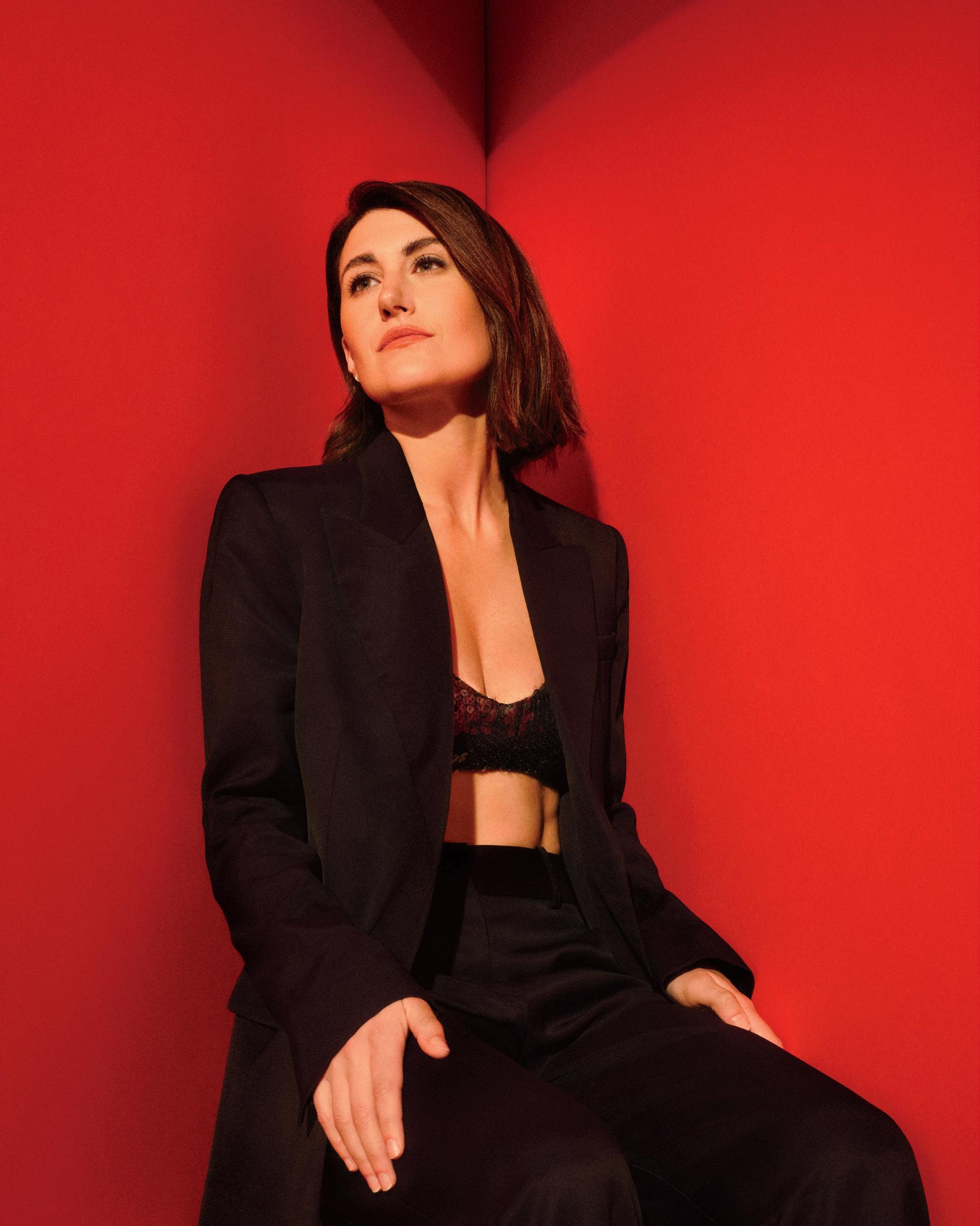
says Einbinder. “The best idea wins. All they want to do is make the show better, and they create an environment that is welcoming and supportive. They walk around and do bits; everybody’s always laughing. Our DP is funny. Our grips are funny. Our boom operators are funny. It really is a charmed experience.”
“What’s great is that I’ve been involved in the editing, I’ve directed, and I’ve written on the show,” says Downs, “so as an actor, I feel very free to be able to live each scene on the day, and to change things. There isn’t a huge amount of improvising, to be honest with you, because we move so quickly. We shoot a lot of pages in a day. You have to be disciplined about how you change things and be really, really prepared. But having such a great scene partner
like Meg, we’re able to bounce off of each other.”
Downs is right; improvisation is not the right word for it.
Particularly on the bonus features of Adam McKay movies, we can see that process, as some of the funniest actors around riff altenative lines for minutes at a time, trying ceaselessly to say the right zany thing. On Hacks, alt lines are written into the script multiple times an episode. This feels almost like an invitation on the day of the shoot, to keep things open to possibility. But the luxury of throwing mud against the wall until something sticks doesn’t compute when there’s only a few short months to bank nine episodes. Changes must be more precise; and they must be earned instead of indulged.
In the scene outside Caesar’s, I witness how this is realized. The
plaudits, drops the bags to the curb, and wanders off oblivious and disinterested? All of a sudden, the scene has the punch it needs.
“Sometimes, it’s only when you get something up on its feet that you realize something’s slightly off,” says Aniello. “It doesn’t feel quite right. And so, we’ll huddle together and figure out a solve. Sometimes those moments are so intense, like you’re on a game show and you have two seconds to find the answer, but the more we’ve done it, the better we get at it, and at this point, it’s like we have a gut feeling as to what our characters would do in any given moment.”
“We live for the tiny things,” adds Downs. “The tiny tweaks that you almost can’t describe, and sometimes that’s because it’s not even that something doesn’t work to begin with. It’s just like, ‘How can I tickle it a little more?’”
underlying gag of the scene is so subtle that it isn’t immediately apparent: the first AD on this commercial introduces himself to Deborah at the start of the scene. They roll a take on her, she yells, “Shopping!”, holding her designer bags aloft. And then the director calls cut and the same first AD announces, “That’s a wrap on Deborah Vance.” All of this production value, at one of the busiest spots on the Strip, to capture one word in a single take. We’re left to wonder just how sizable the check was that brought Deborah to this set.
The scene, as written, calls for Deborah to smile at the applause that greets her wrap announcement, curtsey theatrically, and then move to her car. At some point, the suggestion becomes: what if Deborah completely ignores the
After a long season with many unfortunate, unavoidable gaps in production, it seemed fitting to Smart that filming should end with a proper trip to the Entertainment Capital of the World. “It was so perfect that we were wrapping up that long, long season in Vegas,” she says. “It was a chance for our entire cast and crew to party together, and overindulge slightly, and it was a real shot in the arm at the end of the season.”
“Slightly”. If Caesars Palace had windows, Smart would have seen the sun rise from her vantage point at the bar as she frittered away her ill-gotten blackjack winnings. It was 5 a.m. before she called it a night.
Months later, I discover my six dollars’ worth of chips buried at the bottom of my luggage. “Level with me,” I ask Smart when we reconnect. “You hustled me at that blackjack table, didn’t you?”
There is that cackle again; Smart’s riotous laugh that she has gifted to Deborah Vance. At once wicked and delightful, it deserves its own place in television’s hall of fame. “Oh, I wouldn’t say that,” she demurs. “I was only trying to help.”
The trouble is, I believe her. She really has earned every single one of those Emmys.★
♦ ♦ ♦
29 DEADLINE.COM/AWARDSLINE
Styling by Maren Taylor; hair by Eddie Cook; makeup by Courtney Hart.
Dialogue
Renée Elise Goldsberry
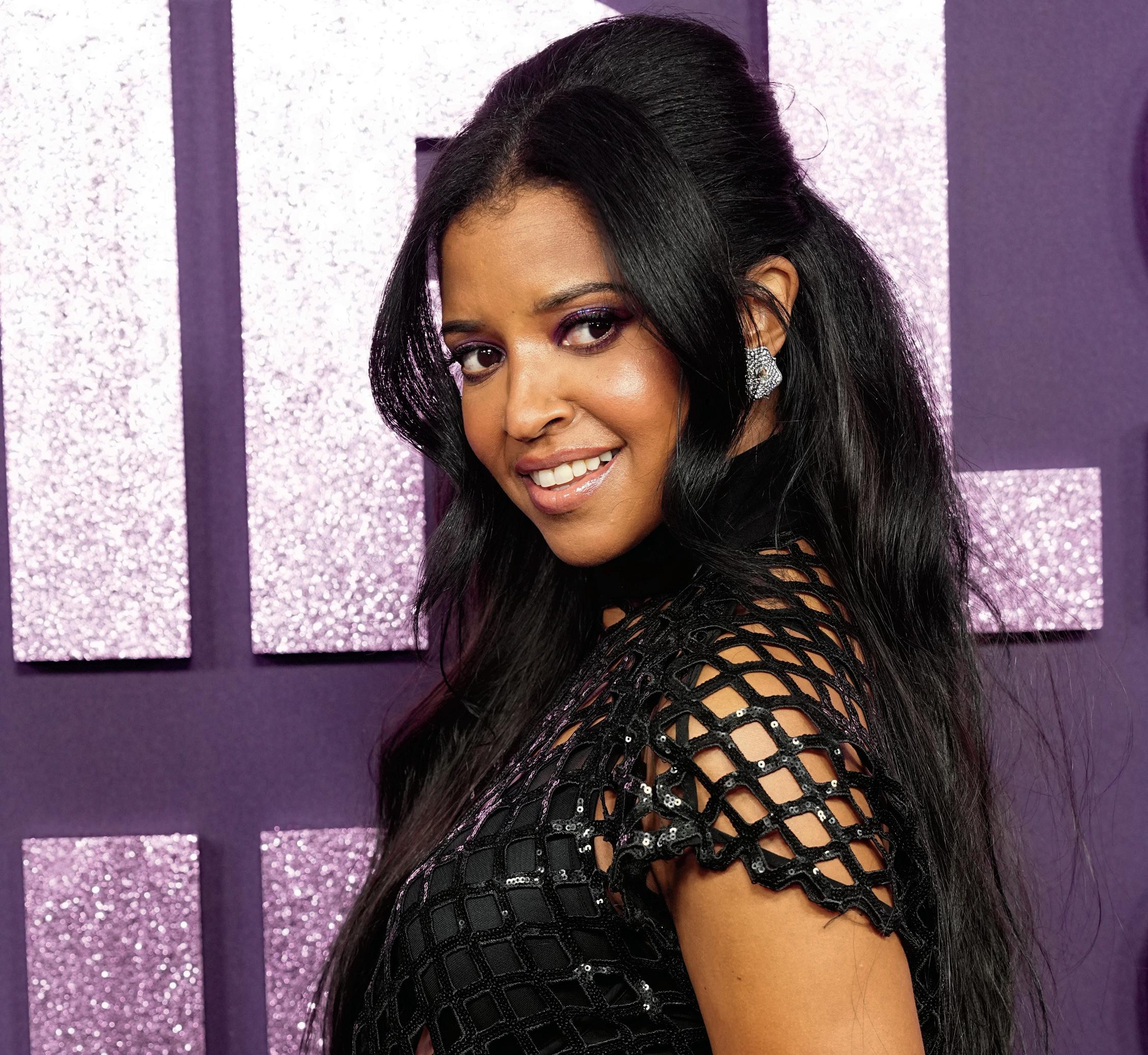 BY ANTONIA BLYTH
BY ANTONIA BLYTH

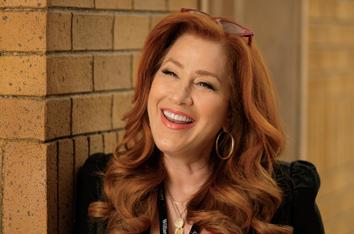
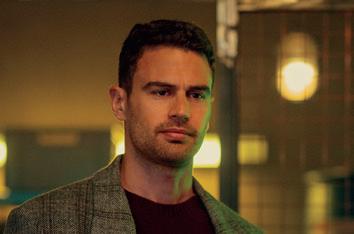
30 DEADLINE.COM/AWARDSLINE IN
CONVERSTION WITH THE FINEST NAMES IN COMEDY
JOHN NACION/GETTY IMAGES
it
Loot 34
Maya Rudolph Money To Burn The former SNL star takes a swipe at the billionaire class and looks great while doing
in
feel
Lisa Ann Walter Back To School Early lessons made Abbott Elementary classrooms
natural 38
42
Theo James Funny Business The Gentlemen star returns to his comedic roots in the Guy Richie series
How Girls5Eva became an unexpected gift for the Tony-winning Broadway star


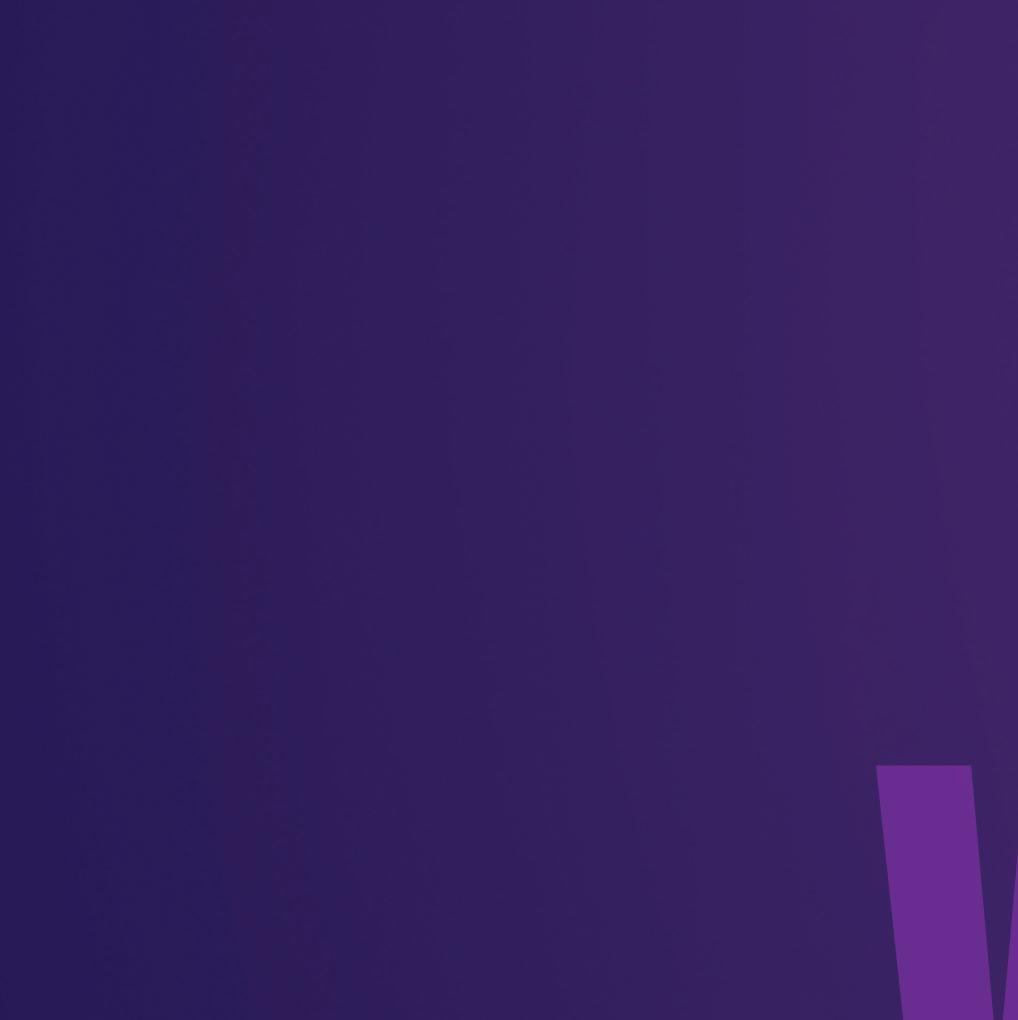

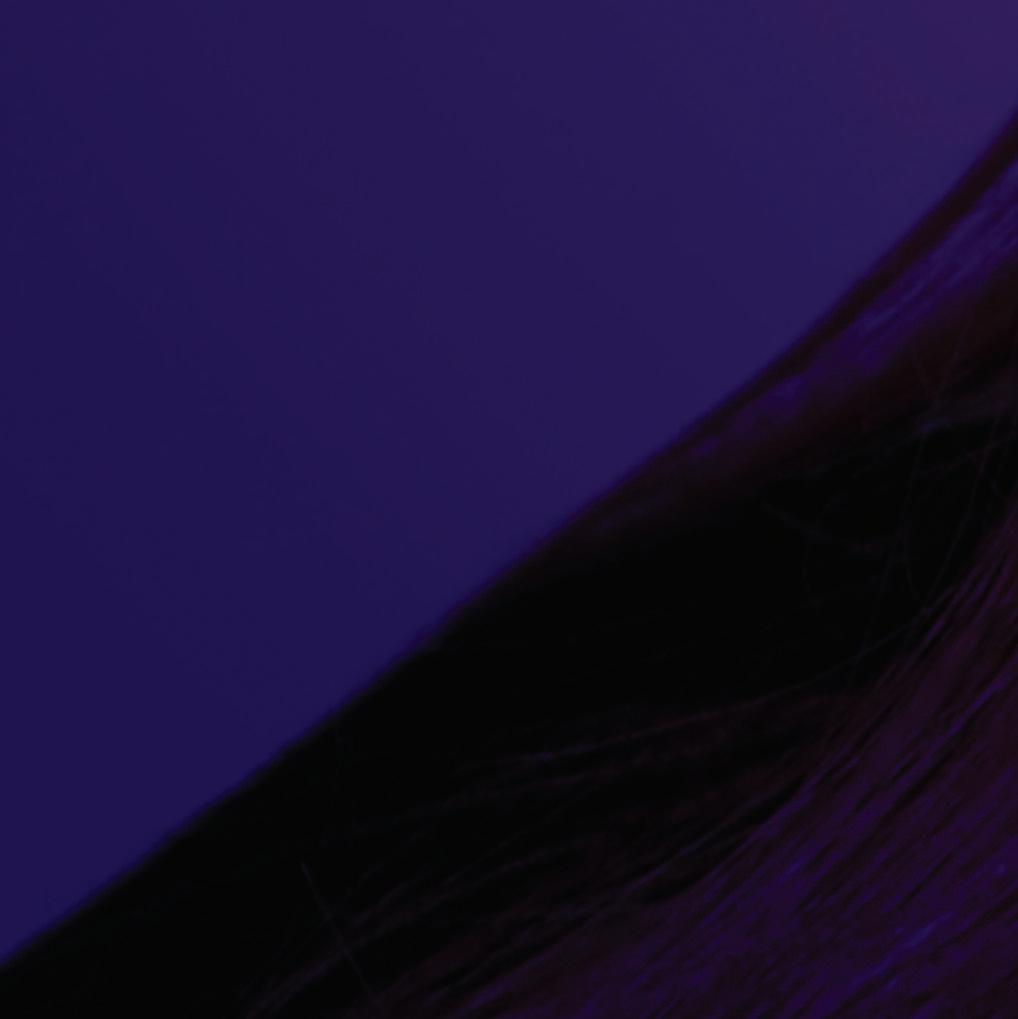

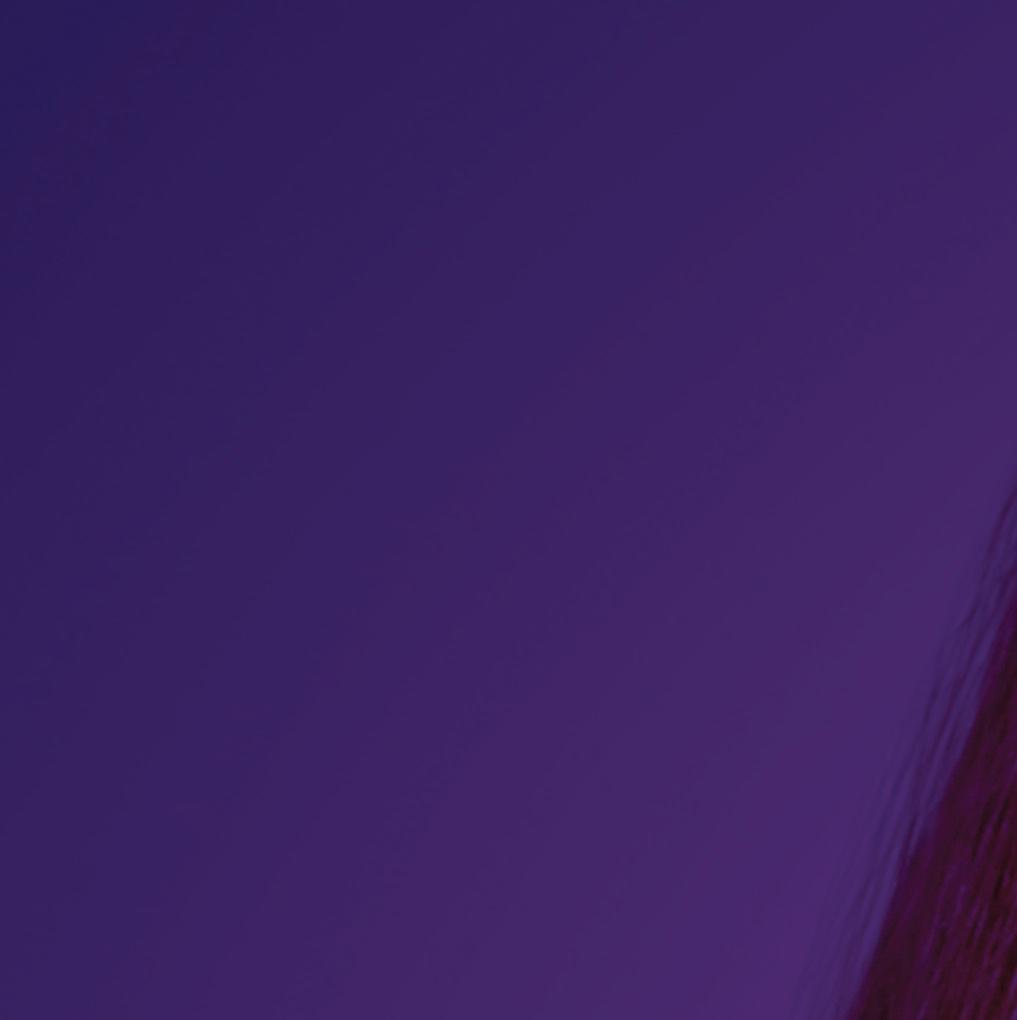
FOR YOUR EMMY ® CONSIDERATION
OUTSTANDING DOCUMENTARY OR NONFICTION SERIES





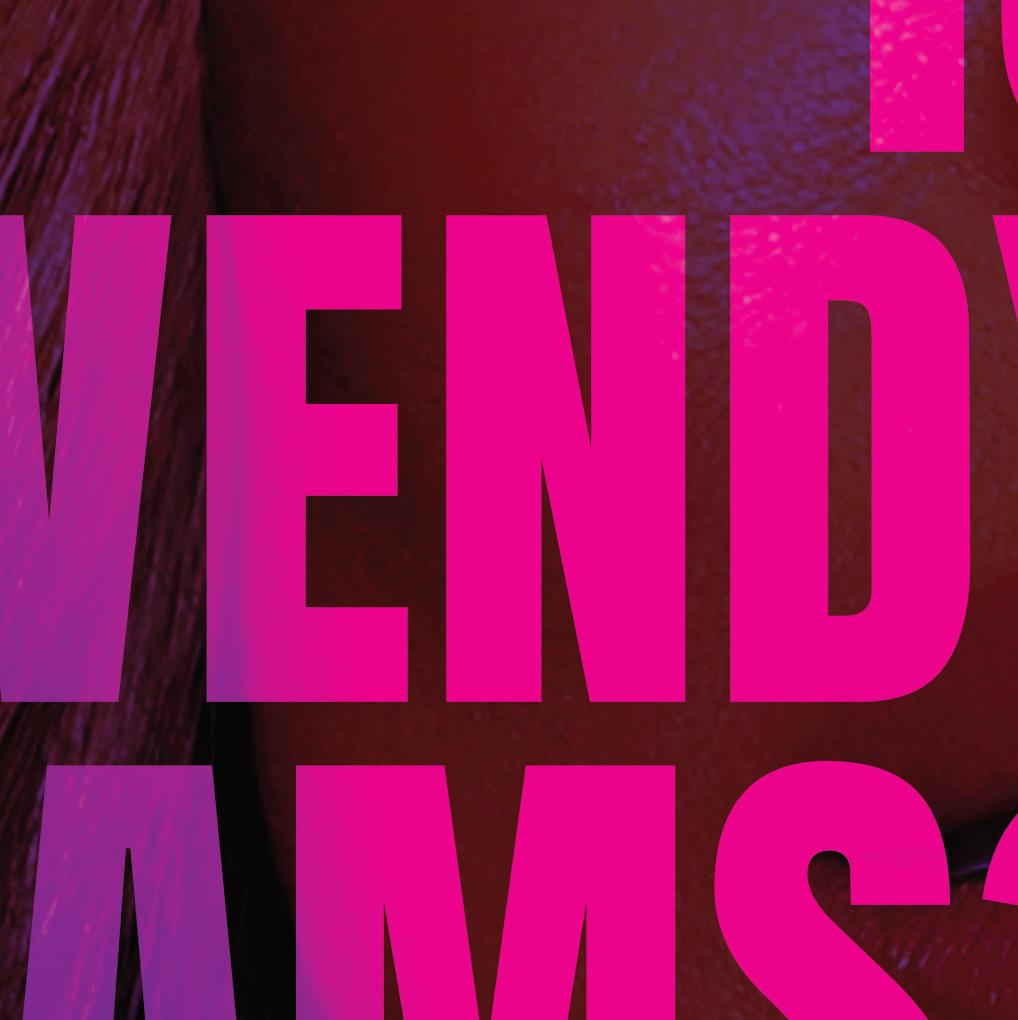

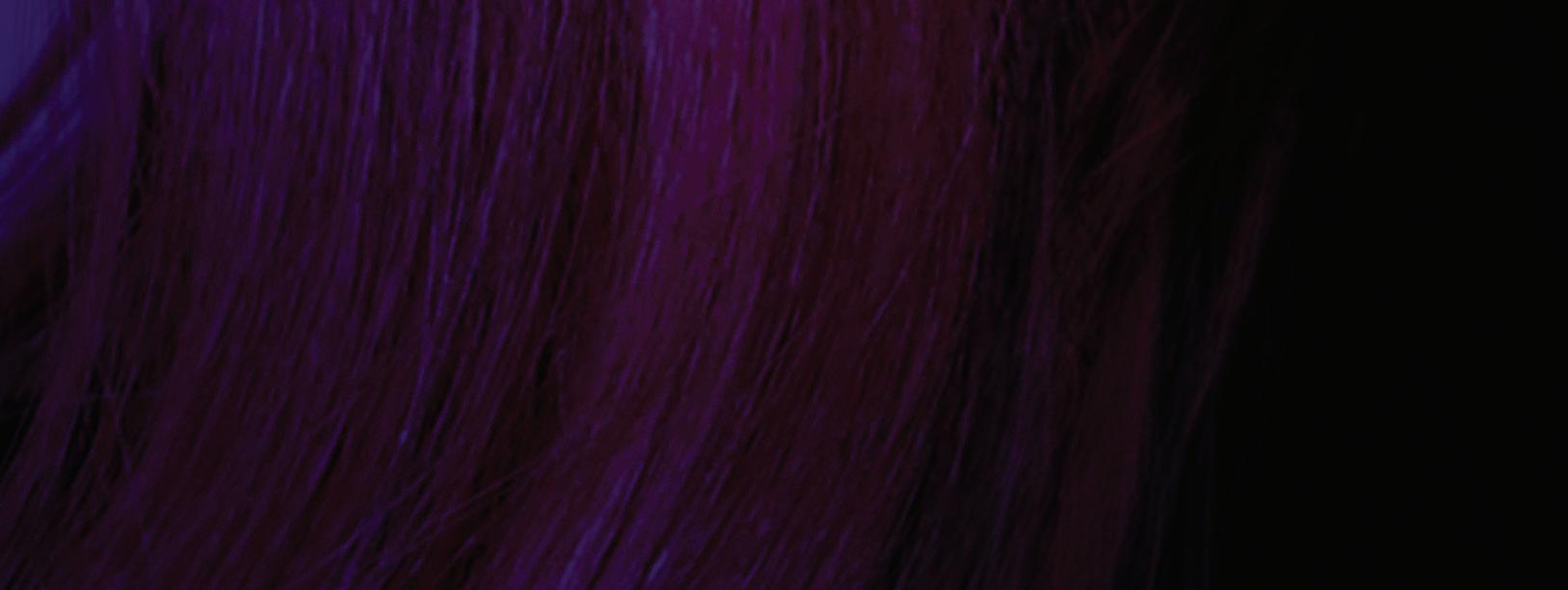




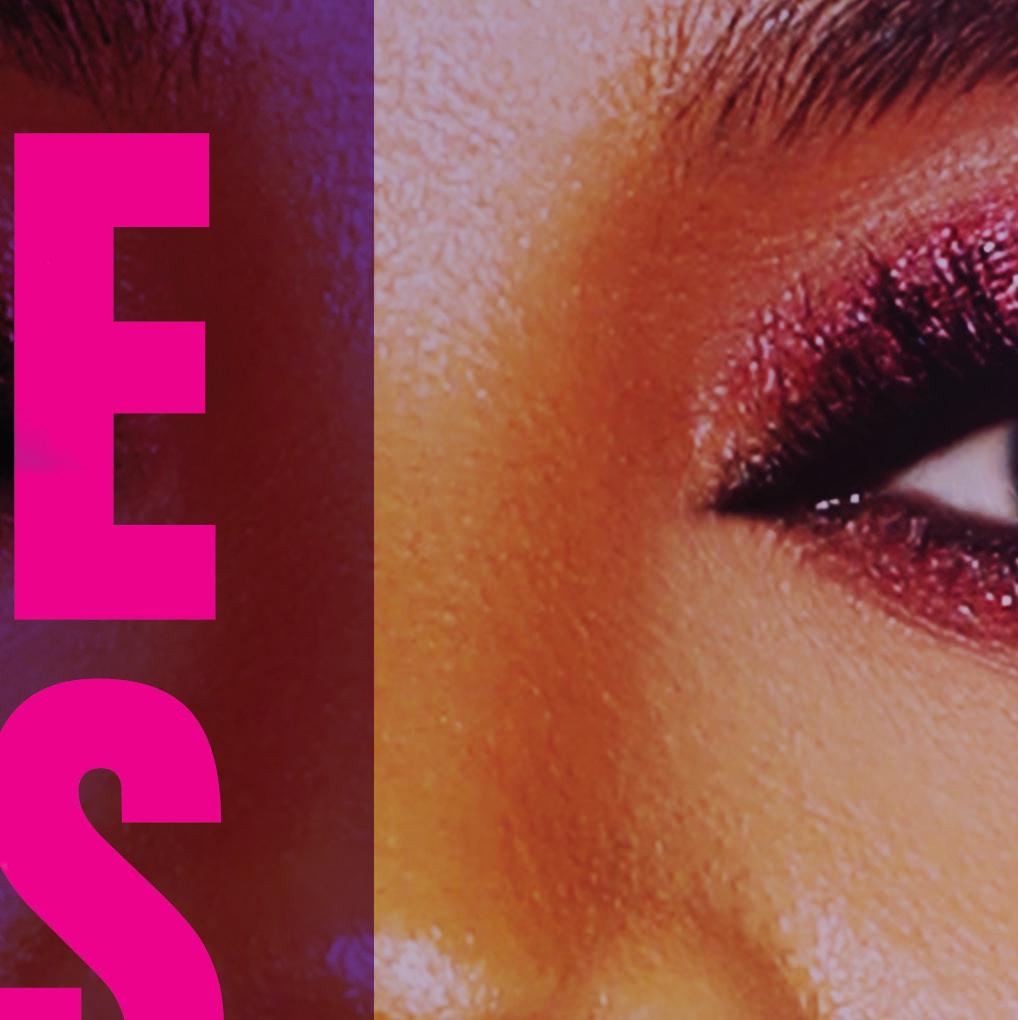
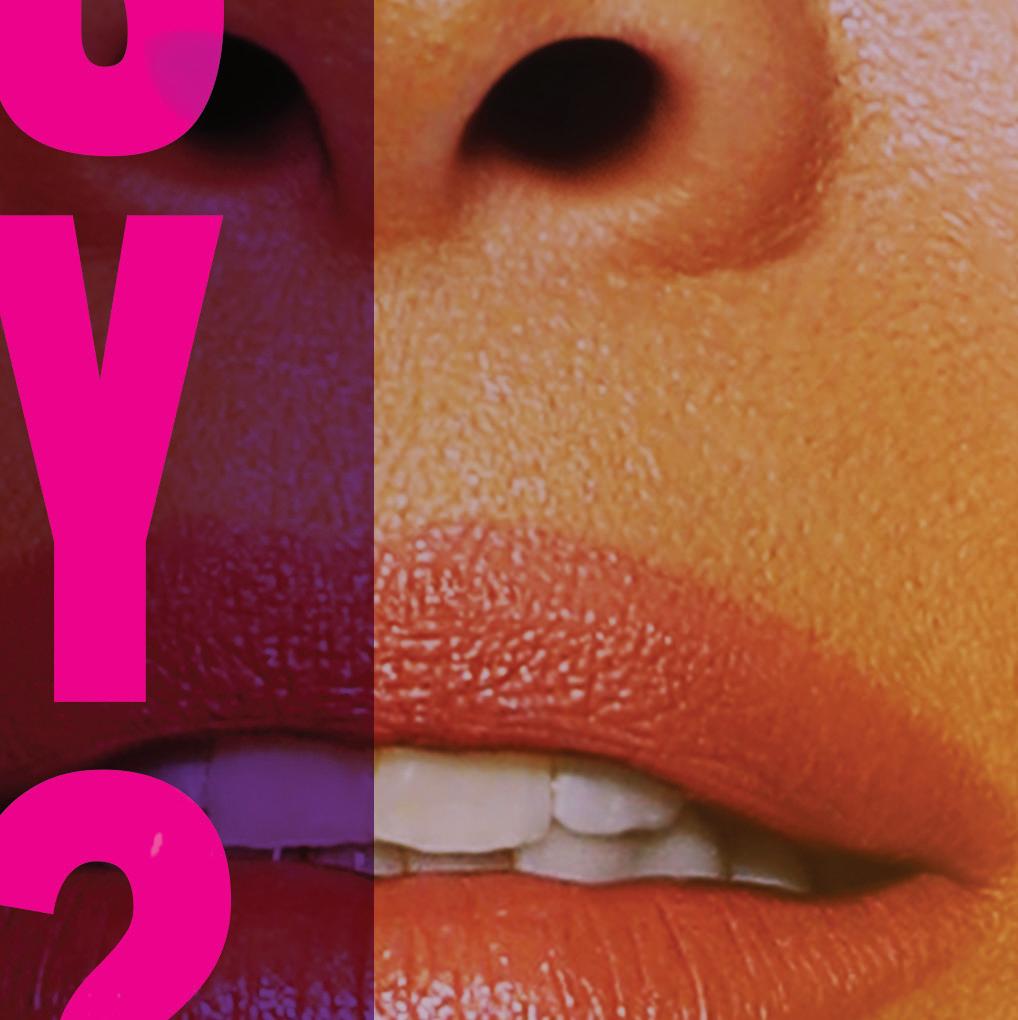

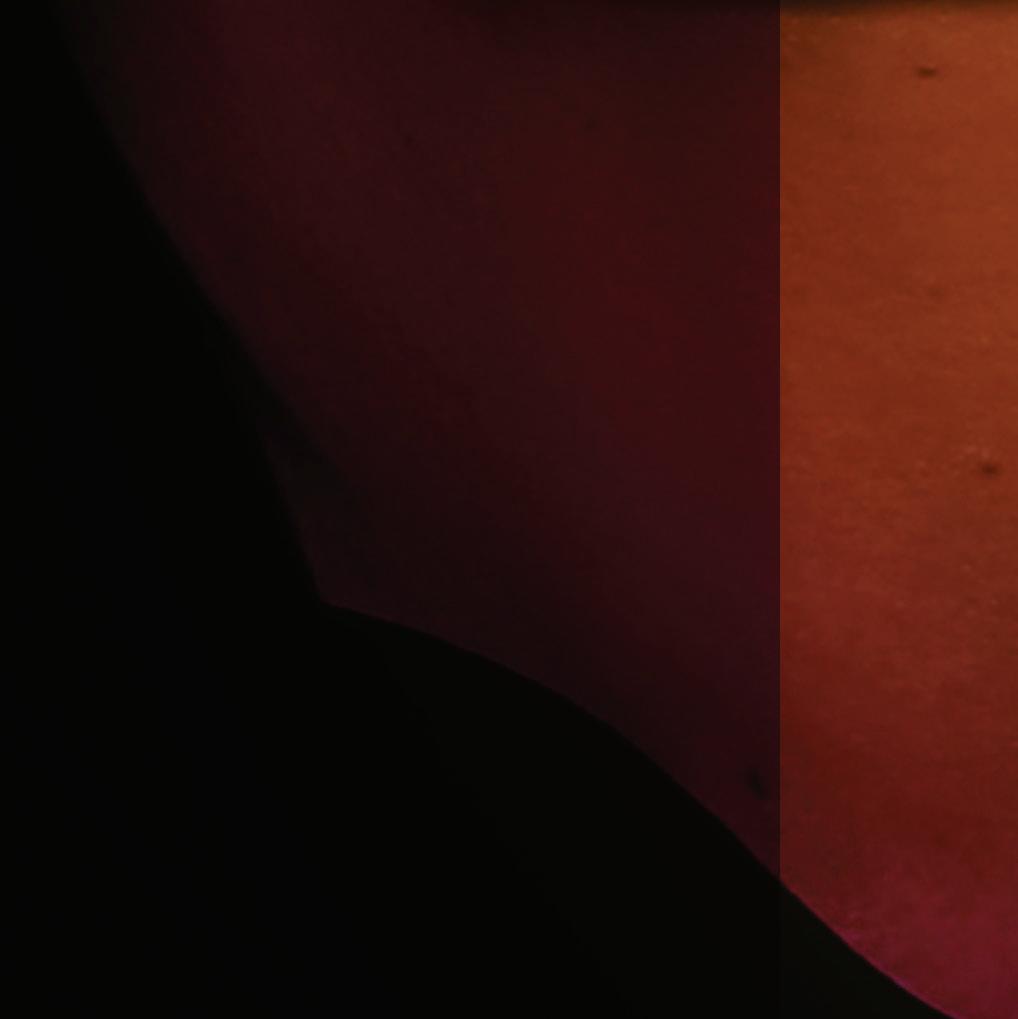


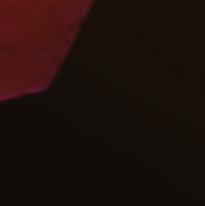

In Netflix series Girls5Eva the band gets back together—literally. The titular all-female pop group hit the skids back in the early aughts, but when a hip hop star samples their old hit song 20 years later, the women grab their second chance, leading to some questionable outfit choices and calamitous video shoots. As self-proclaimed band leader, Wickie Roy, Hamilton Tony-winner Renée Elise Goldsberry deadpans her way through deliberately terrible songs written by co-star Sara Bareilles, alongside Paula Pell and Busy Phillips. With the show in its third season, Goldsberry says it reminds us it’s never too late to chase our dreams.
Tell me how you came to connect with Girls5Eva creator Meredith Scardino and executive producer Tina Fey. And what was your first impression of the script?
It was the middle of Covid. I was in this very room looking much younger and I had received an email that said a word I could not
pronounce: Girls5eva. I had no idea what that was. But I read it, because I had nothing else to do. In the very beginning they had the lyrics to the one hit of this pop group and I just burst out laughing. And I was in. And it only got funnier. I think there was even a line in the pilot that got cut out
where there’s a fight with Dawn [Bareilles] and Wickie says, “I’m the oldest and the fact that you don’t know that is just racist.” I just was like… my brain exploded. It’s so smart and so dense and so ridiculous at the same time. I was in, and it only really got better from that. I got to meet Meredith on a Zoom and Tina who I knew. It wasn’t a hard pitch.
How did you know Tina Fey? Randomly, Paula Pell, who I did not know at the time, wrote a movie called Sisters and it stars Amy Poehler and Tina Fey. You didn’t see me in it. [They] took me completely out of the movie. I love it. I get to talk about it all the time. It was the summer before I shot Hamilton. I did this movie and it was the first time I was on a set with brilliant comedians. They were all brilliant comedians.
I’m used to being with a bunch of actors, or a bunch of singers, or a bunch of dancers, and I just fell in love. I just couldn’t believe how that brain works. It’s a writer’s mind—constantly inventing bits, whereas we might sing and do licks all day long, they just do bits all day long. And they’re brilliant at it, and it was wonderful. I had a great time and then I got cut out of it. Just because it was too long. That’s what they told me.
I love Paula Pell as Gloria in this show. When she calls up a previous one-night stand and says, “Hi, it’s Gloria from sex.”
So casually, “Gloria from sex.”
Was there a collaborative aspect to how you embodied Wickie Roy, or was it all on the page?
I had the great humbling experience of playing her on Zoom for
32 DEADLINE.COM/AWARDSLINE
a table read before getting to set because it was Covid. God, let’s hope there’s no video of it… It is absolutely on the page—the hair, makeup, those clothes, and those other women in that world—really, more than any other character I’ve ever played. I could be Angelica Schuyler sitting right here in a sweatshirt, but Wickie really comes to life with those words in her mouth and all of the style and trappings. There’s so much about who she is in the fact that she walks around in every single moment saying, “Look at me, dammit.” You’ll never see her not screaming, “Look at me, discover me, acknowledge me. Give me my rightful place in the atmosphere, please?” That is her whole thing. And it’s so different from me.
Since she’s so different from you, I wonder if in your work on Broadway and on screen, you’ve met many Wickies in your life? [Laughs] I’ll not say their names.
I’ve always felt a little bit jealous of people like Wickie, because they just have not even a drop of self-doubt.
My appreciation for her would be different if she was 25 years younger, watching her, because there’s just something that is synonymous with being beautiful and talented and young. We’re more used to seeing it on young, beautiful, talented women. A sense of just kind of privileged, just authority, just a claiming of who they are in the world. But what seems to be threatened as you get older is that sense of power. And that’s why I feel encouraged and inspired and affirmed at watching a character [like Wickie] refuse to apologize for that. Even as she gets older, she refuses. And these little things that she does. Like, “I’m dating a man that’s much, much younger than me. And I’m doing what’s been done to me and I’m not apologizing for that.”
We see women apologizing all around us all of the time. I liter-
ally just said to my daughter the other day when she was playing tennis almost as badly as me, “If you apologize one more time for hitting a ball bad, I’m not going to feed you dessert,” because I was like, “I don’t care if you play well, but just don’t apologize.” We are so conditioned to apologize. And it only gets worse as we get older. And so, this character, no matter how bad her behavior is, the fact that she doesn’t apologize on some level gives license that I think we need.
The fact that these women aren’t in first flush of youth, that to me is the whole power of the show. And the show doesn’t harp on their ages either. And can I tell you how, being in this season of my life, the reception of the show is healing to me? Here’s something we don’t do, much to my chagrin, and that is, when we do flashbacks, there’s no airbrushing. We just put the clothes on and go for it.
Doesn’t that feel SNL-esque to you? To put on the costume and play yourselves 20 years younger and ask the audience to just go with it?
Tina literally said, “We’re going to go SNL because we don’t have the budget.” She didn’t say it like that, she’s much classier than that. There’s no illusion when we go back to the ‘90s that this is really how we would have looked in the ‘90s. And the fact that the audience allows us to do all these jump cuts and flashbacks and these outfits and embraces it is really healing to me. At this age and stage of my life I’m still here, trying to take big swings and be ambitious. The success of it means more to me than, “Oh, the show’s doing well.” And also, just the fact that it’s embraced by people that are not just women of this age group.
Tell me about performing the Girls5Eva songs. I love the idea of Sara Bareilles sitting down going,
“At this age and stage of my life I’m still here, trying to take big swings and be ambitious.”
“OK, how do I make this really awful, but also brilliant?”
Unlike the Dawn character where you’re watching someone who is obviously a genius songwriter, try to learn how to write songs, with air quotes, with Wickie, you’re watching somebody that you know is a singer, sing. I sing obnoxiously on the show, but I am not trying to sing badly. My riff rolodex that I got to do in Season 2, if you think the riffs are corny and trite, it’s not because I wasn’t trying to make good ones. That’s just what I had in the moment.
You have your own album coming out too, right?
I have an album of original music that I wrote, and to get to have been writing it while I’m on a show with Sara Bareilles, watching
her creative process has been a true gift to me. She’s just been a great sister to me in terms of her encouragement on the journey. And it’s not lost on me that any hesitation I might have in putting it out there, I really have to ignore it, because the part of me that plays Wickie is standing up. It feels sometimes dangerous, unnecessarily dangerous, to ask for more every year I get older. And so, I believe god put this in my life, to not let me settle. And even if it wasn’t for Wickie and Girls5eva, everywhere I look I see women—Paula Pell, Busy Philipps, Sara Bareilles—but I mean everywhere else, JLO, Beyoncé, Dolly Parton. Everywhere I look, there are women that are not retiring. It’s like they’re saying, “My future will be even greater.” ★
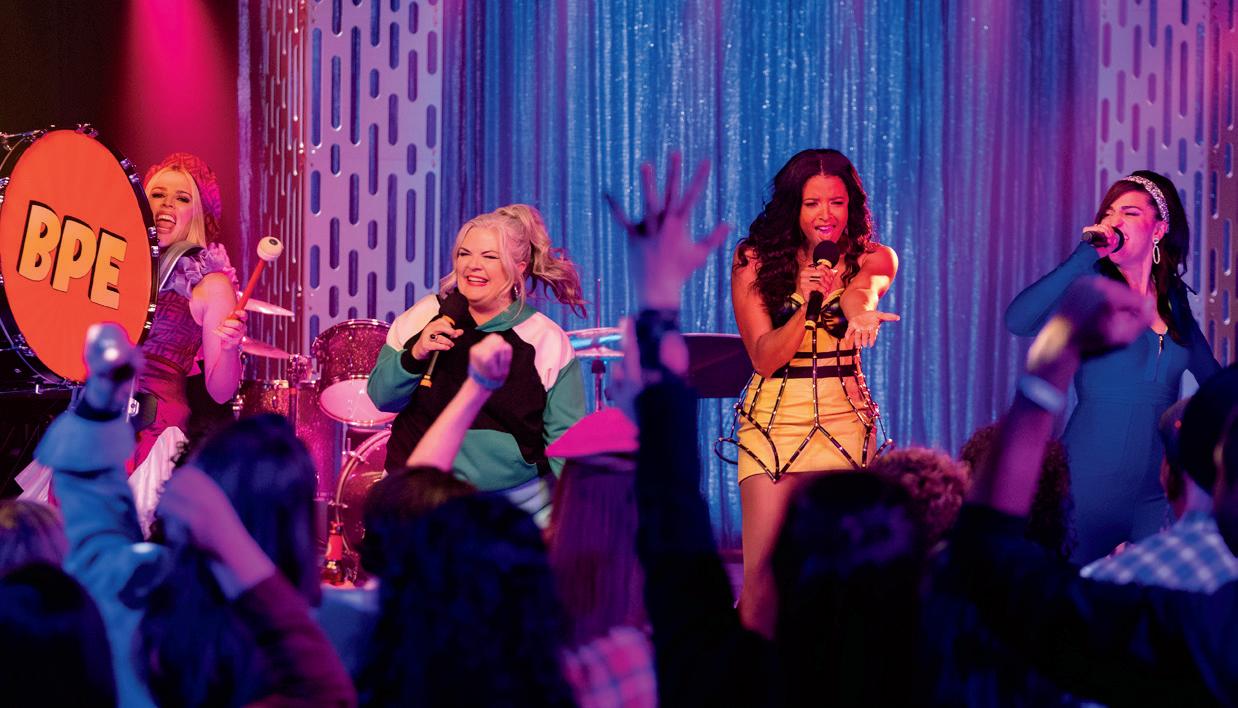
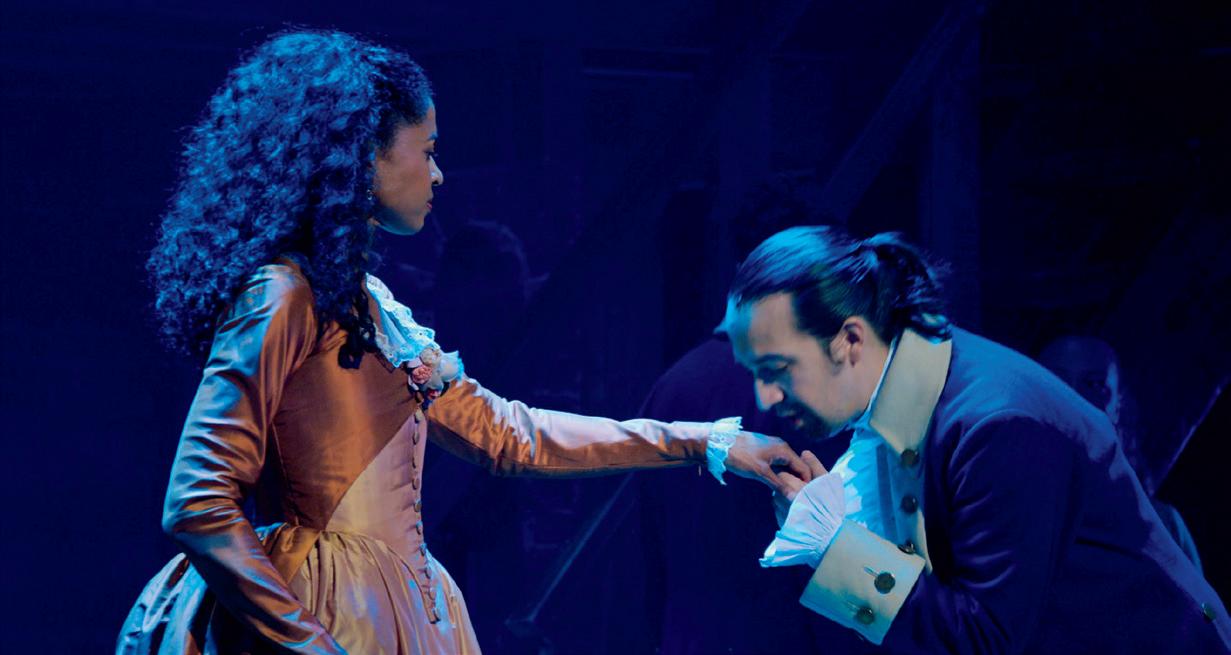
33 DEADLINE.COM/AWARDSLINE JENNY ABDERSON/GETTY IMAGES/EMILY V. ARAGONES/NETFLIXDISNEY+/EVERETT COLLECTION
Top, from left: Busy Phillips, Paula Pell, Renèe Elise Goldsberry and Sara Bareilles; Goldsberry with Lin-Manuel Miranda in Hamilton
Maya Rudolph
The Loot star is balancing “the ridiculous” and “the heart” for her philanthropic billionaire Molly Wells
BY RYAN FLEMING
In Loot, Molly Wells has what Maya Rudolph describes as an “unrelatable amount” of wealth. While that may seem enough of a draw for an actor looking for a role with the promise of incredible outfits, the real interest for Rudolph was the character’s drive to use the money for good—while still wearing amazing costumes. Creators Matt Hubbard and Alan Yang brought a story of a woman wanting to give back to the world, but it’s Rudolph’s comedic style that brings the series to life as Wells tries to get her life back on track after a divorce.

What drew you to the role of Molly Wells initially?
Molly is such a fun character because she gets to be everything. The initial dive into the idea of playing Molly is you get to play a billionaire, and that just feels like endless fun—the dream of all dreams. If you had all the money in the world, what would you do? What I liked about this particular project is Molly has all the money in the world and wants to use it for good. It’s a combination of those two things. I like the ridiculous and I also like the heart. Those are really my favorite two things, and it feels very fortunate when I get the chance to balance the two because I’m happy playing either. They don’t always mix, but in this particular case she feels like a nice combination of the two. I think sometimes our fantasy among the writers is like, do you think any billionaires are watching? Maybe they’ll get influenced by some of the good that you see, or these larger ideas. And I feel like if anything, part of the creation of the show is the catharsis that happens when you get to pretend that you’re solving a crisis or solving a problem. That is an element that is always really fun, that we can pretend that our heroine is this person who is solving the unhoused crisis in Los Angeles. I didn’t realize it at first, but I think it’s deeply affected me. It makes me feel like, yeah, this does feel possible. Why aren’t we doing this? We just need one person to try, just one person. And I know nothing’s that simple, and it’s easier said than done, but I like adding an element to the conversation. In the way that things are going these days, it just feels like the right thing to do.
Season 2 begins with Molly wanting to just give all of her money away, but it’s interesting seeing the series grounded in the idea that the solution is not that simple.
Yeah, we definitely want to see the human error too. It’s like
those things where you learn very quickly as an adult that life isn’t as simple as it seems, and I think we’re learning a lot too about the world of billionaires. I mean, it’s a world I know nothing about, and I’m certainly not well-versed in. There’s a lot to understand and to uncover, but there are certain notes we hit that feel like we’ve gotten them right here and there, or at least that’s the feedback that we get, and that’s really exciting.
Let’s talk about where Molly is in Season 2. She is really out of touch when she first comes into the Wells Foundation, but tell me about where she is now.
I think Molly has really made a world that she is ready to live in. She’s finally letting go of her old life, and the vestiges of her old life, and wants to be present in her own life and make the life that she wants. She’s asking herself the hard questions, but she’s also enjoying getting to know the people in the Wells Foundation and it’s also so nice to get to know Molly through the relationships that she’s investing in now. It says a lot about what kind of a person she is. What I like seeing about her journey is that, the show has a lot to do with philanthropy, but you also see that she really is a good person. Getting to know her has been a nice journey as well, because it’s not just about what you can do for other people. It’s also about understanding yourself and, through that, I think she’s really discovered a lot. I’ve discovered a lot about her, and I like who she is.
We’ve also gotten to see a lot more of the relationship between Molly and Nicholas [Joel Kim Booster].
I love their relationship, it’s such a fun game now. We really understand Molly and Nicholas, and I feel like the possibilities are endless. We always joke that on one day, one of them is mommy and the other one’s baby. And on another day, one of them is baby
34 DEADLINE.COM/AWARDSLINE
MICHAEL BUCKNER FOR DEADLINE
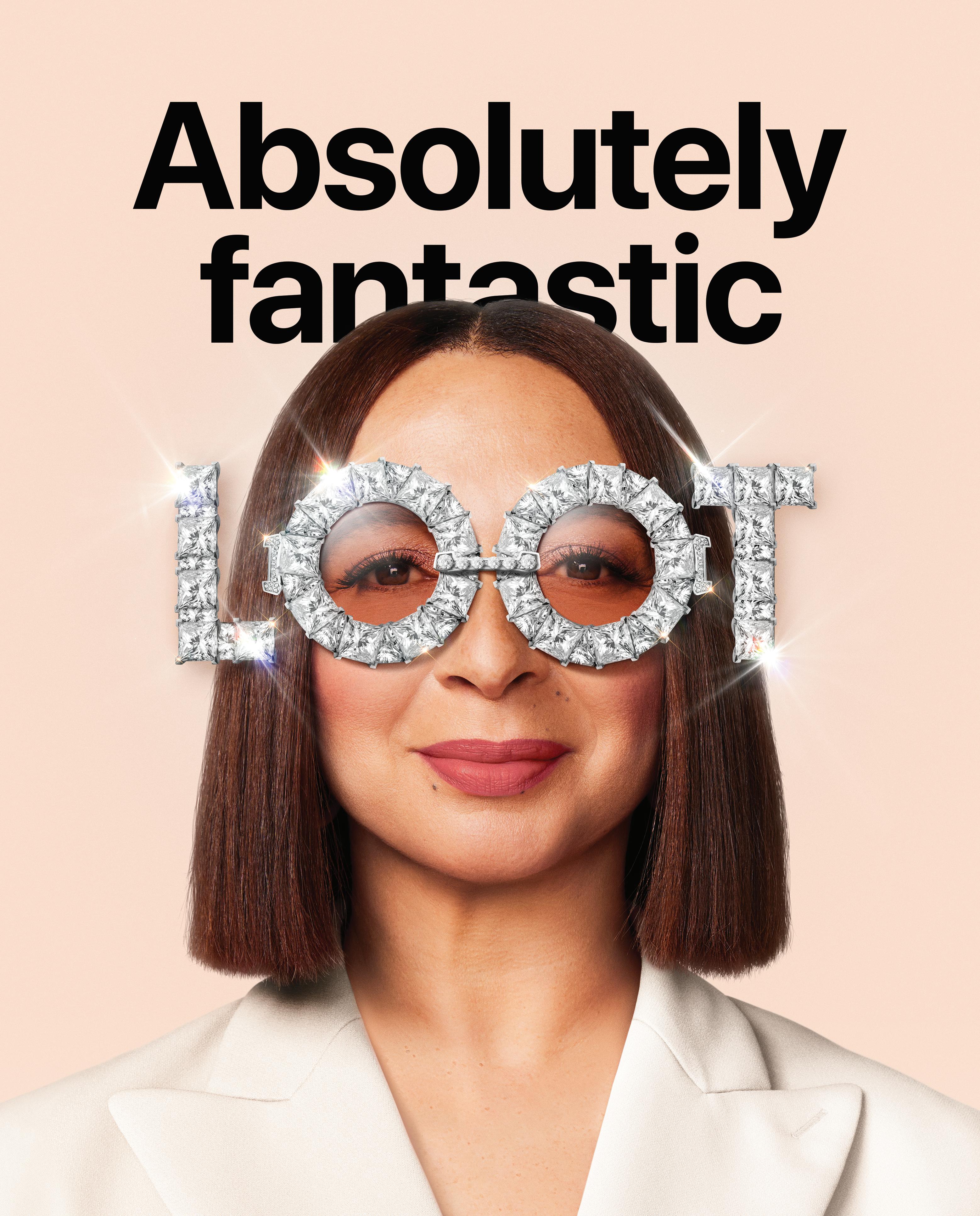

and the other one’s mommy. And then sometimes I feel like they’re both mommy. And sometimes I feel like they’re definitely both baby, and that’s so fun. Joel is such a great person to play that with, and he always knows the places to go in there. He’s such a great partner for those scenes. It’s really fun.
Their relationship also embodies the opulence and the wealth of her old life, and we never really want to lose it because it’s where all the shiny, glittery fun is in the world. So, we get to play that when we’re together and you see just the ridiculous side of her, the side of her that just hangs on every word. She’s in love with Nicholas. She loves him, he’s her everything. I think it’s a true love between the two of them. I think they’ve been there for each other through so many different parts of their lives, and it’s the longest, most loving relationship she’s had in her adult life. It’s ridiculous, but I think that’s what makes it so great.
There’s like a codependency there that’s justIts beyond whatever codependent is. It’s worse.
It’s toxic, but also kind of beautiful at the same time.
Yes, beautiful toxicity. A beautifully toxic romance. I feel like I want to coin a phrase for it, because it really is the relationship that is truly codependent and you frown upon, and yet, you wish you could have it. It’s an aspirational toxicity.
Speaking of opulence, we have Molly’s gorgeous array of outfits throughout the series. Tell me about working with costume designer Kirston Leigh Mann for this season.
I finally get to be on a show where I get to wear all the clothes I wanted to wear. I’ve worked with Kirston Mann, our costume designer, for so long and she’s such a good friend. She knows me too well. We just enjoy looking at the costumes through the lens of

Molly and what she would wear. My favorite description of that was something that came early on in the first season when she realized she was the boss and she was going to come to work and take it seriously, or so she thought she did. And her idea of being the boss was asking herself, “What would Beyoncé wear?” And well, she would wear this outfit that she wore in the “APESHIT” video. So that’s what she wore. I love how literal it is, and I also love that she feels good in it, so she can pull it off. It’s that fun thing of whatever you feel good in, if you’re owning it, you can pull it off. I find that very charming, and I think I find that very fun. We got to have a fashion show episode in this season, and that’s the epitome, the biggest, but also just the everyday. Whether it’s walking the dog or going to bed, it’s always an outfit. And these are the things that make me so happy. I really, really, really love it.
To me, the outfits kind of reinforce the idea that even though she is trying to give all the money away, this woman just has infinite wealth.
I think it’s an incomparable amount. It’s an unrelatable amount of money. Something we tried to touch upon at the end of the first season was, even when she thinks she’s giving it away, her money is still making money. She’s trying to give it away and she’s making money, and just how ridiculous that sounds. The word ‘billion’ sounds pretend to me anyway, so the concept that there’s multiple billions is unfathomable for most of us.
But I think it’s also a drop in the bucket when it comes to a dress, if I’m being honest. I think she can still keep the wardrobe and walk the walk. I like the combination of the two, I like that she has not given up fashion for philanthropy. I think they can both live together. I mean, there have been some people over time, that you say like, “Oh wow, they’re a criminal lawyer, but they dress like a million bucks. Good for her.” It exists, and I just think it’s fun. In the world of make-believe, it’s just the most fun.
The season ends with Molly saying that billionaires shouldn’t exist, where did that idea come from?
It came from the writers. Like I said, it’s been a really interesting experience thinking about these larger issues, thinking about the responsibility that people with indispensable wealth have, and what they could be doing with it. We tried to look at what do billionaires do? They’re always going to these summits, talking about things and I think it came very organically from this idea of what would this person say? What would her take be on it in the world of all of these summits amongst all these billionaires, that this feels like too much of a gap? It’s too profound of a gap in wealth.
I like that she gets to be the voice of reason. Somebody that’s given that much money overnight would probably have a conversation in her own head like, ‘This is wrong.’ Because she’s digesting everything in real time that the audience is as well. It just came
from the brilliant minds of our showrunners really.
And what about the idea for Space for Everyone, of spending money to renovate hotels for unhoused people to live in?
I was very excited learning about this idea from the writers. It definitely came from the writers room in talking to people about the city, and ideas, and what can be done. It was terribly exciting to hear that thought. I know very little about city planning… I know none, by the way. I don’t know anything about city planning. I’m the last person to ask about the reality of something like that happening, but the optimist in me really loves the idea and loves the thought of, “What if three major cities embrace this idea? What would that look like?” I’m sure there will be problems. I’m sure there’s always red tape. I’m sure city planning is not a quick and overnight easy thing, but I love the idea of it. And like I said before, the thing we get to do on this show is we get to bring things into the conversation.
Even if it’s not perfect, even if it’s not exactly how it goes, I do love the optimism of that idea, and it feels less hopeless. There’s just so many times where I feel like a lot of us have felt terribly hopeless, but this idea of helping people is also a salve for your own soul. I think there is an incredible catharsis in the idea of, wow, maybe this could work. Or wow, maybe this is a great solution. It’s better than doing nothing.
There’s always going to be a problem with anything. I don’t know. I always feel like no good deed goes unpunished in life. I feel like you do something and you’re like, “Why did I do that? That just bit me in the ass.” But I do appreciate the idea of this character trying. I think it’s something that we need. I think we need to have a lot more optimism, and I’m here for it. I have no shame in trying to fly the optimism flag, because lord knows, we need it. ★
36 DEADLINE.COM/AWARDSLINE APPLE TV+
Maya Rudolpn in Loot


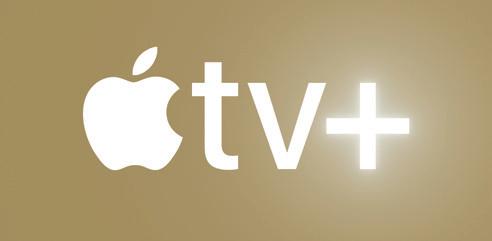
Lisa Ann Walter
The Abbott Elementary star reflects on the origins of her comedic chops and the inspirations for her role
BY DESTINY JACKSON
For the last three decades, the multi-hyphenate Lisa Ann Walter, who began her career in standup comedy, made her mark as a character actor in films such as Bruce Almighty, Eddie and Shall We Dance? However, for most millennials, Walter is best known for playing Chessy, the beloved nanny in Nancy Meyer’s The Parent Trap. These days, nearly a quarter of a century later, Walter has emerged in the spotlight on ABC’s awardwinning mockumentary Abbott Elementary, where she plays the Italian-American spitfire Melissa Schemmenti, a second and third-grade teacher at an underfunded Philadelphia public school. Here, she discusses the joys of playing the elementary school teacher and her own educational upbringing.
You’ve returned to doing stand-up recently. How has it been going back on stage versus being behind the camera on Abbott Elementary ?
I was a stage actress first in musicals and plays. I never thought I would do TV and movies, and I thought if I was lucky, I would become part of a really great repertory house like Arena Stage or the Guthrie, and that would be what I would do. Comedy came about because I moved to New York to act but got pregnant immediately, right out of college. It was a foreign experience to the college-educated people I was friends with, but that was my life, so I started talking about it. I’d always been sort of extemporaneously funny. Making people laugh is what I did, if there is a god and he gave me a gift, that was it.
When my parents split up, my mom was very sad, and I wanted to make her happy, so, as a kid, I made her laugh and memorized all of Richard Pryor’s albums, which I was not supposed to have
in the house. But when it made her laugh, I went, “Oh, being funny lets you get away with so much.” So, comedy was a very purposeful thing that I did coming up. So, when I had a baby at the height of the comedy boom, I had some actor friends, Nora Lynch in particular, who still does comedy, who encouraged me to do so. I started writing, and right after my son was born, I got up and started doing stand-up.
I very purposefully talked about things that I had only seen male comics talk about at that time.
When I was little, I watched Joan Rivers and Phyllis Diller—we didn’t get to see Moms Mabley because she was a blue nightclub act. Most of the female routines were “I’m so fat and ugly” because that’s what sold for women in those days. And I just wanted to do the experience of my generation of women, the plate-spinning act of trying to do it all: raise a family, find a cure for cancer, have a flat stomach. This is why we’re angst-ridden bitches all the time because we can’t do it all, and the
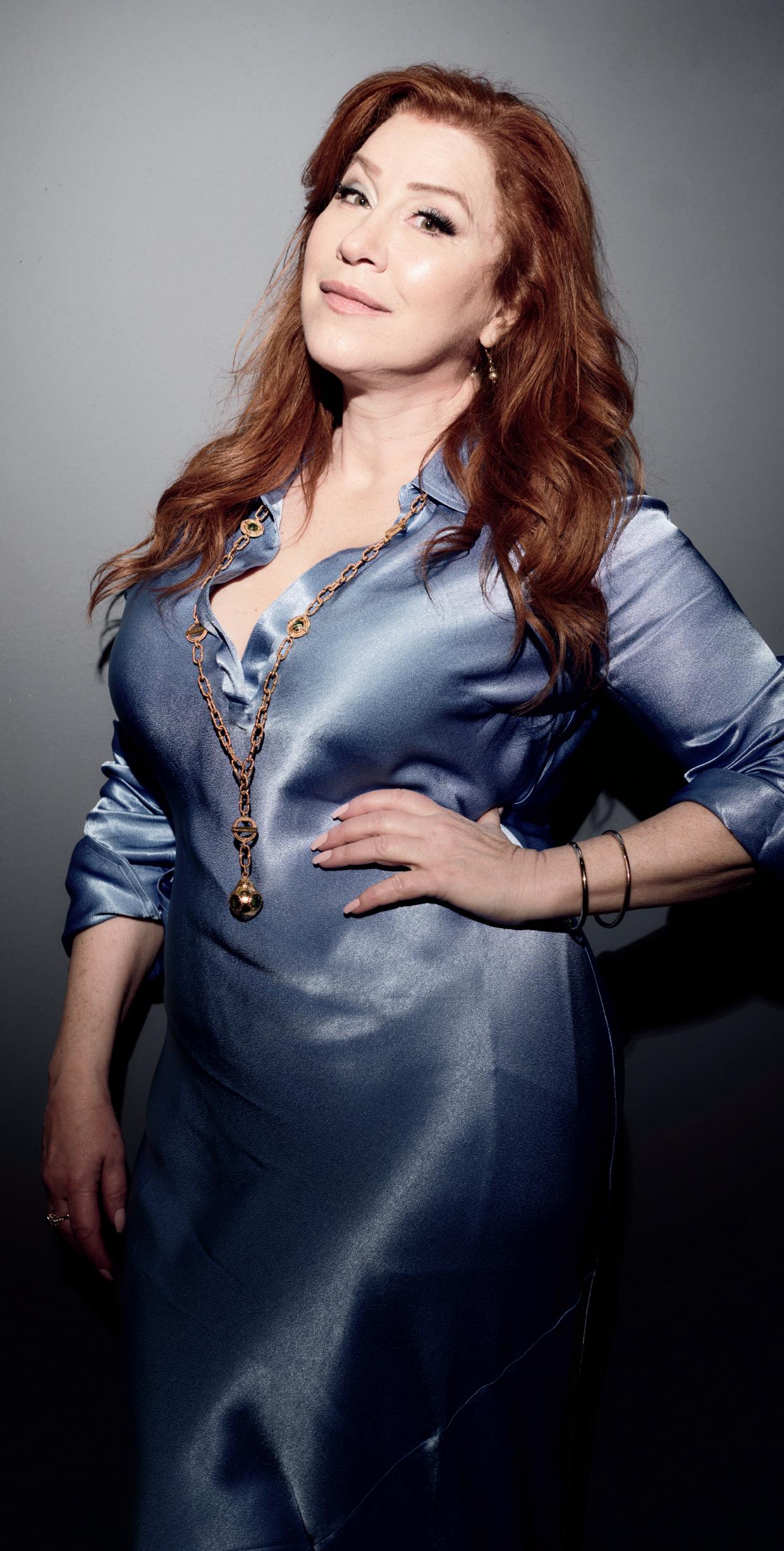
bill of goods we were sold in the ’70s wasn’t working. I was trying to reach a wider, underserved audience of women that I know are coming to my shows all over the country. Some would come up to me afterward saying, “It’s like you’re in my head,” and guys were saying it too, “I don’t usually
like female comics, but I like you.” Because I was telling the truth, and that’s what I’ve done my whole career.
Now, at this point in my career, the great part of doing stand-up right after the first season of the show that I love is that I get to meet audiences, which is really
38 DEADLINE.COM/AWARDSLINE
MICHAEL BUCKNER FOR DEADLINE

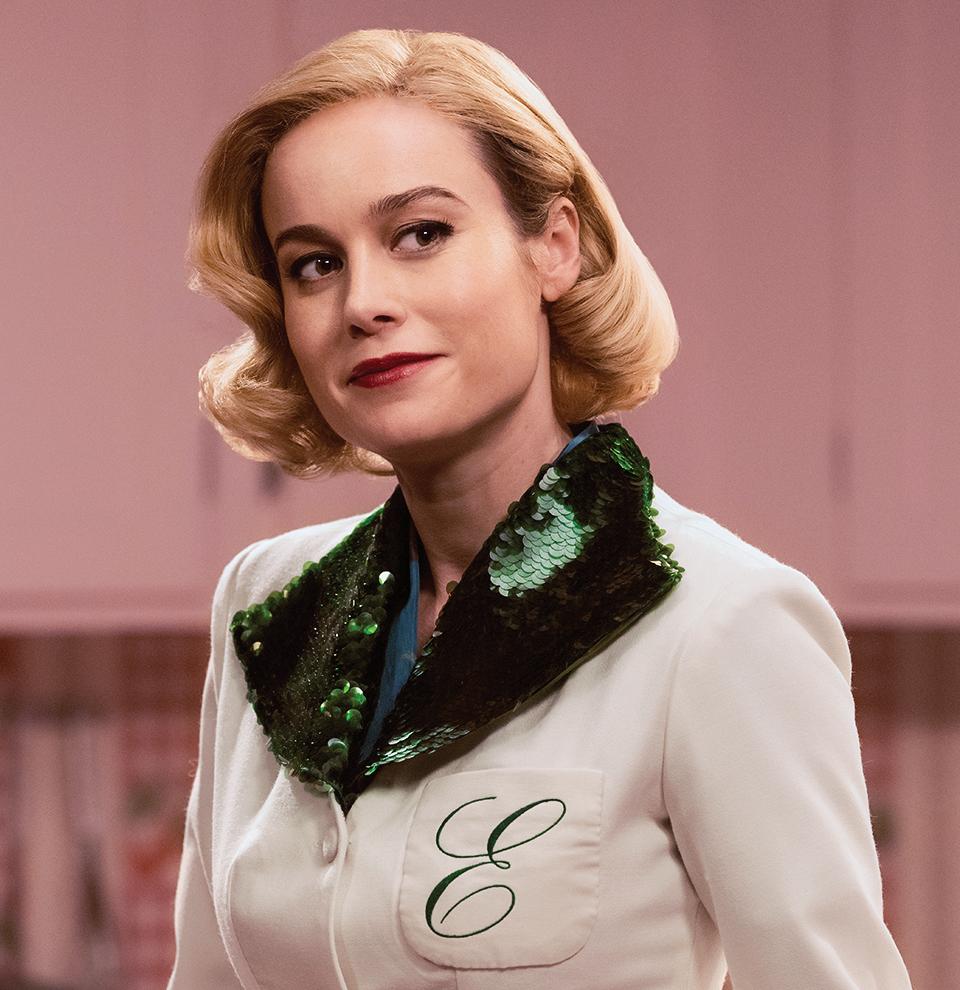


important to me. I love that they have loved me since The Parent Trap and since my ABC show [Life's Work] back in the day. So, the freedom that comedy has given me in my TV work is like working with the best repertory company in the world. I’m with these phenomenal actors week after week, episode after episode, learning more and developing the characters.
After Season 3 of Abbott, are you still learning from your coworkers? Or is it a pretty well-oiled machine at this point?
Every episode we learn something new, and part of it is that we are not a formulaic show. It’s not just the mockumentary style that informs how we’re set apart. I think it’s also the fact that we’ve got incredible actors, and their take on something might be different this time. It might not be what you expect, but it’s Quinta and the writers. They are selling a story that we don’t see coming. I go to a table read with the script, and I read it over once, but the way the actors are playing it by then might change by the time we take it on the floor. Sheryl [Lee Ralph] is hilarious because she doesn’t read the script before we do the table. She likes it to be fresh, so she responds in real time like she’s the audience.
Melissa is such a tough broad, but I feel we’re getting more glimpses of her vulnerabilities this season. What’s your take on her journey so far?
What’s wild is that the women on our show are all alpha. They take turns, but none of us are like, “Here’s the shy one.” And when I read the script, I noticed, you know, if you’re the white woman on a predominantly Black show, it might be a choice to make her either, ‘I’m racist, but I don’t know it,’ or she’s weak. And that’s not what Quinta wrote. Quinta wrote the broads I know in my family. They’re tough cookies. But as we all know, tough people are tough
“Making people laugh is what I did. If there is a god and he gave me a gift, that was it.”
to cover the other stuff. And once you let people in… the person that Melissa didn’t ever have to be tough around was Barbara. She can also help Barbara when she needs it, and that’s rare for Barbara to need from anybody. Last season, Melissa helped a little girl who has dyslexia, and she cried through a breakup. There are these soft moments in looks and little tiny beats. She’s not just one thing. We’re family to people now. The audience knows that Melissa might turn around and take her earrings off and start a fight, or she might start crying because something touched her.
Your mom was a teacher. How did you lean on those experiences with your mom to help develop Melissa?
She had a lot of different teaching experiences. She started in a one-room schoolhouse in Philadelphia where they had an outhouse. They didn’t even have a bathroom. Kids came in from the fields, and during harvest, they didn’t come to school. It was backwoods. Then she went from there to teaching in downtown D.C., similar to Melissa, the
way my mom was with those kids, the protectiveness, the insistence on their excellence, that’s who she was. She was always teaching. There was never a time when she wasn’t. If we were watching a TV program, she would be telling us about the time period, and I’d be like, “Mom, I’m trying to listen.” And she’d be like, “No, you’re going to get a whole story of what was happening during Henry VIII’s time and how the intermarriages were working.” Her love of giving somebody a story, something they didn’t know yet, was the reason I won Celebrity Jeopardy. It could even be math. Because we would go to the grocery store, and she would be like, “OK, now how much is that per ounce? Because that will tell you whether or not that’s a better buy than this one.” That’s how I learned about everything, listening to talk radio and having my mother then do the lesson on it.
So, when I’m on set playing Melissa, the kids crowd around my desk because they’ve all literally done the worksheet that we handed out as props, but also to keep them busy when we’re

playing a scene. They come up and somebody’s got their answers wrong, I’ll help and show them between takes and teach them math. We’ve got whatever the set decorators have written on the board for me that week, that’s the stuff I’m talking to the kids about in between takes. They’re doing stuff about spelling or parsing sentences. That’s what I’m teaching them. It’s incredible.
What scenario would you like for Melissa in Season 4?
I let the writers come up with the story. I will say that having been a mother for as long as I’ve been an adult, it has been one of the acting challenges of my career to not be a mother in this character. If you think about it, my other bestknown character is Chessy in The Parent Trap, who was technically not a mother. But honestly, in my playing of that character, she was that little American girl’s mom because that was the only mom she knew. So, I think there could be a future where we discover Melissa gave a baby up for adoption. You never know, and I don’t know what Quinta has in mind for Melissa. I’m sure it’s going to be interesting. I wouldn’t mind her taking on some big challenge, not necessarily going back to school, but a side gig that she decides to do. A restaurant? Who knows? Or at least a hoagie shop. ★
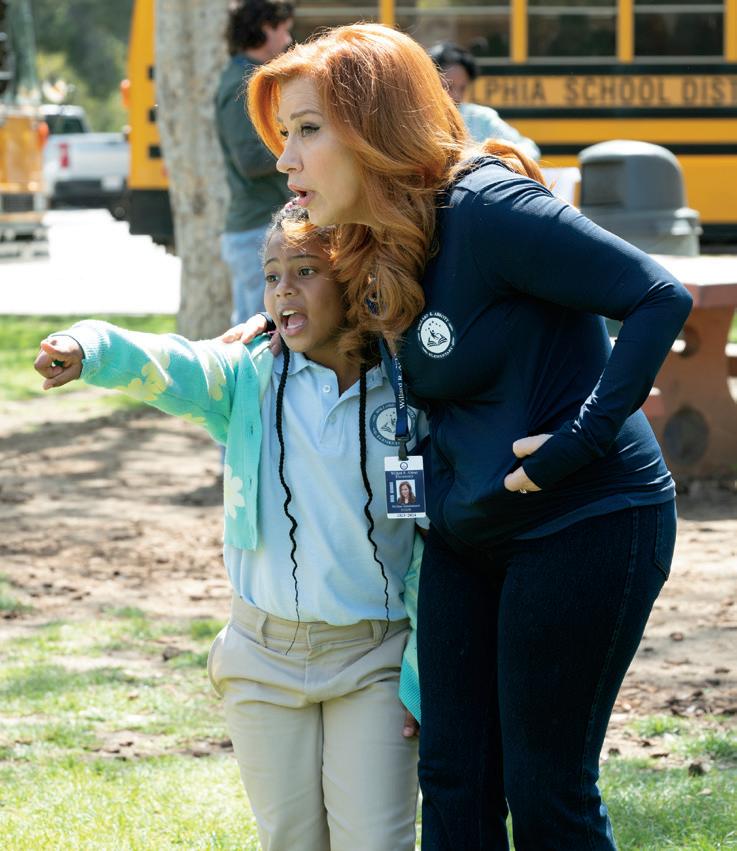
40 DEADLINE.COM/AWARDSLINE GILLES MINGASSON/DISNEY
From left: Lisa Ann Walter, Quinta Brunson, Chris Perfetti and Sheryl Lee Ralph in Abbott Elementary; Walter with Cassiopeia Dunlap.


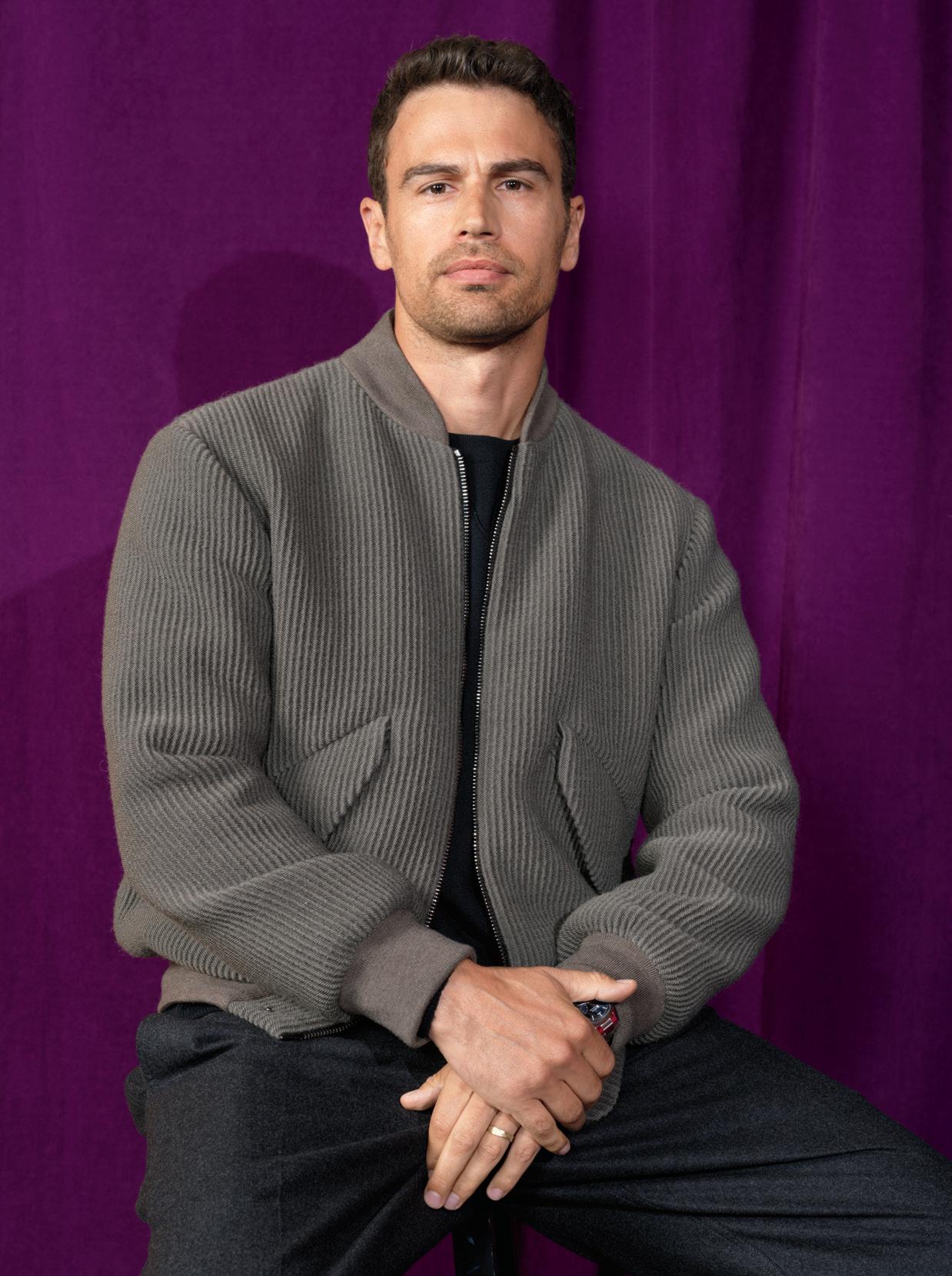
Theo James
The Gentlemen star on reigniting his passion for comedy and finding that “specific Ritchie tone” for the series
BY RYAN FLEMING
After a stint as an obnoxious, loud American in The White Lotus, Theo James wanted to challenge himself by playing someone totally different. Enter Eddie Horniman, the reserved, British Duke thrown into an aristocratic weedgrowing empire in Guy Ritchie’s Netflix series The Gentlemen. Not only was this an opportunity for a Godfather-style ascension story and a chance to work with the Lock, Stock director, but James was also excited to take some pot shots at the gentry that owns so much British land—much to the bemusement of the real-life Duke of Beaufort, whose estate was the location for the shoot.
What got you interested in The Gentlemen role?
I love ascension stories. I’ve always found them really gratifying as an audience member, someone who starts off at one place and evolves into another. I also like the parallels. We talked with Guy and the writers, not that we’d ever emulate The Godfather because it’s obviously one of the greatest films of all time, but that story of the young moral son who comes home, becomes the head of this complex, fucked up family and then has to navigate the world around him. And in doing so, becomes corrupted by violence and power.
That is a great conceit because in a way, the simpler, strongest conceits are the ones that we often identify with great stories in film and TV. And then beyond that was sending up British class and aristocracy. It’s such a huge part of our culture and it defines British identity that I thought it would be both comedic, but also in the lightest possible way, interesting to delve into this idea of an aristocratic family smashed into the world of a contemporary kind of Peaky Blinders. I thought that was a fun mashup. And then also I think this idea of landed gentry. We romanticize it, but as the script says, there’s something deeply corrupt about that and there always has been. So, commenting on that is rather delicious.
There’s something very interesting about your character, seeing someone who is so simultaneously out of their depth but in their element at the same time. Yeah, he’s a tactician and he’s smart and he’s probably born to do that, but the idea Guy and I were very adamant about is he can never be winning at all times. So, when he wins, it’s almost accidentally. We built that into some of the violence as well. In the second episode, when he’s kind of confronted and has to claw his way out of getting murdered himself, he’s not a fucking assassin. He’s actually just trying to survive. And
in the gamut of the fight, he manages to win, but he’s always about to lose. And then he kind of pulls it together in the last minute. That was always kind of the idea about it, and I love that.
Tell me a bit about working with Guy Ritchie on the series. I know he directed the first two episodes, but he was with the series for the whole season, right?
Yeah, he was very involved. It felt like we just were filming one long film for the first two episodes. He’s relatively collaborative, but then he also knows tonally exactly what he wants. And when he finished his episodes, he said to me, “Look, as long as you have people who are in the room and willing to collaborate, you’re golden. Just make sure you don’t go too hard on the comedy because it becomes farce. Don’t go too hard on the drama because it becomes melodrama.”
It’s a very specific Ritchie tone, and I didn’t realize how specific it was until you’re doing it because it’s very true. You make it too funny, and it becomes silly. We found that, and we’d have to really dial that back and forth, both in performance, say with me and Freddy [Daniel Ings], but also in the edit afterwards with all the characters. And then you lean too heavy on the drama, because it’s a heightened world, and it suddenly becomes unreal in a way. Threading the needle was always quite difficult tonally because it’s a tone that is very specifically Guy and he’s the only one who does it.
You mentioned the British aristocracy and, as an American with really no concept of that aristocracy, portrayals of that world always seemed kind of strange to me. We don’t usually see that as a comedic factor.
Well, I think we’re used to the romance of British aristocracy with period drama and blah, blah, blah… But the show is interested in the fallacy of it. What I was fascinated by was the fact that I’m
42 DEADLINE.COM/AWARDSLINE
MICHAEL BUCKNER FOR DEADLINE

British, but I didn’t grow up anywhere near aristocratic circles. I’ve never met anyone in those environments. It’s kind of alien to me only other than in film or literature. So, it was fascinating to film in the estate where we shot the series, because it is a real estate. It is the Duke of Beaufort’s estate. He is a real Duke and he’s kind of eccentric and would be looking out of his window as we were murdering people and running around in chicken suits, with disdain. Then you Google him and he’s kind of a mad character himself. I think he’s got a biography about his debauched, fucked up life in the ’80s when he was partying like an animal. So, these characters exist in real life. It’s almost drawing inspiration from the insanity of them because, like in the show, they’ve inherited land, they’ve inherited an estate, as they have done for many centuries. The Duke of Beaufort owns a large swathe of Wales still, but they don’t have heavy income. They don’t have cash. So, the conceit is a very true one in that way, and that’s why we are filming on the Beaufort estate, it’s because they need bloody money.
You probably hear Netflix too and you automatically think it’s another Bridgerton spin-off. Exactly. That’s what all the country houses are waiting for, the check for Bridgerton 3
The last thing that we saw you in was The White Lotus, as a very different character. What was it like going from working as a loud,
obnoxious American to a posh, aristocratic British Duke?
That’s what appealed to me about it really, because Cameron in The White Lotus represented Americana to me. He’s kind of vivacious, hyper confident, loud and wealthy, and Eddie is completely the opposite of that. Not only his Britishness is very British, he’s very buttoned up. It's very economy of movement with him physically, he’s very different, but also as a personality, he’s kind of the opposite, which I loved.
Cameron would speak without forming an opinion. He’s just like, “Yeah, fucking this happened and I tell you this fucking thing because this is definitely the way it happened.” Even though he doesn’t necessarily know or understand some of the views he’s expounding, whereas Eddie is the antithesis of that. He listens, he takes in, then he calculates, then he speaks. So, doing the opposite was really fun, and again, the physicality of it couldn’t have been more different from Cameron. And after The Gentlemen, I did something completely different again. I’m trying, in my old age—older age, shall I say— to challenge myself more perhaps than I have done in the past.
What did you do right after wrapping The Gentlemen?
I did an episodic thing on Pornhub… No, I’m joking. I did a film, which I’ve finished not that long ago. It was a Stephen King short, genre, about two brothers. It’s called The Monkey, and I get to play two characters. They’re twins. One brother who’s
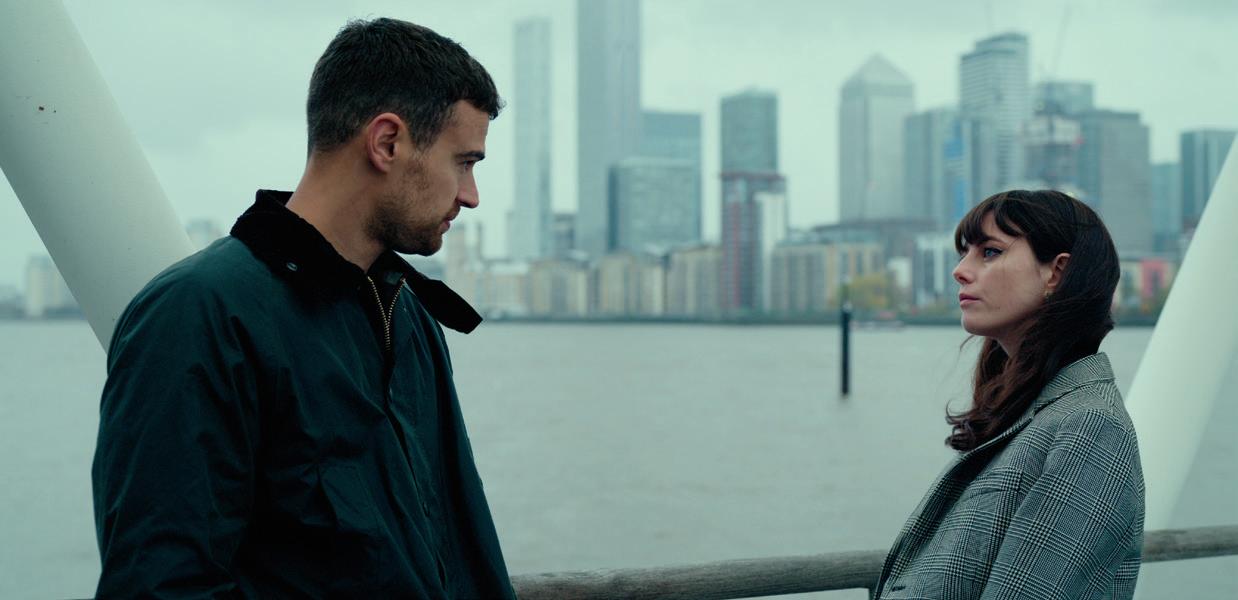
psychotic and the other brother who’s damaged and extremely shy. So that felt like a completely different direction in a fun way.
…So not another comedy? [Laughs] Actually, there is comedy to it. It’s kind of like Gremlins meets Hereditary, so there’s some humor in it.
Other than that, the last two things that you’ve done have been comedies. Is that something that you want to do more of?
I love comedy and I would like to do more, 100%. I started there in a way, when I was at university as an undergrad, we would take comedy that we would write and take it up to Edinburgh Fringe Festival every summer, and we would get audiences in. We would hustle on the street, we would pack the house. Then the next day we would talk about what jokes worked and what didn’t work, what landed, what wasn’t working, which characters felt fine and needed more evolution, what characters were really just kind of dead weight. And then we would adapt it and do the show again. Then, in my early professional career, when I started actually doing it to pay my bills and pay off my mounting student debt, I found myself in a place playing... Not doing comedy. So, I’ve been trying to do more of it ever since, really. Coming back to it is definitely something that I want to continue doing because I love it and I find it fascinating not only as a performer myself, but enjoying other people’s performances within the work, whether that’s in The White Lotus and the characters that I’m acting against, or whether it’s in The Gentlemen with Kaya [Scodelario] and Dan and Vinnie [Jones] and everyone else. I think it’s so gratifying and I’d love to do more and more of it.
As you go further into your career in comedy, what lessons are you taking from Guy Ritchie’s unique approach in The Gentlemen?
I think a couple of things. One is it’s important to maintain stakes, and I found that with Guy, but also with the process of doing the whole Gentlemen show. With comedy, you need to retain stakes with all characters and all situations to make sure that the air doesn’t leave the balloon, especially with The Gentlemen, because if it becomes too silly, the audience ends up realizing that nothing really matters.
The other thing which Guy’s great at, which I love about certain British humor as well, is he likes to take you on a journey, but then always undercut the self-seriousness of a scene. And I think that’s a very self-deprecating British thing to do, but it’s very valuable in comedy.
If a second season of The Gentlemen happens, where would you want your character to go? Season 2 was never discussed when we shot it, but I think if you enter this world again, the important thing is it has to be different from Season 1. Season 1 is where we introduce the characters to the world, then there’s a backbone of story and there’s hijinks within that. If you continue in the same realm with the hijinks thing, I think you worry that you detract from some of the first season and it doesn’t build, and some of the storylines become a bit meaningless. So, I think if you do it again, it needs potentially to move out of Halstead Manor, it potentially would move out of Britain as well for some of it.
For me, again, you never emulate it because it’s one of the best films of all time, but the idea of The Godfather, that his soul is properly darkened, and me and Guy always had a little bit of a debate with this. I wanted, even in the first season, for Eddie to be a little darker than he is at the very end. But I’d say if they’re going to go there again, Eddie particularly needs to go into the mouth of the devil and he needs to be fully corrupted and as a result, the others around him don’t recognize the man he’s become. ★
44 DEADLINE.COM/AWARDSLINE
NETFLIX
Theo James and Kaya Scodelario in The Gentlemen
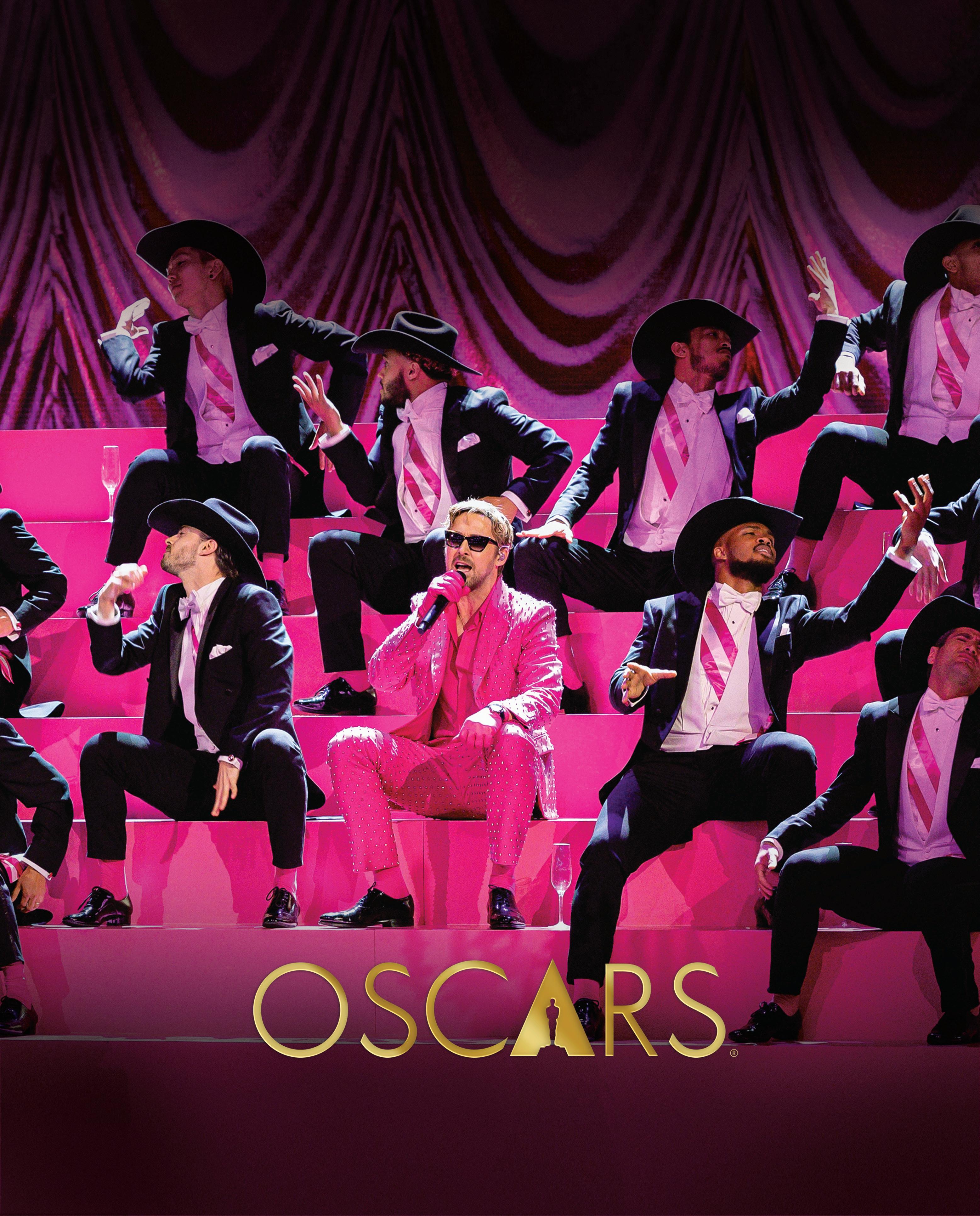
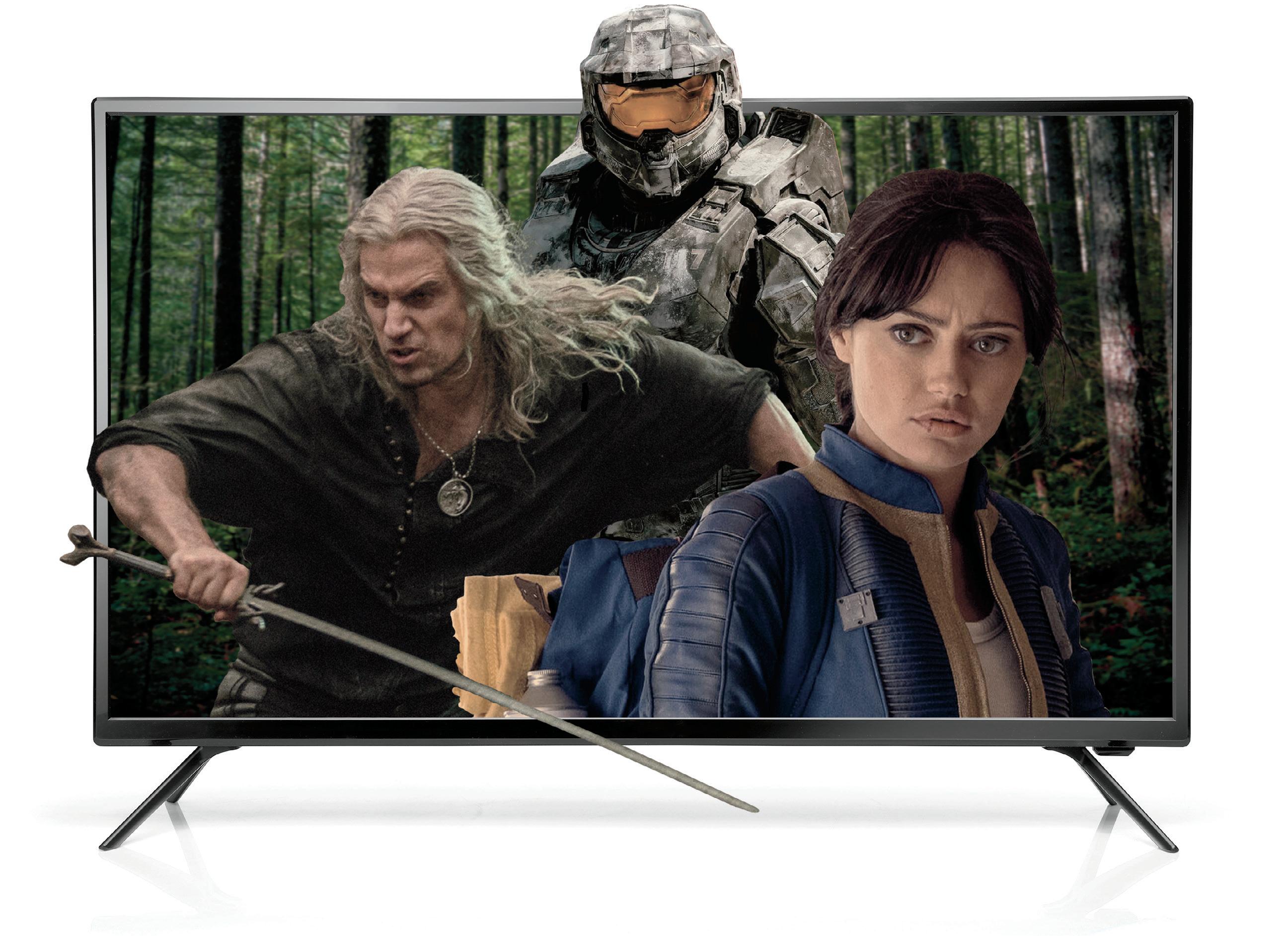

BRAVE NEW WORLDS
Production designers Howard Cummings, James Foster, and Andrew Laws build on existing games to create something new
Whether exploring post-apocalyptic wastelands or the far reaches of space, it’s easy to get lost in the visual language of a video game world. Transitioning that experience into a cinematic storytelling form is no easy task, but this season has seen more than a few production designers square up to the challenge. Fallout takes some visual models from the Bethesda game series for an entirely new story, Halo grounds the sci-fi game universe with real world architecture, and although The Witcher exists as a video game series, the Netflix series version focuses on finding depth in Andrzej Sapkowski’s original fantasy novels.
PRODUCTION DESIGN ONEHOURHAPPINESS/JULIÁN ROVAGNATI/FATTAL PHOTOGRAPHY
Craft Services
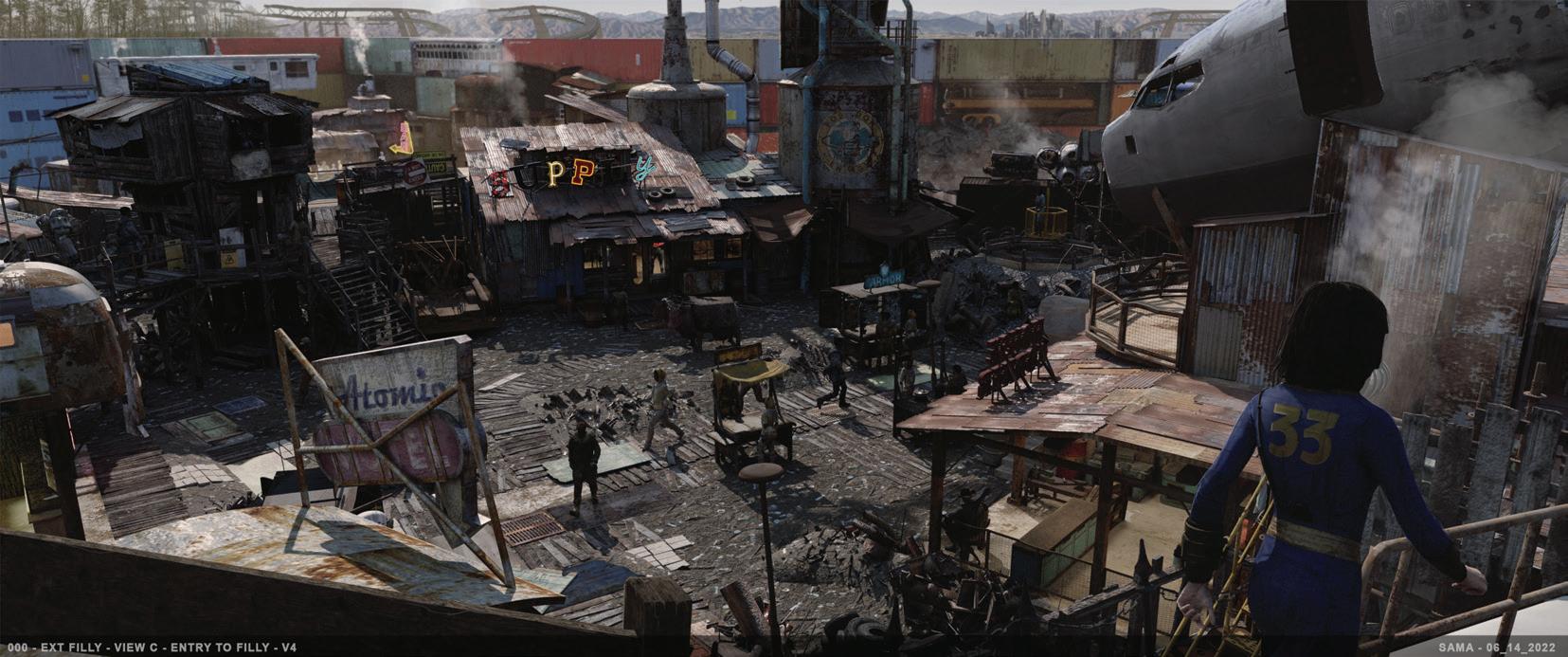
Fallout
While he had never played the Fallout games himself, production designer Howard Cummings took on the role of the eagle-eyed fan looking for anything out of place. “I knew the fans would tear me to shreds if something didn’t seem like it fit,” he says. “I remember someone was analyzing the trailer and talking about how the bolt shapes in the vault match the ones in the game, and I go, ‘Yeah, we 3D printed those and had mold makers make thousands of them to get the exact right shape.’”
The journey to this level of detail began with the script, when director Jonathan Nolan brought Cummings on board. “I watched a lot of YouTube videos fans made, and they were the most informative thing I could watch,” he says. “I couldn’t play the game at that level, but I could watch people spending hours and hours cutting together storylines, and I couldn’t believe how visually dense it was.” At that point, Cummings decided that his challenge was to actually recreate the aesthetic of the game with the new story.
The first setting the viewer is introduced to is the vault, with a farming community. “This crazy
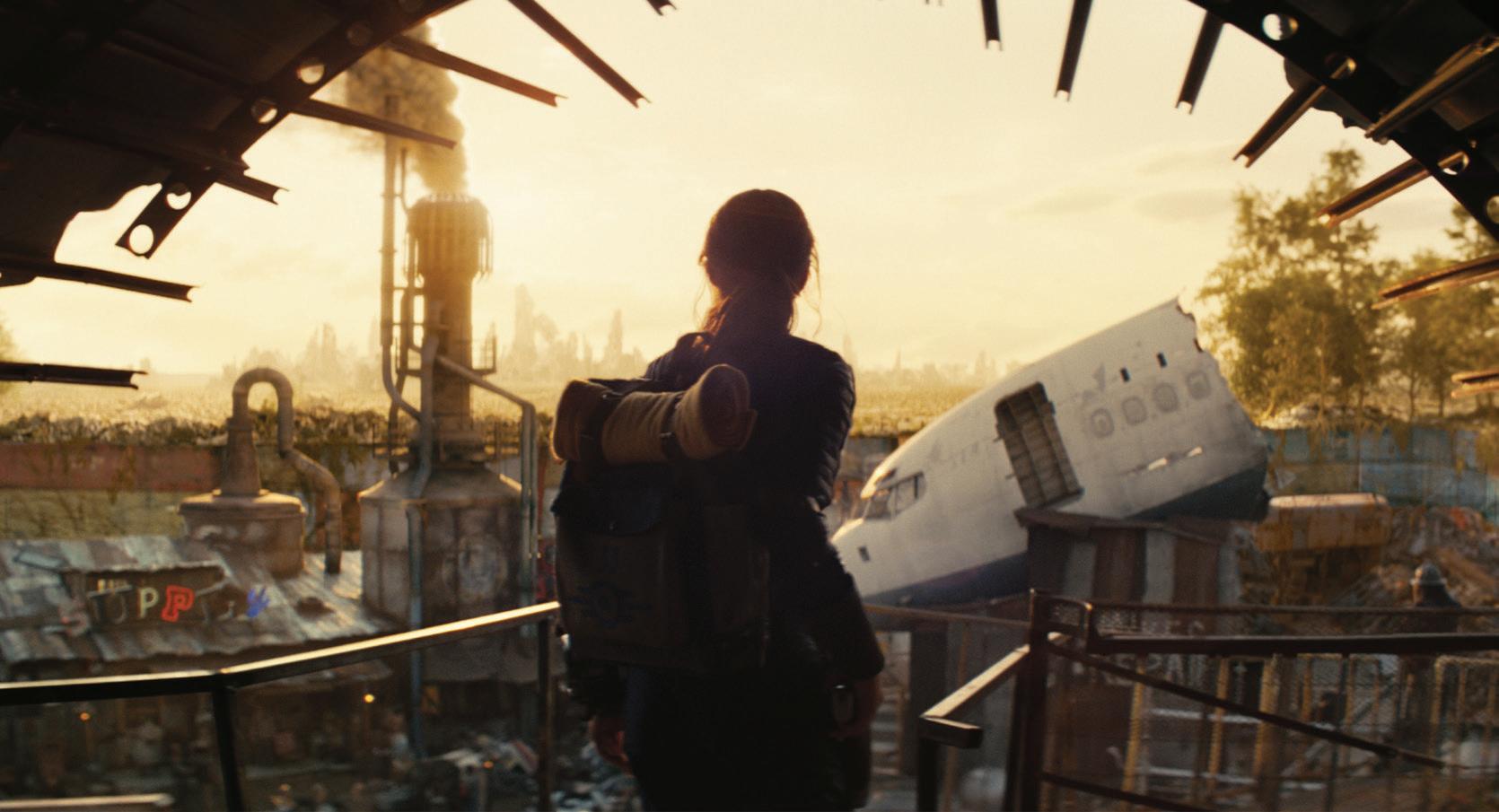
cornfield is a new room in the vault that’s not in any of the games, and the showrunners wanted it to look like a bad production of Oklahoma,” he says. “We took the parts you can play with in the game to build vaults and we actually broke down those ‘game rules’ and designed the parts to match.” To create the actual scale needed, Cummings needed to put up a volume stage. “It’s basically an entire room built out of LED screens, so the actors aren’t in front of a green or blue screen, they’re actually in front of the image and the lights are all interactive.”

town made entirely from scrap
and scavenged materials. “It’s similar to Megaton City in the game, but then actually trying to physically do it… for instance, there’s a jet nose of a 747 stuck on top of a building.” Where some might opt for a CG approach, Cummings says it needed to be real. While the town looks “rickety” as he puts it, each piece of scrap was wired by hand onto steel armatures for stability. “Underneath it all is so much steel and engineering, it’s like 50 feet high.”

47 DEADLINE.COM/AWARDSLINE JOJO WHILDEN/PRIME VIDEO/HOWARD CUMMINGS
A major location outside the vault is Filly, a
metal
Left: Concept design of Lucy (Ella Purnell) for Fallout; Below: Lucy entering the physically built set.
From right: Concept design of the cornfield in the vault; Overseer Hank MacLean (Kyle MacLachlan) in front of an LED screen on the volume stage at the cornfield.

JHalooining the series in its second season,
Halo production designer James Foster’s goal was to emphasize the “reality within the environments” to ground the drama of the story. “It might sound ridiculous considering we’re in the 26th century, but I was diving into real world references like Tibetan environments for the slightly monastic, sanctuary environments in the first episode.”
Real-world influences aided Foster as he designed the environments for Reach, a
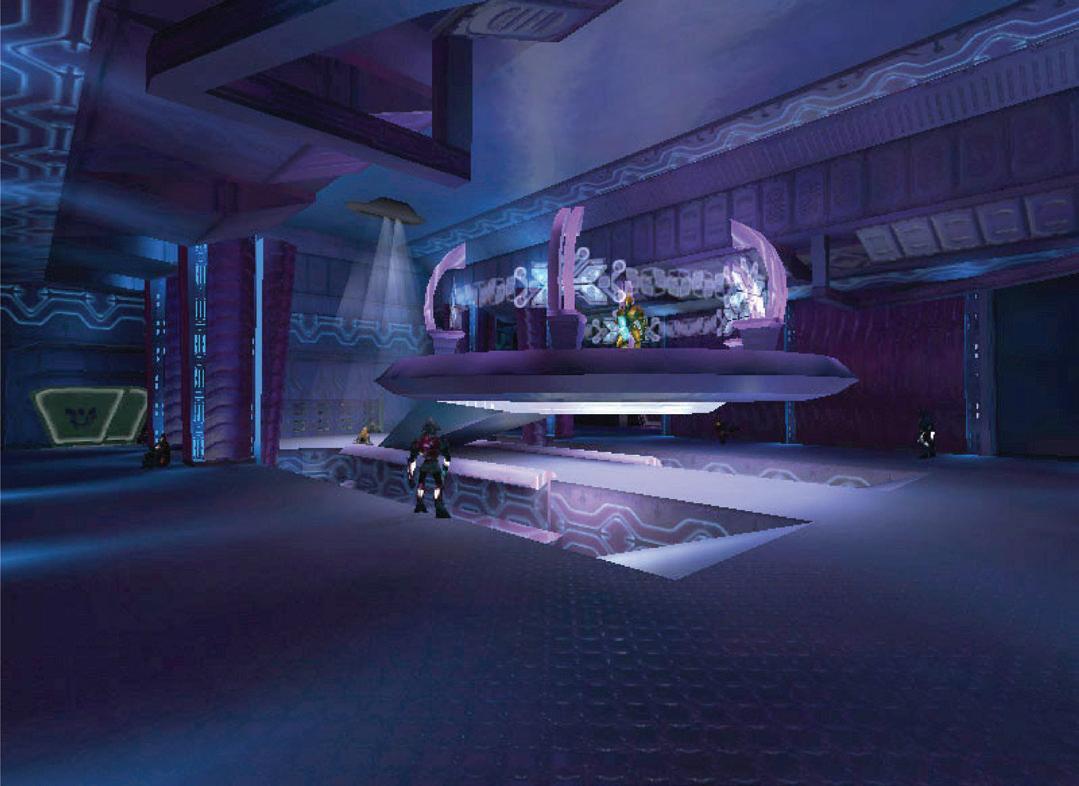
planet housing a large military complex. “I was looking at distinct cityscape environments that would resonate as a kind of military-based port town environment,” he says. After taking the reference as a base, then it was important to amplify the scale and tone to match the sci-fi universe. “By keeping it real, we inherit that sense of wonder that they managed to find in the illustrative work for the game without going into fantasy.”
To get a better sense of that style and tone, Foster would turn to EP Kiki Wolfkill, who was originally from 343 Industries, the
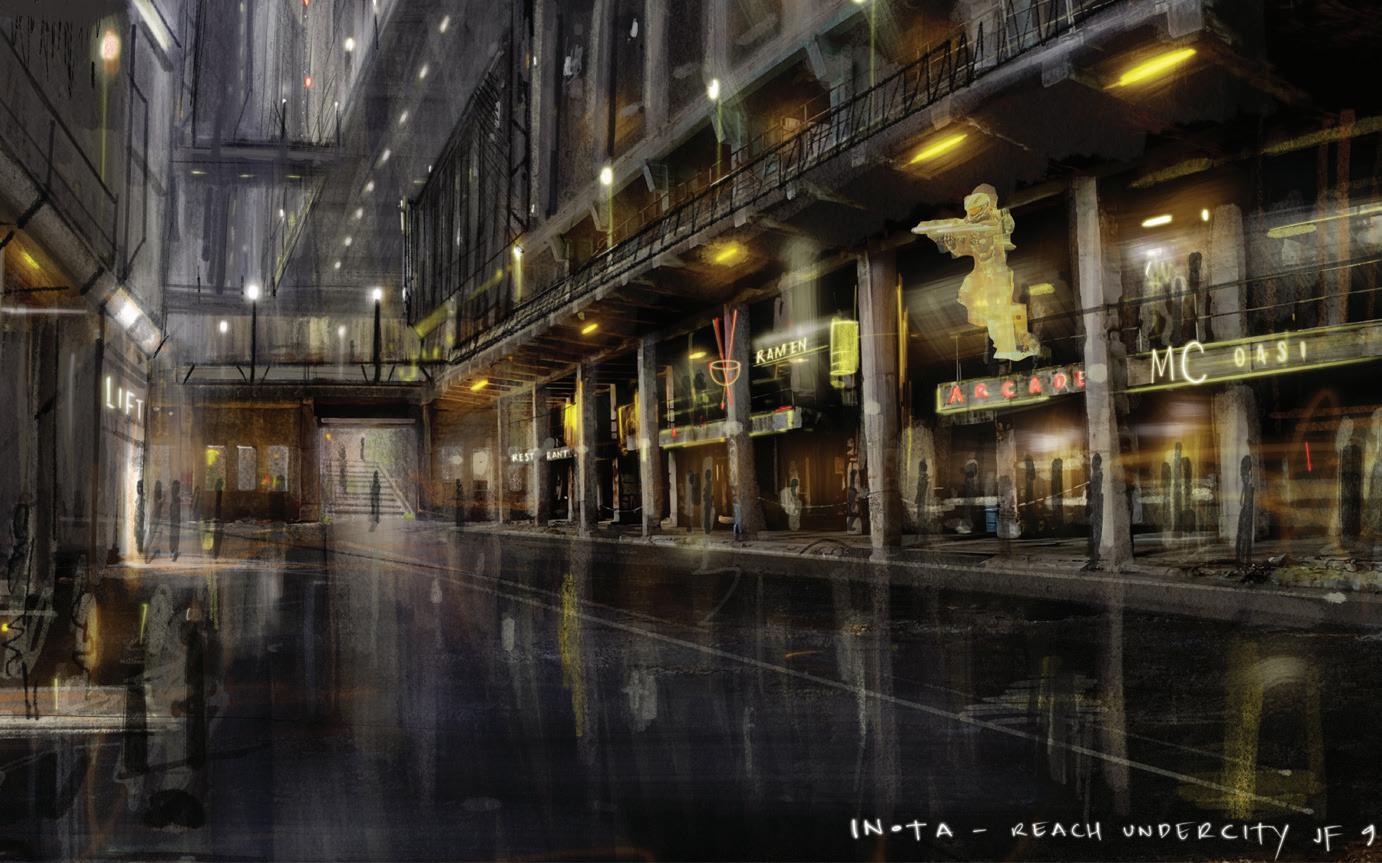
company that developed the Halo game series. “I initially looked at the progression of the graphic world within the games and how they had progressed, and I was in a lot of conversations with Kiki who has all that backstory,” says Foster. In addition to having a former member of the Halo video game studio on set to help, Foster also says he and other key creatives went through a Halo boot camp when he joined. “I did my homework with regards to the visuals within the game and the concept work that had been done.”
All of that preparation paid off for Foster as he was faced with the most daunting of the environments this season—the Covenant ship. “In terms of environments, it was possibly one of the most challenging things that I’ve had to do,” he says. Since the style of the Covenant ships have changed over the course of the series, Foster couldn’t rely on a specific point of reference. “There were certain areas within some game environments that were close to being the central hub area we needed for the flight deck… We also wanted to lean into a scarier environment, not quite as bright and colorful as you might see within the game, but we wanted to make sure that we still had some of those color elements. Lots of shadow, light and an intense amount of detail go into a flight deck console that you might take for granted if you are within the game space, but to make it for real is quite an undertaking.”
48 DEADLINE.COM/AWARDSLINE Craft Services PRODUCTION DESIGN JAMES FOSTER/PARAMOUNT+/BUNGIE
Left: Concept art of the flight control room on the Covenant ship used in the Halo tv series; Above: Interior from a Covenant ship from the Halo video game series.
Concept art of the undercity on the planet Reach.



The Witcher
When Netflix’s The Witcher came out in 2019, there was already a video game series with an established visual interpretation of Andrzej Sapkowski’s fantasy novels. However, production designer Andrew Laws says very early on, a choice was made to avoid using the games as a point of reference. “We both start with the same seed of the books,” he says, “but in our development stage we were very clear that we have two unique visual paths.” Instead, Laws turns to the novels when inspiration is needed. “For us, on the design side, it’s about depth. When we’re wanting to color in the edges of a storyline and we want a bit more perspective on what’s going on outside the boundaries, we’ll dip back into the books and see what can inform what we’re doing.”
Depth is everything for the production design of The Witcher, according to Laws, who has been with the series since the beginning. “It’s all about intensifying the depth of our own language. We try to keep compounding use of certain architectural languages that we’ve

developed early on, and then we grow them as we get through the different seasons.” A prime example of this is Aretuza, a magical academy that has been shown in sections throughout the series before becoming a main location in Season 3. “We were building on this idea of an ancient Elven citadel, so the original form of the architecture is Elven.”
Since Elven architecture is not new for the series, Laws says they have their own architectural language of “certain types of arches and forms, even proportions that we look at
as being more from Elven roots than human.” However, the layering of depth comes when the human element is brought in. “Aretuza has been occupied by a human element for quite a long time, so there’s another architecture that is like a prosthetic outside the framework of this ancient Elven building. So, we’ve added more of a human language, with Romanesque arches, and there’s the language of occupation that’s taken on. Now, you have two different pieces working together to make it a very unique visual language.” ★

50 DEADLINE.COM/AWARDSLINE Craft Services PRODUCTION DESIGN NETFLIX/SUSIE ALLNUTT/JAY MAIDMENT
Clockwise from left: Geralt (Henry Cavill) and Yennefer (Anya Chalotra); Tissaia (MyAnna Buring); Geralt in Elven ruins.
Ciri (Freya Allan), Geralt and Yennefer at the ruins of an ancient Elven palace.
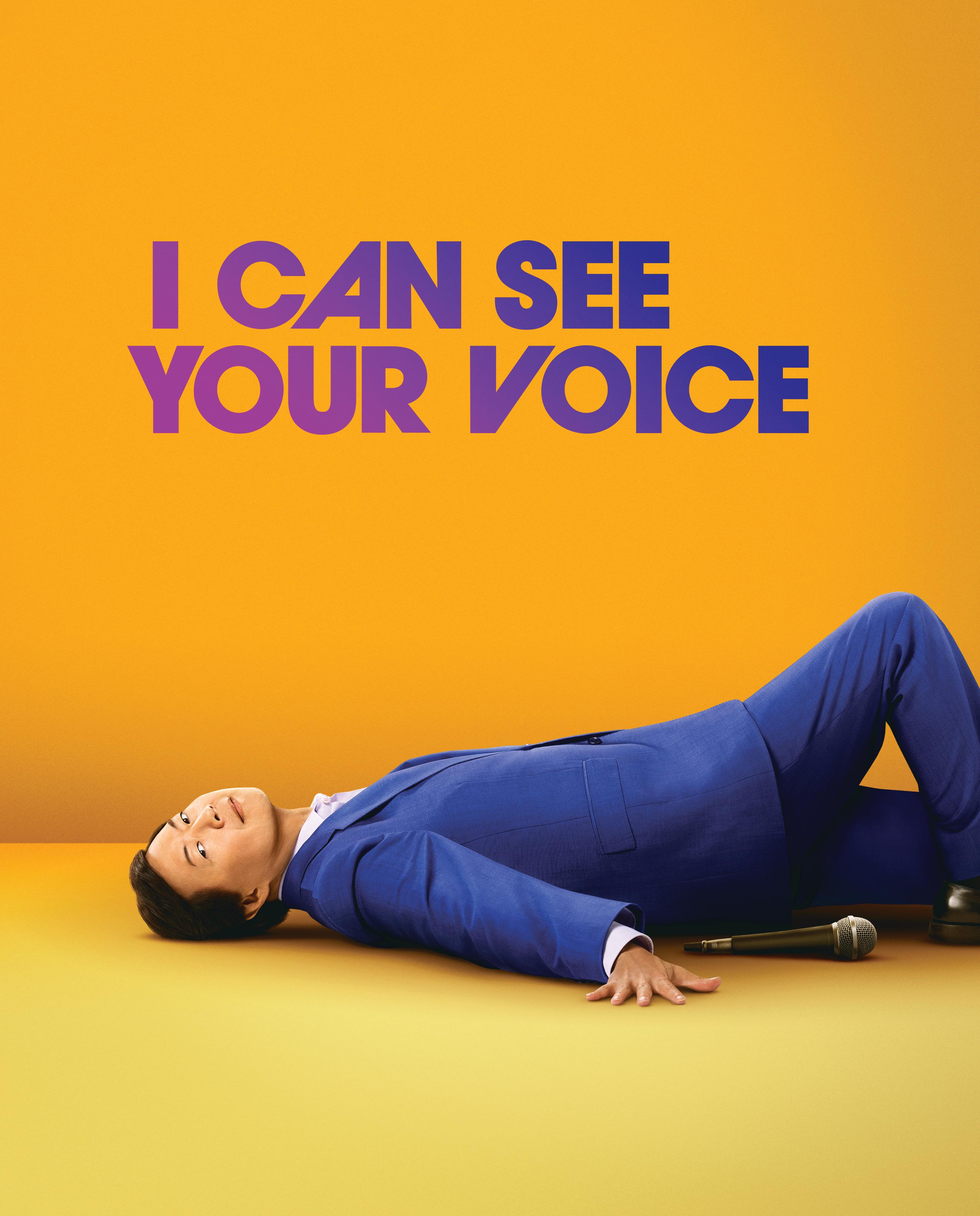

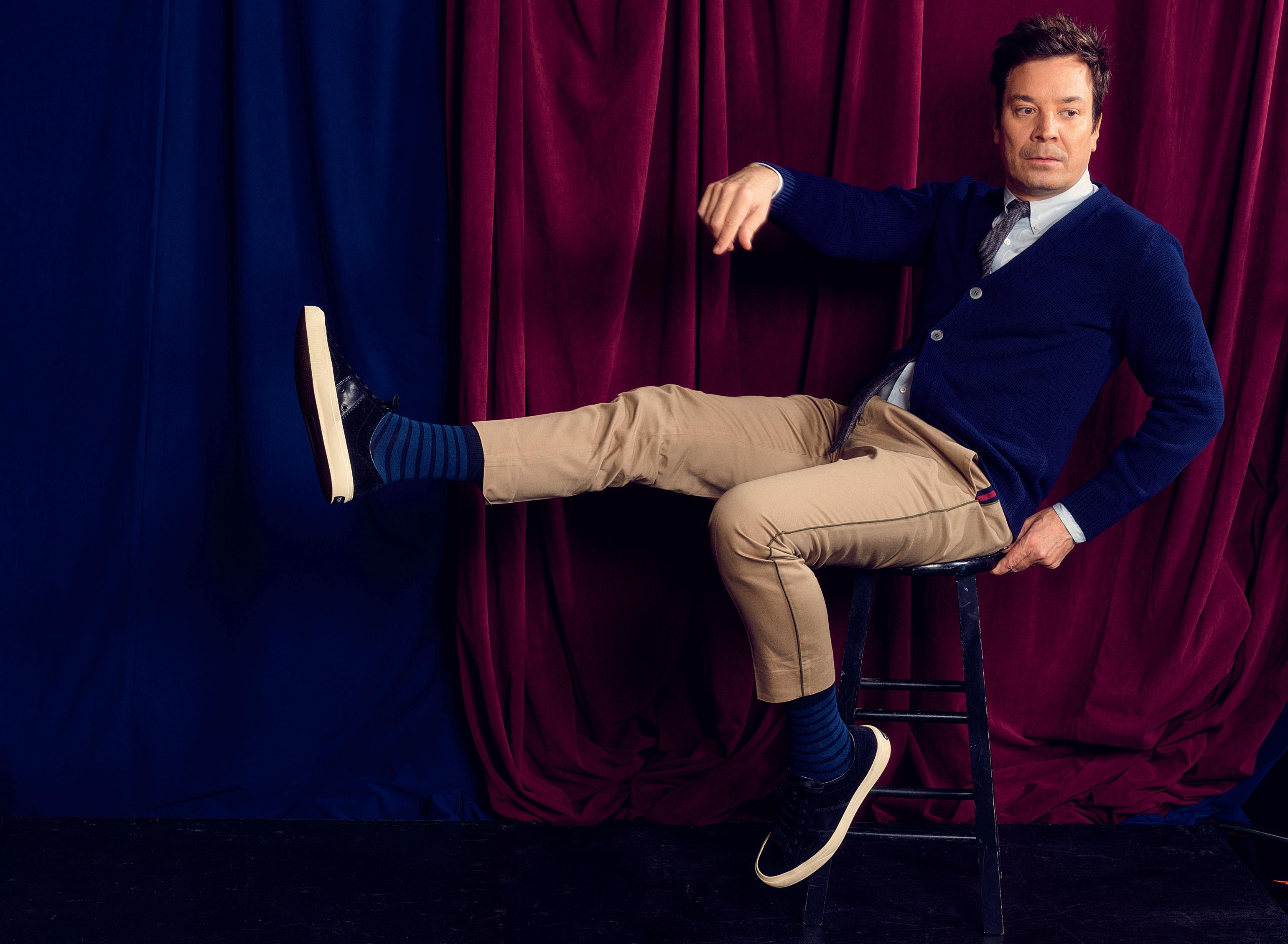
Comedy Portrait Gallery
Over two days at the Directors Guild of America, the cream of the comedy crop gathered for Deadline's flagship
TV event
Photographs by MICHAEL BUCKNER
Jimmy Fallon
THE TONIGHT SHOW STARRING JIMMY FALLON

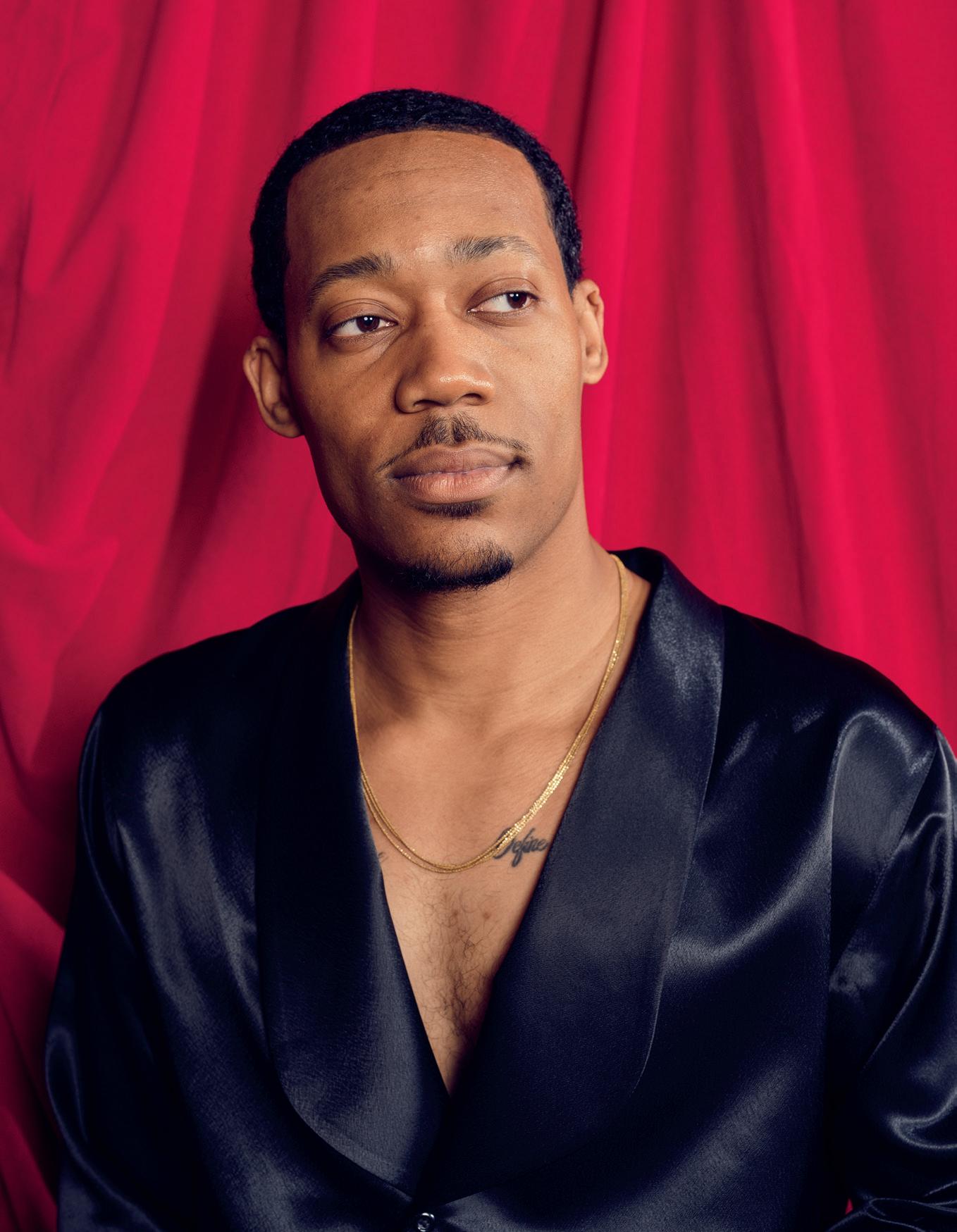 Tyler James Williams
Tyler James Williams
ABBOTT ELEMENTARY
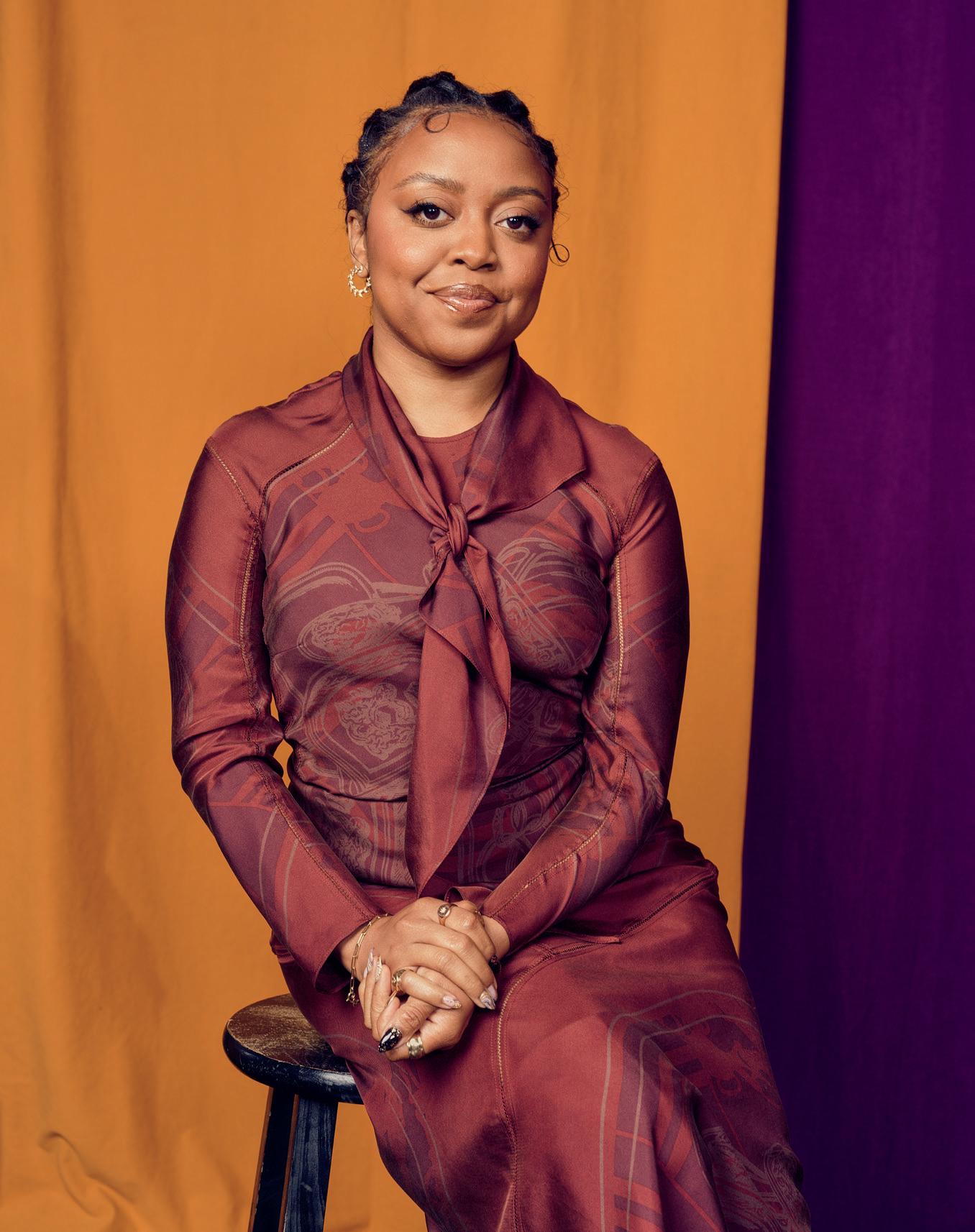
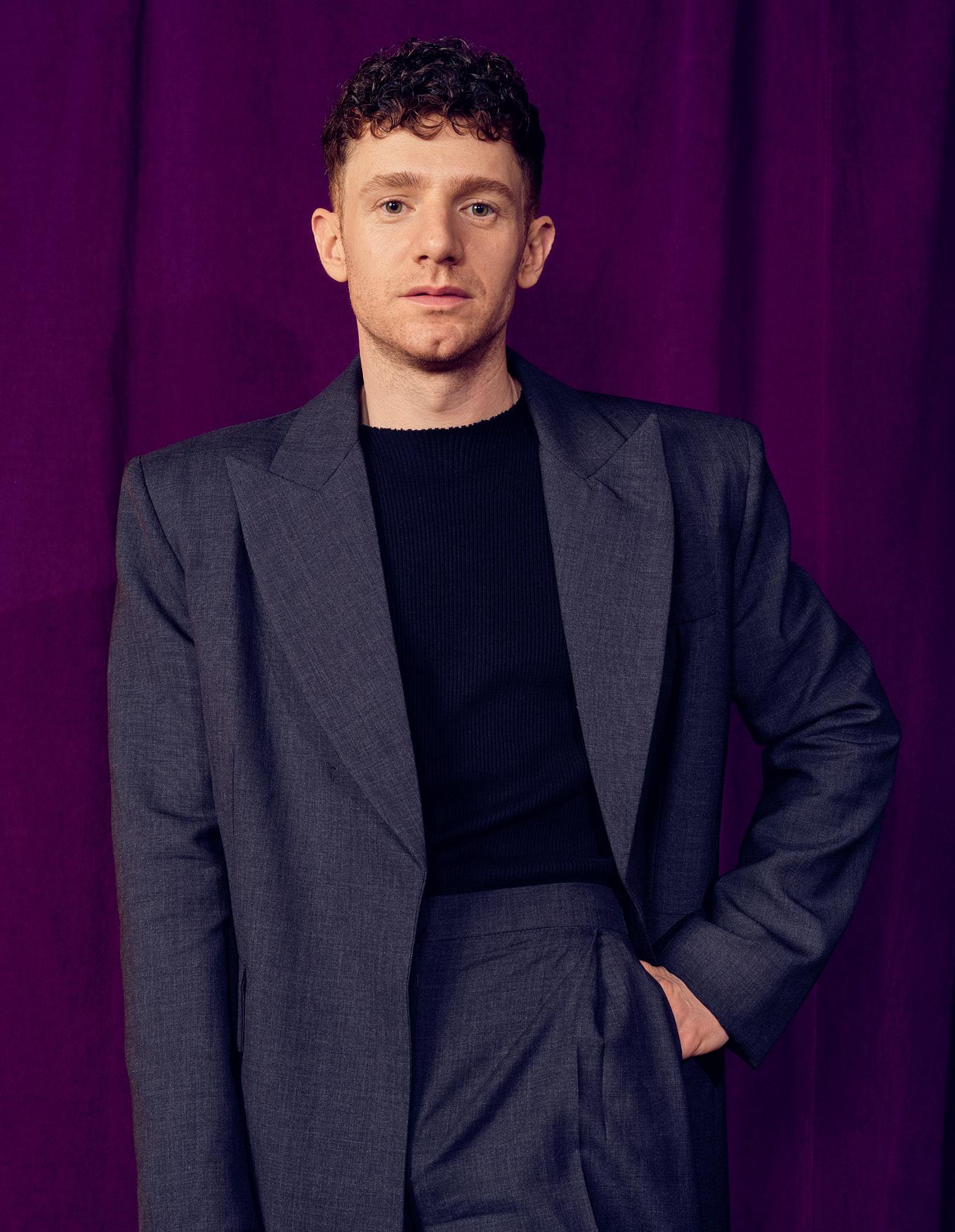 Chris Perfetti
Chris Perfetti
53 DEADLINE.COM/AWARDSLINE GUTTER CREDIT HERE
William Stanford Davis
ABBOTT ELEMENTARY
Quinta Brunson
ABBOTT ELEMENTARY
ABBOTT ELEMENTARY
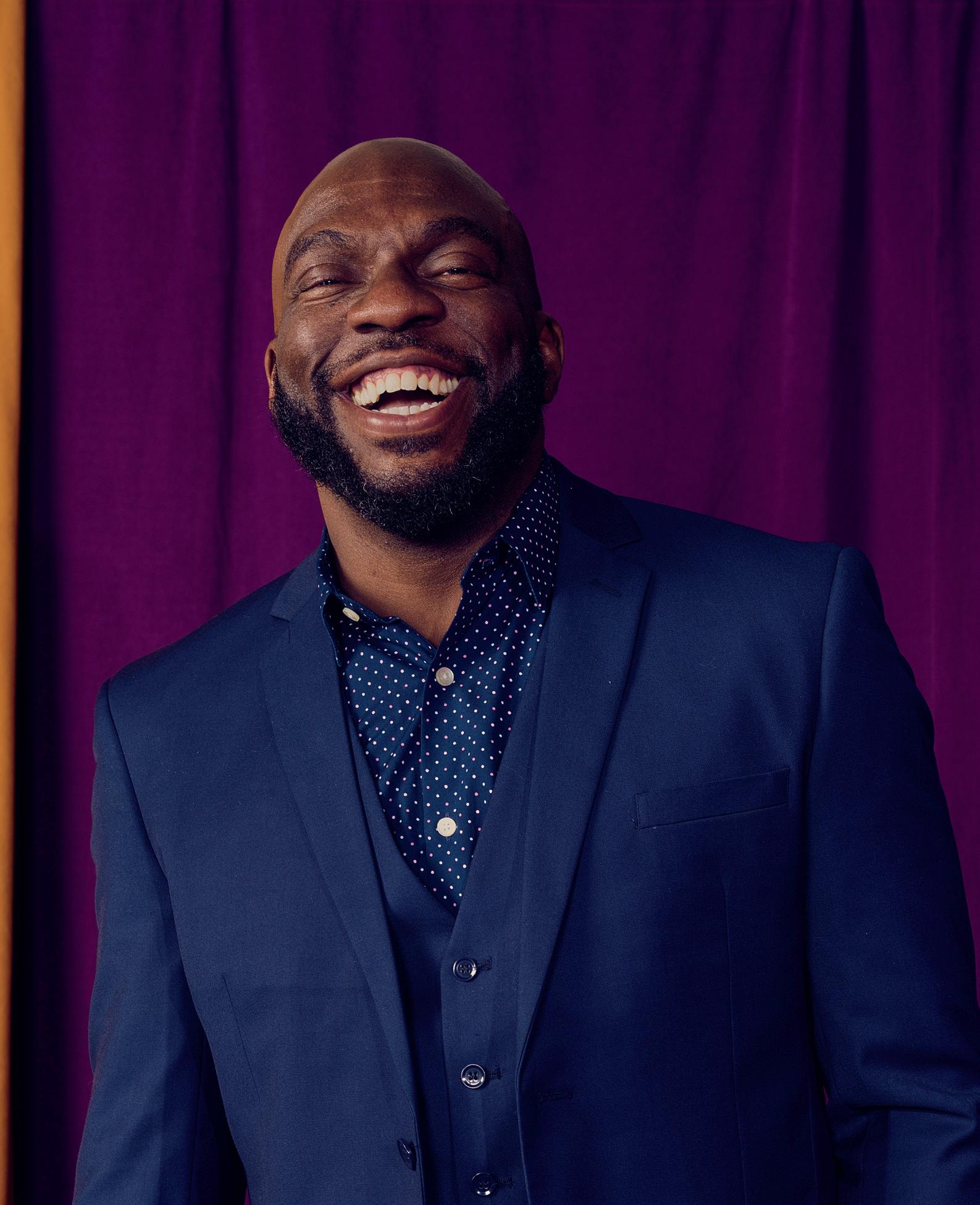
BOOKIE

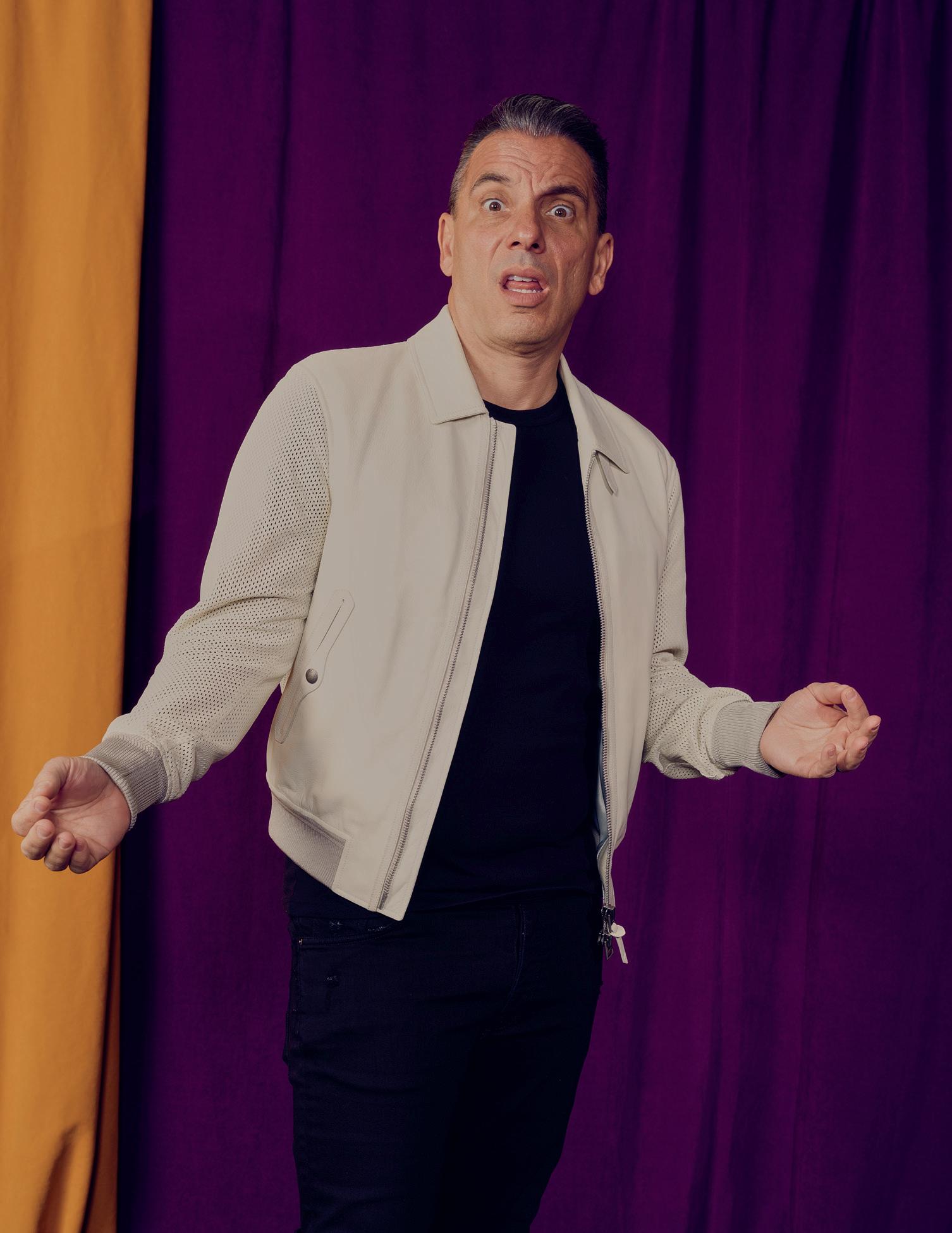
 Chuck Lorre
BOOKIE
Sebastian Maniscalco
BOOKIE
Omar J. Dorsey
Nick Bakay
BOOKIE
Chuck Lorre
BOOKIE
Sebastian Maniscalco
BOOKIE
Omar J. Dorsey
Nick Bakay
BOOKIE

55 DEADLINE.COM/AWARDSLINE GUTTER CREDIT HERE
Josh Lucas and Kristen Wiig
PALM ROYALE
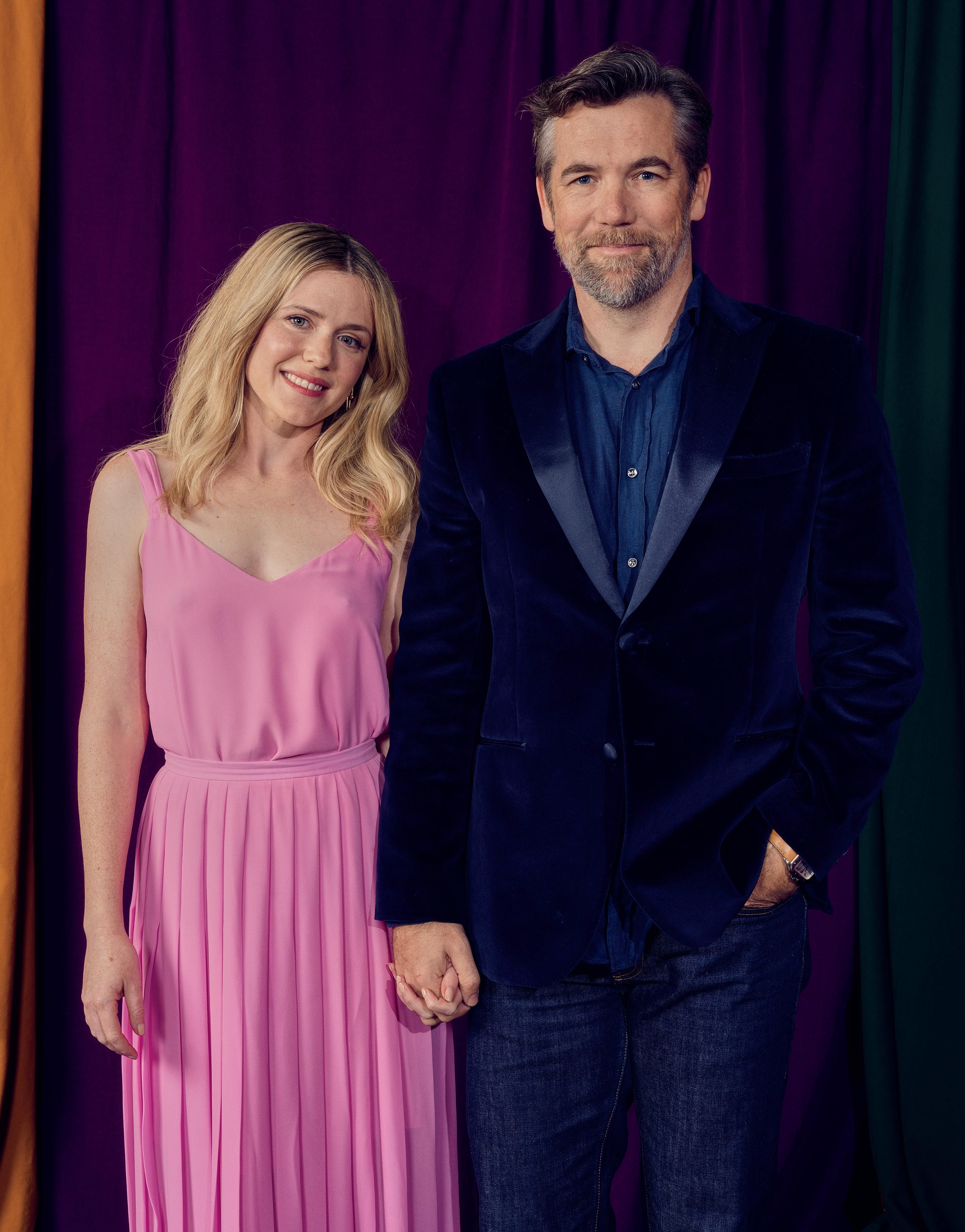
56 DEADLINE.COM/AWARDSLINE GUTTER CREDIT HERE Harriet Dyer and Patrick Brammall COLIN FROM ACCOUNTS
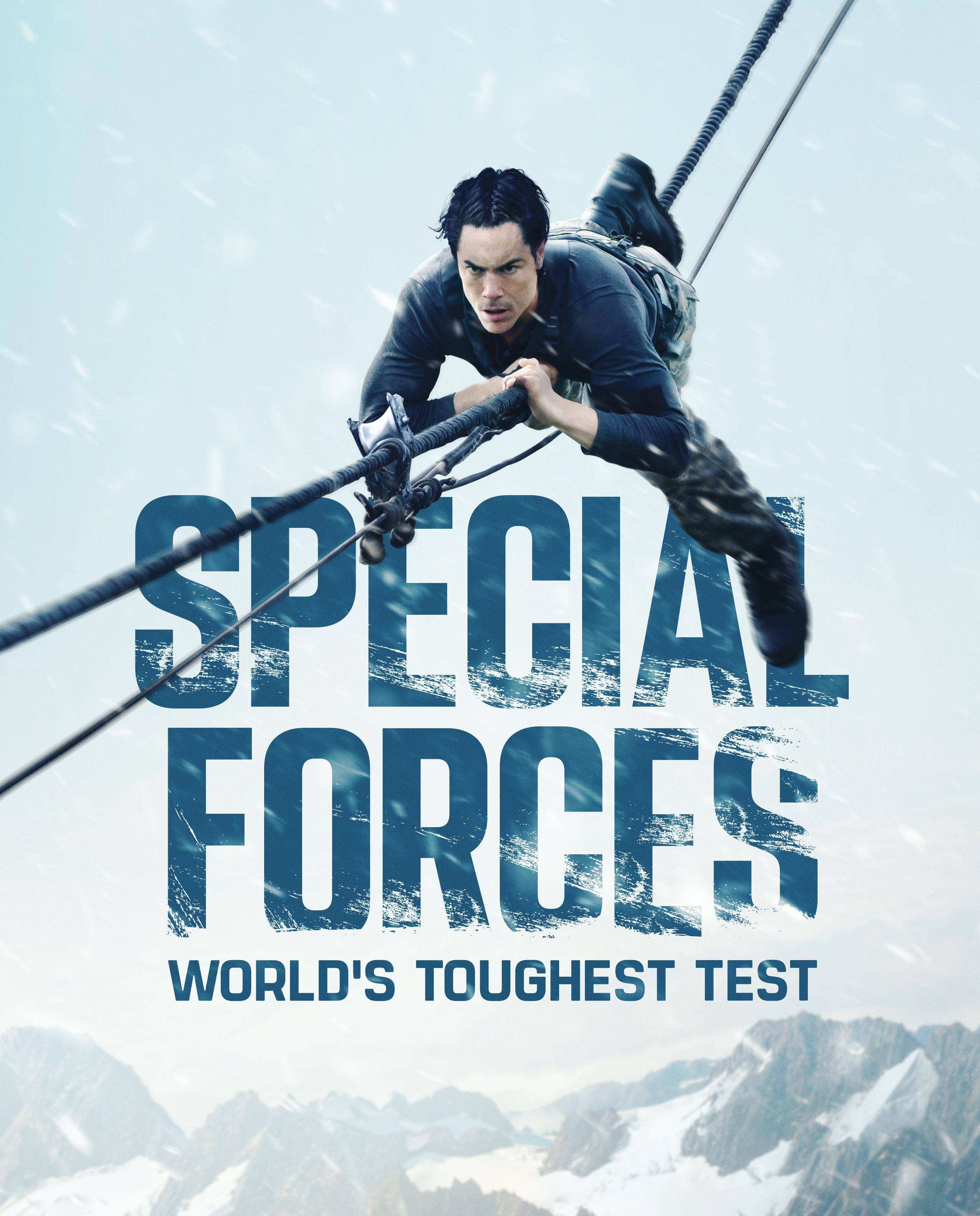
LOOT
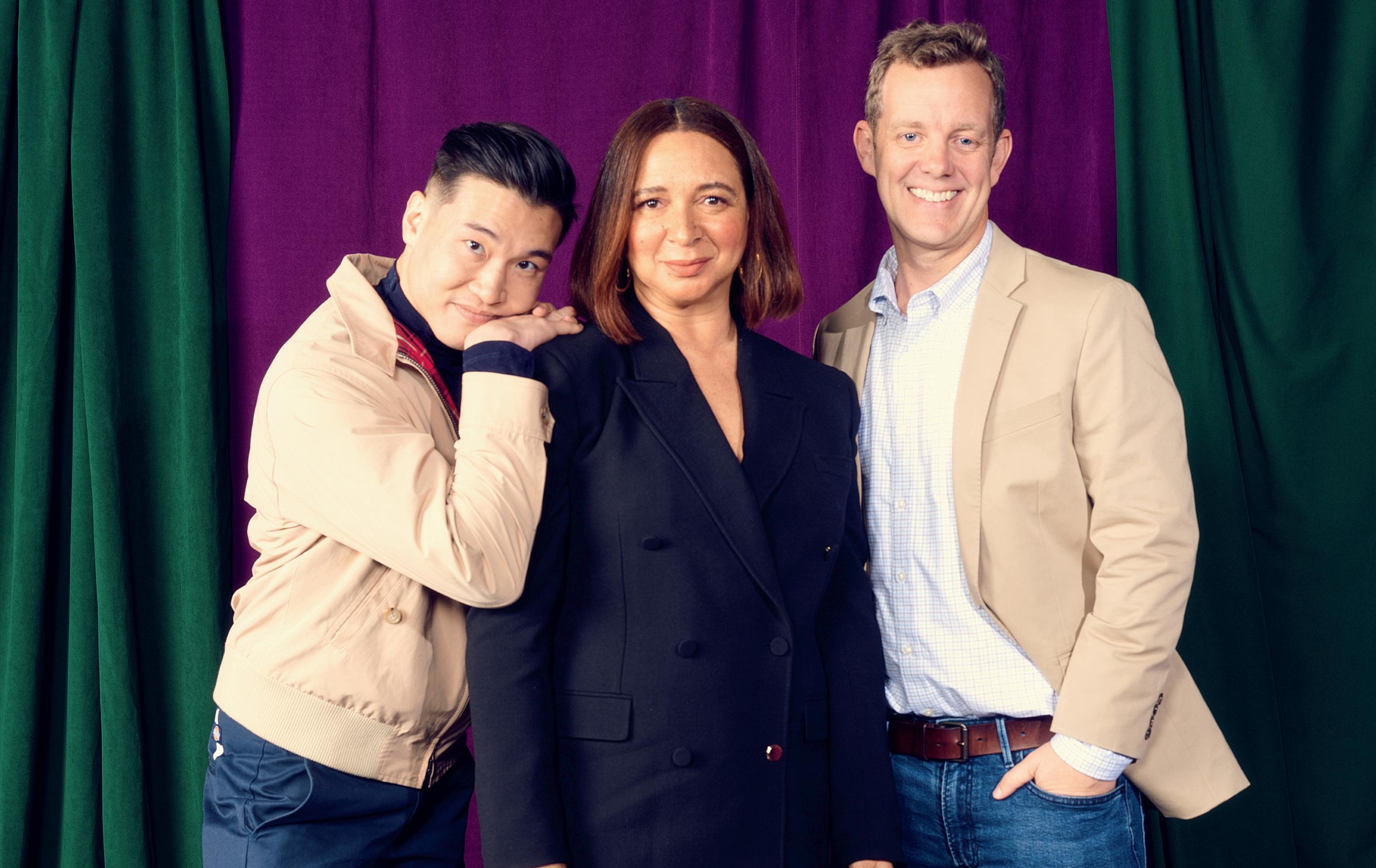
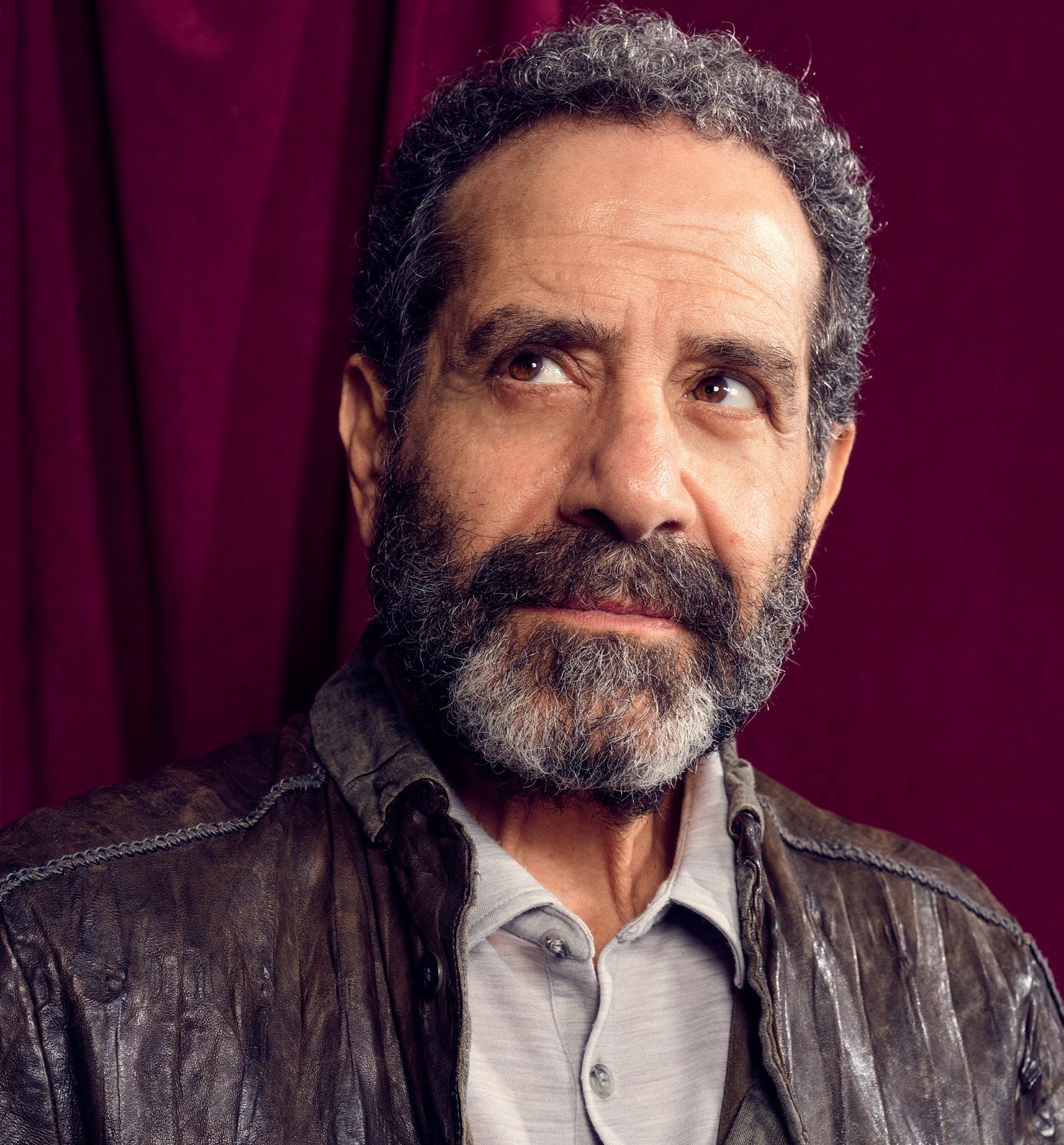
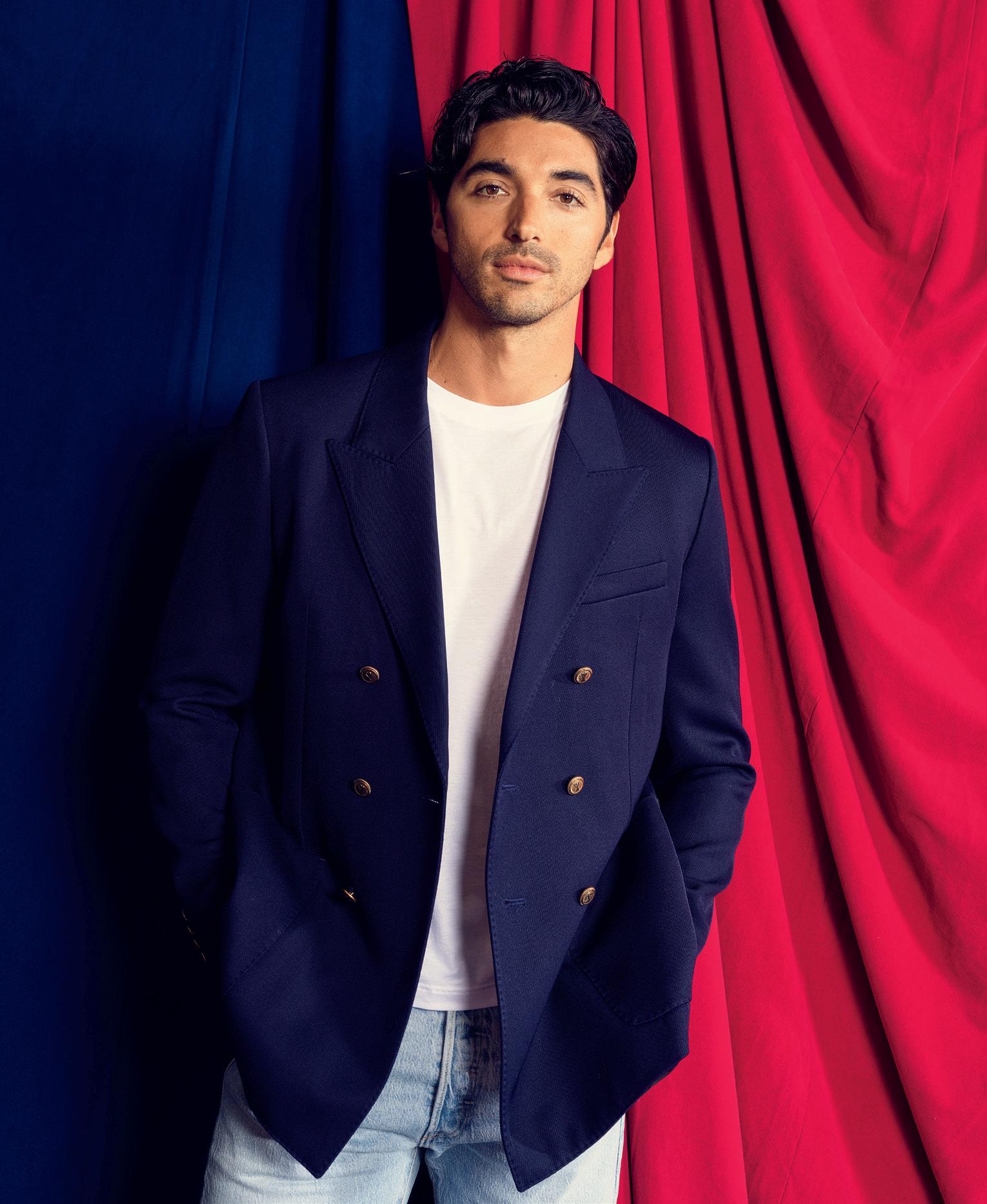
58 DEADLINE.COM/AWARDSLINE
Joel Kim Booster, Maya Rudolph and Matt Hubbard
Taylor Zakhar
Perez RED, WHITE & ROYAL BLUE
Tony Shalhoub
MR. MONK'S LAST CASE: A MONK MOVIE
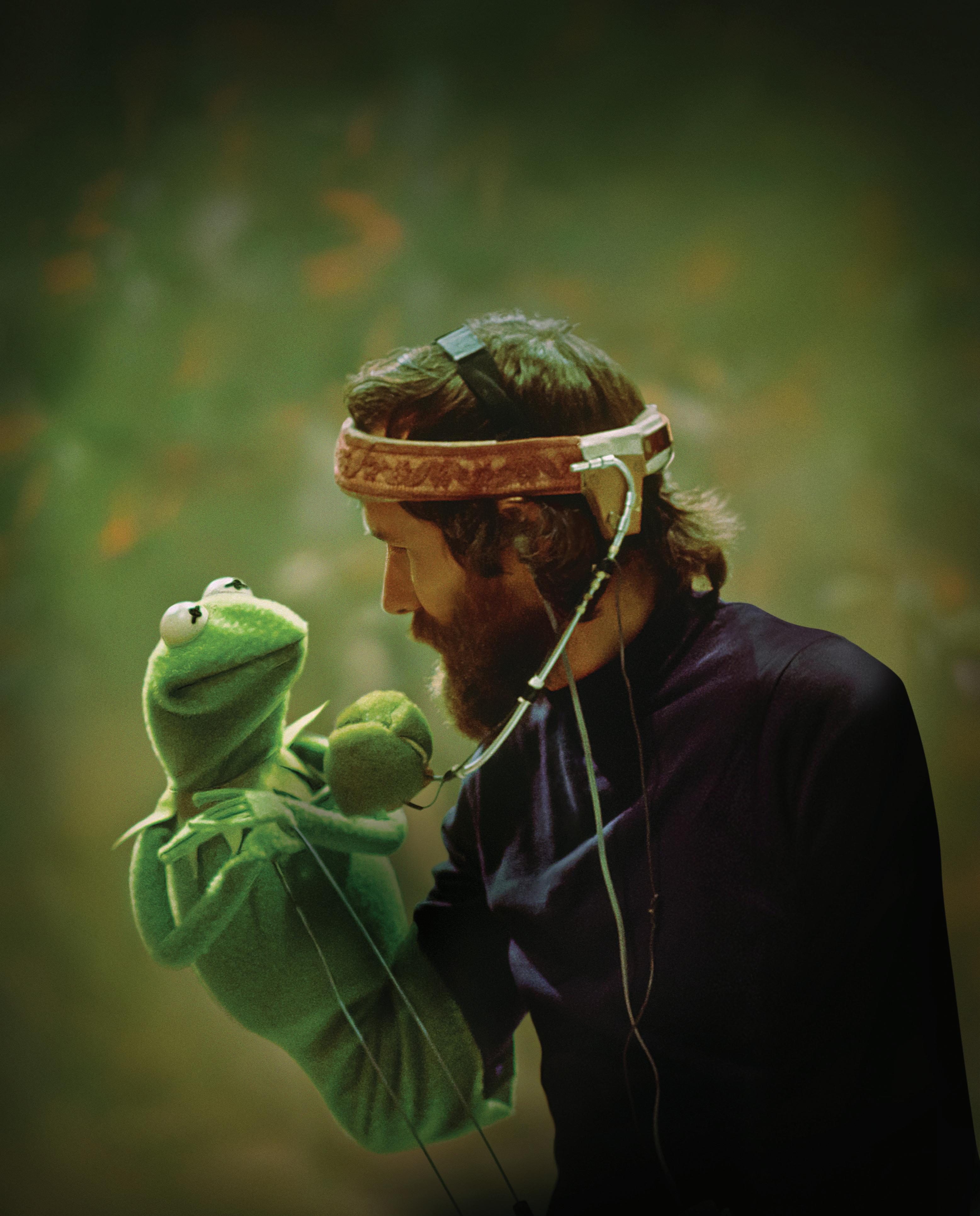
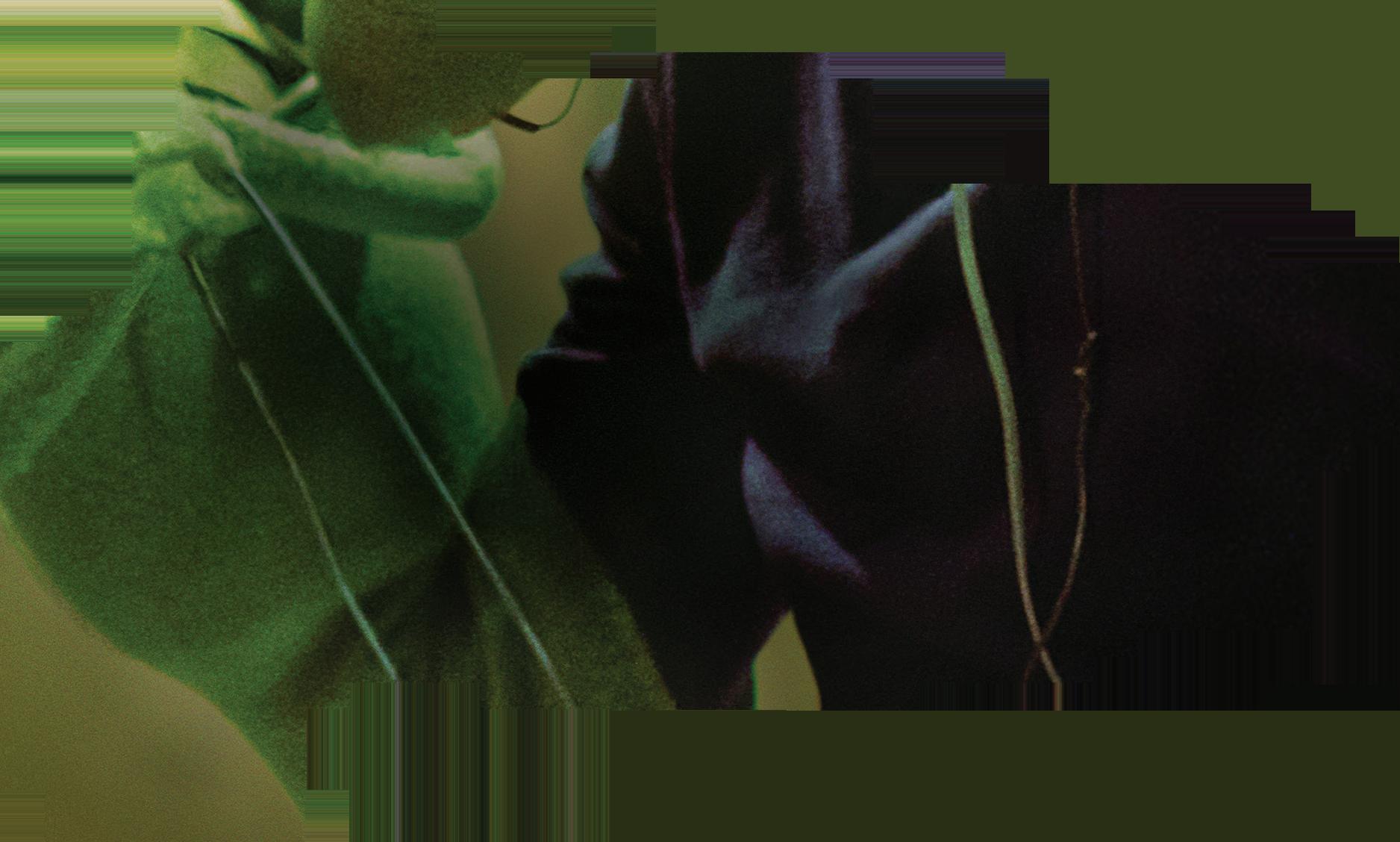
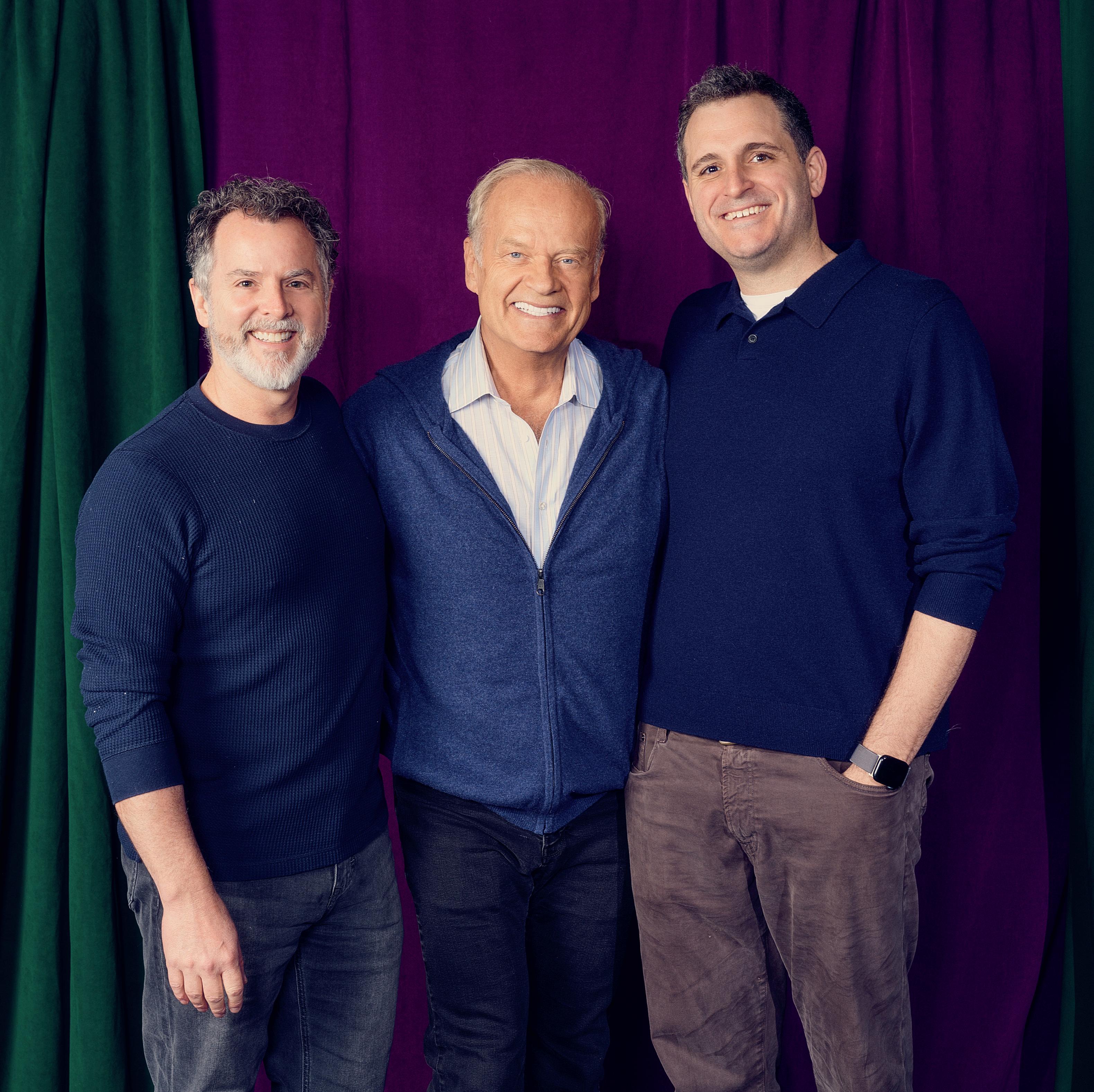
60 DEADLINE.COM/AWARDSLINE GUTTER CREDIT HERE
Chris Harris, Kelsey Grammer and Joe Cristalli
FRASIER
































































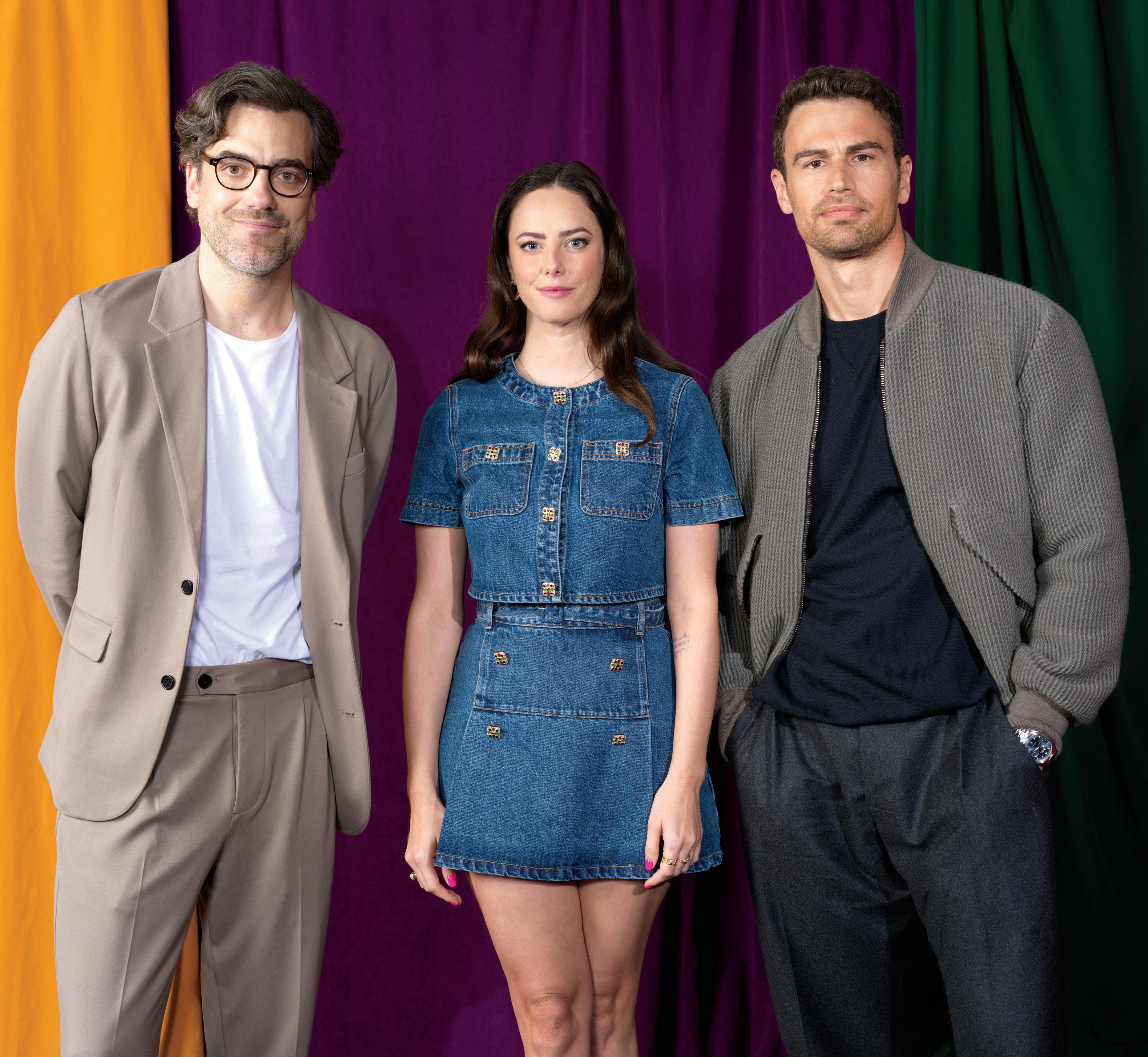
62 DEADLINE.COM/AWARDSLINE GUTTER CREDIT HERE
Daniel Ings, Kaya Scodelario and Theo James THE GENTLEMEN
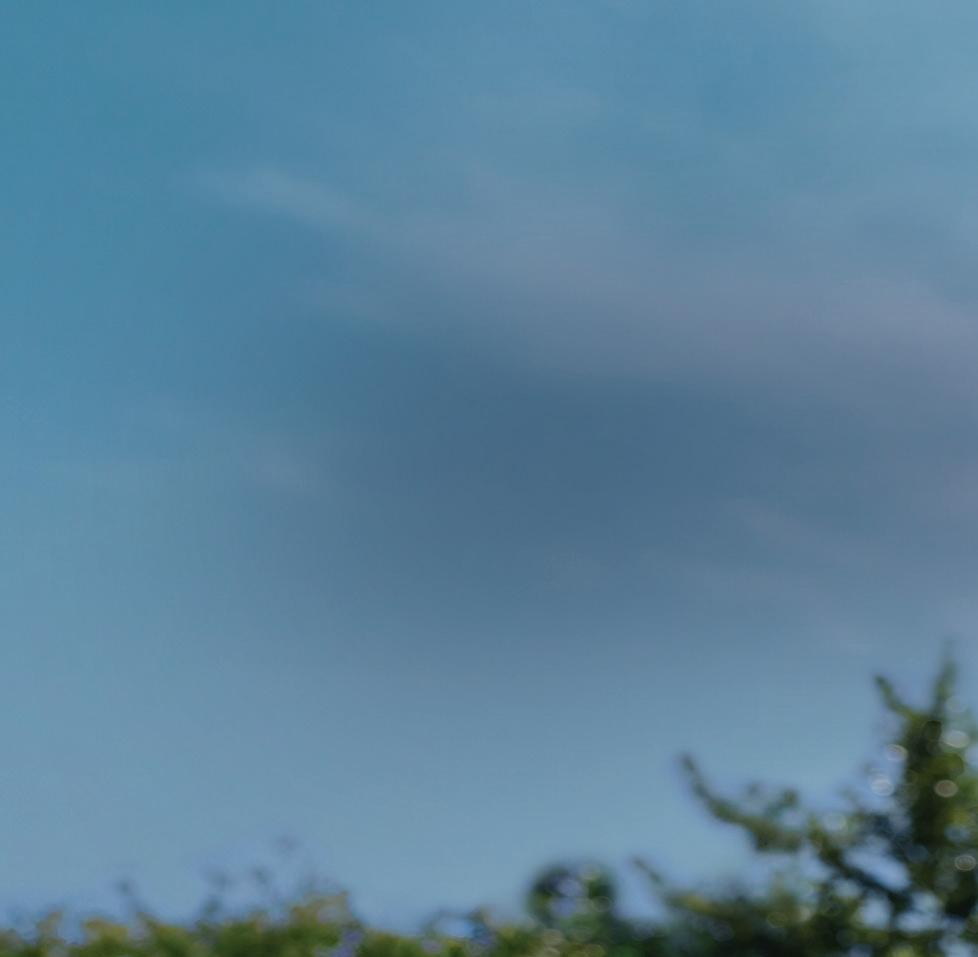
“A COMPLEX, INTIMATE, CAPTIVATING AND VISUALLY STUNNING PORTRAIT OF ANGUISH AND DESIRE.” VARIETY
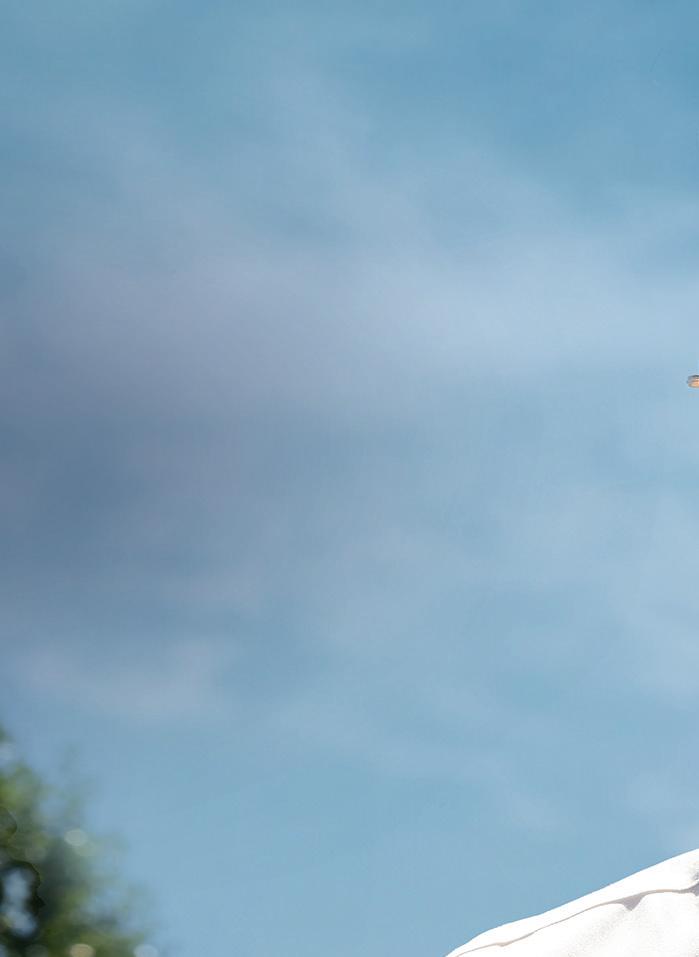
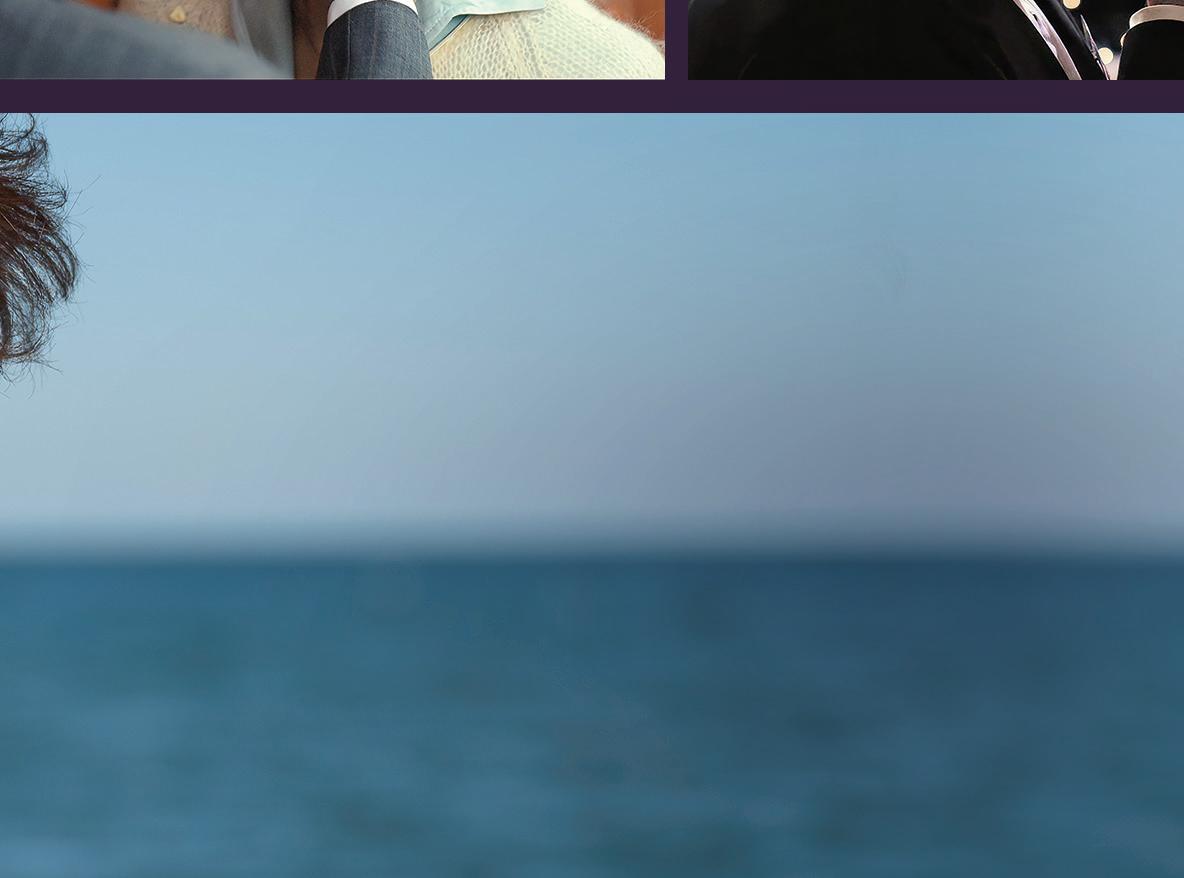
“A DEVASTATING LOVE STORY FOR THE AGES. MATT BOMER and JONATHAN BAILEY deliver


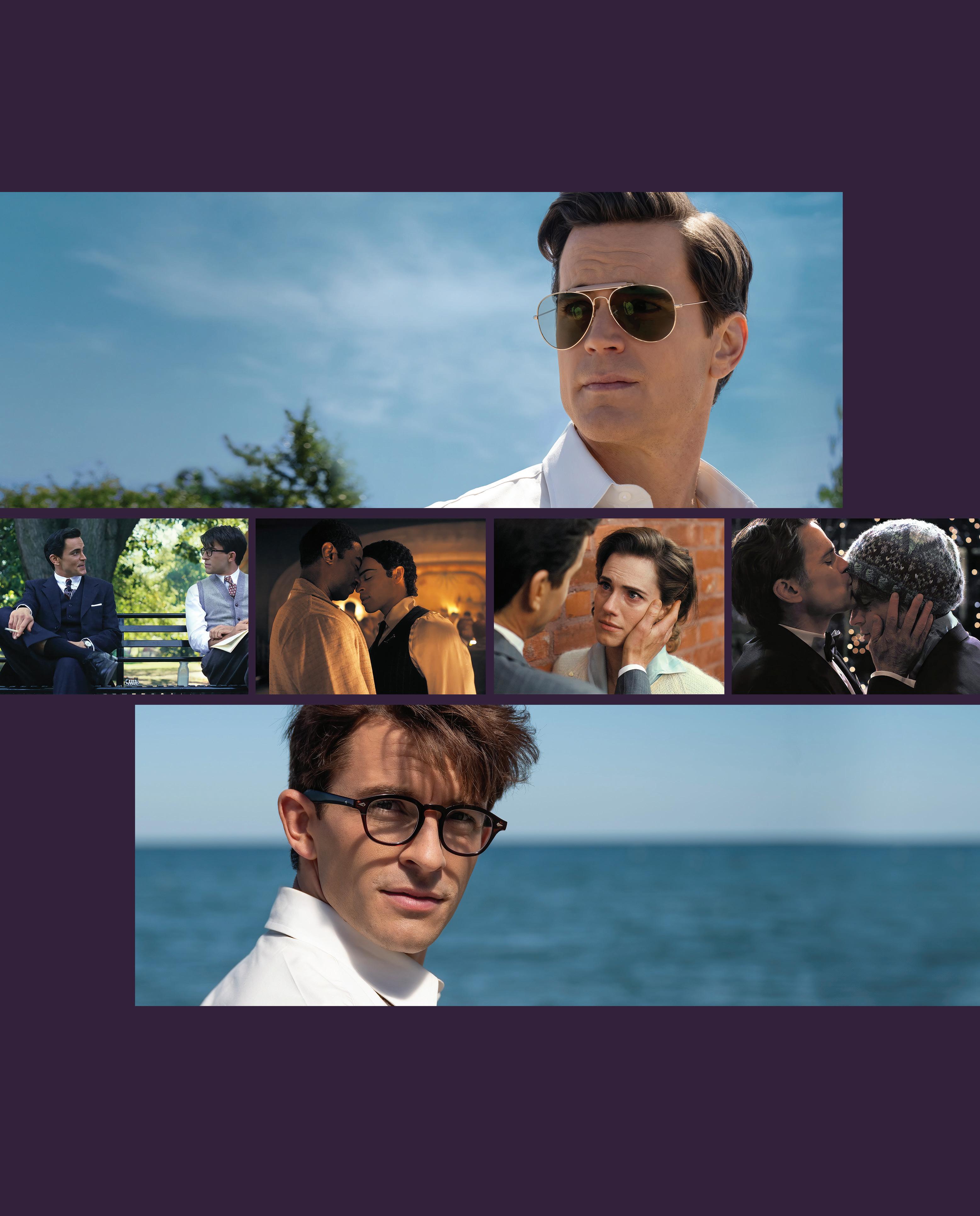
FOR YOUR EMMY ® CONSIDERATION OUTSTANDING LIMITED SERIES
best performances
careers.” THE A.V. CLUB
the
of their
“THE BEST REVIEWED LIMITED SERIES OF THE YEAR” 2023 ROT TEN TOMATOES GOLDEN TOMATO AWARD
The
Actors Side • The Film That Lit My Fuse • Behind



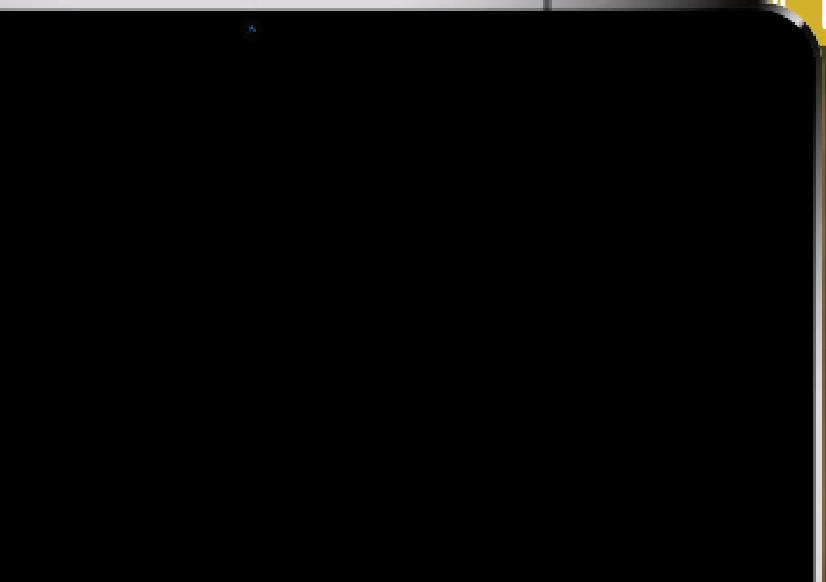



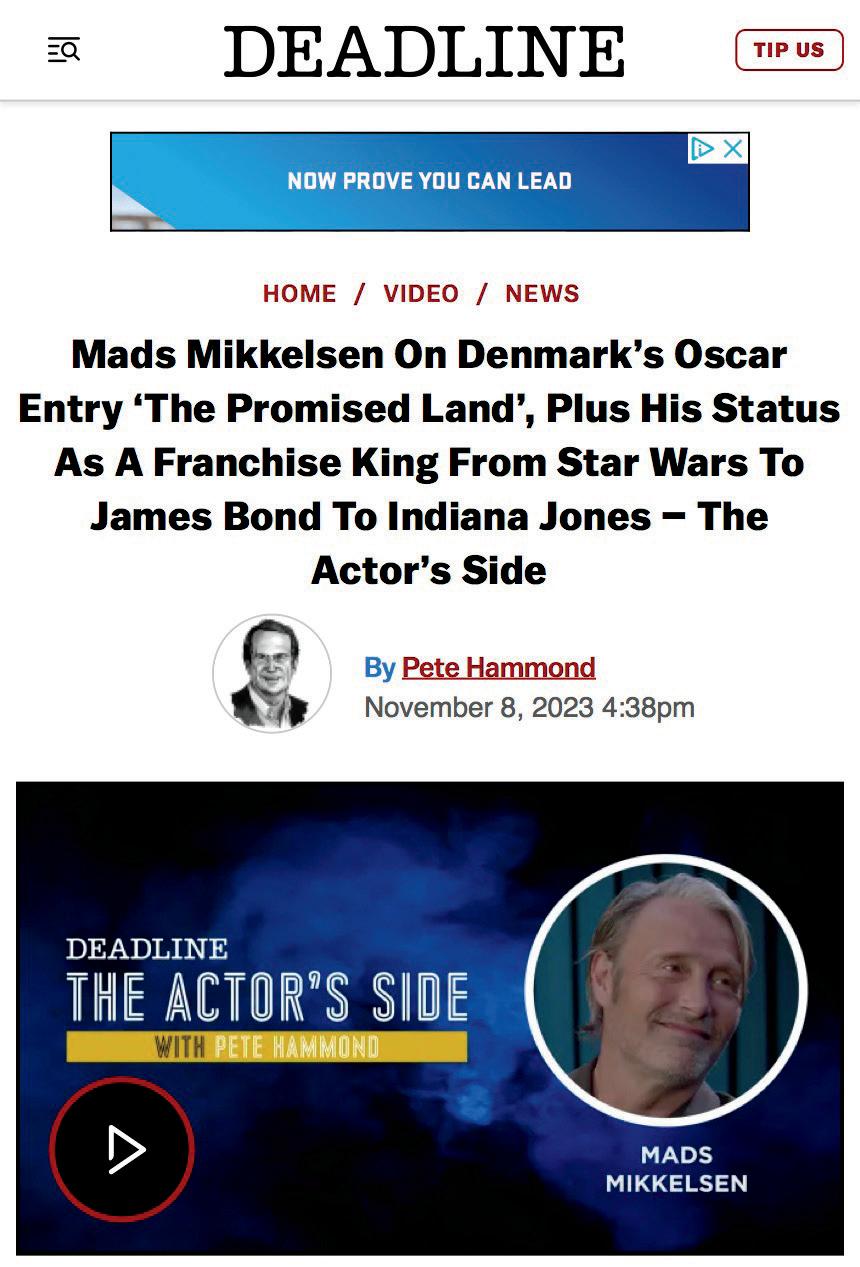

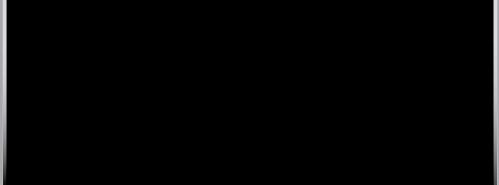








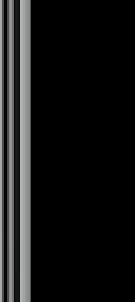

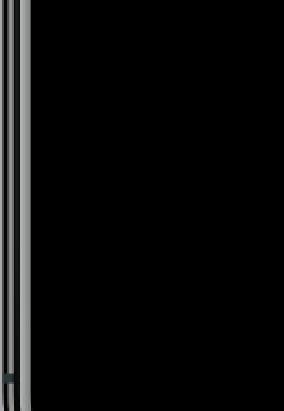
video series
In-depth interviews with entertainments leading actors, directors, writers, below-the-line crew and so many more. Explore Deadline’s video series that take you behind the scenes.


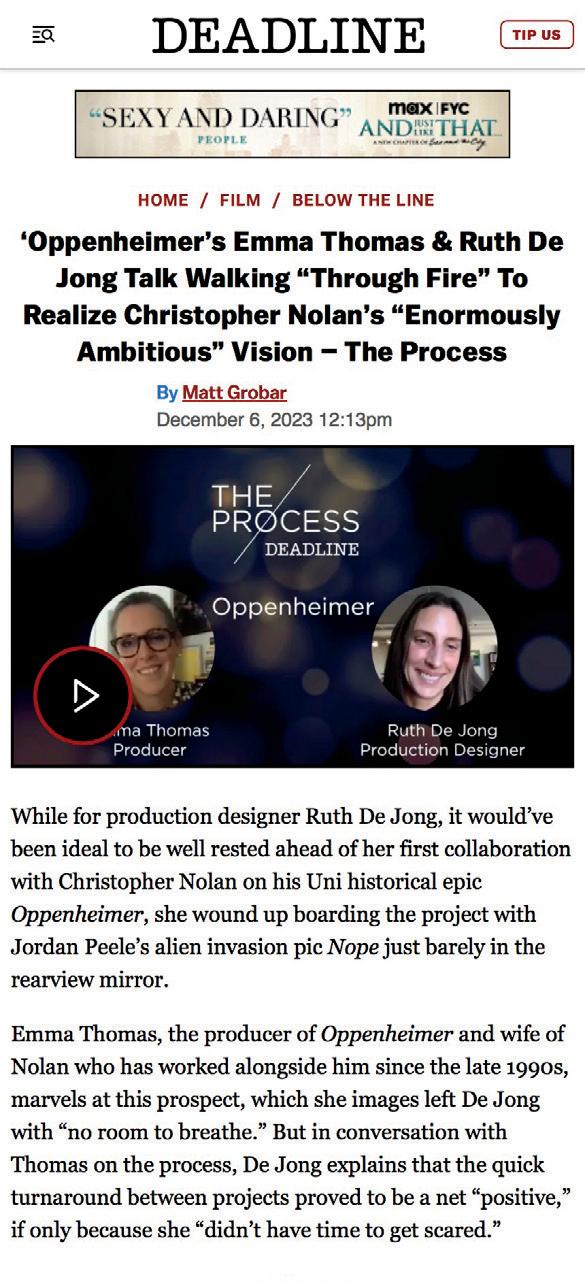
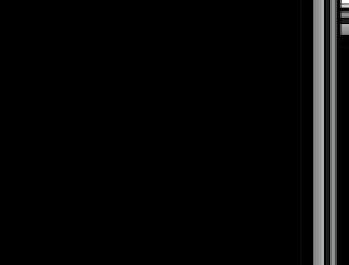

DEADLINE.COM/VIDEO










•
• Crew
• Production Value
The Lens
The Process
Call
Deadline Studio at Prime Experience
May 5-8, 2024 NYA West, Hollywood
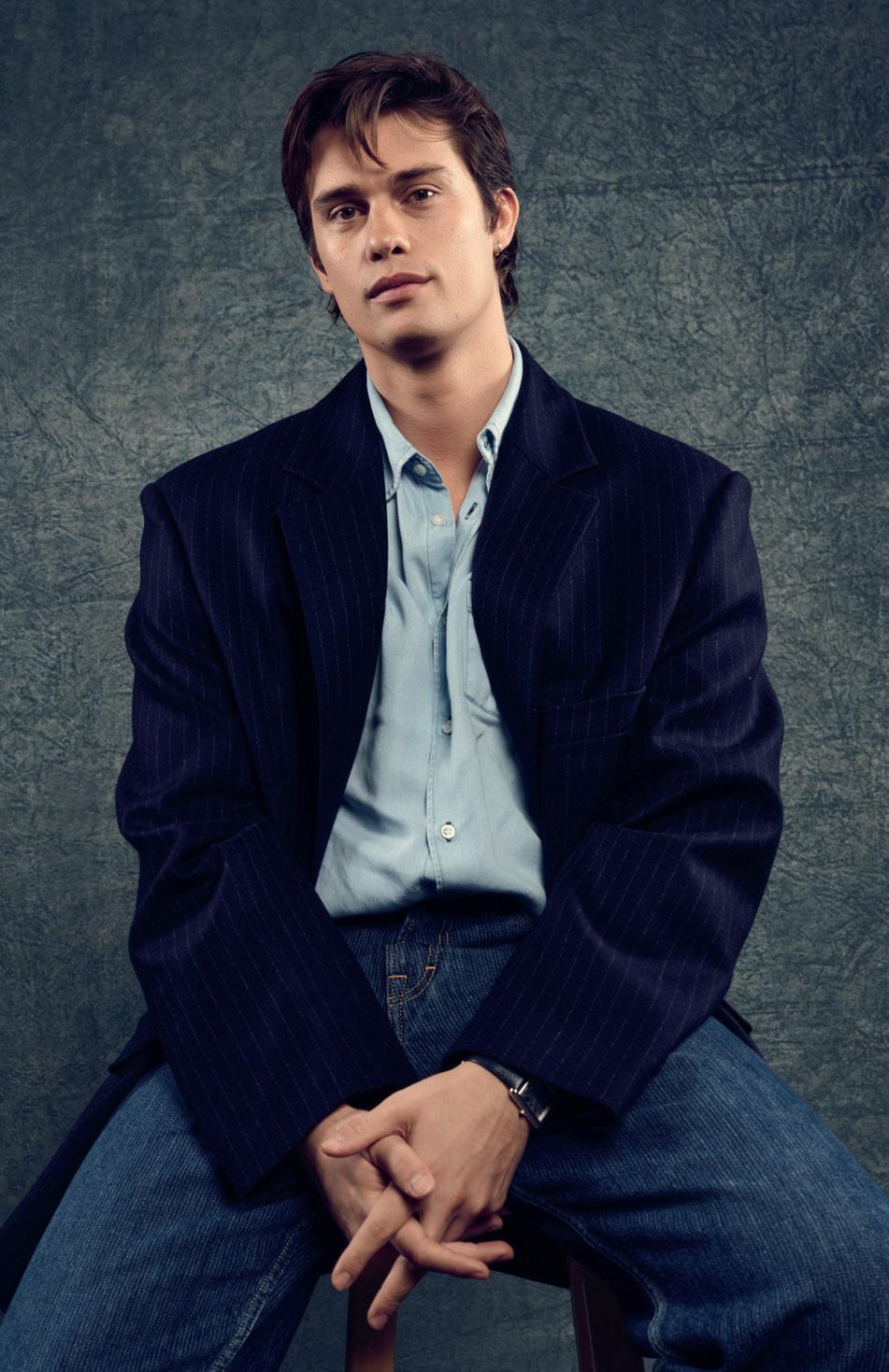
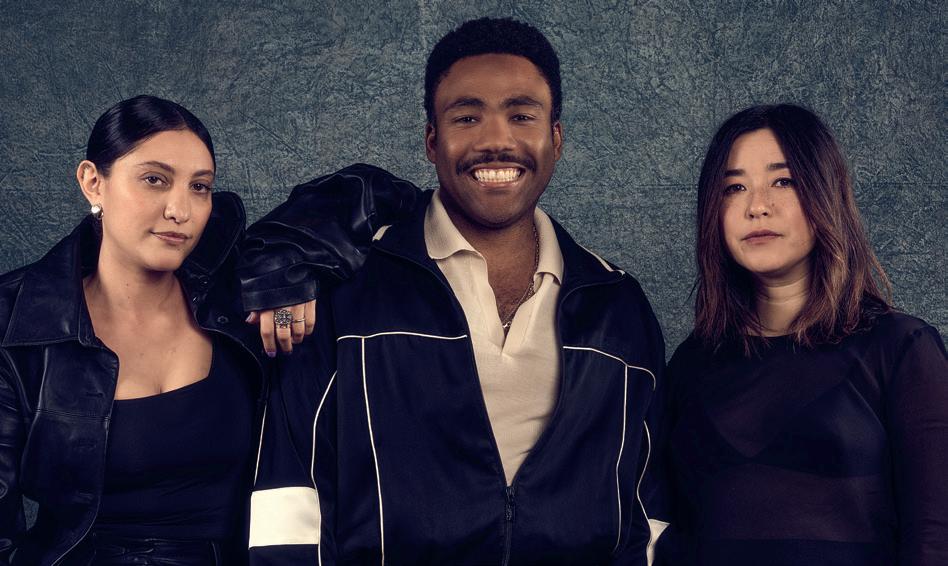


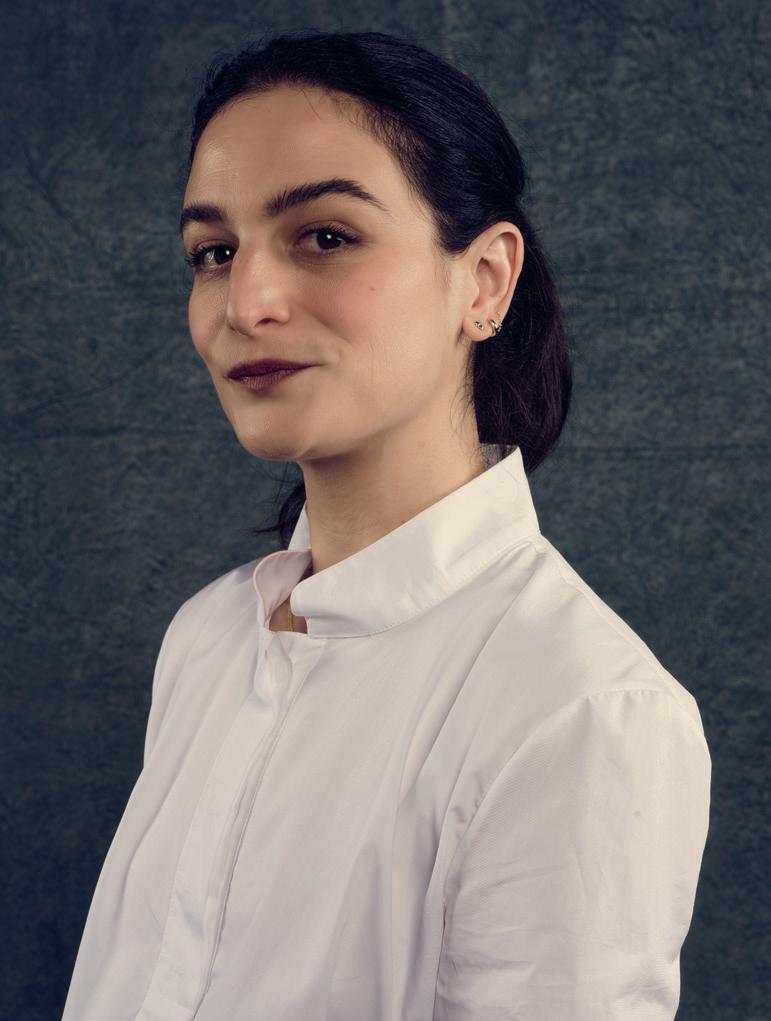
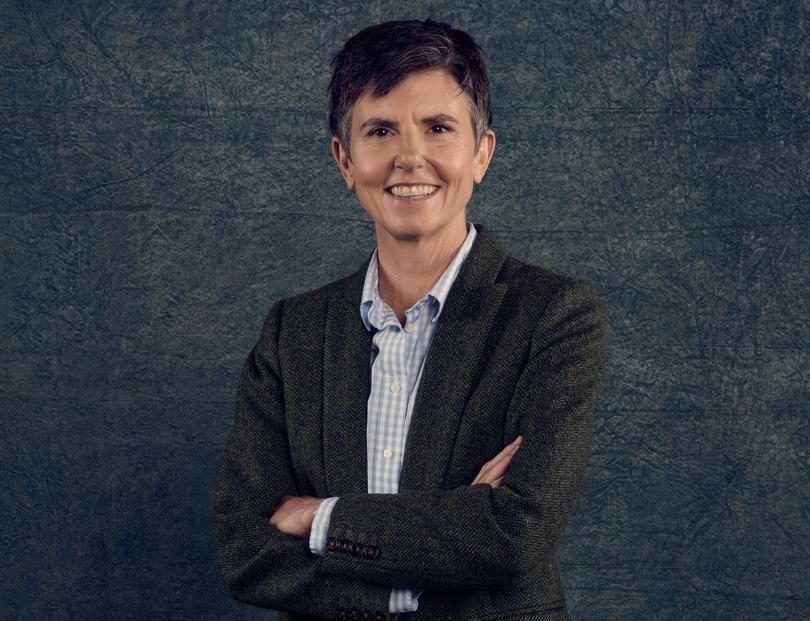
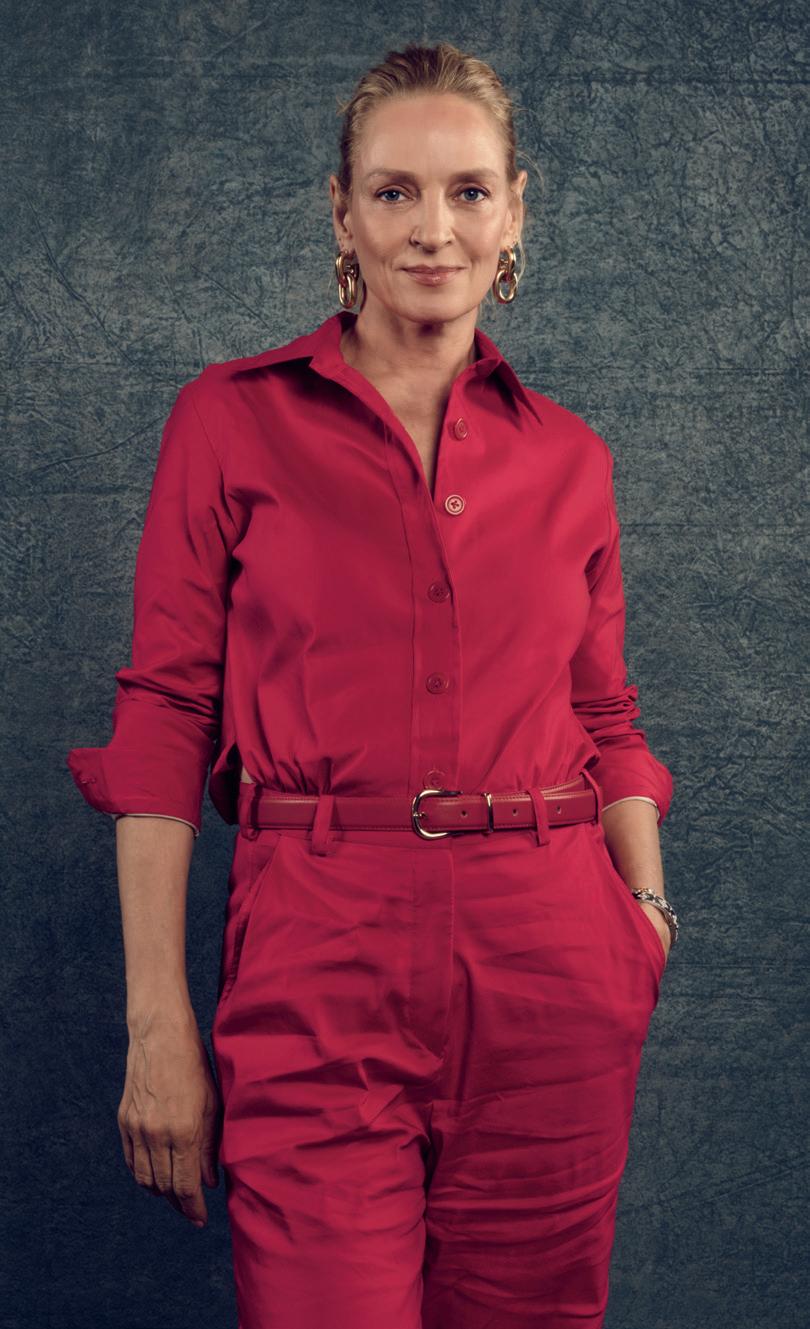
66 DEADLINE.COM/AWARDSLINE PARTNER CONTENT
1. Asante White, Gelila Bekele, Geeta Gandbhir, Armani Ortiz and Jasmine K. White
(Maxine's Baby: The Tyler Perry Story)
2. Nicholas Galitzine (Red, White & Royal Blue)
1 3 4 7 2 6 5
3. Jim Gaffigan (Comedy Night)
4. Tig Notaro (Comedy Night)
5. Francesca Sloane, Donald Glover and Maya Erskine (Mr. & Mrs. Smith)
6. Jenny Slate (Comedy Night)
7. Uma Thurman (Red, White & Royal Blue)
MICHAEL BUCKNER/ANTHONY AVELLANO
DeadlineSoundScreenTV.splashthat.com RSVP TODAY! A COMPOSER SHOWCASE of ORIGINAL MUSIC for TELEVISION FRIDAY
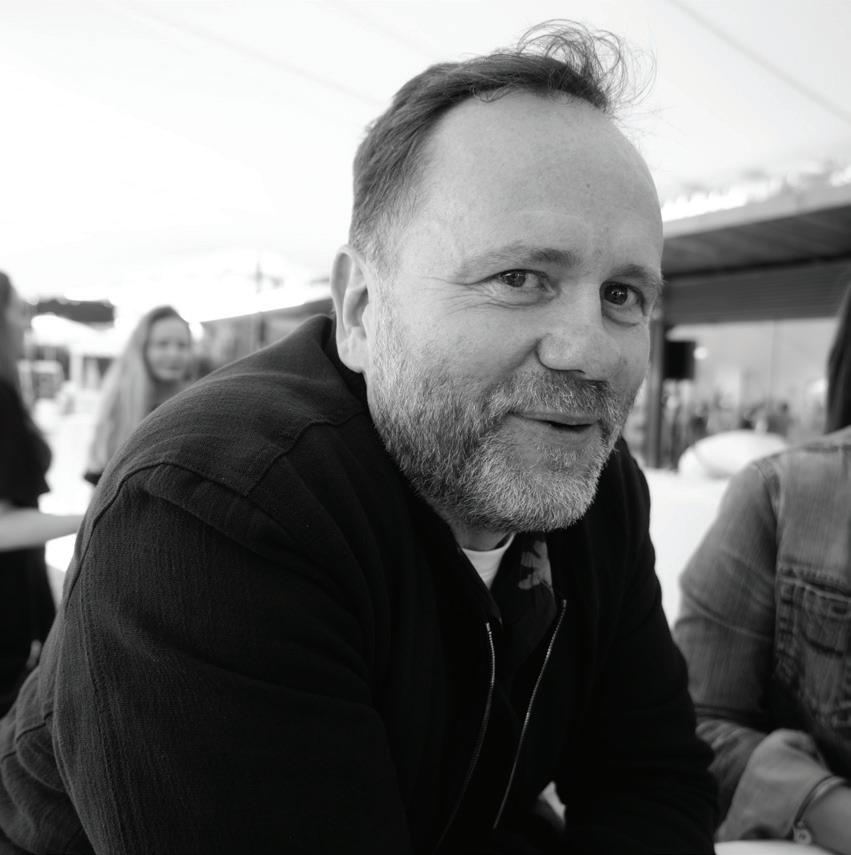
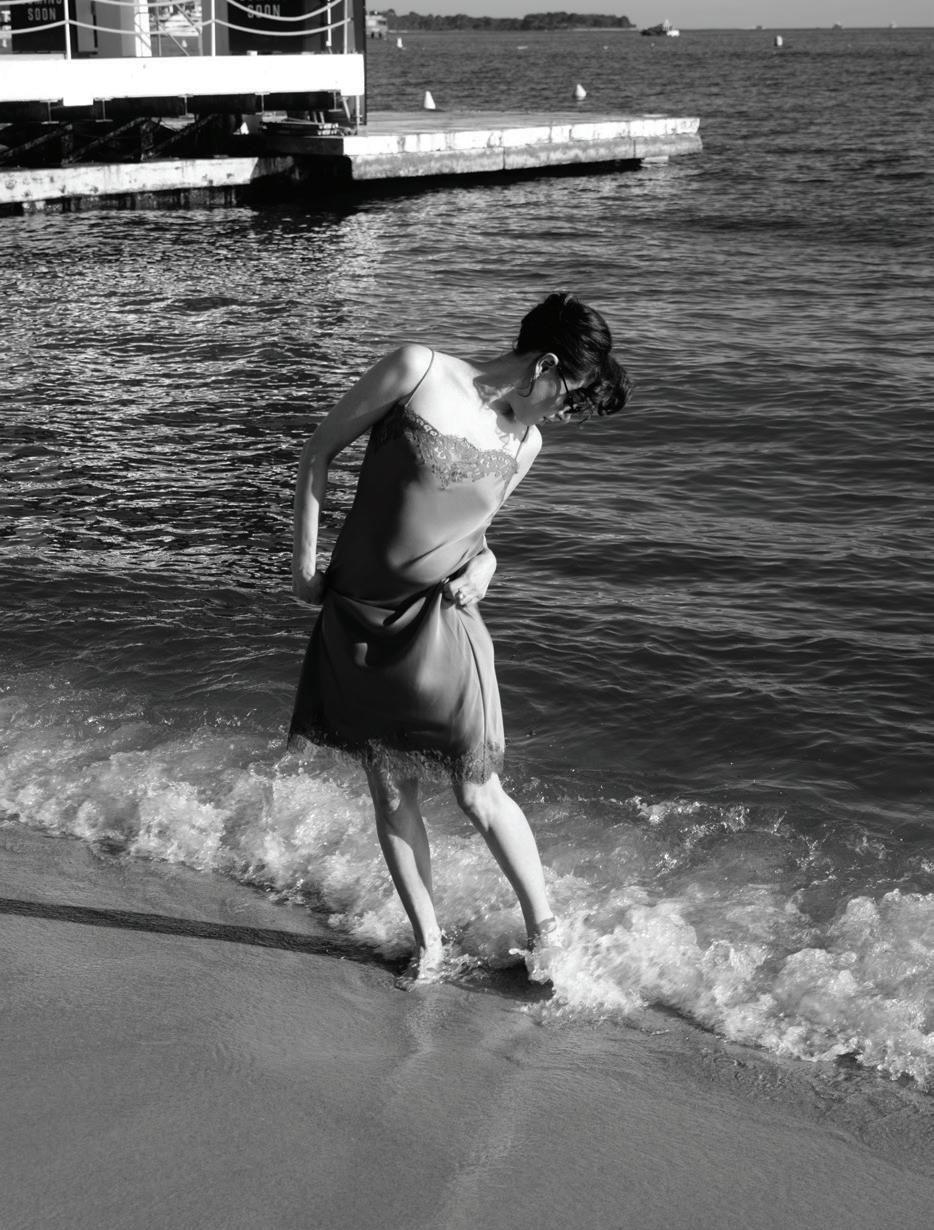

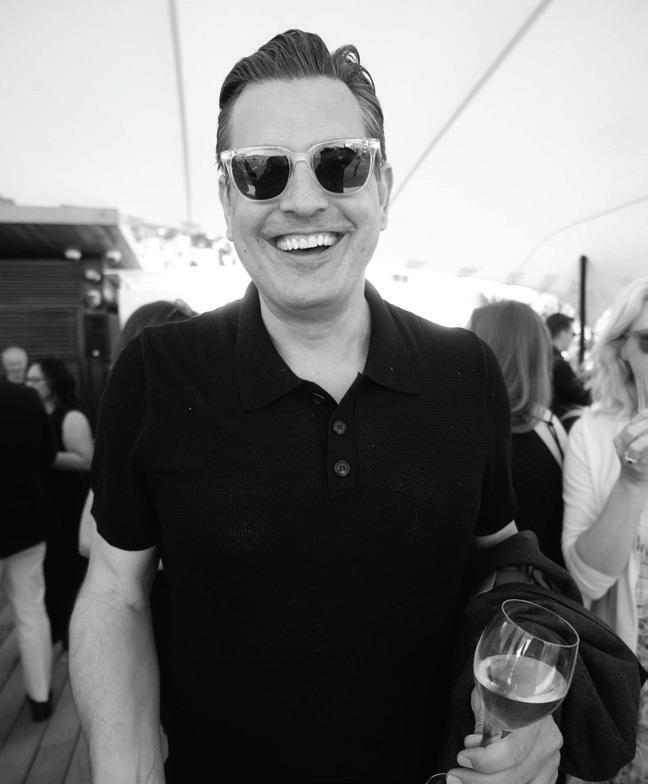
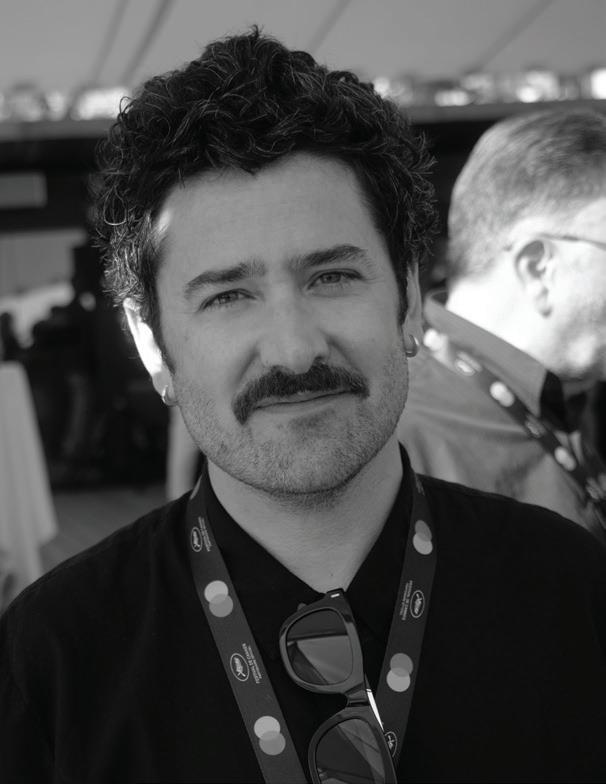
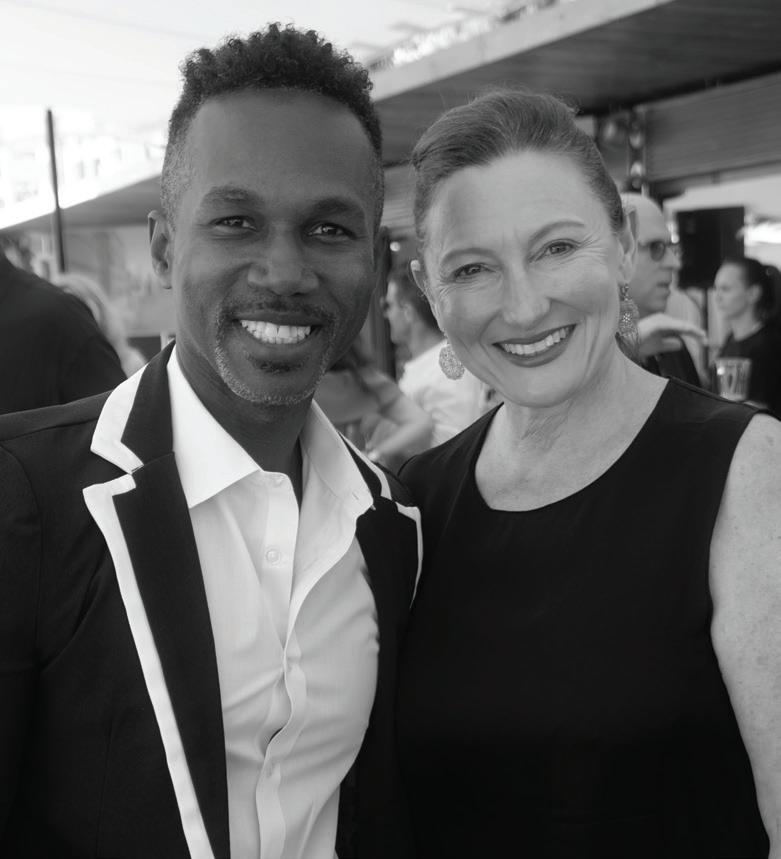
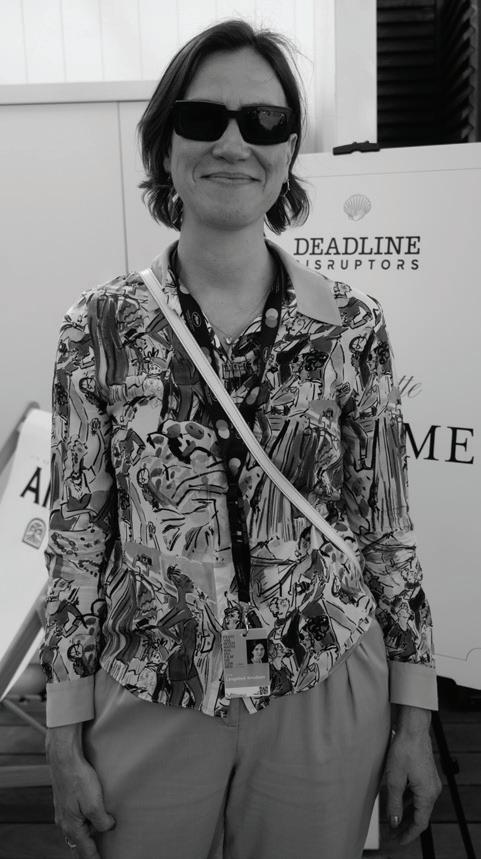
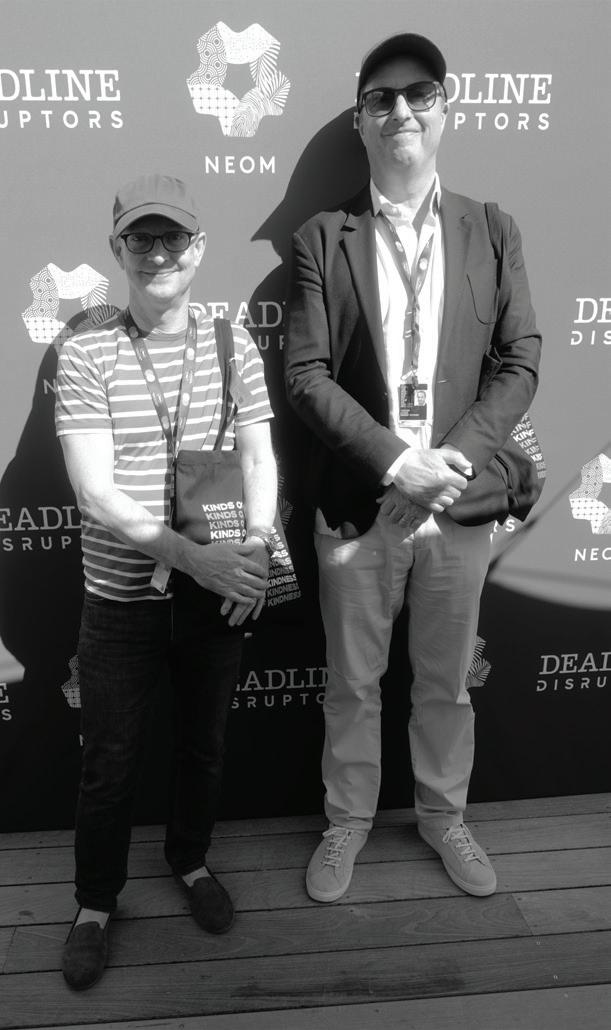
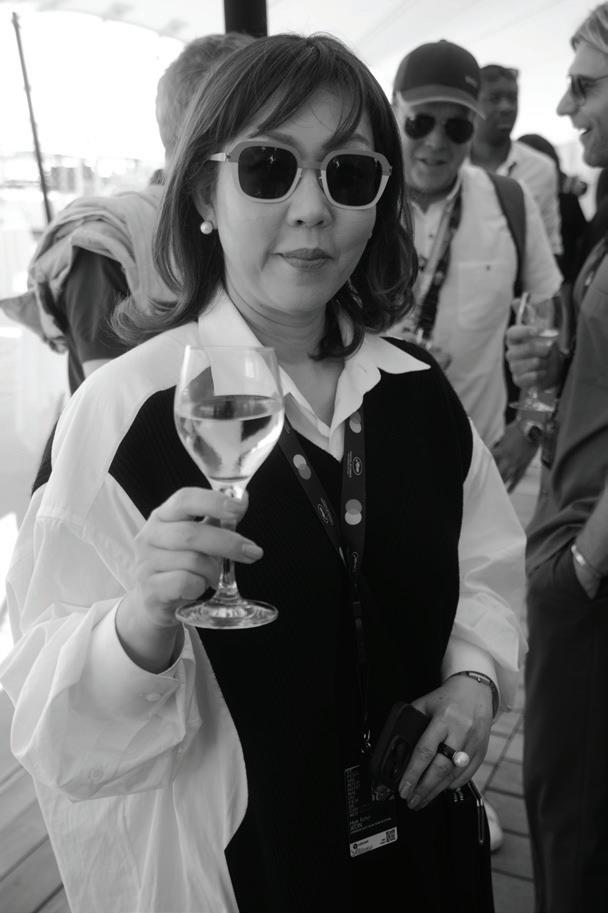
68 DEADLINE.COM/AWARDSLINE
Deadline Disruptors on the Croisette May 18, 2024 The Carlton Hotel, Cannes
Snapshot
1. Danny Perkins
2. Francis Ford Coppola and Aubrey Plaza
3. Aubrey Plaza
4. Ben Tappan
5. Lorcan Finnegan
2 6 9 5 4 1 7 3 8 JOE UTICHI
6. Ed Guiney and Andrew Lowe 7. Jacques Derosena and Ellie Duque 8. Line Langebek Knudsen
9.
Hyejung Jeon

















































































































































 From left: Hannah Einbinder, Jean Smart, Jen Statsky, Lucia Aniello, and Paul W. Downs photographed in Los Angeles.
From left: Hannah Einbinder, Jean Smart, Jen Statsky, Lucia Aniello, and Paul W. Downs photographed in Los Angeles.


 Styling by Micah Schifman; hair by Sheridan Ward and makeup by Keith Sayer.
Styling by Micah Schifman; hair by Sheridan Ward and makeup by Keith Sayer.








 BY ANTONIA BLYTH
BY ANTONIA BLYTH





































































 Tyler James Williams
Tyler James Williams

 Chris Perfetti
Chris Perfetti



 Chuck Lorre
BOOKIE
Sebastian Maniscalco
BOOKIE
Omar J. Dorsey
Nick Bakay
BOOKIE
Chuck Lorre
BOOKIE
Sebastian Maniscalco
BOOKIE
Omar J. Dorsey
Nick Bakay
BOOKIE








































































